Step back from vigilante groups, Kofi Abotsi counsels NPP, NDC
- 19 Mar 2019 --
As the New Patriotic Party and the National Democratic Congress prepare to enter dialogue to ending activities of vigilante groups loyal to them, the former Secretary to the Emile Short Commission wants both parties to acknowledge that these groups are a danger to the country’s democracy.
According to Ernest Kofi Abotsi, there is no “strategic advantage” for the two leading parties to set up vigilante groups whether they are in power or opposition because, they have been counterproductive.
He further explained: “So if you are in power, this flies in the face of logic that you set up a vigilante group given all the sheer force of state that you have behind you and if you are not in power, you give excuse to the one in power to go after you for having set this up.”

The decision
The former Dean of the GIMPA Law School, therefore, wants both the NPP and NDC to be decisive in dissociating themselves from these groups in order to bring sanity into the political space.
“I think moving forward, there is the need for a stepping back of the two leading [political] parties that we have in Ghana, both of whom have apparently, at a certain level, either openly or tacitly admitted that they benefit from the use of these vigilante groups.
Admissions and denials
Despite the denial by the two leading political parties, NPP and NDC, that they own these groups, some key activists have admitted that they benefited from their activities.
General Secretary of the governing NPP, John Buadu, who testified at the Commission’s hearings into the violence that characterised the January 31 by-election at Ayawaso West Wuogon constituency, also said he is a beneficiary of a vigilante group.
According to Mr. Buadu, that became necessary after the state security failed to come to his rescue when his life was in danger during a political event.
The Commission was headed by former Head of the Commission on Human Rights and Administrative Justice (CHRAJ), Justice Francie Emile Short while Prof. Henrietta Mensa Bonsu and former IGP P.K Acheampong were members.
[youtube https://www.youtube.com/watch?v=jZbsOEUDozY]
The Commission which was handed a month’s period to among others, to “inquire into any matter which the Commission considers incidental or reasonably related to the causes of the events and the associated violence and injuries,” has finished its work and submitted their report to the President.

AWWC legacy
Refusing to comment on details of the Commission’s report which is yet to be made public, Mr. Abotsi said, it reflects in many ways, what Ghanaians saw from the live radio and television broadcasts of the Commission’s hearing.
“What the Commissioners did was to take the evidence, to review the evidence…and put them together in a narrative that can be distilled for purposes of reform moving forward,” he told Evans Mensah.
A key legacy in the establishment of the Commission, he noted, is the demonstration of determination and desire by the President, to meet some of the things that challenge the nation’s governance paradigm.
“If there’s one major legacy of the Commission, is that, it represents a significant intervention in the political arrangement, the constitutional arrangement and the security arrangements of Ghana so that moving forward, we can consolidate our democracy,” he said.

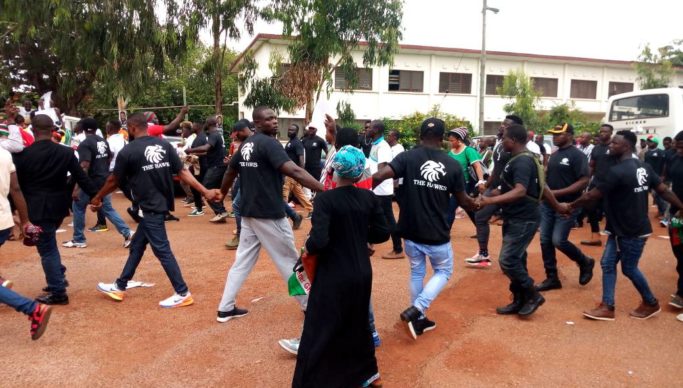
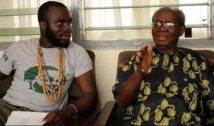
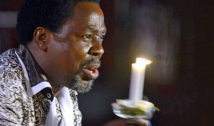
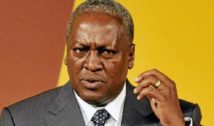
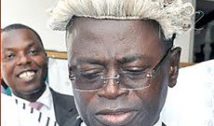





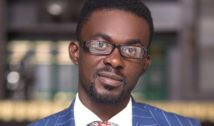
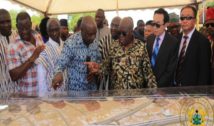

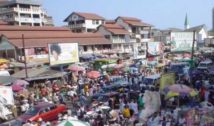





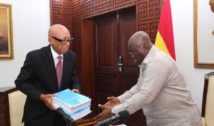

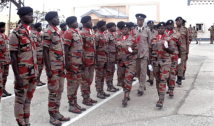




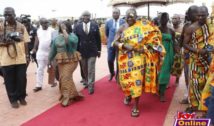
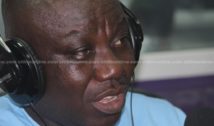

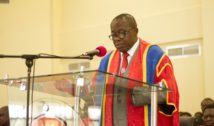


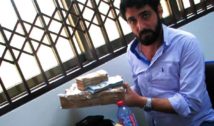




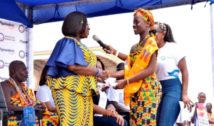
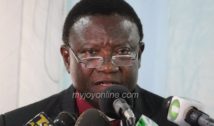
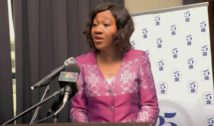

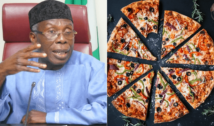

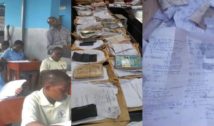

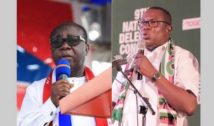




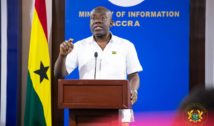
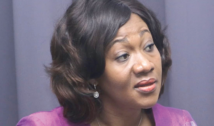
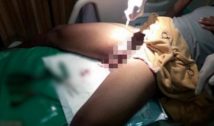

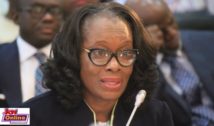
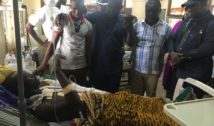

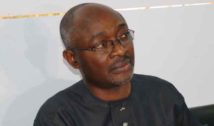
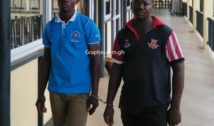

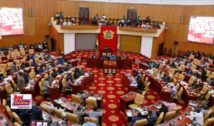
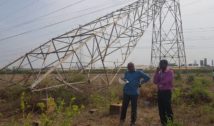
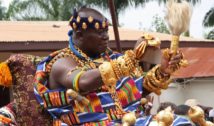
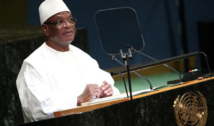
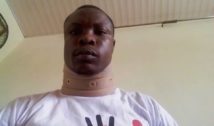
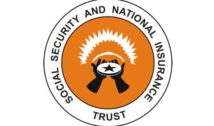

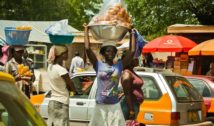






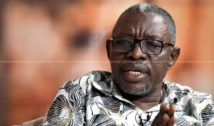




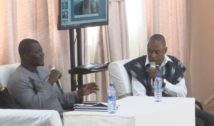

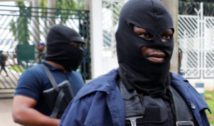



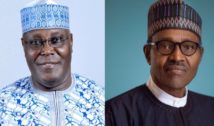
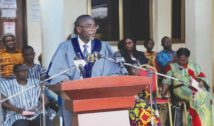

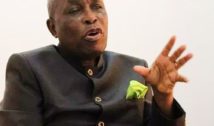
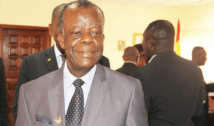
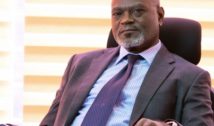
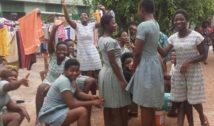


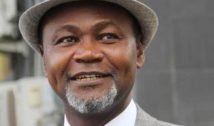


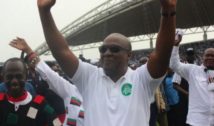
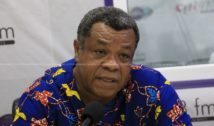
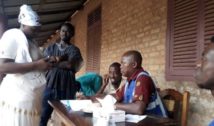
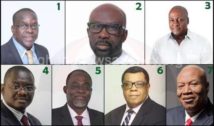


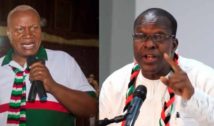


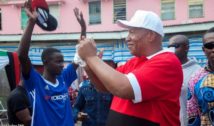

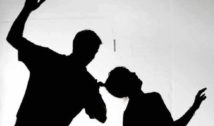

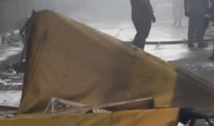

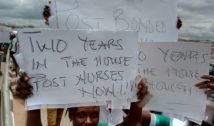

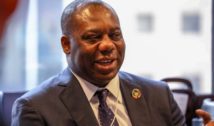

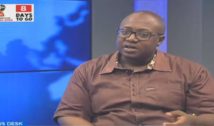
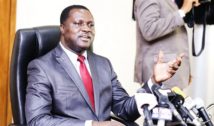
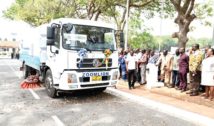

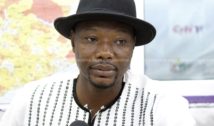
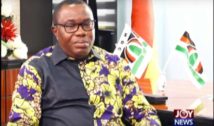
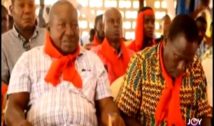




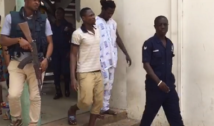

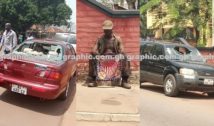
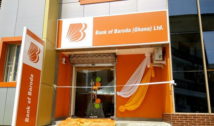
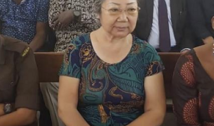

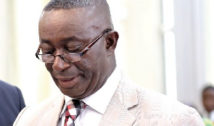
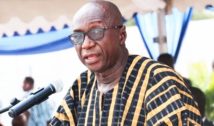


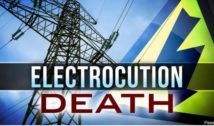
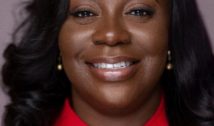
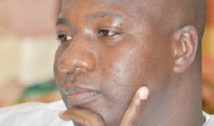

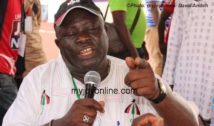
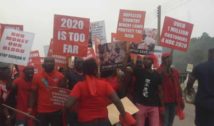

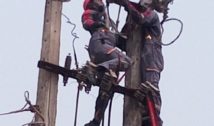
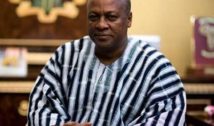
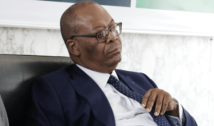




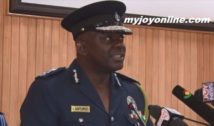


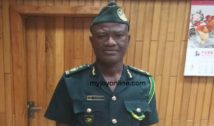
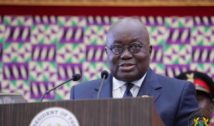
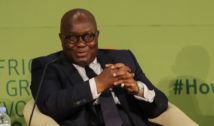
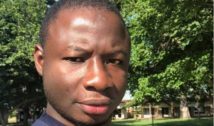
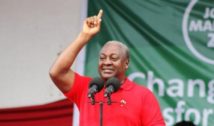
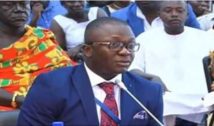

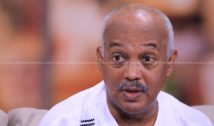
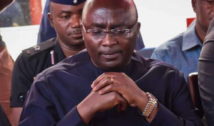


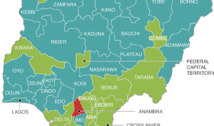




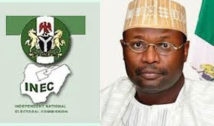
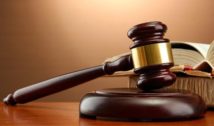



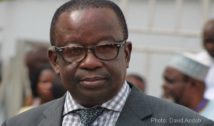










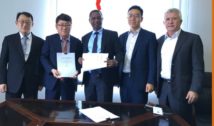

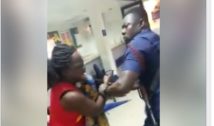



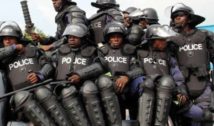



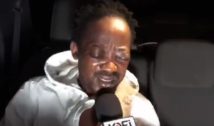
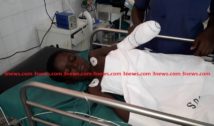

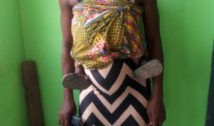

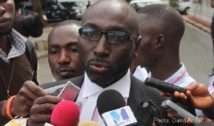



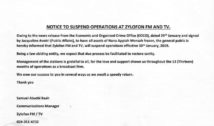

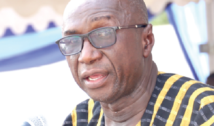
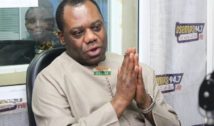

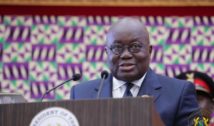
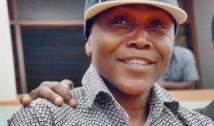



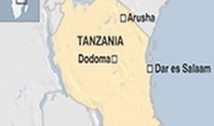
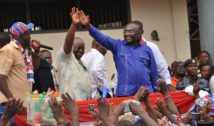


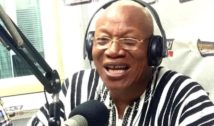
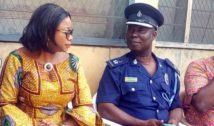
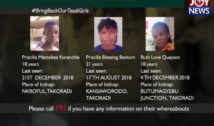

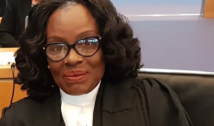


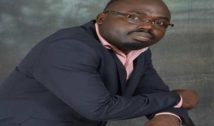

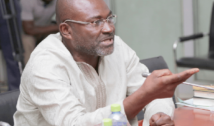





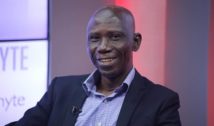

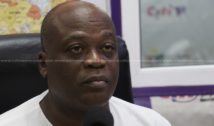
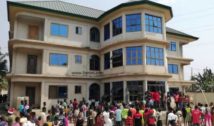


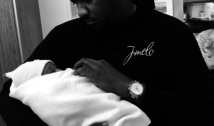
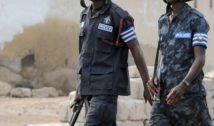
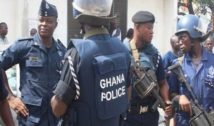
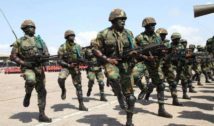
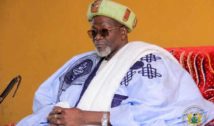



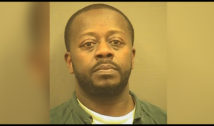
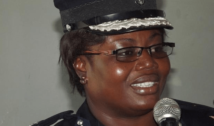

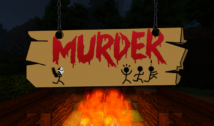

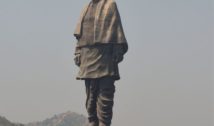
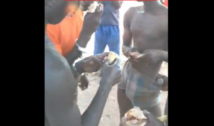
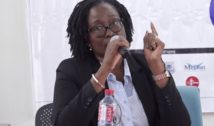
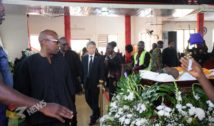


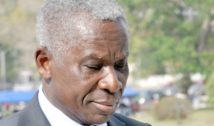
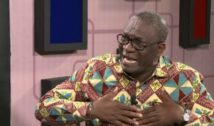



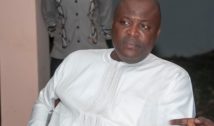

2,306 comments
The Confidential
10:34 amGreat goods from you, man. I’ve understand your stuff previous to and you’re just extremely great. I really like what you have acquired here, really like what you’re stating and the way in which you say it. You make it entertaining and you still care for to keep it wise. I cant wait to read much more from you. This is really a wonderful website.
https://tinyurl.com/4m8jyy8n
The Confidential
10:34 amThis page certainly has all of the information and facts I wanted concerning this subject and didn’t know who to ask.
https://tinyurl.com/fakazaio
The Confidential
10:34 amI have noticed that smart real estate agents almost everywhere are Marketing and advertising. They are acknowledging that it’s not just placing a sign post in the front yard. It’s really in relation to building associations with these vendors who later will become consumers. So, after you give your time and efforts to encouraging these retailers go it alone — the “Law regarding Reciprocity” kicks in. Great blog post.
https://homedesigninstitute.com/question/4748/job_as_interior_designer/
The Confidential
10:34 amIt?s really a nice and useful piece of information. I?m glad that you shared this useful information with us. Please keep us up to date like this. Thanks for sharing.
https://www.outlookindia.com/outlook-spotlight/fluxactive-complete-reviews-caution-prices-are-too-crazy–news-253312
The Confidential
10:34 amPretty! This was an incredibly wonderful article. Thank you for providing this info.
https://staff.blog.ui.ac.id/rendi.supiana/wisata-di-bogor-yang-dapat-dikunjungi/
The Confidential
10:34 amGood ? I should definitely pronounce, impressed with your website. I had no trouble navigating through all the tabs and related information ended up being truly easy to do to access. I recently found what I hoped for before you know it in the least. Quite unusual. Is likely to appreciate it for those who add forums or anything, website theme . a tones way for your client to communicate. Excellent task..
https://www.eurasc.org/supplements/prime-male-review/
The Confidential
10:34 amI?m impressed, I must say. Really rarely do I encounter a blog that?s each educative and entertaining, and let me inform you, you have got hit the nail on the head. Your concept is excellent; the issue is one thing that not sufficient people are talking intelligently about. I’m very joyful that I stumbled throughout this in my search for something regarding this.
https://www.jsbhealthcare.com
The Confidential
10:34 amMany thanks for this article. I would also like to convey that it can become hard when you are in school and just starting out to initiate a long credit ranking. There are many pupils who are simply trying to endure and have long or favourable credit history can sometimes be a difficult factor to have.
https://99bitcoins.com/buy-bitcoin/paypal/
The Confidential
10:34 amThere’s certainly a great deal to learn about this issue. I love all of the points you’ve made.
https://cotkan.ru/user/daisycloset13/
The Confidential
10:34 amHi, I do believe this is a great blog. I stumbledupon it 😉 I am going to come back once again since i have book marked it. Money and freedom is the greatest way to change, may you be rich and continue to help other people.
https://bookmarkjourney.com/story13971581/mp3-juice-complete-guide
The Confidential
10:34 amI do agree with all the ideas you have presented in your post. They’re very convincing and will definitely work. Still, the posts are very short for novices. Could you please extend them a bit from next time? Thanks for the post.
https://bitcoinwisdom.com/cryptosoft-review/
The Confidential
10:34 amVery good article. I definitely love this website. Continue the good work!
https://letsbookmarkit.com/story13966672/fakaza-io-full-guide
The Confidential
10:34 amThis page really has all of the info I needed about this subject and didn’t know who to ask.
https://thejillist.com/story3271544/about-fakaza-songs-download
The Confidential
10:34 amnaturally like your web site however you need to check the spelling on several of your posts. Several of them are rife with spelling issues and I in finding it very bothersome to inform the truth however I will surely come again again.
https://www.zoritolerimol.com
The Confidential
10:34 amNext time I read a blog, I hope that it doesn’t disappoint me as much as this one. I mean, Yes, it was my choice to read, however I genuinely believed you would probably have something useful to say. All I hear is a bunch of moaning about something you could possibly fix if you weren’t too busy looking for attention.
https://www.zsckr.edu.pl/test/forum/main-forum/17-recomendation/page15#post235
The Confidential
10:34 amHaving read this I believed it was rather enlightening. I appreciate you finding the time and effort to put this content together. I once again find myself spending a lot of time both reading and posting comments. But so what, it was still worth it.
http://www.oovideos.com/members/turnparcel42/activity/257895/
The Confidential
10:34 amSpot on with this write-up, I seriously think this site needs a lot more attention. I’ll probably be back again to read through more, thanks for the information.
https://music57924.dailyblogzz.com/20814956/kunci-simple-kehilanganmu-berat-buatku-rindu-band-tersingkap
The Confidential
10:34 amIt’s nearly impossible to find experienced people on this subject, however, you seem like you know what you’re talking about! Thanks
https://music39471.blogacep.com/21093072/rumored-hype-on-tubidy
The Confidential
10:34 amYou need to be a part of a contest for one of the greatest websites on the internet. I will recommend this web site!
https://socialbaskets.com/story14338603/panduan-inti-untuk-pokok-bacaan
The Confidential
10:34 amThere may be noticeably a bundle to know about this. I assume you made certain nice points in features also.
https://www.neurotonix–us.com/
The Confidential
10:34 amThere’s definately a lot to find out about this topic. I like all of the points you’ve made.
http://sc686.net/home.php?mod=space&uid=2090443
The Confidential
10:34 amI’d like to thank you for the efforts you have put in writing this site. I really hope to view the same high-grade content by you in the future as well. In truth, your creative writing abilities has motivated me to get my own, personal blog now 😉
https://spencerfj901.total-blog.com/not-understood-particulars-approximately-mp3-download-juice-41788945
The Confidential
10:34 amThank you for this article. I will also like to talk about the fact that it can always be hard while you are in school and simply starting out to initiate a long credit standing. There are many learners who are simply just trying to survive and have long or beneficial credit history is often a difficult issue to have.
https://cards2cash.co.uk/
The Confidential
10:34 amI have seen plenty of useful items on your web site about computers. However, I have the view that notebooks are still less than powerful more than enough to be a good selection if you often do jobs that require plenty of power, just like video croping and editing. But for net surfing, statement processing, and quite a few other common computer functions they are perfectly, provided you can’t mind the tiny screen size. Thank you sharing your thinking.
https://www.onthegotours.com/blog/2022/06/best-historic-sites-in-morocco/
The Confidential
10:34 amHi, I do believe this is an excellent blog. I stumbledupon it 😉 I am going to return once again since I book-marked it. Money and freedom is the best way to change, may you be rich and continue to guide other people.
http://www.avtoavto.ru/news.mhtml?PubID=12892
The Confidential
10:34 amI truly appreciate this post. I?ve been looking everywhere for this! Thank goodness I found it on Bing. You have made my day! Thank you again
https://fangwallet.com/
The Confidential
10:34 amGood article! We are linking to this particularly great content on our site. Keep up the great writing.
https://maniac-book.ru/user/bushage96/
The Confidential
10:34 amWhat i do not understood is actually how you are not really much more well-liked than you may be now. You’re so intelligent. You realize thus considerably relating to this subject, produced me personally consider it from numerous varied angles. Its like women and men aren’t fascinated unless it is one thing to accomplish with Lady gaga! Your own stuffs great. Always maintain it up!
https://www.prodentim-prodentim-prodentim.com/
The Confidential
10:34 amEverything is very open with a very clear clarification of the issues. It was definitely informative. Your website is extremely helpful. Thanks for sharing.
https://staff.blog.ui.ac.id/rendi.supiana/rekomendasi-10-lagu-pop-terpopuler-indonesia-terbaru-2022/
The Confidential
10:34 amEveryone loves it when individuals come together and share opinions. Great website, continue the good work.
https://tvsocialnews.com/story14417743/the-best-way-to-download-audio-and-video-clips-from-mp3juices
The Confidential
10:34 amAfter checking out a few of the blog posts on your site, I truly appreciate your technique of writing a blog. I bookmarked it to my bookmark website list and will be checking back in the near future. Please visit my web site as well and tell me your opinion.
http://www.ccwzz8.com/space-uid-1594352.html
The Confidential
10:34 amExcellent web site you’ve got here.. It’s hard to find quality writing like yours nowadays. I honestly appreciate people like you! Take care!!
https://downloadlagu321.icu
The Confidential
10:34 amEveryone loves it when people come together and share ideas. Great site, keep it up!
https://downloadlagu321.icu
The Confidential
10:34 amThanks alot : ) for your post. I would really like to comment that the cost of car insurance differs from one insurance plan to another, simply because there are so many different facets which contribute to the overall cost. By way of example, the brand name of the automobile will have a significant bearing on the cost. A reliable older family motor vehicle will have a more affordable premium over a flashy sports vehicle.
https://gamemobiles.net/2023/02/10/american-express-merchant-services/
The Confidential
10:34 amVery good post! We will be linking to this particularly great post on our website. Keep up the good writing.
https://bookmarkinginfo.com/story14098543/go-through-the-most-recent-trending-video-clips-get-ready-to-be-amazed
The Confidential
10:34 amYou’ve made some decent points there. I checked on the web for more information about the issue and found most individuals will go along with your views on this website.
https://louiskmipr.mybloglicious.com/38314681/rumored-excitement-on-ayra-starr-dash
The Confidential
10:34 amThanks for discussing your ideas. The one thing is that learners have a solution between federal government student loan plus a private education loan where it truly is easier to select student loan debt consolidation reduction than through the federal student loan.
https://www.youtube.com/watch?v=2l1a7QskEhc
The Confidential
10:34 amThis blog was… how do I say it? Relevant!! Finally I’ve found something which helped me. Cheers!
https://www.adultuse.com/members/bulbberry73/activity/210831/
The Confidential
10:34 amSaved as a favorite, I really like your web site.
https://cruzbytng.canariblogs.com/strategi-membaca-gitar-chord-lengkap-lewat-chordtela-32510356
The Confidential
10:34 amThis is a good tip particularly to those fresh to the blogosphere. Brief but very accurate information… Thanks for sharing this one. A must read article.
https://bookmarkerz.com/story14115361/the-wise-technique-of-tubidy-mp3-download-that-no-one-is-discussing
The Confidential
10:34 amIt’s hard to come by knowledgeable people about this topic, however, you seem like you know what you’re talking about! Thanks
https://techonpage.com/story14282499/the-smart-magic-formula-of-tubidy-that-no-person-is-speaking-about
The Confidential
10:34 amFantastic goods from you, man. I have understand your stuff prior to and you are simply extremely wonderful. I really like what you’ve got here, really like what you’re stating and the way in which during which you are saying it. You make it enjoyable and you continue to care for to keep it smart. I cant wait to learn far more from you. That is actually a terrific web site.
https://theintrovertreader.com/editing-and-proofreading-services/
The Confidential
10:34 amHello there, I believe your site could possibly be having internet browser compatibility problems. Whenever I take a look at your site in Safari, it looks fine however, if opening in IE, it’s got some overlapping issues. I simply wanted to provide you with a quick heads up! Besides that, excellent blog!
https://www.metooo.io/u/63f6bf43ee513771ed4b350c
The Confidential
10:34 amI like what you guys are up also. Such intelligent work and reporting! Carry on the superb works guys I have incorporated you guys to my blogroll. I think it will improve the value of my site 🙂
https://www.reverbnation.com/artist/fitnessdeadline7
The Confidential
10:34 amYou are so cool! I don’t think I’ve truly read through a single thing like this before. So great to discover somebody with some genuine thoughts on this subject matter. Really.. thank you for starting this up. This site is something that’s needed on the web, someone with a bit of originality.
https://spa.edu.tt/my-account/349
The Confidential
10:34 amWhen I originally left a comment I appear to have clicked on the -Notify me when new comments are added- checkbox and now each time a comment is added I get four emails with the same comment. Is there an easy method you are able to remove me from that service? Thank you.
http://www.thinktankwatch.com/2016/02/think-tank-quickies-205.html
The Confidential
10:34 amI’m very happy to discover this page. I need to to thank you for ones time for this particularly wonderful read!! I definitely appreciated every little bit of it and i also have you book marked to check out new things in your blog.
https://artdaily.cc/news/154770/Tubidy-Review–Download-Music-and-Watch-Video-Streaming-High-Quality
The Confidential
10:34 amGreetings, I believe your blog might be having browser compatibility problems. Whenever I look at your blog in Safari, it looks fine but when opening in Internet Explorer, it has some overlapping issues. I simply wanted to give you a quick heads up! Aside from that, wonderful blog.
https://www.grid.id/parapuan/read/533706381/bikin-konten-kamu-lebih-asyik-dengan-4-lagu-tiktok-viral-ini?page=all
The Confidential
10:34 amSpot on with this write-up, I truly believe that this amazing site needs far more attention. I’ll probably be back again to read more, thanks for the advice!
https://sugar.zhihu.com/plutus_adreaper?ui=59.46.229.90&tu=http://tubidy.org.za&au=4930&nt=0&idi=11001&ar=0.00012808402537437913&pdi=1537523490891052&ed=CjEEfh4wM317FDBVBWEoVEYjC3gNbm5yf0Z_XlU1eB1fdw8sWnQ7cy8Ta1UXMTYNXGNYI1x-aHB_F2RSFyAlDV50DnoMZTkpcxdgVwVkfxYIMQR6HiA1fXYUfF4IaXkDWHQPcwp3Y3h6AzAXDGF8AE0pTHcJcW5wexxlUQffDDr6SOUU-g==&ts=1542851633&pf=4
The Confidential
10:34 amI’m more than happy to find this web site. I wanted to thank you for your time for this particularly fantastic read!! I definitely enjoyed every bit of it and I have you book marked to look at new things in your website.
https://makassar.tribunnews.com/2023/02/23/simak-begini-cara-mudah-download-musik-offline-dengan-tubidy
The Confidential
10:34 amHi, I do believe this is an excellent website. I stumbledupon it 😉 I am going to come back once again since I book marked it. Money and freedom is the greatest way to change, may you be rich and continue to help other people.
http://tvs-magnetit.kz/user/lamptop90/
The Confidential
10:34 amIt?s actually a great and helpful piece of information. I am glad that you shared this useful information with us. Please keep us up to date like this. Thank you for sharing.
https://www.graphicsbytoni.com/ล่ากองหน้าของลีลล์/
The Confidential
10:34 amYour style is really unique in comparison to other people I’ve read stuff from. I appreciate you for posting when you’ve got the opportunity, Guess I’ll just book mark this page.
https://www.btwa.wa.edu.au/lms-user_profile/6647
The Confidential
10:34 amOne other important area is that if you are a senior citizen, travel insurance with regard to pensioners is something you should make sure you really look at. The old you are, the greater at risk you happen to be for permitting something terrible happen to you while in foreign countries. If you are never covered by quite a few comprehensive insurance cover, you could have quite a few serious problems. Thanks for revealing your suggestions on this web blog.
https://listproperty.ng/listing-location/abuja-fct/abuja/
The Confidential
10:34 amOh my goodness! Amazing article dude! Thanks, However I am experiencing difficulties with your RSS. I don’t understand why I can’t subscribe to it. Is there anybody else getting the same RSS issues? Anyone that knows the answer can you kindly respond? Thanx!!
https://staff.blog.ui.ac.id/rendi.supiana/uncovering-the-most-popular-music-in-the-world/
The Confidential
10:34 amI couldn’t resist commenting. Very well written.
https://rosalind.info/users/bangleera77
The Confidential
10:34 amI like it whenever people come together and share ideas. Great blog, keep it up.
https://staff.blog.ui.ac.id/rendi.supiana/tubidy-discover-the-benefits-of-music-streaming/
The Confidential
10:34 amAs I website possessor I believe the content material here is rattling magnificent , appreciate it for your efforts. You should keep it up forever! Good Luck.
http://sports.unisda.ac.id/champions-league-drawing-results-2022/
The Confidential
10:34 amI’ve learned many important things by means of your post. I’d personally also like to express that there will be a situation that you will get a loan and don’t need a co-signer such as a Fed Student Support Loan. But when you are getting financing through a regular financier then you need to be able to have a cosigner ready to enable you to. The lenders will probably base their very own decision on a few factors but the main one will be your credit standing. There are some creditors that will furthermore look at your job history and choose based on this but in almost all cases it will be based on on your report.
http://sxx21.com/what-you-should-really-know-when-choosing-a-high-threat-merchant-services-company/
The Confidential
10:34 amThanks for your publication. One other thing is the fact that individual states in the United states of america have their own laws of which affect home owners, which makes it quite difficult for the the legislature to come up with a different set of guidelines concerning property foreclosure on people. The problem is that each state offers own laws which may have interaction in a negative manner with regards to foreclosure policies.
https://www.werockthespectrumloudoun.com/
The Confidential
10:34 amHello there! This post could not be written any better! Reading through this article reminds me of my previous roommate! He always kept preaching about this. I will forward this post to him. Pretty sure he’ll have a great read. Thank you for sharing!
http://ieciudaddeasis.edu.co/aula/main/upload/users/2/2355/my_files/17-the-most-popular-music-genres-on-tubidy.html
The Confidential
10:34 amHi, I do think your blog might be having browser compatibility issues. When I look at your blog in Safari, it looks fine but when opening in Internet Explorer, it’s got some overlapping issues. I simply wanted to provide you with a quick heads up! Besides that, excellent site.
https://wolf-hvidberg.federatedjournals.com/woza-gibela
The Confidential
10:34 amHowdy! I simply want to offer you a huge thumbs up for the excellent info you’ve got here on this post. I’ll be returning to your web site for more soon.
http://stiedwisakti.ac.id/index.php?pilih=forum&modul=yes&action=viewthread&forum_id=0&thread_id=2916
The Confidential
10:34 amI appreciate, cause I found exactly what I was looking for. You’ve ended my 4 day long hunt! God Bless you man. Have a great day. Bye
https://usananosoft.com/product/stripe-verified-account/
The Confidential
10:34 amThanks for the guidelines you have discussed here. Something else I would like to express is that computer system memory specifications generally go up along with other advances in the engineering. For instance, when new generations of cpus are made in the market, there is certainly usually a corresponding increase in the shape calls for of both the pc memory and also hard drive room. This is because software program operated by way of these processors will inevitably increase in power to leverage the new know-how.
https://indonesia-wood-charcoal-s05569.jiliblog.com/74714137/the-definitive-guide-to-lump-charcoal-supplier-manufacture-indonesia
The Confidential
10:34 amThis is a topic that is close to my heart… Cheers! Exactly where can I find the contact details for questions?
https://thoroughbredpeople.com/api/clickthrough.php?type=banner&id=307&url=https://tubidy.org.za/
The Confidential
10:34 amI have been exploring for a little for any high-quality articles or blog posts on this sort of area . Exploring in Yahoo I at last stumbled upon this site. Reading this info So i?m happy to convey that I have a very good uncanny feeling I discovered exactly what I needed. I most certainly will make certain to do not forget this web site and give it a look on a constant basis.
https://www.realdildos.com/3d-printed-dildos/
The Confidential
10:34 amVery good article. I’m facing some of these issues as well..
https://arih-intiasari.blog.unsoed.ac.id/2023/03/03/hemat-penyimpanan-menggunakan-tubidy/
The Confidential
10:34 amI?m impressed, I need to say. Actually rarely do I encounter a weblog that?s each educative and entertaining, and let me inform you, you’ve hit the nail on the head. Your concept is outstanding; the problem is one thing that not enough individuals are speaking intelligently about. I am very completely happy that I stumbled across this in my seek for one thing regarding this.
https://almetals.cn/product/4×8-aluminum-sheet/
The Confidential
10:34 amAn outstanding share! I have just forwarded this onto a co-worker who had been doing a little research on this. And he in fact bought me breakfast due to the fact that I discovered it for him… lol. So allow me to reword this…. Thank YOU for the meal!! But yeah, thanx for spending the time to discuss this matter here on your blog.
https://osf.io/t4zjk/
The Confidential
10:34 amIt?s really a nice and useful piece of info. I am glad that you shared this helpful information with us. Please keep us informed like this. Thank you for sharing.
https://lookerstudio.google.com/u/0/reporting/416e8eed-1b4c-448d-8cd4-00a6e2118b54/page/VJjGD
The Confidential
10:34 amI have noticed that of all types of insurance, health care insurance is the most debatable because of the conflict between the insurance plan company’s need to remain profitable and the customer’s need to have insurance cover. Insurance companies’ earnings on well being plans have become low, so some organizations struggle to make money. Thanks for the suggestions you reveal through this web site.
https://nigellasativa.org/benefits-of-black-seed-oil/
The Confidential
10:34 amYou need to be a part of a contest for one of the highest quality blogs online. I am going to recommend this website!
https://cameradb.review/wiki/The_Best_Way_to_Download_Tracks_from_YouTube
The Confidential
10:34 amWonderful article! We will be linking to this great article on our website. Keep up the great writing.
https://www.letskinky.com/index.php?option=com_k2&view=itemlist&task=user&id=727437
The Confidential
10:34 amSpot on with this write-up, I truly think this site needs far more attention. I’ll probably be back again to see more, thanks for the info!
https://music75296.bloguerosa.com/19699423/5-tips-about-libianca-men-and-women-you-might-use-currently
The Confidential
10:34 amThanks for your article on this blog. From my personal experience, periodically softening upward a photograph could possibly provide the photographer with a bit of an artistic flare. Oftentimes however, that soft clouds isn’t just what you had as the primary goal and can in many cases spoil a normally good snapshot, especially if you intend on enlarging it.
https://csaf.net/
The Confidential
10:34 amPretty! This was a really wonderful article. Thank you for supplying these details.|
https://bookme.name/imjohneric
The Confidential
10:34 amEverything is very open with a very clear clarification of the issues. It was definitely informative. Your site is very useful. Many thanks for sharing!
https://git.project-hobbit.eu/imxamres
The Confidential
10:34 amVery nice post. I just stumbled upon your weblog and wanted to mention that I’ve really enjoyed browsing your weblog posts. After all I will be subscribing in your rss feed and I hope you write again very soon!
https://totoswing.com
The Confidential
10:34 amI have noticed that of all sorts of insurance, medical insurance is the most dubious because of the struggle between the insurance company’s obligation to remain adrift and the consumer’s need to have insurance policy. Insurance companies’ revenue on wellness plans have become low, hence some companies struggle to generate income. Thanks for the suggestions you reveal through this web site.
https://totobts.com/
The Confidential
10:34 amI think other site proprietors should take this web site as an model, very clean and great user friendly style and design, as well as the content. You are an expert in this topic!
https://watermanaustralia.com/product/zero-liquid-discharge-system-zld-system/
The Confidential
10:34 amIf you want to improve your experience only keep visiting this website and be updated with the most recent news update posted here.
https://thdhr.s3.us-west-1.amazonaws.com/about.html
The Confidential
10:34 amThanks for your publication. I would like to remark that the very first thing you will need to conduct is verify if you really need fixing credit. To do that you need to get your hands on a replica of your credit score. That should not be difficult, because the government necessitates that you are allowed to get one absolutely free copy of your real credit report on a yearly basis. You just have to inquire the right people. You can either browse the website for your Federal Trade Commission and also contact one of the leading credit agencies instantly.
http://ucnewswire.org/
The Confidential
10:34 amIt’s hard to find knowledgeable people about this subject, but you seem like you know what you’re talking about! Thanks
https://zaneqb359.blogdigy.com/the-particular-fact-about-chord-gitar-mahalini-sial-that-no-one-is-showing-31458881
The Confidential
10:34 amYou actually make it appear so easy with your presentation however I in finding this matter to be really something which I believe I would by no means understand. It sort of feels too complicated and very vast for me. I am taking a look forward to your subsequent post, I will attempt to get the dangle of it!
https://www.wugt.news/post/pr/November-28-2022/Taiwan-Semiconductor-Manufacturing-Company-Limited-to-Launch-3nm-Chips-for-the-US
The Confidential
10:34 amJust wish to say your article is as amazing. The clearness on your put up is just excellent and i could assume you’re an expert on this subject. Fine together with your permission let me to grasp your feed to keep up to date with drawing close post. Thanks one million and please keep up the rewarding work.|
https://www.philippplein-outlet.com/9577/about-home-health-sector-kantime-medicare-logon/
The Confidential
10:34 amI love reading through a post that can make people think. Also, thanks for permitting me to comment.
https://spa.edu.tt/my-account/488
The Confidential
10:34 amHey There. I found your blog using msn. This is a really well written article. I will be sure to bookmark it and come back to read more of your useful information. Thanks for the post. I will definitely return.
https://www.wugt.news/post/automotive/February-06-2023/Investments-in-the-nickel-industry-of-Indonesia
The Confidential
10:34 amThanks for the ideas you write about through this web site. In addition, lots of young women who become pregnant tend not to even make an effort to get medical insurance because they fear they couldn’t qualify. Although a few states at this point require that insurers give coverage in spite of the pre-existing conditions. Costs on these kind of guaranteed options are usually greater, but when taking into consideration the high cost of health care it may be some sort of a safer way to go to protect your financial future. Dr Vi PDO Thread Lift Melbourne 602A Bourke Street Melbourne Victoria Australia 3000
https://www.google.com/maps/place/602+Bourke+St,+Melbourne+VIC+3000/@-37.8161822,144.955908,17z/data=!3m1!4b1!4m5!3m4!1s0x6ad65d4c26c6aac1:0x1d7e87b56c266f95!8m2!3d-37.8161822!4d144.955908
The Confidential
10:34 amThis web site truly has all the information I needed concerning this subject and didn’t know who to ask.
https://tubidyorgza.contently.com
The Confidential
10:34 amThanks for your post. One other thing is the fact that individual states in the United states of america have their particular laws that will affect house owners, which makes it quite hard for the our lawmakers to come up with a different set of rules concerning home foreclosure on householders. The problem is that a state offers own laws and regulations which may have impact in an unwanted manner with regards to foreclosure procedures.
https://159.65.12.174/
The Confidential
10:34 amI do believe all of the concepts you’ve introduced on your post. They are very convincing and will definitely work. Still, the posts are very short for beginners. Could you please prolong them a bit from next time? Thank you for the post.
https://iptv-getline.com/
The Confidential
10:34 amNice post. I learn something totally new and challenging on websites I stumbleupon every day. It will always be exciting to read content from other authors and use a little something from other sites.
https://staff.blog.ui.ac.id/rendi.supiana/chord-komang-raim-laode-kunci-gitar-dasar-chordtela-lirik-lengkap/
The Confidential
10:34 amOh my goodness! Incredible article dude! Thank you so much, However I am having troubles with your RSS. I don’t understand why I cannot subscribe to it. Is there anyone else having the same RSS problems? Anyone who knows the solution can you kindly respond? Thanx!
https://www.musicplug.in
The Confidential
10:34 amI simply could not go away your website before suggesting that I extremely enjoyed the standard info a person supply on your visitors? Is gonna be again steadily to investigate cross-check new posts
https://savingspromocodes.com/bulk-office
The Confidential
10:34 amThank you for the good writeup. It actually was once a leisure account it. Glance complicated to more delivered agreeable from you! By the way, how can we keep in touch?
bokep viralokep viral
The Confidential
10:34 amNice read, I just passed this onto a colleague who was doing a little research on that. And he just bought me lunch because I found it for him smile So let me rephrase that: Thanks for lunch!
https://flyavia.ge/
The Confidential
10:34 amGreat info. Lucky me I discovered your site by chance (stumbleupon). I’ve saved as a favorite for later.
http://web.if.unila.ac.id/gudanglagu/download-lagu-insan-biasa-lesti-mp3.html
The Confidential
10:34 amThanks for your publication. I also feel that laptop computers have gotten more and more popular currently, and now are often the only sort of computer found in a household. It is because at the same time that they’re becoming more and more very affordable, their processing power is growing to the point where they may be as powerful as personal computers from just a few in years past.
https://www.thebergenbk.com/
The Confidential
10:34 amWhat?s Happening i’m new to this, I stumbled upon this I’ve found It positively helpful and it has aided me out loads. I hope to contribute & assist other users like its helped me. Good job.
https://metabo–flex.us/
The Confidential
10:34 amWay cool! Some very valid points! I appreciate you penning this write-up plus the rest of the website is also really good.
https://socialioapp.com/story14440568/tubidy-south-african-a-summary
The Confidential
10:34 amNice read, I just passed this onto a colleague who was doing a little research on that. And he actually bought me lunch as I found it for him smile Therefore let me rephrase that: Thank you for lunch!
https://sjmf.fh.unsyiah.ac.id/slot-gacor/
The Confidential
10:34 amOh my goodness! Amazing article dude! Thanks, However I am going through issues with your RSS. I don’t understand why I can’t subscribe to it. Is there anyone else having the same RSS issues? Anyone that knows the answer will you kindly respond? Thanx.
https://cj.xjyzgg.com/home.php?mod=space&uid=850462
The Confidential
10:34 amIt is appropriate time to make a few plans for the future and it is time to be happy. I have learn this submit and if I could I wish to suggest you some interesting issues or suggestions. Perhaps you can write subsequent articles relating to this article. I wish to read even more issues about it!
https://hoagiay.org/p/cay-hoa-giay-nhieu-mau-hoa-giay-ngu-sac-5-mau/
The Confidential
10:34 amHi, I do think this is a great web site. I stumbledupon it 😉 I may come back once again since i have bookmarked it. Money and freedom is the best way to change, may you be rich and continue to help others.
https://weheardit.stream/story.php?title=check-out-the-suitable-tubidy-mp3-downloader-a-in-depth-tutorial#discuss
The Confidential
10:34 amPretty nice post. I just stumbled upon your blog and wanted to say that I’ve truly enjoyed surfing around your blog posts. After all I will be subscribing to your rss feed and I hope you write again soon!
https://s3.us-east-1.wasabisys.com/ApplianceRepair/APR
The Confidential
10:34 amThanks for expressing your ideas on this blog. Furthermore, a fable regarding the banking companies intentions whenever talking about property foreclosures is that the standard bank will not getreceive my payments. There is a specific amount of time that this bank will take payments in some places. If you are far too deep in the hole, they should commonly require that you pay that payment entirely. However, i am not saying that they will have any sort of repayments at all. In the event you and the lender can have the ability to work a little something out, a foreclosure process may halt. However, in the event you continue to miss payments within the new strategy, the property foreclosures process can pick up exactly where it left off.
https://www.dailynewsen.com/877-area-code-s14.html
The Confidential
10:34 amI have observed that in the world of today, video games are definitely the latest trend with children of all ages. There are occassions when it may be not possible to drag your children away from the games. If you want the best of both worlds, there are various educational activities for kids. Interesting post.* JJ’s Ducted Gas Heating Repairs and Installation * 162 Mitchell Rd, Lilydale VIC 3140 * 0412 531 821
https://www.air-conditioning.net.au/
The Confidential
10:34 amFantastic items from you, man. I’ve consider your stuff prior to and you are just extremely magnificent. I really like what you’ve received right here, certainly like what you are stating and the way in which during which you are saying it. You are making it enjoyable and you still take care of to keep it sensible. I can’t wait to read far more from you. This is actually a wonderful web site.
https://bos99.id/mainkan-mesin-slot-online-dan-pastikan-kemenangan-anda-3/
The Confidential
10:34 amI was very pleased to discover this great site. I wanted to thank you for ones time for this wonderful read!! I definitely really liked every little bit of it and i also have you saved as a favorite to look at new stuff in your web site.
http://www.chooseabutt.com/cgi-bin/out.cgi?id=bootymon&url=https://tubidy.net.za/
The Confidential
10:34 amTake a look at our brands and find the next outfit for your party, evening out, holiday or just for everyday! Wide range of dresses for women, from summer dresses, evening dresses, to long gowns and one piece dresses.
https://bombb.com/
The Confidential
10:34 amThanks for the new stuff you have disclosed in your post. One thing I’d prefer to reply to is that FSBO connections are built after some time. By launching yourself to the owners the first saturday and sunday their FSBO is usually announced, ahead of masses start calling on Monday, you build a good interconnection. By mailing them tools, educational materials, free reports, and forms, you become a good ally. If you take a personal fascination with them plus their circumstances, you build a solid interconnection that, on most occasions, pays off if the owners decide to go with an agent they know plus trust — preferably you.
http://isoagentprogram.blogspot.com
The Confidential
10:34 amI have taken notice that in digital cameras, extraordinary devices help to {focus|concentrate|maintain focus|target|a**** automatically. Those sensors associated with some digital cameras change in in the area of contrast, while others work with a beam of infra-red (IR) light, especially in low lumination. Higher standards cameras from time to time use a mixture of both methods and may have Face Priority AF where the camera can ‘See’ any face while keeping your focus only in that. Many thanks for sharing your notions on this weblog.
https://decidetotravel.com/the-best-dim-sum-restaurants-in-hong-kong-a-foodies-guide/2023/03/21/
The Confidential
10:34 amGreat article. I’m dealing with a few of these issues as well..
https://edu-continua.americancollege.edu.ec/miembros/downloadlagump3
The Confidential
10:34 amI?ve read several good stuff here. Definitely worth bookmarking for revisiting. I wonder how much effort you put to create such a fantastic informative site.
https://arij.net/investigations/panadora-papers/Yemen-Oil/
The Confidential
10:34 amThis site was… how do you say it? Relevant!! Finally I’ve found something which helped me. Thanks!
https://www.ask-people.net/user/singleoxygen8
The Confidential
10:34 amI simply couldn’t leave your site prior to suggesting that I extremely loved the usual information an individual provide on your guests? Is gonna be again regularly in order to check out new posts
https://mp3juice.website
The Confidential
10:34 amYour style is really unique compared to other people I’ve read stuff from. Thank you for posting when you have the opportunity, Guess I will just bookmark this page.
https://andreswhpua.aboutyoublog.com/21886575/an-overview-of-download-lagu-gratis
The Confidential
10:34 amOh my goodness! an amazing article dude. Thanks However I’m experiencing subject with ur rss . Don?t know why Unable to subscribe to it. Is there anybody getting equivalent rss downside? Anybody who is aware of kindly respond. Thnkx
https://thungxop.net/thung-xop-nuoi-ca/
The Confidential
10:34 amCan I simply say what a relief to uncover someone that really knows what they’re talking about on the internet. You actually realize how to bring a problem to light and make it important. More people really need to check this out and understand this side of your story. I was surprised you are not more popular since you surely possess the gift.
https://kit.co/downloadlagunet
The Confidential
10:34 amI have learned newer and more effective things through your blog post. Also a thing to I have recognized is that normally, FSBO sellers can reject people. Remember, they might prefer never to use your products and services. But if an individual maintain a steady, professional partnership, offering support and keeping contact for around four to five weeks, you will usually be able to win a business interview. From there, a house listing follows. Many thanks
https://ikaria-juice.net
The Confidential
10:34 amA formidable share, I simply given this onto a colleague who was doing a little bit analysis on this. And he the truth is purchased me breakfast because I found it for him.. smile. So let me reword that: Thnx for the deal with! But yeah Thnkx for spending the time to discuss this, I really feel strongly about it and love studying extra on this topic. If attainable, as you change into expertise, would you mind updating your blog with extra details? It’s extremely helpful for me. Big thumb up for this blog put up!
https://ikariajuices.org
The Confidential
10:34 amI have realized that over the course of developing a relationship with real estate managers, you’ll be able to come to understand that, in every single real estate transaction, a percentage is paid. Eventually, FSBO sellers tend not to “save” the percentage. Rather, they struggle to earn the commission by simply doing an agent’s job. In doing this, they devote their money and also time to conduct, as best they can, the assignments of an representative. Those jobs include getting known the home through marketing, introducing the home to prospective buyers, creating a sense of buyer desperation in order to prompt an offer, scheduling home inspections, controlling qualification checks with the loan provider, supervising fixes, and assisting the closing.
https://www.smkn1perhentianraja.sch.id/read/10/cara-menulis-daftar-pustaka/
The Confidential
10:34 amI’m amazed, I must say. Seldom do I encounter a blog that’s equally educative and amusing, and let me tell you, you have hit the nail on the head. The problem is something that too few people are speaking intelligently about. I’m very happy I came across this during my search for something relating to this.
https://campusweb.myunion.edu/ICS/icsfs/4-jam-out-to-your-favorite-tunes-with-tubidys-mp3-.html?target=3a952830-c9f8-480d-b2b3-1c251c554407
The Confidential
10:34 amOh my goodness! an incredible article dude. Thanks Nevertheless I’m experiencing issue with ur rss . Don?t know why Unable to subscribe to it. Is there anyone getting an identical rss problem? Anyone who is aware of kindly respond. Thnkx
https://cleartest.com/
The Confidential
10:34 amSaved as a favorite, I like your blog.
https://www.google.it/url?q=https://mp3juice.org.uk
The Confidential
10:34 amAw, this was a really good post. Finding the time and actual effort to create a great article… but what can I say… I hesitate a whole lot and don’t manage to get anything done.
https://lorenzoaxsme.boyblogguide.com/20091790/tubidy-review
The Confidential
10:34 amThe following time I learn a weblog, I hope that it doesnt disappoint me as much as this one. I imply, I know it was my option to learn, however I truly thought youd have one thing attention-grabbing to say. All I hear is a bunch of whining about one thing that you can fix if you werent too busy looking for attention.
https://www.gdsgt.net
The Confidential
10:34 amThanks for revealing your ideas listed here. The other matter is that each time a problem takes place with a laptop or computer motherboard, individuals should not consider the risk of repairing that themselves because if it is not done properly it can lead to irreparable damage to all the laptop. In most cases, it is safe to approach the dealer of a laptop with the repair of its motherboard. They’ve technicians that have an skills in dealing with mobile computer motherboard issues and can carry out the right diagnosis and conduct repairs.
https://www.elovedolls.com/sex-doll-torso.html
The Confidential
10:34 amAnother thing I’ve noticed is that for many people, less-than-perfect credit is the reaction to circumstances beyond their control. Such as they may be actually saddled by having an illness so that they have substantial bills going to collections. It could be due to a occupation loss or inability to go to work. Sometimes divorce or separation can really send the money in a downward direction. Thanks sharing your thinking on this web site.
https://www.testclear.com
The Confidential
10:34 amThanks for the good writeup. It in fact was a amusement account it. Look advanced to more introduced agreeable from you! By the way, how could we keep in touch?Mathew J Anti-Wrinkle Injections 58 Cotham Road, Kew VIC 3101
http://bit.ly/3ZkTPYV
The Confidential
10:34 amI used to be very happy to seek out this web-site.I wished to thanks in your time for this excellent learn!! I definitely having fun with each little bit of it and I have you bookmarked to check out new stuff you weblog post.
https://www.remington-870.store
The Confidential
10:34 amGreat items from you, man. I’ve understand your stuff previous to and you’re simply too magnificent. I really like what you have received right here, certainly like what you are saying and the way in which wherein you say it. You make it enjoyable and you still take care of to keep it sensible. I can not wait to read much more from you. That is really a terrific web site.
https://pushcarts.store
The Confidential
10:34 amWhen I initially commented I appear to have clicked the -Notify me when new comments are added- checkbox and now every time a comment is added I receive 4 emails with the exact same comment. Is there an easy method you are able to remove me from that service? Kudos.
https://kit.co/tubidynetza
The Confidential
10:34 amThanks for your write-up. What I want to comment on is that when you are evaluating a good internet electronics go shopping, look for a site with complete information on important factors such as the security statement, basic safety details, any payment methods, and other terms along with policies. Constantly take time to see the help in addition to FAQ areas to get a far better idea of how the shop performs, what they are able to do for you, and in what way you can maximize the features.
https://greenfleets.org/
The Confidential
10:34 amI like the helpful information you supply on your articles. I will bookmark your blog and test again here regularly. I’m moderately sure I will be told plenty of new stuff right here! Good luck for the next!
https://urinedrugtesthq.com/
The Confidential
10:34 amHi, I do believe this is a great web site. I stumbledupon it 😉 I may return yet again since I book-marked it. Money and freedom is the best way to change, may you be rich and continue to help others.
http://poltekkpsidoarjo.kkp.go.id/index.php?pilih=forum&modul=yes&action=viewthread&forum_id=26&thread_id=74113
The Confidential
10:34 amIt’s perfect time to make a few plans for the longer term and it’s time to be happy. I’ve read this submit and if I could I desire to recommend you some fascinating things or advice. Maybe you could write next articles regarding this article. I want to learn more issues about it!
https://vecindia.es/arrendamientos/demanda-por-incumplimiento-de-contrato-de-arrendamiento/
The Confidential
10:34 amOne more issue is really that video gaming has become one of the all-time most important forms of recreation for people of various age groups. Kids engage in video games, plus adults do, too. Your XBox 360 is one of the favorite video games systems for many who love to have hundreds of games available to them, as well as who like to learn live with other folks all over the world. Thank you for sharing your ideas.
https://www.inkstation.com.au/3d-filament.html
The Confidential
10:34 amYou have made some good points there. I checked on the net for additional information about the issue and found most people will go along with your views on this site.
https://www.lafss.com/?ads_click=1&data=6759-6756-6755-3532-4&redir=http://tubidy.web.za&c_url=https://cutepix.info/sex/riley-reyes.php
The Confidential
10:34 amHi, I do think this is an excellent web site. I stumbledupon it 😉 I am going to revisit yet again since i have book-marked it. Money and freedom is the greatest way to change, may you be rich and continue to guide others.
https://cms.phbs.pku.edu.cn/claroline/phpbb/viewtopic.php?topic=282&cidReset=true&cidReq=BM956
The Confidential
10:34 amThere is definately a great deal to know about this issue. I like all the points you’ve made.
https://bookmarkgenius.com/story14393730/audio-options
The Confidential
10:34 amThank you for every other informative web site. The place else may I am getting that kind of info written in such an ideal way? I have a mission that I am just now working on, and I have been at the look out for such info.
https://nabd.com/s/113878591-ff041d/D985D8ACD985D988D8B9D8A9-D8A7D984D8ADD8ABD98AD984D98A-D985D986-D8AED984D8A7D984-D8B4D8B1D983D8A7D8AAD987D8A7-D985D8B9-D8B4D8B1D983D8A7D8AA-D8B9D8A7D984D985D98AD8A9-D981D98A-D8AAD8AAD8A7D8A8D8B9-D8AED8B7D8B7D987D8A7-D8A7D984D8AAD988D8B3D8B9D98AD8A9-D988D8A7D984D8A7D8B3D8AAD8ABD985D8A7D8B1D98AD8A9-D981D98A-D8B9D8AFD8AF-D985D986-D8A7D984D8A3D8B3D988D8A7D982-D8A7D984D8A5D982D984D98AD985D98AD8A9
The Confidential
10:34 amI’d like to thank you for the efforts you have put in penning this blog. I really hope to check out the same high-grade content by you in the future as well. In fact, your creative writing abilities has encouraged me to get my own, personal blog now 😉
https://setan2020.blogspot.com/2023/04/musik-seni-yang-mendalami-kehidupan.html
The Confidential
10:34 amI have been surfing online more than 3 hours today, yet I never found any interesting article like yours. It?s pretty worth enough for me. In my view, if all website owners and bloggers made good content as you did, the web will be a lot more useful than ever before.
https://hargaterbaru.net/2023/04/03/relax-on-a-spa-vacation/
The Confidential
10:34 amI must thank you for the efforts you’ve put in writing this blog. I’m hoping to view the same high-grade content from you in the future as well. In truth, your creative writing abilities has encouraged me to get my own website now 😉
https://grupoperuinnova.edu.pe/members/tubidyweb
The Confidential
10:34 amSimply wish to say your article is as astounding. The clearness on your publish is just cool and i could assume you’re an expert on this subject. Fine along with your permission let me to seize your feed to stay updated with approaching post. Thank you 1,000,000 and please keep up the gratifying work.
https://playslot77jackpot.win/slot/spade_slot
The Confidential
10:34 amThanks for the suggestions you have shared here. Another thing I would like to state is that pc memory demands generally increase along with other breakthroughs in the technology. For instance, when new generations of processors are brought to the market, there’s usually a corresponding increase in the scale calls for of both laptop or computer memory along with hard drive space. This is because the software operated by way of these cpus will inevitably increase in power to leverage the new technological know-how.
https://bestisoagentprogram.blogspot.com/2023/03/top-rated-spa-and-salon-pos-system.html
The Confidential
10:34 amHello, I do believe your website could be having internet browser compatibility problems. Whenever I take a look at your blog in Safari, it looks fine however when opening in Internet Explorer, it’s got some overlapping issues. I merely wanted to provide you with a quick heads up! Other than that, fantastic website!
https://lanefqyfp.blogerus.com/40558245/not-acknowledged-useful-assertions-about-tubidy-download
The Confidential
10:34 amIts like you learn my mind! You seem to know a lot about this, such as you wrote the ebook in it or something. I believe that you just can do with some p.c. to pressure the message home a little bit, however instead of that, that is magnificent blog. A fantastic read. I’ll certainly be back.
https://www.artporat.com/
The Confidential
10:34 amI like the helpful information you supply for your articles. I will bookmark your weblog and take a look at again here regularly. I’m slightly certain I will be told many new stuff proper right here! Best of luck for the following!
https://playslot77jackpot.win/slot/pg_slot
The Confidential
10:34 amGood ? I should definitely pronounce, impressed with your site. I had no trouble navigating through all tabs as well as related information ended up being truly simple to do to access. I recently found what I hoped for before you know it at all. Reasonably unusual. Is likely to appreciate it for those who add forums or something, website theme . a tones way for your client to communicate. Nice task..
https://masstamilanfree.in/the-best-boat-earphones-for-the-perfect-gift/
The Confidential
10:34 amYoure so cool! I dont suppose Ive learn anything like this before. So nice to search out anyone with some unique ideas on this subject. realy thanks for beginning this up. this web site is something that’s needed on the internet, someone with a little originality. useful job for bringing one thing new to the internet!
https://www.huge-dildos.com/heated-dildos/
The Confidential
10:34 amTerrific work! That is the kind of info that are supposed to be shared across the web. Shame on Google for no longer positioning this publish upper! Come on over and consult with my web site . Thank you =)
https://playslot77jackpot.win/slot/ygg_slot
The Confidential
10:34 amA person essentially help to make seriously posts I would state. This is the very first time I frequented your website page and thus far? I amazed with the research you made to create this particular publish amazing. Magnificent job!
https://yzbuwoercmje.compat.objectstorage.ca-toronto-1.oraclecloud.com/winnipeg-painting-company2/winnipeg-painting-company2/what-is-the-secret-to-picture-perfect-paint-jobs-winnipeg-painting-firm-has-the-answer.html
The Confidential
10:34 amThanks for sharing your ideas on this blog. Also, a myth regarding the banks intentions any time talking about home foreclosure is that the standard bank will not have my installments. There is a specific amount of time that this bank requires payments here and there. If you are too deep in the hole, they are going to commonly call that you pay that payment entirely. However, that doesn’t mean that they will have any sort of payments at all. In the event you and the financial institution can seem to work something out, this foreclosure procedure may cease. However, if you ever continue to skip payments underneath the new system, the foreclosure process can pick up where it was left off.
https://medical-spa-abbotsford-1.s3.amazonaws.com/what-is-medical-health-facility-abbotsford-as-well-as-how-can-it-help-enhance-your-wellbeing.html
The Confidential
10:34 amThanks , I have just been looking for info about this subject for ages and yours is the best I have discovered till now. But, what about the conclusion? Are you sure about the source?
https://events.education.ne.gov/user/jimmie3576/
The Confidential
10:34 amI have been absent for a while, but now I remember why I used to love this blog. Thanks , I¦ll try and check back more often. How frequently you update your web site?
https://playslot77jackpot.win/slot/pragmatic_slot
The Confidential
10:34 amI?ve been exploring for a little for any high-quality articles or weblog posts on this sort of area . Exploring in Yahoo I finally stumbled upon this website. Reading this info So i am glad to exhibit that I have an incredibly good uncanny feeling I discovered exactly what I needed. I so much for sure will make certain to don?t fail to remember this web site and give it a glance regularly.
https://www.personal-reviews.com/
The Confidential
10:34 amLove your blog! If you are ever in Nebraska, check out Omaha’s best chef-driven catering & party rooms in the metro area for over 25 years. Restaurants Inc. is known for its delicious American, Italian & Southwest Mexican dishes and as a locally and family-owned business, we understand the importance of having meticulous detail with whatever event you’re planning.
https://www.restaurantsinc.net
The Confidential
10:34 amWay cool! Some extremely valid points! I “강남풀싸롱” appreciate you writing
The Confidential
10:34 amAw, this was a really nice post. In thought I want to put in writing like this moreover ? taking time and actual effort to make a very good article? but what can I say? I procrastinate alot and by no means appear to get something done.
https://gfycat.com/@reformaszaragoza
The Confidential
10:34 amI have discovered some new points from your web page about computer systems. Another thing I have always assumed is that computer systems have become a specific thing that each residence must have for several reasons. They provide convenient ways to organize the home, pay bills, go shopping, study, listen to music and in some cases watch television shows. An innovative solution to complete all of these tasks is by using a notebook. These computers are mobile ones, small, effective and lightweight.
https://costplusjunkremoval.com/what-we-take/furniture-removal/
The Confidential
10:34 amThis is the suitable blog for anybody who desires to search out out about this topic. You realize so much its almost onerous to argue with you (not that I actually would want?HaHa). You positively put a brand new spin on a subject thats been written about for years. Nice stuff, simply great!
https://bookmarkinglive.com/story10224144/reformas-zaragoza
The Confidential
10:34 amGreat post. I was checking constantly this blog and I’m impressed! Very useful info particularly the last part 🙂 I care for such info much. I was looking for this certain information for a very long time. Thank you and good luck.
https://learnician.com
The Confidential
10:34 amI’m amazed, I must say. Rarely do I encounter a blog that’s equally educative and amusing, and without a doubt, you’ve hit the nail on the head. The issue is something which not enough people are speaking intelligently about. I am very happy that I came across this during my search for something concerning this.
https://blogs.depaul.edu/mespin33/2023/04/20/tubidy-the-ultimate-music-download-and-video-streaming-platform/
The Confidential
10:34 amWe are the Worlds Largest Cannabis Seedbank with over 100,000 marijuana seed strains in stock.
https://momseedbank.com/
The Confidential
10:34 amWay cool! Some extremely valid points! I “강남풀싸롱” appreciate you writing very fantastic website.
The Confidential
10:34 amExcellent article. I’m experiencing some of these issues as well..
https://tubidy.org.za
The Confidential
10:34 amEverything is very open with a really clear explanation of the issues. It was definitely informative. Your site is very helpful. Thanks for sharing.
https://downloadlagu321.sbs
The Confidential
10:34 amI have been looking for articles on these topics for a long time. majorsite I don’t know how grateful you are for posting on this topic. Thank you for the numerous articles on this site, I will subscribe to those links in my bookmarks and visit them often. Have a nice day
The Confidential
10:34 amThis is a topic which is close to my heart… Many thanks! Where are your contact details though?
https://dominickma088.humor-blog.com/20674502/check-into-this-report-on-sizeable-zulu-track-down-load
The Confidential
10:34 amHi, I do think this is a great web site. I stumbledupon it 😉 I may return once again since I book marked it. Money and freedom is the greatest way to change, may you be rich and continue to guide others.
https://note1s.com/notes/RZ9JHJ31
The Confidential
10:34 amIt is appropriate time to make some plans for the future and it’s time to be happy. I have read this post and if I could I desire to suggest you few interesting things or advice. Perhaps you can write next articles referring to this article. I want to read even more things about it!
https://web-design-new-jersey-5.b-cdn.net/what-is-the-very-best-method-to-make-your-brand-name-stand-apart-in-new-jersey-website-design-provider-from-specialists.html
The Confidential
10:34 amI have learned result-oriented things from a blog post. One other thing I have found is that typically, FSBO sellers can reject people. Remember, they might prefer to never use your companies. But if anyone maintain a gentle, professional relationship, offering aid and staying in contact for around four to five weeks, you will usually manage to win a business interview. From there, a house listing follows. Thanks a lot
https://hireproctor.com/
The Confidential
10:34 amSpot on with this write-up, I really feel this website needs a great deal more attention. I’ll probably be back again to read more, thanks for the information!
https://www.theexpresswire.com/pressrelease/Tubidy-the-Ultimate-Platform-for-Seamless-Music-and-Video-Streaming_20906636
The Confidential
10:34 amExcellent post. I was checking constantly this blog and I’m impressed! Extremely useful info specially the last part 🙂 I care for such information a lot. I was looking for this particular info for a very long time. Thank you and good luck.
https://deutschekleidung.com/read-blog/4815
The Confidential
10:34 amOh my goodness! a tremendous article dude. Thanks However I’m experiencing concern with ur rss . Don?t know why Unable to subscribe to it. Is there anyone getting equivalent rss downside? Anyone who knows kindly respond. Thnkx
https://storage.googleapis.com/divorce-lawyers-surrey/what-is-the-best-way-to-discover-separation-lawyers-in-surrey.html
The Confidential
10:34 amhave already been reading ur blog for a couple of days. really enjoy what you posted. btw i will be doing a report about this topic<a href=바카라사이트do you happen to know any great websites or forums that I can find out more? thanks a lot.
The Confidential
10:34 amI am always searching online for ideas that can benefit me. Thx!
https://betwing88.wheelmonk.com/
The Confidential
10:34 amMy brother suggested I might like this website. He was totally right. This post actually made my day. You cann’t imagine just how much time I had spent for this information! Thanks!
https://usc1.contabostorage.com/e8e1b3b0d4bf4e5895ff63e0b8456bf4:chiropractor-port-moody/what-is-the-secret-to-pain-free-living-attempt-chiropractic-practitioner-port-moody-7.html
The Confidential
10:34 amIts such as you learn my mind! You appear to understand a lot approximately this, such as you wrote the e-book in it or something. I think that you can do with some p.c. to pressure the message home a little bit, but instead of that, that is wonderful blog. A fantastic read. I will definitely be back.
https://sensaslot88.iadc-online.org/
The Confidential
10:34 amHello there, I found your blog via Google while searching for a related topic, your web site came up, it looks great. I’ve bookmarked it in my google bookmarks.
https://costplusjunkremoval.com/what-we-take/mattress-removal/
The Confidential
10:34 amI don?t even know how I ended up here, but I thought this post was great. I don’t know who you are but certainly you are going to a famous blogger if you are not already 😉 Cheers!
https://costplusjunkremoval.com/home-junk-removal/
The Confidential
10:34 amThanks for enabling me to get new ideas about pc’s. I also have belief that one of the best ways to keep your notebook in best condition is to use a hard plastic case, or perhaps shell, that matches over the top of the computer. These kinds of protective gear tend to be model specific since they are made to fit perfectly in the natural covering. You can buy these directly from the seller, or through third party sources if they are available for your mobile computer, however its not all laptop will have a shell on the market. Once again, thanks for your points.
https://www.youtube.com/watch?v=1cObDeG6cP0
The Confidential
10:34 amCan I just say what a comfort to uncover somebody that actually understands what they’re discussing online. You actually realize how to bring an issue to light and make it important. More and more people need to read this and understand this side of your story. It’s surprising you are not more popular because you most certainly possess the gift.
https://www.marketwatch.com/press-release/mp3juice-your-ultimate-guide-to-seamless-mp3-music-downloads-2023-05-09
The Confidential
10:34 amThanks for your post. One other thing is always that individual American states have their own laws which affect homeowners, which makes it very hard for the the legislature to come up with a new set of recommendations concerning property foreclosure on house owners. The problem is that every state provides own laws which may interact in an adverse manner in regards to foreclosure policies.
https://ko-fi.com/reformasintegraleszaragoza#paypalModal
The Confidential
10:34 amThanks for these guidelines. One thing I should also believe is credit cards supplying a 0 apr often bait consumers in zero interest rate, instant approval and easy on the web balance transfers, nevertheless beware of the most recognized factor that will void your 0 easy street annual percentage rate and as well as throw anybody out into the bad house quick.
https://www.honolulunewsnow.com/news/story/383649/luxuryhotelreviewuk-launches-comprehensive-luxury-hotel-review-service-to-guide-discerning-travellers.html
The Confidential
10:34 amWonderful post! We will be linking to this great post on our website. Keep up the good writing.
https://staff.blog.ui.ac.id/rendi.supiana/review-fakaza/
The Confidential
10:34 amI would also like to express that most of those that find themselves without having health insurance are normally students, self-employed and people who are not working. More than half on the uninsured are under the age of Thirty five. They do not experience they are needing health insurance since they are young in addition to healthy. Their own income is typically spent on housing, food, as well as entertainment. Many people that do work either complete or as a hobby are not offered insurance via their jobs so they move without owing to the rising cost of health insurance in the usa. Thanks for the tips you discuss through this site.
https://card.tv.br/
The Confidential
10:34 amI delight in, lead to I discovered exactly what I was taking a look for. You’ve ended my 4 day long hunt! God Bless you man. Have a great day. Bye
https://twitter.com/krsirmsukh1
The Confidential
10:34 amBookmarked. Kindly also seek“오피스북” advice from my site We could have a hyperlink alternate arrangement among us
The Confidential
10:34 amMost of the things you state happens to be astonishingly accurate and that makes me ponder why I hadn’t looked at this with this light previously. This particular piece truly did switch the light on for me personally as far as this particular subject matter goes. Nevertheless at this time there is actually one particular point I am not necessarily too cozy with and while I attempt to reconcile that with the central idea of your point, let me see what the rest of the readers have to say.Very well done.
https://insutecquevedo.edu.ec/members/ronaldfeliciano
The Confidential
10:34 amHi there! I simply wish to give you a big thumbs up for your great info you’ve got right here on this post. I’ll be returning to your web site for more soon.
https://www.boredpanda.com/author/ladegaardroach581/
The Confidential
10:34 amMy brother suggested I might like this blog. He used to be entirely right. This submit truly made my day. You can not consider just how much time I had spent for this info! Thank you!
https://participate.oidp.net/profiles/byron52346/activity
The Confidential
10:34 amA motivating discussion is definitely worth comment. I do believe that you need to write more on this topic, it may not be a taboo matter but typically people don’t speak about these topics. To the next! All the best.
https://bookmarkproduct.com/story14771909/chevy-trax-2024-all-the-details
The Confidential
10:34 amI want to to thank you for this fantastic read!! I absolutely loved every bit of it. I’ve got you book-marked to look at new things you post…
https://erickqs647.activosblog.com/21396881/south-african-music-download-imithente-upoison-music
The Confidential
10:34 amwhoah this blog is great i love reading your articles. Keep up the great work! You know, many people are hunting around for this info, you can aid them greatly.
https://321555g.com/what-exactly-is-bank-card-running-and-also-how-come-that-crucial/
The Confidential
10:34 amThanks for your handy post. As time passes, I have come to understand that the actual symptoms of mesothelioma cancer are caused by the build up connected fluid between your lining of your lung and the torso cavity. The ailment may start within the chest location and spread to other areas of the body. Other symptoms of pleural mesothelioma include weight reduction, severe breathing trouble, vomiting, difficulty ingesting, and infection of the face and neck areas. It needs to be noted that some people living with the disease will not experience almost any serious symptoms at all.
https://se9198.com/service-provider-solutions-string-the-price-tag-on-plastic-card-control-alternatives/
The Confidential
10:34 amSpot on with this write-up, I absolutely feel this website needs far more
“오피스북”
attention. Iíll probably be returning to see more, thanks for the advice!
The Confidential
10:34 amI?ve been exploring for a little bit for any high quality articles or blog posts on this kind of area . Exploring in Yahoo I finally stumbled upon this site. Studying this info So i am happy to show that I’ve an incredibly good uncanny feeling I discovered just what I needed. I such a lot without a doubt will make certain to don?t overlook this website and provides it a glance regularly.
https://cloudmeida.com/how-to-benefit-from-a-merchant-service-provider/
The Confidential
10:34 amHi there, just changed into alert to your weblog via Google, and located that it is really informative. I?m going to be careful for brussels. I will appreciate in the event you proceed this in future. Numerous other people will likely be benefited from your writing. Cheers!
https://www.amazon.com/gp/product/B08WK63YDH
The Confidential
10:34 amWhat i do not realize is in reality how you are now not actually a lot more neatly-preferred than you might be now. You are very intelligent. You recognize thus considerably when it comes to this topic, produced me personally believe it from a lot of varied angles. Its like women and men are not fascinated except it?s something to do with Lady gaga! Your own stuffs outstanding. Always handle it up!
https://s3.us-east-1.wasabisys.com/janitorial-cleaning-products-cambridge-1/what-is-the-secret-to-a-clean-as-well-as-healthy-and-balanced-work-environment-cambridge-janitorial-a-cleaning-products-have-the-answer.html
The Confidential
10:34 amI think other website proprietors should take this site as an model, very clean and wonderful user genial style and design, let alone the content. You’re an expert in this topic!
https://medium.com/@speckygeek
The Confidential
10:34 amI like the valuable info you provide in your articles. I will bookmark your weblog and check again here frequently. I am quite sure I will learn a lot of new stuff right here! Good luck for the next!
https://mawartoto.pn-padangsidimpuan.go.id/
The Confidential
10:34 amHeya i?m for the first time here. I found this board and I to find It truly useful & it helped me out a lot. I’m hoping to offer something again and aid others like you helped me.
https://disqus.com/by/disqus_Ie3BAOcpdZ/about/
The Confidential
10:34 amHi my friend! I want to say that this post is awesome, nice written and come with almost all significant infos. I would like to look more posts like this .
https://rspaw.or.id/wp-content/uploads/-/mawartoto/
The Confidential
10:34 amMagnificent web site. Lots of useful info here.카지노사이트 I’m sending it to several friends ans also sharing in delicious.And naturally, thanks for your effort! with almost all significant infos. I would like to look more posts like this
The Confidential
10:34 amGreat blog here! Also your site loads up fast! What host are you using? Can I get your affiliate link to your host? I wish my web site loaded up as fast as yours lol
https://www-440770.com/methods-to-and-in-what-way-really-not-to-stop-unsecured-debt/
The Confidential
10:34 amIt is indeed my belief that mesothelioma is actually the most dangerous cancer. It contains unusual features. The more I actually look at it the harder I am certain it does not work like a true solid tissues cancer. If mesothelioma is usually a rogue virus-like infection, then there is the prospects for developing a vaccine and offering vaccination for asbestos exposed people who are vulnerable to high risk connected with developing upcoming asbestos related malignancies. Thanks for revealing your ideas about this important health issue.
https://mawartoto.mesujikab.go.id/
The Confidential
10:34 amyou’re really a good webmaster. The website loading speed is incredible. It seems that you are doing any unique trick. Moreover, The contents are masterwork. you have done a excellent job on this topic!
https://tormand3556.mystrikingly.com/
The Confidential
10:34 amGood day!! I know this is somewhat off “강남풀싸롱” topic but I was wondering which blog platform that allow posting nudes and videos? because in other website can’t post pics and vids. if you want to see my pics kindly visit my timeline and webpage 😉
The Confidential
10:34 amI just could not depart your site prior to suggesting that I actually enjoyed the standard info a person provide for your visitors? Is going to be back often to check up on new posts
https://bajumaw4r.powerappsportals.com/
The Confidential
10:34 amValuable info. Lucky me I found your website by accident, and I am shocked why this accident didn’t happened earlier! I bookmarked it.
https://www.quora.com/profile/Qevin-Moreno
The Confidential
10:34 amThank you for content.I have not checked in here for some time because I thought it was getting boring, but the last several posts are good quality so I guess I will add you back to my daily bloglist. You deserve it my friend 🙂<a href="온라인바카라Thanks for sharing thanks a lot.
The Confidential
10:34 amSome really great blog posts on this website, thanks for contribution. “The spirit is the true self.” by Marcus Tullius Cicero.
https://guru4togel.live/
The Confidential
10:34 amNice blog here! Also your site loads up very fast! What host are you using? Can I get your affiliate link to your host? I wish my website loaded up as fast as yours lol
https://mubahi.com/mu/mu-bao-hiem-xe-dap-royal-md16/
The Confidential
10:34 amI am very happy that I came across“강남안마” this in my search for something concerning this.thanks for your effort! I thought it was getting boring, but the last several posts are good quality so I guess I will add you back to my daily bloglist.
The Confidential
10:34 amI needed to thank you for this great read!! I certainly loved every little bit of it. I have got you book-marked to look at new things you post…
https://disqus.com/by/linkspark32/about/
The Confidential
10:34 amI could not refrain from commenting. Very well written!
https://ambergriscaye.com/forum/ubbthreads.php?ubb=changeprefs&what=style&value=0&curl=http://downloadlagump3.sbs
The Confidential
10:34 amWhen I initially commented I clicked the “Notify me when new comments are added” checkbox and now each time a comment is added I get three e-mails with the same comment. Is there any way you can remove people from that service? Bless you!
https://kafka-ui.setl.io/mawartoto.html
The Confidential
10:34 amI was able to find good info from your content.
https://doodleordie.com/profile/wastedigger04
The Confidential
10:34 amI like what you guys are up too. Such smart work and reporting! Keep up the excellent works guys I?ve incorporated you guys to my blogroll. I think it’ll improve the value of my web site 🙂
http://9551v.com/going-through-the-world-of-product-owner-services-typically-the-boon-for-begin-ups/
The Confidential
10:34 amMy partner and I stumbled over here from a different web page and thought I might check things out. I like what I see so i am just following you. Look forward to going over your web page repeatedly.
https://www.blurb.com/user/torres89789?profile_preview=true
The Confidential
10:34 amCan I show my graceful appreciation and show my온라인바카라 appreciatationreally good stuff and if you want to have a checkout
Let me tell you a brief about how to get connected to girls for free I am always here for yall you know that right?
The Confidential
10:34 amNice blog! Is your theme custom made or did you download it from somewhere? A design like yours with a few simple tweeks would really make my blog stand out. Please let me know where you got your design. Thank you
https://tuoitrethudo.com.vn/cong-ty-ana-global-hoat-dong-dich-vu-viec-lam-la-vi-pham-phap-luat-219573.html
The Confidential
10:34 amGood blog you have here.. It’s hard to find good quality writing like yours these days. I honestly appreciate people like you! Take care!!
https://setan2020.blogspot.com
The Confidential
10:34 amYou actually make it seem really easy together “밤의전쟁” be actually one thing which I believe I might by no means understand.
The Confidential
10:34 amYou’ve made some really good points there. I checked on the net for
“강남안마”
additional information about the issue and found most individuals will go
along with your views on this site.😉🤠
The Confidential
10:34 amI simply want to say I am just newbie to blogging and site-building and바카라사이트 definitely savored this website
Very likely I’m planning to bookmark your site .
The Confidential
10:34 amToday, I went to the beachfront with my kids. I found a sea shell and gave it to my 4 year old daughter and said “You can hear the ocean if you put this to your ear.” She put the shell to her ear and screamed. There was a hermit crab inside and it pinched her ear. She never wants to go back! LoL I know this is completely off topic but I had to tell someone!
https://rosalind.info/users/henry53684/
The Confidential
10:34 amHiya, I’m really glad I have found this info. Nowadays bloggers publish just about gossips and web and this is actually annoying. A good website with interesting content, this is what I need. Thanks for keeping this site, I’ll be visiting it. Do you do newsletters? Can’t find it.
https://thunggiay.net/thung-carton-quan-binh-thanh/
The Confidential
10:34 amHaving read this I believed it was very informative. I appreciate you finding the time and energy to put this content together. I once again find myself personally spending a lot of time both reading and commenting. But so what, it was still worthwhile!
https://cutt.us/CpA0q
The Confidential
10:34 amWonderful paintings! This is the kind of info that are supposed to be shared around the net. Shame on Google for not positioning this post upper! Come on over and discuss with my site . Thank you =)
https://pg888t.com/
The Confidential
10:34 amI have seen plenty of useful elements on your internet site about computers. However, I have got the view that notebooks are still more or less not powerful more than enough to be a option if you generally do jobs that require loads of power, like video editing and enhancing. But for net surfing, microsoft word processing, and most other popular computer functions they are fine, provided you cannot mind your little friend screen size. Many thanks sharing your thinking.
http://gionews.in/e0a4ace0a4bfe0a4b2e0a4bee0a4b8e0a4aae0a581e0a4b0-e0a495e0a587-e0a49be0a4a4e0a58de0a4a4e0a580e0a4b8e0a497e0a59d-e0a4ade0a4b5e0a4a8/
The Confidential
10:34 amVery good post! We are linking to this great content on our site. Keep up the good writing.
https://www.cecolombobritanico.edu.co/forums/users/ytmp3-im
The Confidential
10:34 amWhat?s Going down i am new to this, I stumbled upon this I’ve discovered It absolutely helpful and it has helped me out loads. I hope to contribute & aid other users like its aided me. Good job.
https://google.tl/url?q=https://www.jpost.com/promocontent/top-5-essay-writing-help-services-online-for-college-student-744856
The Confidential
10:34 amIts like you read my mind! You seem to know a lot about this, like you wrote the book in it or something. I think that you could do with a few pics to drive the message home a little bit, but other than that, this is magnificent blog. An excellent read. I’ll definitely be back.
https://google.tt/url?q=https://www.outlookindia.com/outlook-spotlight/top-5-best-essay-writing-services-online-news-281253
The Confidential
10:34 amThank you for the auspicious writeup. It in fact was a amusement account it. Look advanced to far added agreeable from you! However, how can we communicate?
https://shipshop.com/
The Confidential
10:34 amYou need to be a part of a contest for one of the best sites on the net. I most certainly will recommend this web site!
http://www.dozentenboerse.de/tools/hp/?url=https://mp3juice.im/
The Confidential
10:34 amGood day I am so delighted I found your website, I really found you by accident, while I was searching on Askjeeve for something else, Anyways I am here now and would just like to say thanks a lot for a remarkable post and a all round thrilling blog (I also love the theme/design), I don’t have time to go through it all at the minute but I have saved it and also included your RSS feeds, so when I have time I will be back to read more, Please do keep up the great work.
http://m.voa-islam.com/news/hidayatullah/2010/08/07/9005/polisi-berlakukan-uu-pornografi-tersangka-pengelola-situs-porno/
The Confidential
10:34 amInteresting article. It is rather unfortunate that over the last decade, the travel industry has had to take on terrorism, SARS, tsunamis, bird flu virus, swine flu, plus the first ever true global economic downturn. Through all this the industry has really proven to be strong, resilient plus dynamic, finding new strategies to deal with trouble. There are constantly fresh challenges and chance to which the sector must once more adapt and reply.
https://www.crypto-casino.nl/
The Confidential
10:34 amWay cool! Some extremely valid points! I appreciate you penning this write-up and the rest of the website is really good.
http://weberplus.ucoz.com/go?https://mp3juice.sx/
The Confidential
10:34 amI?ve read several good stuff here. Certainly worth bookmarking for revisiting. I wonder how much effort you put to create such a excellent informative web site.
https://www.vonsponneck.tv/
The Confidential
10:34 amI have been browsing online more than three hours today, yet I never found any interesting article like yours. It?s pretty worth enough for me. In my opinion, if all web owners and bloggers made good content as you did, the net will be a lot more useful than ever before.
https://twitter.com/EscortsBliss/status/1668888724250431489
The Confidential
10:34 amYou’re so cool! I don’t suppose I have read through anything like that before. So great to discover someone with some genuine thoughts on this subject matter. Seriously.. thanks for starting this up. This site is something that is needed on the web, someone with a little originality.
https://www.google.com.pk/url?q=https://penzu.com/p/ae222d4a
The Confidential
10:34 amI have seen many useful things on your web-site about computers. However, I have got the judgment that lap tops are still not nearly powerful sufficiently to be a option if you frequently do projects that require plenty of power, for instance video touch-ups. But for net surfing, word processing, and many other frequent computer functions they are fine, provided you do not mind the small screen size. Appreciate sharing your notions.
https://luxuryhotelreview.uk/the-10-best-family-hotels-in-london/
The Confidential
10:34 amI would like to add if you do not actually have an insurance policy or maybe you do not remain in any group insurance, you could possibly well benefit from seeking the help of a health insurance broker. Self-employed or those that have medical conditions usually seek the help of one health insurance specialist. Thanks for your article.
https://www.bitrated.com/casvisol
The Confidential
10:34 amGreat post! We will be linking to this great post on our site. Keep up the good writing.
https://seoandme.ru/bitrix/redirect.php?goto=https://avandacar.org/all-about-2024-nissan-gtr/
The Confidential
10:34 amI am extremely inspired together with your writing skills and also with the layout to your blog. Is this a paid theme or did you customize it yourself? Anyway stay up the nice high quality writing, it?s rare to see a nice blog like this one nowadays..
https://ti.fst.uinjkt.ac.id/akademik/files/assets/mawartoto/
The Confidential
10:34 amI just added this site to my rss reader, great stuff. Cannot get enough!
https://news.rthk.hk/rthk/ch/component/k2/1688115-20230216.htm
The Confidential
10:34 amCan I just say what a comfort to discover a person that truly knows what they are discussing online. You certainly know how to bring an issue to light and make it important. More and more people have to look at this and understand this side of your story. It’s surprising you aren’t more popular since you surely have the gift.
http://www.slotcartalk.com/slotcartalk/showthread.php?37598-The-Reach-Around-Rodeo-Clowns-King-Of-The-Slot-Car-Track&p=316891
The Confidential
10:34 amAs I site possessor I believe the content matter here is rattling wonderful , appreciate it for your efforts. You should keep it up forever! Good Luck.
http://janessa.e-monsite.com/blog/–24.html
The Confidential
10:34 amOne thing I’ve noticed is there are plenty of common myths regarding the banking companies intentions whenever talking about property foreclosure. One fantasy in particular is the bank needs to have your house. The bank wants your cash, not your own home. They want the funds they lent you along with interest. Preventing the bank will draw a new foreclosed conclusion. Thanks for your posting.
https://www.longisland.com/profile/casvisol
The Confidential
10:34 amI have observed that car insurance organizations know the motors which are at risk from accidents and other risks. Additionally, these people know what sort of cars are given to higher risk plus the higher risk they have the higher the actual premium price. Understanding the very simple basics connected with car insurance will allow you to choose the right sort of insurance policy that could take care of your needs in case you happen to be involved in an accident. Thanks for sharing the particular ideas in your blog.
https://profile.hatena.ne.jp/casvisol906/profile
The Confidential
10:34 amHey very cool web site!! Man .. Beautiful .. Amazing .. I will bookmark your website and take the feeds also?I’m happy to find numerous useful information here in the post, we need work out more strategies in this regard, thanks for sharing. . . . . .
https://www.triofus.com/
The Confidential
10:34 amSpot on with this write-up, I truly think this website needs far more consideration. I?ll in all probability be once more to learn much more, thanks for that info.
https://www.ofwnow.com/how-to-become-a-credit-card-processing-sales-agent/
The Confidential
10:34 amI don’t think the title of your article matches the content lol. Just kidding, mainly because I had some doubts after reading the article. https://accounts.binance.com/en/register-person?ref=S5H7X3LP
The Confidential
10:34 amSpot on with this write-up, I truly feel this website needs much more attention. I’ll probably be returning to read more, thanks for the info.
http://mlmoli.net/space-uid-404071.html
The Confidential
10:34 amThat is the suitable blog for anyone who desires to find out about this topic. You understand a lot its almost arduous to argue with you (not that I actually would want?HaHa). You positively put a new spin on a subject thats been written about for years. Great stuff, simply great!
https://allflowersexpress.com/
The Confidential
10:34 amIt’s the best time to make some plans for the future and it is time to be happy. I have read this post and if I could I want to suggest you few interesting things or advice. Maybe you can write next articles referring to this article. I wish to read more things about it!
https://mawartoto.azurefd.net/
The Confidential
10:34 amValuable info. Lucky me I found your web site by accident, and I’m shocked why this accident didn’t happened earlier! I bookmarked it.
https://perizinan.butonutarakab.go.id/asset/mawar-toto/
The Confidential
10:34 amHello there! I could have sworn I’ve visited this web site before but after going through a few of the articles I realized it’s new to me. Anyhow, I’m certainly pleased I found it and I’ll be bookmarking it and checking back frequently.
https://ads.homedy.com/ads/click?id=79&url=https://ytmp3.audio/
The Confidential
10:34 amI’ve learned many important things via your post. I’d also like to convey that there may be situation in which you will obtain a loan and do not need a cosigner such as a Fed Student Support Loan. But if you are getting that loan through a standard financial institution then you need to be ready to have a cosigner ready to make it easier for you. The lenders will base any decision using a few issues but the largest will be your credit history. There are some loan merchants that will additionally look at your work history and decide based on this but in most cases it will depend on your scores.
https://www.chocolateok.com/ht05-small-satinless-steel-chocolate-holding-tank/
The Confidential
10:34 amHey there! I’m at work surfing around your blog from my new apple iphone! Just wanted to say I love reading your blog and look forward to all your posts! Carry on the excellent work!
https://www.glocarts.org/
The Confidential
10:34 amWe are a gaggle of volunteers and starting a new scheme in our community. Your website offered us with helpful info to work on. You’ve performed an impressive process and our whole community will be grateful to you.
https://us-east-1.linodeobjects.com/riptide/fld1/flood-cleanup-services.html
The Confidential
10:34 amThank you admin!
https://play.google.com/store/apps/dev?id=6808210548109799345&hl=en_CA&gl=US
The Confidential
10:34 amI?d have to examine with you here. Which is not something I normally do! I take pleasure in studying a post that can make folks think. Also, thanks for permitting me to remark!
https://my-officesetup.com/how-to-sell-merchant-services-over-the-phone/
The Confidential
10:34 amThank you admin!
https://www.facebook.com/rapidcents/
The Confidential
10:34 amIt was wonderfull content
http://www.popart.cn/wz/Alexa/?url=https://shipshop.com/
The Confidential
10:34 amfantastic issues altogether, you simply received a emblem new reader. What could you recommend about your publish that you simply made some days in the past? Any sure?
https://josuejs521.bloggerswise.com/25930475/both-2nd-strategy-for-youtube-mp3
The Confidential
10:34 amI need to to thank you for this very good read!! I certainly loved every little bit of it. I’ve got you book marked to look at new things you post…
https://www.andrew.cmu.edu/user/mohamed2/ytmp3-the-ultimate-tool-for-downloading-and-converting-youtube-videos-to-mp3.html
The Confidential
10:34 amAfter I originally commented I appear to have clicked the -Notify me when new comments are added- checkbox and now every time a comment is added I get 4 emails with the same comment. There has to be a way you are able to remove me from that service? Thanks a lot.
https://www.rizhaoyouxuan.com/home.php?mod=space&uid=669574
The Confidential
10:34 amAw, this was a very nice post. In idea I would like to put in writing like this moreover ? taking time and actual effort to make a very good article? but what can I say? I procrastinate alot and by no means seem to get something done.
https://diferr.com/difference-between-horizontal-and-vertical-power-sharing/
The Confidential
10:34 amOne important issue is that if you find yourself searching for a education loan you may find that you’ll want a cosigner. There are many situations where this is correct because you should find that you do not possess a past credit rating so the loan company will require you have someone cosign the financing for you. Great post.
https://akses.games/HF3an3
The Confidential
10:34 amDo you have a spam problem on this website; I also am a blogger, and I was curious about your situation; many of us have developed some nice procedures and we are looking to swap methods with other folks, please shoot me an e-mail if interested.
https://luckycola.tv
The Confidential
10:34 amThis web site certainly has all of the information I wanted concerning this subject and didn’t know who to ask.
https://ventsmagazine.com/2023/07/10/ytmp3-enhance-your-music-experience-with-the-best-youtube-to-mp3-converter/
The Confidential
10:34 amOh my goodness! an incredible article dude. Thanks However I am experiencing problem with ur rss . Don?t know why Unable to subscribe to it. Is there anybody getting identical rss downside? Anyone who knows kindly respond. Thnkx
http://184.94.213.140/
The Confidential
10:34 amHowdy! Would you mind if I share your blog with my twitter group? There’s a lot of people that I think would really appreciate your content. Please let me know. Cheers
https://tahurarsoerjo.dishut.jatimprov.go.id/simonster/apps/
The Confidential
10:34 amOne other issue is when you are in a predicament where you will not have a cosigner then you may genuinely wish to try to exhaust all of your educational funding options. You can find many funds and other scholarship grants that will offer you money to aid with school expenses. Thanks for the post.
http://184.94.213.140/
The Confidential
10:34 amOne important thing is that while you are searching for a student loan you may find that you’ll need a cosigner. There are many circumstances where this is correct because you might find that you do not employ a past credit score so the lender will require that you’ve got someone cosign the money for you. Interesting post.
https://virtual.educosta.edu.co/wp-includes/widgets/igm247.php/
The Confidential
10:34 amWhat?s Happening i’m new to this, I stumbled upon this I have found It absolutely helpful and it has aided me out loads. I hope to contribute & help other users like its helped me. Great job.
https://bigballer.club/
The Confidential
10:34 amI can’t express how much I value the effort the author has put into writing this outstanding piece of content. The clarity of the writing, the depth of analysis, and the abundance of information provided are simply remarkable. Her enthusiasm for the subject is evident, and it has undoubtedly struck a chord with me. Thank you, author, for offering your insights and enriching our lives with this incredible article!
https://beckettkzwdd.blogproducer.com/26266472/what-does-starting-a-merchant-services-company-mean
The Confidential
10:34 amGood day! I simply wish to give you a big thumbs up for your great info you have here on this post. I’ll be returning to your web site for more soon.
https://tubidy.id
The Confidential
10:34 amAppreciating the hard work you put into your website and in depth information you offer. It’s awesome to come across a blog every once in a while that isn’t the same outdated rehashed material. Excellent read! I’ve saved your site and I’m including your RSS feeds to my Google account.
https://cloud-mining-profit.com/white-label-merchant-service-provider/
The Confidential
10:34 amI really like your blog.. very nice colors & theme. Did you create this website yourself or did you hire someone to do it for you? Plz reply as I’m looking to design my own blog and would like to know where u got this from. kudos
https://telegra.ph/What-is-the-Best-Payment-Processing-Company-to-Partner-With-10-17
The Confidential
10:34 ambusiness for sale
https://www.realtor.ca/real-estate/25849377/toronto
The Confidential
10:34 amHey there! Do you use Twitter? I’d like to follow you if that would be ok. I’m definitely enjoying your blog and look forward to new updates.
https://agencephoto-urope.com/why-is-fine-cost-producing-program/
The Confidential
10:34 amThe very next time I read a blog, Hopefully it doesn’t fail me just as much as this one. After all, Yes, it was my choice to read, but I truly thought you would have something useful to talk about. All I hear is a bunch of moaning about something you could fix if you weren’t too busy looking for attention.
https://tubidy.id
The Confidential
10:34 amDo you mind if I quote a few of your articles as long as I provide credit and sources back to your weblog? My website is in the exact same niche as yours and my users would truly benefit from some of the information you provide here. Please let me know if this okay with you. Thanks a lot!
https://www.barnevernvakten.no/?URL=https://animixplay.movie
The Confidential
10:34 amI blog often and I seriously appreciate your content. The article has truly peaked my interest. I’m going to take a note of your site and keep checking for new details about once per week. I subscribed to your RSS feed too.
https://chanceisakr.bloggadores.com/23137339/best-most-recent-five-snaptik-the-down-town-location-push
The Confidential
10:34 amAn outstanding share! I have just forwarded this onto a coworker who had been doing a little research on this. And he in fact ordered me breakfast because I stumbled upon it for him… lol. So let me reword this…. Thank YOU for the meal!! But yeah, thanx for spending some time to talk about this subject here on your web site.
https://siambookmark.com/story15287914/tubidy-mp3-download-unleash-the-melodic-area-of-music
The Confidential
10:34 amAfter I initially commented I seem to have clicked on the -Notify me when new comments are added- checkbox and from now on whenever a comment is added I recieve 4 emails with the same comment. Is there a means you are able to remove me from that service? Cheers.
http://sexhayvc.xyz
The Confidential
10:34 amI enjoy reading a post that can make men and women think. Also, many thanks for permitting me to comment.
http://zhengpin162.xyz
The Confidential
10:34 amIt’s hard to come by educated people for this topic, however, you seem like you know what you’re talking about! Thanks
http://sc.sie.gov.hk/TuniS/mp3indirdur.cc
The Confidential
10:34 amI like what you guys are up also. Such clever work and reporting! Keep up the excellent works guys I have incorporated you guys to my blogroll. I think it’ll improve the value of my site 🙂
https://www.rclretail.com/is-selling-merchant-accounts-a-good-career/
The Confidential
10:34 amAw, this was a really good post. Taking the time and actual effort to generate a superb article… but what can I say… I hesitate a whole lot and don’t seem to get anything done.
https://atavi.com/share/w6v2ikz1dhdyu
The Confidential
10:34 amYou really make it seem so easy with your presentation but I find this topic to be really something that I think I would never understand. It seems too complicated and extremely broad for me. I’m looking forward for your next post, I?ll try to get the hang of it!
https://youtube.com/@PhantasmalPhobiasPavilio-jz5ev
The Confidential
10:34 amWrite more, thats all I have to say. Literally, it seems as though you relied on the video to make your point. You clearly know what youre talking about, why waste your intelligence on just posting videos to your site when you could be giving us something enlightening to read?
https://jda.daftarsxs.online/oo/mawartoto/
The Confidential
10:34 amHaving read this I believed it was rather enlightening. I appreciate you spending some time and energy to put this information together. I once again find myself personally spending a lot of time both reading and commenting. But so what, it was still worth it!
https://osisat.edu.ng/elearning/profile/download-lagu-vip
The Confidential
10:34 amThanks for this excellent article. One other thing is that a lot of digital cameras can come equipped with a zoom lens that permits more or less of a scene to be included by means of ‘zooming’ in and out. These kinds of changes in {focus|focusing|concentration|target|the a**** length are reflected inside the viewfinder and on massive display screen on the back of the very camera.
https://hentaistgma.net/character/kinu-himuro-okinu/
The Confidential
10:34 amI have figured out some important matters through your website post. One other stuff I would like to state is that there are lots of games available and which are designed especially for toddler age small children. They incorporate pattern acceptance, colors, animals, and styles. These often focus on familiarization instead of memorization. This will keep children engaged without sensing like they are studying. Thanks
https://www.exoticdancersnearme.com
The Confidential
10:34 amwow, awesome blog post.Really thank you! Really Great.
https://prestigeautodetailingkc.com
The Confidential
10:34 amHello there! This is my first visit to your blog! We are a collection of volunteers and starting a new project in a community in the same niche. Your blog provided us beneficial information to work on. You have done a marvellous job!
https://www.lostmaryvape.org/
The Confidential
10:34 amVery nice blog post. I certainly appreciate this site. Keep writing!
https://playslotonilne15935.activosblog.com/23432123/the-best-side-of-casino-online
The Confidential
10:34 amThanks for the posting. My partner and i have always noticed that the majority of people are desirous to lose weight as they wish to appear slim and also attractive. However, they do not continually realize that there are many benefits to losing weight as well. Doctors say that over weight people have problems with a variety of ailments that can be perfectely attributed to their particular excess weight. Fortunately that people who definitely are overweight in addition to suffering from different diseases can help to eliminate the severity of their own illnesses by losing weight. It is possible to see a slow but noted improvement in health when even a moderate amount of fat reduction is obtained.
http://mawar-toto.cvxopt.org/
The Confidential
10:34 amMay I simply say what a relief to find an individual who actually knows what they are discussing on the web. You actually understand how to bring a problem to light and make it important. More and more people really need to check this out and understand this side of your story. I was surprised you’re not more popular given that you definitely have the gift.
https://music19630.bloggazza.com/23612497/analyze-this-history-on-tubidy
The Confidential
10:34 amI want to to thank you for this good read!! I certainly loved every little bit of it. I have you saved as a favorite to look at new stuff you postÖ
https://www.sokvape.com/randm-tornado-7000/
The Confidential
10:34 amIt’s genuinely very complicated in this full of activity life to listen news on Television, therefore I simply use internet for that purpose, and obtain the most up-to-date information.
https://www.deltakom.net
The Confidential
10:34 amHello there, I discovered your website by way of Google even as searching for a comparable matter, your website got here up, it seems good. I’ve bookmarked it in my google bookmarks.
https://mawartoto.dev-sec.io/
The Confidential
10:34 amMuchos Gracias for your article post.Really thank you! Much obliged.
https://louisoakrz.mybuzzblog.com/439072/best-video-chat-app-fundamentals-explained
The Confidential
10:34 amAppreciate you sharing, great post.Really thank you! Fantastic.
https://www.m.plc-wholesale.com/Allen-Bradley-Rockwell-Automation-b14076/list–60-7-2-1—-r88.html
The Confidential
10:34 amI just added this web site to my feed reader, excellent stuff. Cannot get enough!
https://miamisuperhero.com/party-characters/
The Confidential
10:34 amAppreciate you sharing, great blog.Really looking forward to read more. Great.
https://community.atlassian.com/t5/user/viewprofilepage/user-id/5257387
The Confidential
10:34 amThanks for the concepts you share through this blog. In addition, a lot of young women which become pregnant tend not to even try to get health insurance because they have anxiety they would not qualify. Although a few states today require that insurers give coverage no matter what about the pre-existing conditions. Costs on these types of guaranteed programs are usually greater, but when with the high cost of medical care bills it may be a new safer approach to take to protect your current financial potential.
https://ismwebstudio.com/how-to-become-a-payment-processing-reseller-white-label-options/
The Confidential
10:34 amA big thank you for your post.Really thank you! Really Cool.
https://emiliomfmxi.jaiblogs.com/46610459/the-ultimate-guide-to-car-rental-in-coimbatore
The Confidential
10:34 amMuchos Gracias for your blog.Really thank you! Awesome.
https://israeluiry86308.pages10.com/detailed-notes-on-upsc-civil-services-exam-in-assam-55323190
The Confidential
10:34 amReally informative blog post. Really Cool.
https://shaneqtyms.pages10.com/not-known-details-about-cab-booking-55531197
The Confidential
10:34 amGreat blog post. Things i would like to bring about is that laptop memory ought to be purchased in case your computer is unable to cope with anything you do by using it. One can mount two random access memory boards with 1GB each, by way of example, but not one of 1GB and one with 2GB. One should make sure the car maker’s documentation for the PC to ensure what type of storage is needed.
https://www.hotpartystripper.com/dallasstrippers.htm
The Confidential
10:34 amI truly appreciate this blog article.Much thanks again. Really Great.
https://www.shjlpack.com/Contact-Us.html
The Confidential
10:34 amSimply wish to say your article is as surprising. The clarity for your publish is just cool and that i could assume you’re an expert on this subject. Fine with your permission let me to clutch your RSS feed to keep up to date with approaching post. Thanks a million and please carry on the rewarding work.
https://cnc-master.com/
The Confidential
10:34 amGood write-up, I?m regular visitor of one?s blog, maintain up the nice operate, and It is going to be a regular visitor for a lengthy time.
https://useyourspeak.com/how-to-start-a-payment-processing-company/
The Confidential
10:34 amHmm it seems like your website ate my first comment (it was super long) so I guess I’ll just sum it up what I had written and say, I’m thoroughly enjoying your blog. I as well am an aspiring blog writer but I’m still new to everything. Do you have any tips and hints for beginner blog writers? I’d really appreciate it.
https://rockymtn-afcea.org/
The Confidential
10:34 amA big thank you for your blog article. Awesome.
https://whey-protein05049.blogitright.com/21203898/char-dham-yatra-package-by-bus-fundamentals-explained
The Confidential
10:34 amThanks for the ideas you have shared here. Furthermore, I believe there are several factors which really keep your motor insurance premium lower. One is, to consider buying automobiles that are in the good list of car insurance businesses. Cars that are expensive are definitely more at risk of being robbed. Aside from that insurance is also based on the value of your truck, so the costlier it is, then higher the premium you pay.
https://liquidhelpenergy.com/
The Confidential
10:34 amThanks a lot for sharing this with all of us you actually know what you are talking about! Bookmarked. Please also visit my web site =). We could have a link exchange contract between us!
https://keyweststripclubs.com/
The Confidential
10:34 amof course like your website but you have to check the spelling on several of your posts. Many of them are rife with spelling issues and I find it very troublesome to tell the truth nevertheless I?ll surely come back again.
https://huggymonster.com/white-label-merchant-payment-gateways-how-they-work/
The Confidential
10:34 amThis website was… how do I say it? Relevant!! Finally I have found something which helped me. Kudos.
https://www.mixcloud.com/liveminttubidy7/
The Confidential
10:34 amHey there this is kinda of off topic but I was wondering if blogs use WYSIWYG editors or if you have to manually code with HTML. I’m starting a blog soon but have no coding skills so I wanted to get guidance from someone with experience. Any help would be enormously appreciated!
https://realtovirtual.com/the-power-of-credit-scores-a-guide-to-maintaining-financial-health/
The Confidential
10:34 amThank you, I have just been searching for information about this subject for a while and yours is the greatest I’ve discovered till now. However, what in regards to the conclusion? Are you positive about the supply?
https://www.hotpartystripper.com/nude-waitress.htm
The Confidential
10:34 amyou are actually a excellent webmaster. The website loading speed is amazing. It kind of feels that you’re doing any distinctive trick. Also, The contents are masterwork. you’ve done a fantastic task on this matter!
https://www.instagram.com/hirestrippers/
The Confidential
10:34 amI have learned newer and more effective things through your blog post. Also a thing to I have recognized is that in most cases, FSBO sellers will certainly reject you actually. Remember, they might prefer not to ever use your companies. But if you maintain a gentle, professional partnership, offering guide and keeping contact for four to five weeks, you will usually be capable to win a meeting. From there, a listing follows. Thanks
https://www.arktechcn.com/3mm-green-piranha-led-super-fulx-led-p.html
The Confidential
10:34 amSay, you got a nice blog.Really looking forward to read more. Keep writing.
https://pleval.com/product/7-0mm-pvc-jump-rope-cord/
The Confidential
10:34 amI have noticed that credit repair activity needs to be conducted with techniques. If not, you might find yourself destroying your ranking. In order to grow into success fixing your credit rating you have to verify that from this second you pay your complete monthly fees promptly prior to their slated date. It is significant simply because by certainly not accomplishing so, all other measures that you will decide to try to improve your credit position will not be effective. Thanks for expressing your thoughts.
https://mawartoto.iainfmpapua.ac.id/
The Confidential
10:34 amWhen I originally commented I clicked the -Notify me when new comments are added- checkbox and now each time a comment is added I get four emails with the identical comment. Is there any manner you possibly can remove me from that service? Thanks!
https://naifei666.com
The Confidential
10:34 amHello there! Do you know if they make any plugins to safeguard against hackers? I’m kinda paranoid about losing everything I’ve worked hard on. Any recommendations?
https://www.china-magnetics.com/N35-N42-N45-N52-Button-Magnets-Strong-Neodymium-Cylinder-Magnets-Round-Rare-Earth-Magnets-pd41888164.html
The Confidential
10:34 amPretty! This has been a really wonderful post. Thanks for supplying these details.
http://52meiss.com/home.php?mod=space&uid=216258
The Confidential
10:34 amMy brother recommended I might like this blog. He was totally right. This publish actually made my day. You cann’t believe just how so much time I had spent for this information! Thank you!
http://www.shivarealty.co.in
The Confidential
10:34 amMy brother recommended I might like this website. He was totally right. This post truly made my day. You can not imagine just how much time I had spent for this information! Thanks!
https://northbaytalks.com/the-rise-and-future-of-blockchain-technology/
The Confidential
10:34 amEveryone loves what you guys are up too. This sort of clever work and coverage! Keep up the superb works guys I’ve incorporated you guys to my personal blogroll.
https://columbus444casino.xyz/the-simplest-way-vapor-investigate-money-handling-works-out-2/
The Confidential
10:34 amThe very next time I read a blog, I hope that it won’t fail me as much as this one. After all, Yes, it was my choice to read through, however I really thought you’d have something helpful to talk about. All I hear is a bunch of complaining about something that you can fix if you weren’t too busy searching for attention.
https://milkyway.cs.rpi.edu/milkyway/show_user.php?userid=5294902
The Confidential
10:34 amThat is really fascinating, You are an overly skilled blogger. I’ve joined your feed and stay up for in quest of extra of your excellent post. Additionally, I’ve shared your website in my social networks!
https://learncswithus.com/2023/08/24/e4bba3e58699e6a188e4be8b-it-forensics/
The Confidential
10:34 amGood information. Lucky me I came across your website by chance (stumbleupon). I’ve saved it for later.
https://www.tripadvisor.co.za/Profile/tubidy0
The Confidential
10:34 amThis is a excellent web site, will you be involved in doing an interview regarding how you developed it? If so e-mail me!
https://kateakyuz.com/vendor-services-what-the-small-business-to-understand/
The Confidential
10:34 amThanks for sharing, this is a fantastic blog.Thanks Again. Want more.
https://www.screen-assembly.com/index.php?main_page=advanced_search_result&search_in_description=1&keyword=Lenovo+Winbook+300E
The Confidential
10:34 amYet another thing is that while looking for a good online electronics shop, look for online shops that are continuously updated, maintaining up-to-date with the newest products, the best deals, and helpful information on products. This will ensure you are getting through a shop that really stays atop the competition and offers you what you should need to make knowledgeable, well-informed electronics buying. Thanks for the critical tips I have really learned through the blog.
https://mawar-toto.sgp1.cdn.digitaloceanspaces.com/index.html
The Confidential
10:34 amIm obliged for the blog post.Much thanks again. Want more.
电子烟真的比香烟危害大吗?
The Confidential
10:34 amI am so grateful for your blog.Thanks Again.
https://www.hilaud.com/Products/Bluetooth-speaker_041.html
The Confidential
10:34 amThat is a really good tip particularly to those fresh to the blogosphere. Brief but very precise information… Appreciate your sharing this one. A must read article!
https://www.gmbreviews.net/
The Confidential
10:34 amThis article is a breath of fresh air! The author’s unique perspective and thoughtful analysis have made this a truly captivating read. I’m appreciative for the effort he has put into producing such an informative and provocative piece. Thank you, author, for offering your wisdom and stimulating meaningful discussions through your exceptional writing!
https://shitporno.net/amateur-scat-porn/6697-shitting-mfx-855old-friends-defecation-05-december-2019-742-mb-hd-640×480.html
The Confidential
10:34 amThanks again for the blog article.Thanks Again.
https://odata.fr/
The Confidential
10:34 amGood information. Lucky me I came across your blog by chance (stumbleupon). I have saved as a favorite for later.
https://tubidy.watch/search.php?q=porn+mother
The Confidential
10:34 amsave on pharmacy canada pharmacy safedrg – online pharmacy delivery delhi
https://www.lastingsafe.com/vault-door
The Confidential
10:34 amIt?s actually a nice and useful piece of information. I am glad that you shared this useful information with us. Please keep us up to date like this. Thanks for sharing.
http://livesgphariinitercepat.com
The Confidential
10:34 amI have realized that of all sorts of insurance, medical health insurance is the most controversial because of the conflict between the insurance cover company’s duty to remain profitable and the client’s need to have insurance plan. Insurance companies’ revenue on health and fitness plans are low, so some corporations struggle to make a profit. Thanks for the suggestions you share through this web site.
https://learncswithus.com/
The Confidential
10:34 amStrap on your virtual boots and get ready for the most thrilling soccer adventure of your gaming life
The Confidential
10:34 amVery neat article post.Really looking forward to read more. Will read on…
https://pre-workout39383.diowebhost.com/76076367/how-much-you-need-to-expect-you-ll-pay-for-a-good-indian-spice-store
The Confidential
10:34 amAwesome blog post.Really looking forward to read more. Really Great.
https://aavinashproperties.com/
The Confidential
10:34 amwow, awesome blog article.Really looking forward to read more. Really Great.
https://beckettwiszh.blogofoto.com/52429806/the-smart-trick-of-birla-shettigere-that-no-one-is-discussing
The Confidential
10:34 amI value the article post. Will read on…
https://net7720639.59bloggers.com/539949/top-guidelines-of-delhi-agra-one-day-tour-package
The Confidential
10:34 amI am so grateful for your article post. Much obliged.
https://net7728260.blog5.net/62391860/australian-high-commission-for-dummies
The Confidential
10:34 amHey, thanks for the article.Thanks Again. Great.
https://zaneagqwx.blogocial.com/the-greatest-guide-to-india-tourist-visa-56679375
The Confidential
10:34 amWow, great blog article.Really looking forward to read more. Great.
https://creatine84949.thechapblog.com/23654627/not-known-facts-about-ms-office-on-macbook-air-m1
The Confidential
10:34 amI just added this site to my google reader, great stuff. Can’t get enough!
https://watermanaustralia.com/product/plasma-pyrolysis-system-manufacturer/
The Confidential
10:34 amSay, you got a nice blog article.Really looking forward to read more. Really Cool.
https://meatking.hk/
The Confidential
10:34 amHi! Would you mind if I share your blog with my facebook group? There’s a lot of folks that I think would really enjoy your content. Please let me know. Thank you
https://www.biz-day.com/best-credit-card-processing-company-to-work-for/
The Confidential
10:34 amI absolutely love your blog and find nearly all of your post’s to be exactly I’m looking for. can you offer guest writers to write content available for you? I wouldn’t mind creating a post or elaborating on a number of the subjects you write regarding here. Again, awesome web site!
https://www.hotpartystripper.com/charlotte-strippers.htm
The Confidential
10:34 amHey, thanks for the blog.Thanks Again. Awesome.
https://www.creatingway.com/guide-to-cost-saving-tips-on-plastic-injection-molding/
The Confidential
10:34 amGood article! We are linking to this great post on our site. Keep up the great writing.
http://tupalo.com/en/users/5300673
The Confidential
10:34 amI really like your wordpress template, where did you get a hold of it through?
http://fpp.unp.ac.id/?ads=slot-gacor
The Confidential
10:34 amyou are really a good webmaster. The site loading pace is incredible. It kind of feels that you’re doing any unique trick. Also, The contents are masterwork. you’ve done a magnificent activity on this topic!
https://www.comledlamp.com/
The Confidential
10:34 amVery good blog post.Really thank you! Really Cool.
https://learncswithus.com/2023/01/17/case-python-machine-learning/
The Confidential
10:34 amOne more thing. It’s my opinion that there are numerous travel insurance web-sites of trustworthy companies that permit you to enter your holiday details and acquire you the estimates. You can also purchase your international travel cover policy on-line by using your own credit card. All you should do should be to enter your own travel particulars and you can understand the plans side-by-side. Merely find the program that suits your capacity to pay and needs and after that use your bank credit card to buy the item. Travel insurance online is a good way to start looking for a trustworthy company pertaining to international travel cover. Thanks for discussing your ideas.
https://www.thorspd.com/
The Confidential
10:34 amThe next time I learn a weblog, I hope that it doesnt disappoint me as much as this one. I imply, I know it was my choice to read, however I actually thought youd have something attention-grabbing to say. All I hear is a bunch of whining about one thing that you would repair in case you werent too busy looking for attention.
https://crushon.ai/
The Confidential
10:34 amNice read, I just passed this onto a friend who was doing some research on that. And he actually bought me lunch because I found it for him smile Therefore let me rephrase that: Thanks for lunch!
https://liteworkdesign.com/how-to-become-a-credit-card-processing-reseller-white-label-options/
The Confidential
10:34 amIt?s actually a great and helpful piece of info. I am glad that you shared this helpful info with us. Please keep us up to date like this. Thanks for sharing.
https://zmdlmuw.com/business-card-growing-kits-are-generally-products-have-business-card-growing-kits-on-your-side/
The Confidential
10:34 amHaving read this I thought it was very enlightening. I appreciate you taking the time and energy to put this content together. I once again find myself spending a significant amount of time both reading and posting comments. But so what, it was still worth it!
https://music12975.look4blog.com/60893369/top-rated-tubidy-music-download-methods
The Confidential
10:34 amWhen someone writes an piece of writing he/she keeps the plan of a user in his/her brain that how a user can know it.So that’s why this post is outstdanding. Thanks!
https://little-kristiansen.hubstack.net/enhance-viettel-home-wi-fi-performance-best-suggestions-inside
The Confidential
10:34 amHey there, You have done an excellent job. I will definitely digg it and personally suggest to my friends. I’m sure they’ll be benefited from this web site.
http://simak.poltektegal.ac.id/Data/?tunnel=MAWARTOTO
The Confidential
10:34 amYou’re so interesting! I do not believe I have read through anything like that before. So wonderful to find another person with a few unique thoughts on this topic. Really.. thank you for starting this up. This website is one thing that is needed on the internet, someone with a bit of originality.
https://extremaduraempresarial.juntaex.es/cs/c/document_library/find_file_entry?p_l_id=47702&noSuchEntryRedirect=https://simp3.im
The Confidential
10:34 amIt’s my belief that mesothelioma is definitely the most dangerous cancer. It’s got unusual qualities. The more I look at it a lot more I am convinced it does not conduct itself like a true solid cells cancer. In the event that mesothelioma is actually a rogue viral infection, therefore there is the prospects for developing a vaccine along with offering vaccination to asbestos open people who are vulnerable to high risk involving developing future asbestos relevant malignancies. Thanks for discussing your ideas for this important health issue.
https://learnician.com/kz/ru
The Confidential
10:34 amMybudgetart.com.au is Australia’s Trusted Online Wall Art Canvas Prints Store. We are selling art online since 2008. We offer 1000+ artwork designs, up-to 50 OFF store-wide, FREE Delivery Australia & New Zealand, and World-wide shipping.
https://mybudgetart.com.au/wall-art-sets
The Confidential
10:34 amI’m impressed, I must say. Seldom do I encounter a blog that’s both educative and entertaining, and without a doubt, you have hit the nail on the head. The problem is an issue that not enough men and women are speaking intelligently about. Now i’m very happy that I came across this in my search for something concerning this.
https://mobile.thomasandfriends.jp/TRF001/?url=http://mp3juice.com.co/
The Confidential
10:34 amHi, Neat post. There is a problem with your web site in internet explorer, would test this? IE still is the market leader and a good portion of people will miss your fantastic writing because of this problem.
https://slot-online.wanseng.id/
The Confidential
10:34 amActually when someone doesn’t be aware of then its up toother viewers that they will assist, so here it happens.
https://damoaberry.com
The Confidential
10:34 amrx pharmacy online 24 southern pharmacy – canadian pharmacy store
https://damoaberry.com
The Confidential
10:34 amHello, Neat post. There is a problem together with your site in web explorer, might test this? IE nonetheless is the market leader and a huge portion of other people will leave out your excellent writing due to this problem.
https://danbammassage.com/incheon-massage/
The Confidential
10:34 amI can’t express how much I value the effort the author has put into writing this exceptional piece of content. The clarity of the writing, the depth of analysis, and the wealth of information provided are simply impressive. His zeal for the subject is evident, and it has definitely struck a chord with me. Thank you, author, for offering your knowledge and enhancing our lives with this extraordinary article!
https://telegramim.com/
The Confidential
10:34 amThanks a lot for the blog.Much thanks again. Much obliged.
https://bnhealthy.com/
The Confidential
10:34 amYour style is so unique compared to other people I’ve read stuff from. Thank you for posting when you’ve got the opportunity, Guess I will just book mark this site.
https://letterboxd.com/mp3juiceq/
The Confidential
10:34 amIm grateful for the blog post.Thanks Again. Really Great.
https://raymondgfcyt.blogrenanda.com/27060302/rumored-buzz-on-spices-shop-near-me
The Confidential
10:34 amSpot on with this write-up, I really think this web site needs far more consideration. I?ll most likely be again to learn rather more, thanks for that info.
https://rylanwatches.com/mens-watches/
The Confidential
10:34 amThank you, I have recently been searching for info about this topic for ages and yours is the greatest I’ve discovered till now. But, what about the conclusion? Are you sure about the source?
https://www.casino-utan-svensk-licens.net/
The Confidential
10:34 amThanks for this glorious article. One other thing is that many digital cameras can come equipped with any zoom lens that allows more or less of that scene for being included by ‘zooming’ in and out. Most of these changes in {focus|focusing|concentration|target|the a**** length will be reflected while in the viewfinder and on big display screen right at the back of the very camera.
https://www.hilaud.com/Products/Bluetooth-speaker_041.html
The Confidential
10:34 amThanks for your submission. I also think that laptop computers are becoming more and more popular nowadays, and now tend to be the only kind of computer used in a household. This is because at the same time that they’re becoming more and more very affordable, their working power keeps growing to the point where there’re as robust as desktop from just a few years ago.
https://zhongbei555.com/2023/09/17/high-risk-product-owner-organizations-exactly-what-you-might-assume/
The Confidential
10:34 amIm grateful for the article post.Really thank you! Keep writing.
https://kuafotiyu.com
The Confidential
10:34 amThank you ever so for you blog post. Really Great.
https://www.irontechdoll.com
The Confidential
10:34 amUsually I do not read article on blogs, but I would like to say that this write-up very forced me to try and do it! Your writing style has been surprised me. Thanks, quite nice post.
https://yousweety.com/collections/concealer#
The Confidential
10:34 amI was able to find good info from your articles.
https://www.beyondtheboxscore.com/users/mp3juice09
The Confidential
10:34 amI do agree with all of the ideas you’ve presented in your post. They’re very convincing and will certainly work. Still, the posts are too short for beginners. Could you please extend them a bit from next time? Thanks for the post.
https://trendingnewsfeed.com/shocking-change-at-nbc-another-political-controversy/
The Confidential
10:34 amThanks for the interesting things you have disclosed in your text. One thing I would really like to comment on is that FSBO connections are built over time. By releasing yourself to the owners the first few days their FSBO is actually announced, prior to a masses get started calling on Thursday, you produce a good relationship. By giving them resources, educational components, free reports, and forms, you become a strong ally. Through a personal fascination with them and also their situation, you build a solid network that, on most occasions, pays off in the event the owners decide to go with a representative they know plus trust — preferably you actually.
https://thedigitalic.com/how-to-become-a-credit-card-processing-company-white-label-program-explained/
The Confidential
10:34 amI have really learned some new things through your blog post. One other thing I have observed is that in most cases, FSBO sellers may reject people. Remember, they would prefer never to use your services. But if an individual maintain a reliable, professional connection, offering assistance and keeping contact for around four to five weeks, you will usually have the ability to win a meeting. From there, a listing follows. Thanks
https://comedyferry.fun/credit-based-card-finalizing-alternatives-for-riskly-suppliers/
The Confidential
10:34 amI want to express my appreciation for this insightful article. Your unique perspective and well-researched content bring a new depth to the subject matter. It’s clear you’ve put a lot of thought into this, and your ability to convey complex ideas in such a clear and understandable way is truly commendable. Thank you for sharing your knowledge and making learning enjoyable.
https://www.sinkmassage.com/area/seoguipo
The Confidential
10:34 amThere is certainly a lot to learn about this subject. I like all of the points you made.
http://asp.hotel-story.ne.jp/hotelstory/link.asp?h=03710&e=001&u=https://mp3-juice.link/
The Confidential
10:34 amI’m not sure exactly why but this blog is loading extremely slow for me. Is anyone else having this problem or is it a problem on my end? I’ll check back later on and see if the problem still exists.
https://www.minoo-cn.com/
The Confidential
10:34 amIt’s hard to find well-informed people on this topic, but you seem like you know what you’re talking about! Thanks
http://gitlab.sleepace.com/foxwaiter43
The Confidential
10:34 amThanks again for the article post.Thanks Again.
https://whey-protein62726.total-blog.com/considerations-to-know-about-d3-js-development-services-45648372
The Confidential
10:34 amThanks for the new things you have discovered in your article. One thing I’d prefer to discuss is that FSBO relationships are built with time. By launching yourself to the owners the first few days their FSBO is definitely announced, prior to the masses start off calling on Wednesday, you generate a good network. By giving them instruments, educational supplies, free reviews, and forms, you become an ally. By using a personal desire for them along with their circumstances, you make a solid network that, oftentimes, pays off once the owners decide to go with a realtor they know along with trust – preferably you actually.
https://www.wavlink.com/en_us/index.html
The Confidential
10:34 amYour unique approach to tackling challenging subjects is a breath of fresh air. Your articles stand out with their clarity and grace, making them a joy to read. Your blog is now my go-to for insightful content.
5471.com.cn
The Confidential
10:34 amThis design is steller! You certainly know how to keep a reader amused. Between your wit and your videos, I was almost moved to start my own blog (well, almost…HaHa!) Great job. I really loved what you had to say, and more than that, how you presented it. Too cool!
https://medium.com/@cwina3462/introduction-fortnite-is-a-battle-royale-based-shooter-game-developed-by-epic-games-where-100-f20655611282
The Confidential
10:34 amI think this is a real great blog.Thanks Again. Cool.
https://kameronsxbei.tblogz.com/the-smart-trick-of-andaman-scuba-diving-that-nobody-is-discussing-35136048
The Confidential
10:34 amYour blog has quickly become my trusted source of inspiration and knowledge. I genuinely appreciate the effort you put into crafting each article. Your dedication to delivering high-quality content is evident, and I look forward to every new post.
http://98181.net/
The Confidential
10:34 amI wanted to take a moment to express my gratitude for the wealth of invaluable information you consistently provide in your articles. Your blog has become my go-to resource, and I consistently emerge with new knowledge and fresh perspectives. I’m eagerly looking forward to continuing my learning journey through your future posts.
http://8041.com.cn/
The Confidential
10:34 amIt’s a pity you don’t have a donate button! I’d definitely donate to this fantastic blog! I suppose for now i’ll settle for bookmarking and adding your RSS feed to my Google account. I look forward to fresh updates and will share this blog with my Facebook group. Talk soon!
https://thenewsfreakers.co.uk/how-to-become-a-credit-card-processing-company-white-label-program-explained/
The Confidential
10:34 amI appreciate you sharing this blog post. Keep writing.
https://israelafiol.elbloglibre.com/21738423/top-ielts-coaching-online-secrets
The Confidential
10:34 amI must applaud your talent for simplifying complex topics. Your ability to convey intricate ideas in such a relatable manner is admirable. You’ve made learning enjoyable and accessible for many, and I deeply appreciate that.
http://4687.com.cn/
The Confidential
10:34 amWay cool! Some very valid points! I appreciate you writing this write-up and the rest of the site is also really good.
http://lkpo2003.esy.es/bbs/home.php?mod=space&uid=1102467
The Confidential
10:34 amThis article is a true game-changer! Your practical tips and well-thought-out suggestions hold incredible value. I’m eagerly anticipating implementing them. Thank you not only for sharing your expertise but also for making it accessible and easy to apply.
http://5994.com.cn/
The Confidential
10:34 amMajor thankies for the post.Really looking forward to read more. Fantastic.
https://chancedgfa84949.azzablog.com/20379452/interior-designers-hyderabad-for-dummies
The Confidential
10:34 amHey! I just wanted to ask if you ever have any issues with hackers? My last blog (wordpress) was hacked and I ended up losing months of hard work due to no backup. Do you have any solutions to prevent hackers?
https://a6712.com/the-guide-to-streamline-your-business-with-merchant-services/
The Confidential
10:34 amGreat blog article.Really thank you!
https://josueountu.bloguetechno.com/the-single-best-strategy-to-use-for-pest-control-online-57037316
The Confidential
10:34 amI blog quite often and I truly thank you for your information. This article has truly peaked my interest. I will book mark your blog and keep checking for new information about once a week. I opted in for your Feed as well.
http://www.place123.net/place/mp3juice-pretoria-south-africa
The Confidential
10:34 amYour unique approach to tackling challenging subjects is a breath of fresh air. Your articles stand out with their clarity and grace, making them a joy to read. Your blog is now my go-to for insightful content.
http://4032.com.cn/
The Confidential
10:34 amI really liked your blog post. Keep writing.
https://arthurpssts.myparisblog.com/22191970/the-ca-shubham-keswani-classes-diaries
The Confidential
10:34 amWhat’s with this new coin Linear? My buddy tripled their money in just 2 weeks. I am still skeptical though. Anyone tried this? I just need a second opinion.
https://p3dm.ru/user/flockjute0/
The Confidential
10:34 amI loved your post. Keep writing.
https://claytonhovbj.atualblog.com/25424439/5-tips-about-cenforce-100-review-you-can-use-today
The Confidential
10:34 amThis site was… how do you say it? Relevant!! Finally I have found something that helped me. Cheers.
https://gifyu.com/mp3juicelink
The Confidential
10:34 amThis article is a true game-changer! Your practical tips and well-thought-out suggestions hold incredible value. I’m eagerly anticipating implementing them. Thank you not only for sharing your expertise but also for making it accessible and easy to apply.
http://6540.com.cn/
The Confidential
10:34 amI will also like to express that most of those who find themselves with no health insurance are normally students, self-employed and people who are unemployed. More than half on the uninsured are under the age of Thirty-five. They do not experience they are wanting health insurance simply because they’re young and also healthy. Their own income is usually spent on real estate, food, and also entertainment. Many individuals that do work either entire or not professional are not provided insurance by means of their jobs so they proceed without due to the rising tariff of health insurance in the United States. Thanks for the strategies you reveal through this web site.
https://takkalasi.barrukab.go.id/.-/mawartoto/
The Confidential
10:34 amThank you ever so for you blog article.Really thank you! Really Cool.
https://net7713578.pages10.com/top-guidelines-of-goechala-trek-sikkim-57513045
The Confidential
10:34 amHi there, just wanted to say, I loved this article.It was helpful. Keep on posting!
https://www.youtube.com/@vidathespineclinic
The Confidential
10:34 amA round of applause for your article post.Really looking forward to read more. Cool.
https://wholesalenutrition40404.blogripley.com/22381621/little-known-facts-about-pipe-fittings-manufacturers-in-india
The Confidential
10:34 amI’m genuinely impressed by how effortlessly you distill intricate concepts into easily digestible information. Your writing style not only imparts knowledge but also engages the reader, making the learning experience both enjoyable and memorable. Your passion for sharing your expertise shines through, and for that, I’m deeply grateful.
http://dining.pub/
The Confidential
10:34 amI want to express my sincere appreciation for this enlightening article. Your unique perspective and well-researched content bring a fresh depth to the subject matter. It’s evident that you’ve invested considerable thought into this, and your ability to convey complex ideas in such a clear and understandable way is truly commendable. Thank you for generously sharing your knowledge and making the learning process enjoyable.
http://4317.com.cn/
The Confidential
10:34 amThis article is a true game-changer! Your practical tips and well-thought-out suggestions hold incredible value. I’m eagerly anticipating implementing them. Thank you not only for sharing your expertise but also for making it accessible and easy to apply.
http://140.net.cn/
The Confidential
10:34 amI’m genuinely impressed by how effortlessly you distill intricate concepts into easily digestible information. Your writing style not only imparts knowledge but also engages the reader, making the learning experience both enjoyable and memorable. Your passion for sharing your expertise is unmistakable, and for that, I am deeply appreciative.
http://tbpr.cn/
The Confidential
10:34 amI simply wanted to convey how much I’ve gleaned from this article. Your meticulous research and clear explanations make the information accessible to all readers. It’s abundantly clear that you’re committed to providing valuable content.
https://twitter.com/sevenmassageko/status/1706532048461246905
The Confidential
10:34 amThis article is a true game-changer! Your practical tips and well-thought-out suggestions hold incredible value. I’m eagerly anticipating implementing them. Thank you not only for sharing your expertise but also for making it accessible and easy to apply.
https://www.pearltrees.com/dodobusiness#item545428483
The Confidential
10:34 amThanks so much for the article post.Really looking forward to read more.
https://getsocialsource.com/story932815/indian-visa-price
The Confidential
10:34 amHi there to all, it’s genuinely a fastidious for me to go to
see this web site, it consists of helpful Information. [url=https://monochrome-flamingo-fp09md.mystrikingly.com/blog/a611db8a911]โช๊คอัพ รถยนต์[/url]
โช๊ครถยนต์
The Confidential
10:34 amEverything is very open with a clear explanation of the challenges. It was really informative. Your website is extremely helpful. Thank you for sharing!
https://www.cecolombobritanico.edu.co/forums/users/ytmp3lc
The Confidential
10:34 amIn a world where trustworthy information is more crucial than ever, your dedication to research and the provision of reliable content is truly commendable. Your commitment to accuracy and transparency shines through in every post. Thank you for being a beacon of reliability in the online realm.
http://daliangzao.work/
The Confidential
10:34 amYour enthusiasm for the subject matter shines through every word of this article; it’s infectious! Your commitment to delivering valuable insights is greatly valued, and I eagerly anticipate more of your captivating content. Keep up the exceptional work!
https://www.tripadvisor.co.kr/Profile/sevenmassage/photo/711967964
The Confidential
10:34 amYour unique approach to tackling challenging subjects is a breath of fresh air. Your articles stand out with their clarity and grace, making them a joy to read. Your blog is now my go-to for insightful content.
https://www.evernote.com/shard/s315/sh/a5b34a31-1c8e-02ea-d95e-bd6351c0877e/LrqC1PZtQMi33AqRyPkvKOe_3wPFNin2sn86-rqalQlFS8C2RtKlGGPOjw
The Confidential
10:34 amThanks for your submission. I also think laptop computers are getting to be more and more popular these days, and now are often the only type of computer found in a household. Simply because at the same time they are becoming more and more affordable, their working power keeps growing to the point where they may be as highly effective as desktop from just a few years back.
https://geodomainking.com/the-ultimate-guide-to-optimizing-merchant-services-for-business-success-2/
The Confidential
10:34 amEveryone loves it when folks come together and share ideas. Great website, stick with it.
https://500px.com/p/hickmanwkymacpherson
The Confidential
10:34 amAppreciate you sharing, great post.Thanks Again. Cool.
https://www.josenart.com/collections/rustic-chandeliers
The Confidential
10:34 amYour dedication to sharing knowledge is unmistakable, and your writing style is captivating. Your articles are a pleasure to read, and I consistently come away feeling enriched. Thank you for being a dependable source of inspiration and information.
http://insurebyweb.com/
The Confidential
10:34 amI wanted to take a moment to express my gratitude for the wealth of invaluable information you consistently provide in your articles. Your blog has become my go-to resource, and I consistently emerge with new knowledge and fresh perspectives. I’m eagerly looking forward to continuing my learning journey through your future posts.
https://www.tumblr.com/band12345/729559391465078784/EAB480EAB491EAB09DEC9D84-EC9C84ED959C-ECA09CECA3BCECB69CEC9EA5EC9588EBA788EC9D98-ED989CED839D-ECA09CECA3BCEBA5BC-ED8390ED9798ED9598EBA9B4EC849C-ED9280EC96B4EB82B4EC84B8EC9A94?source=share
The Confidential
10:34 amI am continually impressed by your ability to delve into subjects with grace and clarity. Your articles are both informative and enjoyable to read, a rare combination. Your blog is a valuable resource, and I am sincerely grateful for it.
https://www.xaphyr.com/blogs/486289/ECB0BDEC9B90EC9D98-ED8F89EC98A8ED959C-EC98A4EC9584EC8B9CEC8AA4-ECB0BDEC9B90ECB69CEC9EA5EBA788EC82ACECA780EC9980-ECB0BDEC9B90ECB69CEC9EA5EC9588EBA788EC9D98-EC9888EC88A0
The Confidential
10:34 amHello there I am so excited I found your blog, I really found you by mistake,
while I was looking on Askjeeve for something
else, Anyways I am here now and would just like to say cheers
for a marvelous post and a all round entertaining blog (I also love the
theme/design), I don’t have time to go through it all at the moment but I have saved it and also added your RSS feeds, so when I
have time I will be back to read more, Please do keep up the fantastic work.
The Confidential
10:34 amYour home is valueble for me. Thanks!?
https://healtheword.xyz/you/21/mawar.html
The Confidential
10:34 amA round of applause for your article post.Really thank you! Want more.
https://www.hdconnectorstore.com/productdetail/9546.html
The Confidential
10:34 amI’m amazed, I must say. Rarely do I come across a blog that’s equally educative and interesting, and let me tell you, you have hit the nail on the head. The issue is something which too few folks are speaking intelligently about. I’m very happy I stumbled across this during my hunt for something concerning this.
https://www18.tubidy.buzz
The Confidential
10:34 amYour blog is a true gem in the vast expanse of the online world. Your consistent delivery of high-quality content is truly commendable. Thank you for consistently going above and beyond in providing valuable insights. Keep up the fantastic work!
https://diigo.com/0tr6hw
The Confidential
10:34 amI want to express my sincere appreciation for this enlightening article. Your unique perspective and well-researched content bring a fresh depth to the subject matter. It’s evident that you’ve invested considerable thought into this, and your ability to convey complex ideas in such a clear and understandable way is truly commendable. Thank you for generously sharing your knowledge and making the learning process enjoyable.
http://zdbp.cn/
The Confidential
10:34 amI am continually impressed by your ability to delve into subjects with grace and clarity. Your articles are both informative and enjoyable to read, a rare combination. Your blog is a valuable resource, and I am sincerely grateful for it.
https://www.pearltrees.com/totalmassage2#item545367675
The Confidential
10:34 amI truly appreciate this article post.Really looking forward to read more. Great.
https://www.wireropeassy.com/hardware-fittings/din-3091-wire-rope-thimble.html{wire
The Confidential
10:34 amThere’s noticeably a bundle to find out about this. I assume you made certain good points in options also.
https://purwell.com/
The Confidential
10:34 amI have observed that in digital cameras, unique sensors help to {focus|concentrate|maintain focus|target|a**** automatically. These sensors of some digital cameras change in in the area of contrast, while others work with a beam associated with infra-red (IR) light, especially in low lighting. Higher specification cameras sometimes use a blend of both methods and may have Face Priority AF where the photographic camera can ‘See’ a new face and focus only on that. Thanks for sharing your thinking on this blog.
https://caymandesigngroup.com/
The Confidential
10:34 amYour blog has rapidly become my trusted source of inspiration and knowledge. I genuinely appreciate the effort you invest in crafting each article. Your dedication to delivering high-quality content is apparent, and I eagerly await every new post.
http://mmmf.com.cn/
The Confidential
10:34 amI can’t help but be impressed by the way you break down complex concepts into easy-to-digest information. Your writing style is not only informative but also engaging, which makes the learning experience enjoyable and memorable. It’s evident that you have a passion for sharing your knowledge, and I’m grateful for that.
https://twitter.com/sevenmassageko/status/1706536549553496458
The Confidential
10:34 amThis article is a true game-changer! Your practical tips and well-thought-out suggestions hold incredible value. I’m eagerly anticipating implementing them. Thank you not only for sharing your expertise but also for making it accessible and easy to apply.
https://colinmassage123.blogspot.com/2023/09/blog-post_27.html
The Confidential
10:34 amAn interesting discussion is definitely worth comment. I believe that you need topublish more on this issue, it might not be a taboo subject buttypically folks don’t talk about these topics.To the next! Kind regards!!
http://ippo.org.ua/index2.php?option=com_content&task=view&id=1803&pop=1&page=0&Itemid=283
The Confidential
10:34 amHello! I know this is kinda off topic but I was wondering which blog platform are you using for this website? I’m getting tired of WordPress because I’ve had problems with hackers and I’m looking at options for another platform. I would be fantastic if you could point me in the direction of a good platform.
https://trostlosen.com/focusing-on-how-greeting-card-repayment-digesting-functions/
The Confidential
10:34 amMajor thanks for the article.Really looking forward to read more. Really Great.
https://hlj.fun
The Confidential
10:34 amYour unique approach to addressing challenging subjects is like a breath of fresh air. Your articles stand out with their clarity and grace, making them a pure joy to read. Your blog has now become my go-to source for insightful content.
http://wegm.fun/
The Confidential
10:34 amYour storytelling prowess is nothing short of extraordinary. Reading this article felt like embarking on an adventure of its own. The vivid descriptions and engaging narrative transported me, and I eagerly await to see where your next story takes us. Thank you for sharing your experiences in such a captivating manner.
https://www.instagram.com/p/CxpORNPpGRI/
The Confidential
10:34 amI’ve discovered a treasure trove of knowledge in your blog. Your unwavering dedication to offering trustworthy information is truly commendable. Each visit leaves me more enlightened, and I deeply appreciate your consistent reliability.
https://www.tumblr.com/jewelrymassage/729586896320315392/ECB0BDEC9B90ECB69CEC9EA5EC9588EBA788-ECB0BDEC9B90ECB69CEC9EA5EBA788EC82ACECA780-ECB0BDEC9B90ECB69CEC9EA51EC9C84-ECA5ACEC96BCEBA6ACEBA788EC82ACECA780?source=share
The Confidential
10:34 amGood article. I will be going through a few of these issues as well..
http://7umb.com/home.php?mod=space&uid=390411
The Confidential
10:34 amYour enthusiasm for the subject matter radiates through every word of this article; it’s contagious! Your commitment to delivering valuable insights is greatly valued, and I eagerly anticipate more of your captivating content. Keep up the exceptional work!
http://jswg.com.cn/
The Confidential
10:34 amYour positivity and enthusiasm are truly infectious! This article brightened my day and left me feeling inspired. Thank you for sharing your uplifting message and spreading positivity to your readers.
https://www.patreon.com/posts/jejuculjanganma-89852042?utm_medium=clipboard_copy&utm_source=copyLink&utm_campaign=postshare_creator&utm_content=join_link
The Confidential
10:34 amI’ve discovered a treasure trove of knowledge in your blog. Your unwavering dedication to offering trustworthy information is truly commendable. Each visit leaves me more enlightened, and I deeply appreciate your consistent reliability.
https://theomnibuzz.com/ec8690eab8b8ec9d98-ed9e98-ecb0bdec9b90ecb69cec9ea5eba788ec82aceca780ec9980-ecb0bdec9b90ecb69cec9ea5ec9588eba788eba5bc-ed86b5ed959c/
The Confidential
10:34 amThanks for these pointers. One thing I additionally believe is the fact that credit cards supplying a 0 apr often entice consumers with zero interest rate, instant acceptance and easy on-line balance transfers, nevertheless beware of the most recognized factor that will certainly void the 0 easy road annual percentage rate as well as throw you out into the bad house quickly.
https://supportsquadtech.org/choosing-the-right-payment-solution-for-e-commerce/
The Confidential
10:34 amI wish to express my deep gratitude for this enlightening article. Your distinct perspective and meticulously researched content bring fresh depth to the subject matter. It’s evident that you’ve invested a significant amount of thought into this, and your ability to convey complex ideas in such a clear and understandable manner is truly praiseworthy. Thank you for generously sharing your knowledge and making the learning process so enjoyable.
http://7674.com.cn/
The Confidential
10:34 amYour blog has rapidly become my trusted source of inspiration and knowledge. I genuinely appreciate the effort you invest in crafting each article. Your dedication to delivering high-quality content is apparent, and I eagerly await every new post.
https://www.pearltrees.com/seolemonli#item545541744
The Confidential
10:34 amYour dedication to sharing knowledge is unmistakable, and your writing style is captivating. Your articles are a pleasure to read, and I consistently come away feeling enriched. Thank you for being a dependable source of inspiration and information.
https://trewrfddgrg.blogspot.com/2023/09/blog-post_59.html
The Confidential
10:34 amThank you, I have recently been looking for information about this subject for ages and yours is the best I have discovered till now. But, what about the bottom line? Are you sure about the source?
https://www.atoallinks.com/2023/building-your-own-merchant-services-business/
The Confidential
10:34 amYour enthusiasm for the subject matter shines through every word of this article; it’s contagious! Your commitment to delivering valuable insights is greatly valued, and I eagerly anticipate more of your captivating content. Keep up the exceptional work!
http://675.net.cn/
The Confidential
10:34 amI simply wanted to convey how much I’ve gleaned from this article. Your meticulous research and clear explanations make the information accessible to all readers. It’s abundantly clear that you’re committed to providing valuable content.
https://medium.com/@bandmassage1/ECA09CECA3BCECB69CEC9EA5EC9588EBA788-ECA09CECA3BCECB69CEC9EA5EBA788EC82ACECA780-ECA09CECA3BCECB69CEC9EA5EC83B5-EBB0B4EB939CECB69CEC9EA5EBA788EC82ACECA780-c6aa0c081c06
The Confidential
10:34 amIn a world where trustworthy information is more crucial than ever, your dedication to research and the provision of reliable content is truly commendable. Your commitment to accuracy and transparency shines through in every post. Thank you for being a beacon of reliability in the online realm.
https://medium.com/@sevenmassageko/EBB094EB9494-EBA788EC82ACECA780-EAB1B4EAB095ED959C-EC82B6EC9D84-ED96A5ED959C-EB9FADEC8594EBA6ACED959C-EBB0A9EBB295-6243c2353cd3
The Confidential
10:34 amI couldn’t agree more with the insightful points you’ve made in this article. Your depth of knowledge on the subject is evident, and your unique perspective adds an invaluable layer to the discussion. This is a must-read for anyone interested in this topic.
http://gdrm.com.cn/
The Confidential
10:34 amYour positivity and enthusiasm are undeniably contagious! This article brightened my day and left me feeling inspired. Thank you for sharing your uplifting message and spreading positivity among your readers.
https://theomnibuzz.com/ec84acec9d98-ed99a9ed9980ed95a8ec9d84-eba78ceb81bded9598eb9dbc-eca09ceca3bcecb69cec9ea5eba788ec82aceca780ec9980-eca09ceca3bcecb69c/
The Confidential
10:34 amYour writing style effortlessly draws me in, and I find it nearly impossible to stop reading until I’ve reached the end of your articles. Your ability to make complex subjects engaging is indeed a rare gift. Thank you for sharing your expertise!
https://diigo.com/0tzgal
The Confidential
10:34 amYour enthusiasm for the subject matter radiates through every word of this article; it’s contagious! Your commitment to delivering valuable insights is greatly valued, and I eagerly anticipate more of your captivating content. Keep up the exceptional work!
http://zhangping.win/
The Confidential
10:34 amYour dedication to sharing knowledge is unmistakable, and your writing style is captivating. Your articles are a pleasure to read, and I consistently come away feeling enriched. Thank you for being a dependable source of inspiration and information.
https://www.quora.com/profile/Line-Anma-1/ECA09CECA3BC-ECB69CEC9EA5-EBA788EC82ACECA780-EB9DBCEC9DB8-EBA788EC82ACECA780-ED959CEAB5AD-ECA09CECA3BCECB69CEC9EA5EC9588EBA788-https-www-lineanma-net-jeju-travel-massage-EAB099EC9DB4-ECA09CECA3BCEB8F84EB8A94-EC9584EBA684EB8BA4EC9AB4-EC9E90EC97B0-EAB2BDEAB480EAB3BC-ED928DEBB680ED959C-EAB480EAB491-EBAA85EC868CEBA19C-EC9CA0EBAA85ED95A9EB8B88EB8BA4
The Confidential
10:34 amI must applaud your talent for simplifying complex topics. Your ability to convey intricate ideas in such a relatable manner is admirable. You’ve made learning enjoyable and accessible for many, and I deeply appreciate that.
https://trewrfddgrg.blogspot.com/2023/09/blog-post_59.html
The Confidential
10:34 amYou ought to be a part of a contest for one of the greatest websites on the web. I am going to recommend this blog!
https://tubidy.watch
The Confidential
10:34 amReally informative blog post. Want more.
https://www.seppeschina.com/
The Confidential
10:34 amThanks again for the blog post.Really looking forward to read more. Cool.
https://www.chemistry-labfurniture.com
The Confidential
10:34 amYou can definitely see your skills in the work you write. The world hopes for more passionate writers like you who aren’t afraid to say how they believe. Always go after your heart.
https://dalianshipin.com/what-exactly-is-bank-card-running-and-also-how-come-that-crucial/
The Confidential
10:34 amYour dedication to sharing knowledge is unmistakable, and your writing style is captivating. Your articles are a pleasure to read, and I consistently come away feeling enriched. Thank you for being a dependable source of inspiration and information.
http://3548.com.cn/
The Confidential
10:34 amYour unique approach to tackling challenging subjects is a breath of fresh air. Your articles stand out with their clarity and grace, making them a joy to read. Your blog is now my go-to for insightful content.
https://www.instagram.com/p/Cxpi55TvB-T/
The Confidential
10:34 amYour storytelling prowess is nothing short of extraordinary. Reading this article felt like embarking on an adventure of its own. The vivid descriptions and engaging narrative transported me, and I eagerly await to see where your next story takes us. Thank you for sharing your experiences in such a captivating manner.
https://www.tripadvisor.co.kr/Profile/dodobusiness/photo/711974259
The Confidential
10:34 amVery good information. Lucky me I ran across your blog by chance (stumbleupon). I’ve saved it for later!
https://98e.fun/space-uid-6597694.html
The Confidential
10:34 amYour passion and dedication to your craft shine brightly through every article. Your positive energy is contagious, and it’s clear you genuinely care about your readers’ experience. Your blog brightens my day!
https://click4r.com/posts/g/12285684/
The Confidential
10:34 amI just wanted to express how much I’ve learned from this article. Your meticulous research and clear explanations make the information accessible to all readers. It’s evident that you’re dedicated to providing valuable content.
http://731.net.cn/
The Confidential
10:34 amYour blog has rapidly become my trusted source of inspiration and knowledge. I genuinely appreciate the effort you invest in crafting each article. Your dedication to delivering high-quality content is apparent, and I eagerly await every new post.
https://diigo.com/0tz7ym
The Confidential
10:34 amYour enthusiasm for the subject matter shines through every word of this article; it’s contagious! Your commitment to delivering valuable insights is greatly valued, and I eagerly anticipate more of your captivating content. Keep up the exceptional work!
https://www.quora.com/profile/Total-Massage-1/EAB090EAB081EC9D84-EB9098EC82B4EBA6B0EB8BA4-ECB0BDEC9B90ECB69CEC9EA5EC9588EBA788EC9980-ECB0BDEC9B90ECB69CEC9EA5EBA788EC82ACECA780EBA19C-ECB0BDEC9B90-EAB090EAB081EC9D84-EB9098EC82B4EBA6B0EB8BA4-ECB0BDEC9B90-EB8C80ED959CEBAFBCEAB5ADEC9D98-EB8F99EB82A8ECAABDEC9790-EC9C84ECB998ED959C-EC9DB4-EB8F84EC8B9CEB8A94-EC9584EBA684EB8BA4EC9AB4-ED95B4EBB380EAB3BC-EC9E90EC97B0-EAB2BDEAB480EC9CBCEBA19C-EB9198EB9FACEC8BB8EC97AC-EC9E88EC9CBCEBA9B0-ED8F89ED9994EBA19CEC9AB4-EBB684EC9C84EAB8B0EBA19C-EC9CA0EBAA85ED95A9EB8B88EB8BA4-EC9DB4-EC9584EBA684EB8BA4EC9AB4-EB8F84EC8B9C
The Confidential
10:34 amI’ve found a treasure trove of knowledge in your blog. Your dedication to providing trustworthy information is something to admire. Each visit leaves me more enlightened, and I appreciate your consistent reliability.
https://rosenberg-ogle.hubstack.net/zhong-wu-shi-hou-de-yi-sheng-zhi-bing-duo-zai-ji-bing-fa-sheng-jiu-neng-ji-shi-zhi-liao-xian-yong-tang-ye-shi-tian-yi-qu-chu-ba-feng-wu-bi-de-bing-xie-ru-guo-shi-tian-bu-yu-z-1696755715
The Confidential
10:34 amI’d like to express my heartfelt appreciation for this insightful article. Your unique perspective and well-researched content bring a fresh depth to the subject matter. It’s evident that you’ve invested considerable thought into this, and your ability to convey complex ideas in such a clear and understandable way is truly commendable. Thank you for sharing your knowledge so generously and making the learning process enjoyable.
http://budtrader.com/arcade/members/linengoat3/activity/4227588/
The Confidential
10:34 amYour dedication to sharing knowledge is evident, and your writing style is captivating. Your articles are a pleasure to read, and I always come away feeling enriched. Thank you for being a reliable source of inspiration and information.
https://www.tripadvisor.co.kr/Profile/signalmassage/photo/711982639
The Confidential
10:34 amYour positivity and enthusiasm are undeniably contagious! This article brightened my day and left me feeling inspired. Thank you for sharing your uplifting message and spreading positivity among your readers.
http://kkky.com.cn/
The Confidential
10:34 amYour writing style effortlessly draws me in, and I find it nearly impossible to stop reading until I’ve reached the end of your articles. Your ability to make complex subjects engaging is indeed a rare gift. Thank you for sharing your expertise!
https://www.tripadvisor.co.kr/Profile/dodobusiness/photo/711973726
The Confidential
10:34 amyou will have a terrific weblog here! would you wish to make some invite posts on my blog?
https://170.64.181.52/
The Confidential
10:34 amYour positivity and enthusiasm are undeniably contagious! This article brightened my day and left me feeling inspired. Thank you for sharing your uplifting message and spreading positivity among your readers.
http://loxahatcheegrovesveterinaryclinic.com/members/hipplough43/activity/153641/
The Confidential
10:34 amI can’t help but be impressed by the way you break down complex concepts into easy-to-digest information. Your writing style is not only informative but also engaging, which makes the learning experience enjoyable and memorable. It’s evident that you have a passion for sharing your knowledge, and I’m grateful for that.
https://aspiring-tiger-g2z5sd.mystrikingly.com/blog/add-a-blog-post-title-20b6bbd0-b844-4174-9f68-9f8b602a70ba
The Confidential
10:34 amYour enthusiasm for the subject matter shines through every word of this article; it’s contagious! Your commitment to delivering valuable insights is greatly valued, and I eagerly anticipate more of your captivating content. Keep up the exceptional work!
https://myspace.com/dodomassage/post/activity_profile_87327698_7c71636f9d9c425a95599c1b02a040e5/
The Confidential
10:34 amThis article resonated with me on a personal level. Your ability to emotionally connect with your audience is truly commendable. Your words are not only informative but also heartwarming. Thank you for sharing your insights.
https://click4r.com/posts/g/12294272/
The Confidential
10:34 amI’d like to express my heartfelt appreciation for this enlightening article. Your distinct perspective and meticulously researched content bring a fresh depth to the subject matter. It’s evident that you’ve invested a great deal of thought into this, and your ability to articulate complex ideas in such a clear and comprehensible manner is truly commendable. Thank you for generously sharing your knowledge and making the process of learning so enjoyable.
https://space.mya.co.uk/members/rootnest58/activity/1594502/
The Confidential
10:34 amThis article resonated with me on a personal level. Your ability to emotionally connect with your audience is truly commendable. Your words are not only informative but also heartwarming. Thank you for sharing your insights.
http://5340.com.cn/
The Confidential
10:34 amYour dedication to sharing knowledge is unmistakable, and your writing style is captivating. Your articles are a pleasure to read, and I consistently come away feeling enriched. Thank you for being a dependable source of inspiration and information.
https://www.tripadvisor.co.kr/Profile/sevenmassage/photo/711967531
The Confidential
10:34 amThis design is incredible! You certainly know how to keep a reader entertained. Between your wit and your videos, I was almost moved to start my own blog (well, almost…HaHa!) Excellent job. I really loved what you had to say, and more than that, how you presented it. Too cool!
https://conclud.com/how-you-can-make-6-figures-selling-merchant-services/?snax_post_submission=success
The Confidential
10:34 amHowdy! This post couldn’t be written much better! Going through this post reminds me of my previous roommate! He continually kept talking about this. I will forward this post to him. Pretty sure he will have a good read. I appreciate you for sharing!
https://tubidy.cool
The Confidential
10:34 amThis article resonated with me on a personal level. Your ability to emotionally connect with your audience is truly commendable. Your words are not only informative but also heartwarming. Thank you for sharing your insights.
https://shaw-thiesen-2.hubstack.net/shang-wei-jue-yin-feng-mu-si-tian-zhong-wei-shao-shang-jin-yun-bu-ji-xia-wei-shao-yin-xiang-huo-zai-quan-jin-yun-bu-ji-ze-ke-chu-xian-re-hua-de-sheng-yu-han-hua-de-fu-qi-hai–1696778758
The Confidential
10:34 amYour unique approach to addressing challenging subjects is like a breath of fresh air. Your articles stand out with their clarity and grace, making them a pure joy to read. Your blog has now become my go-to source for insightful content.
https://www.deviantart.com/kingdomanma/journal/Changwon-Business-Trip-Massage-No-1-Premium-Trip-984810715
The Confidential
10:34 amI want to express my appreciation for this insightful article. Your unique perspective and well-researched content bring a new depth to the subject matter. It’s clear you’ve put a lot of thought into this, and your ability to convey complex ideas in such a clear and understandable way is truly commendable. Thank you for sharing your knowledge and making learning enjoyable.
https://www.aiuextension.org/members/pastesalmon34/activity/1387467/
The Confidential
10:34 amI appreciate you sharing this blog article.Much thanks again. Great.
https://bonito-packaging.com/
The Confidential
10:34 amI must commend your talent for simplifying complex topics. Your ability to convey intricate ideas in such a relatable way is admirable. You’ve made learning enjoyable and accessible for many, and I appreciate that.
https://anotepad.com/notes/qw2dewrd
The Confidential
10:34 amI wanted to take a moment to express my gratitude for the wealth of invaluable information you consistently provide in your articles. Your blog has become my go-to resource, and I consistently emerge with new knowledge and fresh perspectives. I’m eagerly looking forward to continuing my learning journey through your future posts.
http://1834.com.cn/
The Confidential
10:34 amThis article is a true game-changer! Your practical tips and well-thought-out suggestions hold incredible value. I’m eagerly anticipating implementing them. Thank you not only for sharing your expertise but also for making it accessible and easy to apply.
https://www.tripoto.com/trip/jejuculjangmasaji-vs-jejuculjanganma-jeogjeolhan-hyusig-gyeongheom-seontaeghagi-6063534c9974b3b7
The Confidential
10:34 amHi, I do think this is an excellent blog. I stumbledupon it 😉 I’m going to return once again since i have saved as a favorite it. Money and freedom is the best way to change, may you be rich and continue to guide others.
https://advance-esthetic.us/cynosure-apogee-755nm-alexandrite-laser-for-sale
The Confidential
10:34 amGood article. I absolutely love this website. Thanks!
https://m.fooyoh.com/wcn.php?url=https://www.acehground.com
The Confidential
10:34 amYour blog is a true gem in the vast expanse of the online world. Your consistent delivery of high-quality content is truly commendable. Thank you for consistently going above and beyond in providing valuable insights. Keep up the fantastic work!
https://www.facebook.com/danbammassage/posts/pfbid02Zdwr5hAXXSgQSbdsKBNFZod3SkbE8ztyFNTDEVKQGamoDU63NPhZVzBhZhz7dvB7l
The Confidential
10:34 amVery good blog post.Really looking forward to read more. Much obliged.
https://mylesjwjv86542.dsiblogger.com/54159041/tour-car-rental-tips
The Confidential
10:34 amFine way of telling, and pleasant articleto obtain information on the topic of my presentation subject matter, which i am going to present in institution of highereducation.
https://goldlibertycoins.com
The Confidential
10:34 amHello i am kavin, its my first time to commenting anyplace,when i read this post i thought i could also make comment dueto thios brilliant post.
https://goldlibertycoins.com
The Confidential
10:34 amToday, I went to the beach with my children. I found a sea shell
and gave it to my 4 year old daughter and said
“You can hear the ocean if you put this to your ear.” She placed
the shell to her ear and screamed. There was a hermit crab inside and it pinched her ear.
She never wants to go back! LoL I know this is entirely off topic but I had to
tell someone!
The Confidential
10:34 amGreat weblog right here! Also your web site rather a
lot up very fast! What web host are you the use
of? Can I get your associate hyperlink in your host? I wish my web site loaded
up as fast as yours lol
The Confidential
10:34 amA fascinating discussion is definitely worth comment. I think that you should publish more about this subject matter, it might not be a taboo matter but generally folks don’t speak about such issues. To the next! Cheers.
http://www.rohitab.com/discuss/user/1858529-acehground/
The Confidential
10:34 amI am continually impressed by your ability to delve into subjects with grace and clarity. Your articles are both informative and enjoyable to read, a rare combination. Your blog is a valuable resource, and I am sincerely grateful for it.
https://penzu.com/p/ff7d4416ddb97afe
The Confidential
10:34 amYour writing style effortlessly draws me in, and I find it nearly impossible to stop reading until I’ve reached the end of your articles. Your ability to make complex subjects engaging is indeed a rare gift. Thank you for sharing your expertise!
https://liftrat58.bloggersdelight.dk/2023/10/08/e5a3ace5af85e5b9b4e38081e5a3ace794b3e5b9b4efbc88e6ada4e4ba8ce5b9b4e4bfb1e4b8bae5908ce5a4a9e5ba9cefbc89e38082e5b091e998b3e79bb8e781ab/
The Confidential
10:34 amYour blog is a true gem in the vast expanse of the online world. Your consistent delivery of high-quality content is truly commendable. Thank you for consistently going above and beyond in providing valuable insights. Keep up the fantastic work!
http://096.net.cn/
The Confidential
10:34 amYour unique approach to tackling challenging subjects is a breath of fresh air. Your articles stand out with their clarity and grace, making them a joy to read. Your blog is now my go-to for insightful content.
https://www.pearltrees.com/irisnic91/item550961143
The Confidential
10:34 amI’ve discovered a treasure trove of knowledge in your blog. Your unwavering dedication to offering trustworthy information is truly commendable. Each visit leaves me more enlightened, and I deeply appreciate your consistent reliability.
https://www.openlearning.com/u/laramarshall-s27m1o/blog/012345678910111213141516171819202122232425262728293031323334353637383940414243444546474849505152535455565758596061
The Confidential
10:34 amI wanted to take a moment to express my gratitude for the wealth of invaluable information you consistently provide in your articles. Your blog has become my go-to resource, and I consistently emerge with new knowledge and fresh perspectives. I’m eagerly looking forward to continuing my learning journey through your future posts.
https://www.openlearning.com/u/mosegaardmcmahan-s27it9/blog/0123456
The Confidential
10:34 amI wanted to take a moment to express my gratitude for the wealth of invaluable information you consistently provide in your articles. Your blog has become my go-to resource, and I consistently emerge with new knowledge and fresh perspectives. I’m eagerly looking forward to continuing my learning journey through your future posts.
https://www.openlearning.com/u/hutchisondeal-s26we9/blog/0123
The Confidential
10:34 amThis article is a real game-changer! Your practical tips and well-thought-out suggestions are incredibly valuable. I can’t wait to put them into action. Thank you for not only sharing your expertise but also making it accessible and easy to implement.
https://rentry.co/enph5
The Confidential
10:34 amGreat article. It is very unfortunate that over the last several years, the travel industry has already been able to to deal with terrorism, SARS, tsunamis, bird flu virus, swine flu, plus the first ever true global economic collapse. Through everthing the industry has really proven to be solid, resilient in addition to dynamic, discovering new approaches to deal with misfortune. There are often fresh complications and chance to which the industry must once again adapt and react.
https://indosbobet365.com/the-particular-product-owner-supplier-and-also-bank-card-running-charges/
The Confidential
10:34 amThanks for any other informative site. Where else may I am getting that type of information written in such a perfect approach? I have a undertaking that I’m just now working on, and I have been on the glance out for such information.
https://hobitcave.com/2023/08/nixie-enchanting-water-spirits-germanic-folklore/
The Confidential
10:34 amYour writing style effortlessly draws me in, and I find it difficult to stop reading until I reach the end of your articles. Your ability to make complex subjects engaging is a true gift. Thank you for sharing your expertise!
http://4655.com.cn/
The Confidential
10:34 amI wanted to take a moment to express my gratitude for the wealth of invaluable information you consistently provide in your articles. Your blog has become my go-to resource, and I consistently emerge with new knowledge and fresh perspectives. I’m eagerly looking forward to continuing my learning journey through your future posts.
http://eng252.classroomcommons.org/blog/members/musclejewel71/activity/146257/
The Confidential
10:34 amYour storytelling prowess is nothing short of extraordinary. Reading this article felt like embarking on an adventure of its own. The vivid descriptions and engaging narrative transported me, and I eagerly await to see where your next story takes us. Thank you for sharing your experiences in such a captivating manner.
https://kromanncraig9.livejournal.com/profile
The Confidential
10:34 amHelpful information. Fortunate me I found your web site unintentionally, and I am shocked
why this coincidence did not came about earlier!
I bookmarked it.
The Confidential
10:34 amYour blog is a true gem in the vast expanse of the online world. Your consistent delivery of high-quality content is truly commendable. Thank you for consistently going above and beyond in providing valuable insights. Keep up the fantastic work!
https://ide.geeksforgeeks.org/tryit.php/d361dac9-1c78-42d1-b88f-4855ac445739
The Confidential
10:34 amI am continually impressed by your ability to delve into subjects with grace and clarity. Your articles are both informative and enjoyable to read, a rare combination. Your blog is a valuable resource, and I am sincerely grateful for it.
http://5441.com.cn/
The Confidential
10:34 amI’ve discovered a treasure trove of knowledge in your blog. Your unwavering dedication to offering trustworthy information is truly commendable. Each visit leaves me more enlightened, and I deeply appreciate your consistent reliability.
https://hessboje6666.livejournal.com/profile
The Confidential
10:34 amAw, this was a really good post. Taking the time and actual effort to make a top notch article… but what can I say… I hesitate a lot and don’t seem to get anything done.
https://www.outlookindia.com/outlook-spotlight/y2mate-best-youtube-music-video-downloader-mp3-mp4-converter-news-323091
The Confidential
10:34 amAw, this was a really good post. Spending some time and actual effort to produce a good article… but what can I say… I put things off a lot and never manage to get nearly anything done.
https://shorl.com/grikemysturofru
The Confidential
10:34 amI was able to find good advice from your content.
https://blogs.sap.com/2016/01/15/sap-payment-service-supports-treasury-function-to-become-digital/
The Confidential
10:34 amAlmanya’nın en iyi medyumu haluk hoca sayesinde sizlerde güven içerisinde çalışmalar yaptırabilirsiniz, 40 yıllık uzmanlık ve tecrübesi ile sizlere en iyi medyumluk hizmeti sunuyoruz.
https://de.enrollbusiness.com/BusinessProfile/5912365/almanyam1e
The Confidential
10:34 amThis post is really a pleasant one it helps newnet visitors, who are wishing in favor of blogging.
https://magicmushroomchocolatebars.co.uk/product/polka-dot-chocolate-bar/
The Confidential
10:34 amSwing set man says:Hello my friend! I wish to say that this article is amazing, nice written and include almost all significant infos. I’d like to see more posts like this.Reply 04/24/2020 at 10:46 am
https://canvas.instructure.com/eportfolios/2463487/Home/Fundamental_Information_About_Semenax_
The Confidential
10:34 amYour passion and dedication to your craft shine brightly through every article. Your positive energy is contagious, and it’s clear you genuinely care about your readers’ experience. Your blog brightens my day!
https://anotepad.com/notes/cpe6n84i
The Confidential
10:34 amYour writing style effortlessly draws me in, and I find it nearly impossible to stop reading until I’ve reached the end of your articles. Your ability to make complex subjects engaging is indeed a rare gift. Thank you for sharing your expertise!
https://etextpad.com/
The Confidential
10:34 amI’d like to express my heartfelt appreciation for this enlightening article. Your distinct perspective and meticulously researched content bring a fresh depth to the subject matter. It’s evident that you’ve invested a great deal of thought into this, and your ability to articulate complex ideas in such a clear and comprehensible manner is truly commendable. Thank you for generously sharing your knowledge and making the process of learning so enjoyable.
http://talkingcomicbooks.com/activity/p/582733/
The Confidential
10:34 amI simply wanted to convey how much I’ve gleaned from this article. Your meticulous research and clear explanations make the information accessible to all readers. It’s abundantly clear that you’re committed to providing valuable content.
http://mrmilehy.club/mrmilehyclubgmail-com-or-512-910-7744-text-only-ugly-building-modifier-janitor-austin-texas-addie-allie-jack-golf-flyfishing/colorglove5/activity/1202048/
The Confidential
10:34 amRegardless of whether you’re planning an spectacular journey or taking a spur of the time jaunt, at times, it’s the small details which can be the deciding component on how a lot you like your time out of the house. The data in this article can help you plan the right vacation. Keep all unnecessary valuable items in your house. You take the potential risks of having every little thing thieved on your part should you do deliver belongings together with you. In case you are visiting a place that features a water-restriction on all drinks you may well be loading, put money into club shampoos and tooth natural powder. Surprisingly, you can easily discover bar hair shampoo and tooth paste obtainable in powder type on-line. These products are a great way to have close to liquefied-limits. When you are traveling in countries with hazardous tap water, bear in mind alternative methods that you could be exposed. Near your mouth while using the shower area and brush your pearly whites just with dealt with h2o. If you make green tea or gourmet coffee with all the normal water, give it time to boil for a lot of minutes prior to steeping. Also a tiny publicity can make you extremely sickly. Purchase a vacation attire, which is a outfit which can be worn multiple methods. It can be put on as a outfit, skirt, tshirt and place. After that you can load up a few other components and accompanying items, which will conserve lots of room in your travel suitcase for all the gifts you intend to deliver property. Acquire a few clothespins with you once you travel. It is an strange piece to consider preparing, however they are often really useful. If you’re taking a cruise trip, ensure you take a little time handbag along. You’ll discover that your luggage won’t be around right away whenever you board the ship. So you’ll want a case by using a swim fit, a book, another change of garments inside it, and anything else you will need right away. Wherever you wish to go, organizing can certainly make your trip all it can be. Use the suggestions you’ve read through in this article to obtain the most from your vacationing practical experience.
http://www.X7wFVYZgcs.com/X7wFVYZgcs
The Confidential
10:34 amI’m really enjoying the theme/design of your blog. Do you ever run into any browser compatibility issues? A couple of my blog visitors have complained about my website not operating correctly in Explorer but looks great in Firefox. Do you have any tips to help fix this issue?
https://explorethehorizon.co.uk/
The Confidential
10:34 amHello just wanted to give you a quick heads up. The words in your post seem to be running off the
screen in Opera. I’m not sure if this is a formatting issue or something
to do with internet browser compatibility but I thought I’d post
to let you know. The layout look great though!
Hope you get the problem resolved soon. Kudos
The Confidential
10:34 amHey very nice blog!! Man .. Excellent .. Amazing .. I will bookmark your blog and take the feeds also?I’m happy to find so many useful information here in the post, we need work out more strategies in this regard, thanks for sharing. . . . . .
https://bigballerclub.asia/
The Confidential
10:34 amexcellent issues altogether, you simply won a brand new reader. What could you recommend about your submit that you simply made some days ago? Any certain?
https://vir.jp/kawanslot
The Confidential
10:34 amWhat i don’t understood is actually how you are not actually much more well-liked than you may be right now. You are very intelligent. You realize therefore significantly relating to this subject, produced me personally consider it from so many varied angles. Its like men and women aren’t fascinated unless it?s one thing to accomplish with Lady gaga! Your own stuffs nice. Always maintain it up!
https://portfolio.newschool.edu/lant053/img_0876/comment-page-3/
The Confidential
10:34 amI’m amazed, I have to admit. Seldom do I come across a blog that’s both equally educative and interesting, and without a doubt, you have hit the nail on the head. The issue is something that too few men and women are speaking intelligently about. I am very happy that I found this during my search for something concerning this.
https://cse.google.cd/url?q=https://ytmp3.lc
The Confidential
10:34 amThank you for any other fantastic article. Where else may anybody get that type of information in such a perfect approach of writing? I’ve a presentation subsequent week, and I am on the look for such info.
https://www.aam.com/investors/2020/05/15/default-calendar/aam-to-present-at-the-2020-bank-of-america-auto-summit
The Confidential
10:34 amExcellent web site. A lot of useful info here. I am sending it to several friends ans also sharing in delicious. And naturally, thanks for your sweat!
https://micin4d.pro
The Confidential
10:34 amI needed to thank you for this very good read!! I certainly loved every little bit of it. I have you bookmarked to look at new stuff you post…
https://bit.ly/acehground
The Confidential
10:34 amVery nice article. I absolutely appreciate this website.
Keep it up!
The Confidential
10:34 amHave you ever heard of second life (sl for short). It is essentially a game where you can do anything you want. sl is literally my second life (pun intended lol). If you would like to see more you can see these sl authors and blogs
https://www.siatex.com/jeans-pants-manufacturers-factories-suppliers/
The Confidential
10:34 amI?ve been exploring for a little for any high-quality articles or blog posts on this sort of area . Exploring in Yahoo I at last stumbled upon this site. Reading this info So i?m happy to convey that I’ve an incredibly good uncanny feeling I discovered exactly what I needed. I most certainly will make certain to do not forget this site and give it a look on a constant basis.
https://www.amazon.de/WC3A4rmepumpenSEO-SEO-Contest-2023-WC3A4rmepumpe-Wettbewerb-ebook/dp/B0CKBVC5TP
The Confidential
10:34 amI like the helpful info you provide for your articles. I’ll bookmarkyour blog and take a look at again here frequently.I’m somewhat sure I’ll learn many new stuff right right here!Good luck for the following!
https://www.zonaumeni.cz/
The Confidential
10:34 amAfter examine just a few of the weblog posts in your web site now, and I really like your method of blogging. I bookmarked it to my bookmark website listing and will be checking again soon. Pls take a look at my web page as effectively and let me know what you think.
https://bigballerclub.me/
The Confidential
10:34 amThanks so much for the post.Much thanks again. Awesome.
https://siatexbd.com
The Confidential
10:34 amWow! This can be one particular of the most beneficial blogs We’ve ever arrive across on this subject. Actually Excellent. I am also a specialist in this topic therefore I can understand your hard work.
https://www.newreleasetoday.com/userprofile_artistsinglepost.php?review_id=16373&user_id=146647
The Confidential
10:34 amI blog quite often and I seriously thank you for your content. This great article has truly peaked my interest. I’m going to book mark your blog and keep checking for new details about once a week. I opted in for your Feed too.
http://ieciudaddeasis.edu.co/aula/main/upload/users/2/2355/my_files/17-5-advantages-of-y2mate-for-downloading-youtube-videos.html
The Confidential
10:34 amAw, this was a very nice post. Finding the time and actual effort to produce a very good article… but what can I say… I procrastinate a whole lot and never seem to get nearly anything done.
https://bit.ly/3s00FZx
The Confidential
10:34 amI do consider all the concepts you’ve introduced on your post. They are really convincing and will definitely work. Still, the posts are very short for novices. Could you please prolong them a bit from subsequent time? Thank you for the post.
http://opensource.platon.sk/forum/projects/viewtopic.php?p=12363125
The Confidential
10:34 amThank you so much for providing individuals with remarkably superb possiblity to check tips from this site. It really is very great and packed with a great time for me and my office co-workers to visit your site at the least 3 times every week to learn the new tips you have. Of course, I’m so at all times pleased with all the unbelievable tactics served by you. Selected 4 tips in this posting are basically the most suitable we’ve had.
http://www.cartergrandle.com/__media__/js/netsoltrademark.php?d=ezbeauty.vn
The Confidential
10:34 amI’ve read some good stuff here. Definitely worth bookmarking for revisiting. I wonder how much effort you put to make such a excellent informative website.
http://images.google.bs/url?q=https://ezcash.vn
The Confidential
10:34 amSimply wish to say your article is as astonishing. The clearness for your post is simply nice and that i can assume you are knowledgeable in this subject. Fine with your permission let me to seize your feed to stay up to date with imminent post. Thank you 1,000,000 and please carry on the rewarding work.
https://www.sebsauvage.net/links/?page=6&searchtags=Windows
The Confidential
10:34 amThanks for the auspicious writeup. It in truth was once a enjoyment account it. Glance advanced to more delivered agreeable from you! However, how could we keep in touch?
https://btk.kre.hu/index.php/component/k2/item/6?start=0
The Confidential
10:34 amfantastic points altogether, you simply gained a new reader. What would you recommend about your post that you made some days ago? Any positive?
https://forums.futura-sciences.com/materiel-hardware/585994-probleme-disque-dur-toshiba.html
The Confidential
10:34 amI am really glad to read this webpage posts which carries plenty of useful facts, thanks for providing these kinds of information.
The Confidential
10:34 amvery good jon bro. it helped me a lot mersii
https://web-postegro.net
The Confidential
10:34 amThis site certainly has all the information and facts I wanted concerning this subject
and didn’t know who to ask.
The Confidential
10:34 amThanks for sharing these kinds of wonderful posts. In addition, an excellent travel and also medical insurance system can often reduce those worries that come with journeying abroad. Your medical emergency can before long become very costly and that’s bound to quickly decide to put a financial burden on the family’s finances. Setting up in place the ideal travel insurance bundle prior to setting off is worth the time and effort. Thanks a lot
https://forum.iphonesoft.fr/viewtopic.php?id=11383
The Confidential
10:34 amExcellent beat ! I wish to apprentice at the same time as you amend your web site, how could i subscribe for a blog site? The account aided me a appropriate deal. I have been tiny bit acquainted of this your broadcast offered vibrant transparent idea
https://maxmsang.com/
The Confidential
10:34 amThis site was… how do you say it? Relevant!! Finally I’ve found something that helped me. Thank you!|
http://news.themorninglead.com/story/484097/imperial-restoration-toronto-elevates-restoration-and-renovation-services-to-new-heights.html
The Confidential
10:34 amI think the admin of this web page is truly working hard for his site, because here every information is quality based material.|
http://markets.financialcontent.com/ascensus/article/abnewswire-2023-10-31-imperial-restoration-toronto-elevates-restoration-and-renovation-services-to-new-heights/
The Confidential
10:34 amThanks for revealing your ideas. The first thing is that individuals have a solution between federal government student loan along with a private student loan where its easier to select student loan consolidating debts than with the federal education loan.
https://winjoymega.com/
The Confidential
10:34 amEvery weekend i used to go to see this web page, for the reason that i want enjoyment, as this this web page conations in fact good funny stuff too.|
http://schemas.microsoft.com/office/2004/12/omml
The Confidential
10:34 amHey just wanted to give you a quick heads up and let you know a few of the pictures aren’t loading correctly. I’m not sure why but I think its a linking issue. I’ve tried it in two different internet browsers and both show the same results.|
http://news.rainbownewsline.com/story/508286/imperial-restoration-toronto-elevates-restoration-and-renovation-services-to-new-heights.html
The Confidential
10:34 amEveryone loves it when folks come together and share ideas.
Great website, keep it up!
The Confidential
10:34 amwhoah this blog is excellent i like studying your posts. Keep up the good work! You already know, lots of people are looking round for this info, you can help them greatly.
http://forums.purebasic.com/french/viewtopic.php?t=13172
The Confidential
10:34 amI have seen a great deal of useful factors on your website about computers. However, I have got the impression that notebooks are still not quite powerful sufficiently to be a good selection if you usually do jobs that require a lot of power, such as video editing. But for website surfing, word processing, and the majority of other frequent computer work they are fine, provided you never mind small screen size. Appreciate sharing your ideas.
https://blip.fm/mytrannycams
The Confidential
10:34 amWhoa this site really blew me away and I’ll be sure to share it
https://www.youtube.com/watch?v=75Xu9yfN0hI
The Confidential
10:34 amJust desire to say your article is as amazing. The clarity on your post is just excellent and that i can think you’re an expert in this subject. Well together with your permission allow me to grab your RSS feed to keep updated with coming near near post. Thank you a million and please continue the rewarding work.
https://openclassrooms.com/forum/sujet/windows-7-home-prem-oa-92440
The Confidential
10:34 amMy brother suggested I might like this web site. He was totally right. This submit actually made my day. You can not believe just how a lot time I had spent for this information! Thanks!
https://hub.docker.com/u/eatonparkmaichitho
The Confidential
10:34 amI am no longer certain the place you are getting your info, however good topic. I needs to spend a while studying more or working out more. Thank you for wonderful information I used to be searching for this information for my mission.
https://globalwpt.com/wptmobileapp
The Confidential
10:34 amHey, you used to write great, but the last few posts have been kinda boring? I miss your great writings. Past several posts are just a little bit out of track! come on!
http://qe57.com/
The Confidential
10:34 amHowdy very nice web site!! Guy .. Excellent ..
Amazing .. I will bookmark your website and take the feeds additionally?
I am glad to search out a lot of helpful information here within the
submit, we need develop extra strategies on this regard, thank
you for sharing. . . . . .
The Confidential
10:34 amThanks in favor of sharing such a nice thought, paragraph is nice, thats why i
have read it completely
My websie noahx
The Confidential
10:34 amour times stolen by those you will be able to play
http://shareyourwallpapers.com/status/incs/1xbet_promo_code_106.html
The Confidential
10:34 amHi my friend! I want to say that this post is awesome, nice written and include almost all vital infos. I would like to see more posts like this.
https://magistral.forumgaming.fr/t202-windobe-7-isos
The Confidential
10:34 amWhat¦s Happening i am new to this, I stumbled upon this I have found It positively useful and it has aided me out loads. I’m hoping to give a contribution & help other customers like its aided me. Good job.
https://housseniawriting.com/casinos-poker-paris-sportifs/code-promo-1xbet-bonus-jusqua-130-e/
The Confidential
10:34 amAfter I initially commented I appear to have clicked on the -Notify me when new comments are added- checkbox and from now on whenever a comment is added I receive four emails with the same comment. Perhaps there is an easy method you are able to remove me from that service? Thank you.
https://bit.ly/3QJBfsD
The Confidential
10:34 amWhat’s up everyone, it’s my first visit at this web page,
and article is actually fruitful designed
for me, keep up posting these types of posts.
The Confidential
10:34 amA round of applause for your blog article.Thanks Again. Will read on…
https://www.etransaxle.com
The Confidential
10:34 amReally Appreciate this blog post, can you make it so I receive an email sent to me when you make a new post?
https://everest.ro/wp-content/pages/megapari_promo_code.html
The Confidential
10:34 amGenerally I do not read post on blogs, but I wish to say that this write-up very compelled me to try and do it! Your writing style has been amazed me. Thank you, quite great post.
https://www.vape-manufactory.com/
The Confidential
10:34 amI have read so many articles onn the topic of the blogger loveds however
this article is actualkly a nice post, keep it up.
Also visit my site – noahx
The Confidential
10:34 amHaving read this I thought it was very informative. I appreciate you taking the time and energy to put this short article together. I once again find myself spending way too much time both reading and commenting. But so what, it was still worth it!
https://gamma.app/docs/1Win-Promo-Code-1Win-Bonus-Code-qm18kzy3bxpfdrk?mode=doc
The Confidential
10:34 amAppreciate you sharing, great blog article.Much thanks again. Really Cool.
https://www.southlathe.com/
The Confidential
10:34 amOh my goodness! Awesome article dude! Thank you so
much, However I am experiencing issues with
your RSS. I don’t know why I am unable to subscribe to it.
Is there anyone else getting similar RSS problems?
Anyone that knows the solution can you kindly respond? Thanks!!
The Confidential
10:34 amAt this time it sounds like Expression Engine is the top blogging platform out there right now. (from what I’ve read) Is that what you are using on your blog?
http://teachinjapan.com/__media__/js/netsoltrademark.php?d=ezbeauty.vn
The Confidential
10:34 amAlso in contrast to other services, it doesn’t require you to sign up foran account.
https://tkls.ru/inst/inc/?1xslots_promokod_pri_registracii.html
The Confidential
10:34 amMy partner and I stumbled over here from a
different web address and thought I should check things out.
I like what I see so i am just following you. Look forward to looking into your
web page repeatedly.
The Confidential
10:34 amWhat you published was actually very logical. However, think about
this, what if you added a little information?
I ain’t saying your information isn’t good., however suppose you added a title that grabbed folk’s attention? I mean Step back from vigilante groups, Kofi Abotsi counsels NPP, NDC is kinda vanilla.
You could look at Yahoo’s front page and see how they create article headlines to grab people interested.
You might add a related video or a picture or two to get readers excited about everything’ve written. In my opinion, it could bring your posts
a little livelier.
The Confidential
10:34 amThanks-a-mundo for the blog article.Much thanks again. Really Great.
https://honeylovedoll.com/
The Confidential
10:34 amAwesome blog! Do you have any tips for aspiring writers?
I’m planning to start my own site soon but I’m a little lost on everything.
Would you advise starting with a free platform like WordPress or go for
a paid option? There are so many options out there that I’m
totally confused .. Any recommendations? Cheers!
The Confidential
10:34 amI have been exploring for a little for any high quality articles or blog posts on this kind of area . Exploring in Yahoo I at last stumbled upon this web site. Reading this info So i am happy to convey that I have a very good uncanny feeling I discovered just what I needed. I most certainly will make sure to don?t forget this web site and give it a look on a constant basis.
https://ppappq.com/technologies-benefit-charge-card-obligations/
The Confidential
10:34 amI value the article post.Really looking forward to read more. Really Cool.
https://www.pdf12345678.com/
The Confidential
10:34 amNice post. I learn something new and challenging on blogs I stumbleupon every day. It will always be useful to read through articles from other writers and use something from other sites.
https://it.rsudsekayu.mubakab.go.id/info/ulasan-tubidy-tinjauan-komprehensif-tentang-platform-musik
The Confidential
10:34 amThanks for a marvelous posting! I actually enjoyed reading
it, you are a great author. I will make certain to bookmark your blog and definitely
will come back someday. I want to encourage continue your great
work, have a nice weekend!
The Confidential
10:34 amHi there everybody, here every one is sharing such knowledge, therefore it’s fastidious to read this webpage, and I used to pay a visit this webpage everyday.
The Confidential
10:34 amHi! I just wanted to ask if you ever have any trouble with hackers?
My last blog (wordpress) was hacked and I ended up losing several weeks of hard work due to no data backup.
Do you have any methods to protect against hackers?
The Confidential
10:34 amWhat’s up to every single one, it’s actually a good for me to visit this web
site, it contains helpful Information.
The Confidential
10:34 amAppreciate the recommendation. Will try it out.
The Confidential
10:34 amThanks very interesting blog!
The Confidential
10:34 amThanks for the posting. I have constantly observed that a majority of people are needing to lose weight simply because wish to show up slim plus attractive. However, they do not constantly realize that there are more benefits to losing weight additionally. Doctors insist that overweight people are afflicted with a variety of illnesses that can be perfectely attributed to their particular excess weight. The good news is that people that are overweight and also suffering from a variety of diseases can help to eliminate the severity of the illnesses by means of losing weight. It’s possible to see a progressive but marked improvement in health if even a negligible amount of losing weight is achieved.
https://churagirl.online/2023/11/02/online-reseller-expert-services-expressing-learn-about-internet-trades/
The Confidential
10:34 amIts like you read mmy mind! You appear too know so much about this,
like you wrote the book in it or something. I think that you
can do with a few picfs to drive thee message home a little bit, but instead of that, this is
wonderful blog. Agreat read. I wilpl definitfely be back.
Feel fre to visit my web site noahx (https://noahx-maket.com/)
The Confidential
10:34 amIt’s the best time to make some plans for the future and it is time to be happy. I’ve read this post and if I could I wish to suggest you some interesting things or suggestions. Maybe you can write next articles referring to this article. I desire to read more things about it!
http://dmcapiracy.com/__media__/js/netsoltrademark.php?d=zenithcitynews.com
The Confidential
10:34 amAwesome blog! Do you have any suggestions for aspiring writers?
I’m hoping to start my own blog soon but I’m a little
lost on everything. Would you recommend starting with a free platform
like WordPress or go for a paid option? There are so many options out there that I’m totally confused
.. Any tips? Thanks a lot!
The Confidential
10:34 amHey there this is somewhat of off topic but I was wanting to know if blogs use WYSIWYG editors or if
you have to manually code with HTML. I’m starting a blog soon but have no coding knowledge
so I wanted to get advice from someone with experience.
Any help would be greatly appreciated!
The Confidential
10:34 amHi there, I enjoy reading all of your post. I like to write a little comment to support you.
The Confidential
10:34 amThanks again for the article post. Really Cool.
https://www.jcanatomy.com/en/product/15/Spine-and-Vertebral-Models
The Confidential
10:34 amIt’s very easy to find out any matter on net as compared to books, as
I found this article at this website.
The Confidential
10:34 amI might also like to express that most people who find themselves with out health insurance are typically students, self-employed and people who are laid-off. More than half of those uninsured are really under the age of 35. They do not experience they are needing health insurance simply because they’re young as well as healthy. Their particular income is normally spent on houses, food, and entertainment. Many people that do represent the working class either entire or part-time are not supplied insurance via their work so they get along without owing to the rising tariff of health insurance in the states. Thanks for the suggestions you share through this site.
https://mobeenahmed.online/2023/11/04/discover-the-amazing-benefits-from-having-an-expensive-financial-risk-supplier-handling/
The Confidential
10:34 amYesterday, while I was at work, my sister stole my
iPad and tested to see if it can survive a forty foot drop, just so she can be a
youtube sensation. My apple ipad is now broken and she has 83 views.
I know this is completely off topic but I had to share it with someone!
The Confidential
10:34 amI used to be suggested this website via my cousin. I’m not positive whether this
submit is written through him as no one else know such distinctive approximately my
problem. You’re amazing! Thank you!
The Confidential
10:34 amThank you for sharing superb informations. Your website is very cool. I’m impressed by the details that you have on this blog. It reveals how nicely you perceive this subject. Bookmarked this website page, will come back for extra articles. You, my pal, ROCK! I found simply the information I already searched all over the place and just couldn’t come across. What an ideal website.
https://www-212789.com/diverse-bank-card-running-remedies/
The Confidential
10:34 amWe’re a ggroup oof volunteers andd starting a bbrand nnew
schee inn our community. Yourr website offered uss with useful
inmformation to work on. You ave done a formudable prfocess and ouur entir groupp will probably be grateful tto you.
The Confidential
10:34 ammagnificent issues altogether, you just won a new reader. What might you suggest in regards to your publish that you simply made a few days ago? Any positive?
https://mawar88.net/
The Confidential
10:34 amThanks for sharing your thoughts on недвижимость
северного кипра цены. Regards
The Confidential
10:34 amLink exchange is nothing else however it is
just placing the other person’s blog link on your page at suitable place and other person will also do same in support of you.
The Confidential
10:34 amExcellent article! We will be linking to this particularly
great post on our website. Keep up the good writing.
The Confidential
10:34 amThanks for the marvelus posting! I certainly enjoyed reading it, yoou may be a great author.
I will ensure that I bookmark your blog and may come back someday.
I want to encourage you continue your great posts, have a nice weekend!
Also visit my web-site :: helixai
The Confidential
10:34 amWhat i don’t realize is actually how you are not
really much more well-liked than you might be right now.
You are so intelligent. You already know therefore considerably in the case of this topic, produced me in my view consider it from
numerous numerous angles. Its like women and men are not fascinated until it’s something to
accomplish with Lady gaga! Your own stuffs outstanding.
All the time take care of it up!
my web blog daftar Biru69
The Confidential
10:34 ambookdecorfactory.com is a Global Trusted Online Fake Books Decor Store. We sell high quality budget price fake books decoration, Faux Books Decor. We offer FREE shipping across US, UK, AUS, NZ, Russia, Europe, Asia and deliver 100+ countries. Our delivery takes around 12 to 20 Days. We started our online business journey in Sydney, Australia and have been selling all sorts of home decor and art styles since 2008.
https://bookdecorfactory.com/desk-decor/
The Confidential
10:34 amHowdy just wanted to give you a quick heads up and let you know a few of the images aren’t loading correctly. I’m not sure why but I think its a linking issue. I’ve tried it in two different browsers and both show the same outcome.
http://www.comprarcogumelosmagicos.com.br/acessorios
The Confidential
10:34 amWhile borrower continues reducing his obligation through periodical repayments,
credit history automatically improves. There are companies running scams out there and
identity theft is a real and scary. Unless you are in the top two percent of the
wealthiest members of the population, you will probably
need a personal loan in order to achieve educational and personal goals.
The Confidential
10:34 amGood article! We will be linking to this great content on our site.
Keep up the good writing.
The Confidential
10:34 amUseful post
https://www.google.com/maps/d/viewer?hl=en&hl=en&mid=1JKdhUfwJoaHNl3aDqacUb0ncTpJWz-0&ll=43.771229000000032C-79.32371470000001&z=22
The Confidential
10:34 amHave you ever considered creating an ebook or guest authoring on other blogs? I have a blog based upon on the same ideas you discuss and would really like to have you share some stories/information. I know my audience would appreciate your work. If you are even remotely interested, feel free to shoot me an e-mail.
https://www.reformasgasteiz.net/reformas-zaragoza-inspiracion-para-un-hogar-unico-en-zaragoza/
The Confidential
10:34 amI have come across that right now, more and more people are increasingly being attracted to cameras and the area of digital photography. However, to be a photographer, you should first invest so much time deciding which model of digital camera to buy and moving from store to store just so you could possibly buy the cheapest camera of the brand you have decided to decide on. But it does not end right now there. You also have to take into consideration whether you can purchase a digital video camera extended warranty. Thanks a lot for the good suggestions I accumulated from your web site.
https://mawartoto.bbpkhcinagara.com/
The Confidential
10:34 amMy partner and I stumbled over here from a different web address and thought
I may as well check things out. I like what I see so now i’m following
you. Look forward to looking at your web page yet again.
The Confidential
10:34 amI’m gone to tell my little brother, that he should also
visit this web site on regular basis to take updated from latest information.
The Confidential
10:34 amI am really impressed with your writing skills and also with the layout on your weblog. Is this a paid theme or did you modify it yourself? Anyway keep up the excellent quality writing, it is rare to see a great blog like this one these days..
https://www.oc777.net/
The Confidential
10:34 amThis design is spectacular! You most certainly know how
to keep a reader entertained. Between your wit and your
videos, I was almost moved to start my own blog (well, almost…HaHa!)
Excellent job. I really enjoyed what you had to say, and more than that,
how you presented it. Too cool!
The Confidential
10:34 amMagnificent web site. A lott of helpful information here.
I am sending it to a few buddies ans additionally sharing in delicious.
And obviously, thanks on your effort!
Stop by my site; noahx
The Confidential
10:34 amGreetings! Very useful advice within this article! It is the little changes that produce
the largest changes. Many thanks for sharing!
The Confidential
10:34 amGood web site! I truly love how it is easy on my eyes and the data are well written. I am wondering how I might be notified whenever a new post has been made. I have subscribed to your feed which must do the trick! Have a great day!
https://www.mcuanwin88.xyz/
The Confidential
10:34 amI would like to thank you for the efforts you’ve put in penning this blog. I really hope to view the same high-grade content from you later on as well. In fact, your creative writing abilities has encouraged me to get my very own blog now 😉
https://www.theartblog.org/2016/11/from-standing-rock-to-st-louis/
The Confidential
10:34 amThere is certainly a lot to learn about this subject. I like all the points you have made.
https://linktr.ee/ytmp3lc
The Confidential
10:34 amHi there mates, its wonderful article about educationand completely explained,
keep it up all the time.
The Confidential
10:34 amI have been browsing online more than three hours today, yet I never
found any interesting article like yours. It is pretty worth enough for me.
In my opinion, if all site owners and bloggers made good content as you did, the web will be much more useful than ever before.
The Confidential
10:34 amI think this is a real great article.Really looking forward to read more.
https://www.domo-bath.com/products/dmc-60304t-custom-trench-drain-cultured-marble-shower-pan/
The Confidential
10:34 amMuchos Gracias for your blog post.Thanks Again. Want more.
https://www.domo-bath.com/products/2-sided-flange-center-drain-base-model-2w-etsqcolh/
The Confidential
10:34 amGreat blog.Really looking forward to read more. Cool.
https://youxiaohao.com
The Confidential
10:34 amWonderful work! That is the kind of info that are meant to be shared across the net. Disgrace on Google for now not positioning this post upper! Come on over and visit my web site . Thank you =)
https://thecodemaze.com/how-to-become-a-digital-payment-agent-steps-for-success/
The Confidential
10:34 amSpot on with this write-up, I seriously think this amazing site needs a lot more attention. I’ll probably be back again to see more, thanks for the information!
https://mammeonline.net/phpBB3/viewtopic.php?f=180&t=527863
The Confidential
10:34 amHi would you mind sharing which blog platform you’re using?
I’m looking to start my own blog soon but I’m having
a tough time deciding between BlogEngine/Wordpress/B2evolution and Drupal.
The reason I ask is because your design seems different then most blogs and I’m looking for something unique.
P.S Apologies for getting off-topic but I had to ask!
The Confidential
10:34 amHi there, just wanted to tell you, I liked this post.
It was funny. Keep on posting!
The Confidential
10:34 amI all the time emailed this web site post page
to all my friends, since if like to read it then my contacts will too.
The Confidential
10:34 amWoah! I’m really loving the template/theme of
this site. It’s simple, yet effective. A lot of times it’s difficult to
get that “perfect balance” between user friendliness and visual appearance.
I must say that you’ve done a excellent job with this.
In addition, the blog loads extremely quick for me
on Safari. Excellent Blog!
The Confidential
10:34 amsoy muy sensual y traviesa con mis click here tacones y todo, mi cuerpo
The Confidential
10:34 amI wanted to thank you for this fantastic read!! I certainly loved every little bit of it. I have got you book marked to check out new things you post…
http://corneey.com/ehWuf2
The Confidential
10:34 amHi there, I check your blogs regularly. Your story-telling
style is awesome, keep doing what you’re doing!
The Confidential
10:34 amI enjoy what you guys tend to be up too. This sort of clever work and coverage!
Keep up the terrific works guys I’ve included you
guys to blogroll.
The Confidential
10:34 amMajor thankies for the post. Will read on…
https://www.herculesgazebo.co.nz
The Confidential
10:34 amMy brother recommended I would possibly like this web site.
He was once entirely right. This publish actually made my day.
You cann’t imagine just how much time I had spent for this information! Thank you!
The Confidential
10:34 amI really like it when individuals get together and share ideas. Great site, stick with it!
https://obic.edu.et/profile/wagbmod
The Confidential
10:34 amAwesome blog post.Really thank you! Fantastic.
https://www.kubet.fyi
The Confidential
10:34 amMuchos Gracias for your article post.Really thank you! Really Great.
https://www.bityard.com
The Confidential
10:34 amHi i am kavin, its my first occasion to commenting anywhere, when i read this
piece of writing i thought i could also mzke comment
due to this good post.
my homepage heliai (Chanel)
The Confidential
10:34 amThanks a lot for sharing this with all of us you actually know what you are speaking approximately! Bookmarked. Kindly additionally discuss with my web site =). We may have a hyperlink trade agreement among us!
https://mawartoto.citizensofhumanity.com/
The Confidential
10:34 amThrough my research, shopping for consumer electronics online may be easily expensive, although there are some guidelines that you can use to acquire the best bargains. There are continually ways to come across discount specials that could help make one to hold the best consumer electronics products at the smallest prices. Great blog post.
http://www.familyvictory.com/
The Confidential
10:34 am1Win: Встречайте Азарт с Уважением aviator игра 1win
The Confidential
10:34 amI believe that is one of the so much significant info for me.
And i’m happy studying your article. But
should observation on few general issues, The site taste
is ideal, the articles is actually excellent :
D. Just right task, cheers
The Confidential
10:34 amAhaa, its fastidious conversation concerning this piece of writing here at this website, I have read
all that, so at this time me also commenting here.
The Confidential
10:34 amInterest charged from the borrowers also seems a reasonable one for the borrowers opting for this solution.
These terms includes the date when the applicant must
repay the loan, price of the loan, fees associated with
late payments, renewal terms, and the lender and borrower’s legal rights.
Specifically, personal loans for poor credit are now offered and provided to people
with bad credit scores.
The Confidential
10:34 amA fascinating discussion is definitely worth comment. There’s no doubt that that you should write more on this issue,
it may not be a taboo subject but usually people do not talk about these subjects.
To the next! Best wishes!!
The Confidential
10:34 amIt’s very simple to find out any topic on web as compared to textbooks,
as I found this post at this website.
The Confidential
10:34 amThanks for your article on the vacation industry. I’d also like contribute that if you are a senior thinking about traveling, it’s absolutely imperative that you buy travel cover for seniors. When traveling, retirees are at greatest risk of having a professional medical emergency. Having the right insurance plan package for your age group can look after your health and provide you with peace of mind.
http://www.familyvictory.com/
The Confidential
10:34 amHey There. I found your blog using msn. This is a really well written article.
I’ll be sure to bookmark it and come back to read more of your useful info.
Thanks for the post. I’ll definitely comeback.
The Confidential
10:34 amГама Казино: Виртуозная симфония волнения и удачи!
Казино Гама зеркало
The Confidential
10:34 amDécouvrez Sadisflix.bid, votre plateforme ultime
pour regarder des films en streaming VF/VOSTFR gratuitement en HD.
Profitez d’une collection impressionnante de films
et séries de l’année 2023. Plongez dans l’univers captivant du cinéma depuis chez vous.
The Confidential
10:34 amIt is not my first time to pay a quick visit this site, i am browsing
this site dailly and take fastidious data from here
all the time.
The Confidential
10:34 amHi I am so glad I found your blog, I really found you by mistake, while I was browsing on Digg for something else, Anyways I am here now and would just like to say thank you
for a marvelous post and a all round exciting blog (I also love the theme/design), I don’t have time to read it all at
the moment but I have book-marked it and also added your RSS feeds,
so when I have time I will be back to read much more, Please do keep up the fantastic jo.
The Confidential
10:34 amПлатите налоги с умом: как проверить и
избежать налоговой задолженности проверить задолженность по налогам по фамилии
The Confidential
10:34 amI enjoy, lead to I discovered exactly what I used to be taking a look for.
You have ended my 4 day lengthy hunt! God Bless you man. Have
a nice day. Bye
The Confidential
10:34 amThank you for some other wonderful post. Where else may just anybody get that
kind of info in such an ideal way of writing? I have a presentation subsequent week, and I’m on the look for such info.
The Confidential
10:34 amCool blog! Is your theme custom made or did you download it from somewhere?
A design like yours with a few simple tweeks would
really make my blog shine. Please let me know where you got your theme.
Thanks
The Confidential
10:34 amI like looking through an article that can make men and women think. Also, thanks for allowing for me to comment.
http://sc.sie.gov.hk/TuniS/aceh.antaranews.com/berita/348861/mengenal-jenis-pinang-di-aceh-harga-dan-lokasi-penjualan?page=all
The Confidential
10:34 amIf some one wants to be updated with latest technologies then he must be
pay a visit this site and be up to date daily.
The Confidential
10:34 amExcellent post. I was checking continuously this blog and I’m impressed! Extremely useful information specifically the last part 🙂 I care for such information a lot. I was seeking this particular info for a very long time. Thank you and good luck.
https://gemdisco.win/
The Confidential
10:34 amAfter looking over a few of the articles on your site, I seriously like your technique of writing a blog. I book-marked it to my bookmark webpage list and will be checking back in the near future. Please check out my web site too and tell me what you think.
https://mpasa.org.za
The Confidential
10:34 amHi, i think that i saw you visited my blog thus i came to “return the favor”.I am trying to find things
to improve my web site!I suppose its ok to use some of your ideas!!
The Confidential
10:34 amI am usually to blogging and i actually recognize your content. The article has actually peaks my interest. I am going to bookmark your site and hold checking for new information.
https://politique-defense.com/where-to-get-the-perfect-cost-issuer/
The Confidential
10:34 amNice info!
https://gotartwork.com/Blog/recurring-payment-processing/237504/
The Confidential
10:34 amThanks for your short article. I would love to say a health insurance agent also works for the benefit of the actual coordinators of any group insurance. The health insurance agent is given a long list of benefits looked for by anyone or a group coordinator. What any broker does indeed is find individuals as well as coordinators which in turn best go with those wants. Then he reveals his ideas and if each party agree, this broker formulates a binding agreement between the two parties.
https://www.etransaxle.com/what-is-transaxle-unit
The Confidential
10:34 amHi! I could have sworn I’ve been to this website before but after looking at many of the articles I realized it’s new to me. Nonetheless, I’m definitely happy I came across it and I’ll be book-marking it and checking back regularly.
https://music.yandex.by/artist/2415268/info
The Confidential
10:34 amMy spouse and I absolutely love your blog and find almost all of your post’s to be exactly what I’m looking for.
can you offer guest writers to write content for yourself?
I wouldn’t mind publishing a post or elaborating on a lot of the subjects
you write about here. Again, awesome website!
The Confidential
10:34 amThanks alot : ) for your post. I want to write my opinion that the cost of car insurance differs from one policy to another, for the reason that there are so many different facets which play a role in the overall cost. By way of example, the make and model of the car will have a significant bearing on the charge. A reliable older family vehicle will have a lower priced premium than just a flashy racecar.
https://gtatogel.cynthiarowley.com/
The Confidential
10:34 amHi there! I could have sworn I’ve been to this website
before but after reading through some of the post I realized it’s new to me.
Anyhow, I’m definitely delighted I found it and I’ll be book-marking and checking back often!
The Confidential
10:34 amGood day! I could have sworn I’ve visited this site before but
after browsing through a few of the posts I realized it’s new
to me. Nonetheless, I’m definitely happy I found it and I’ll be bookmarking it and checking back frequently!
The Confidential
10:34 amYou made some decent points there. I looked on the web for more information about the issue and found most people will go along with your views on this web site.
https://bookmarksoflife.com/story1501469/tubidy-all-you-was-deprived-to-understand-about-streaming-downloading-and-discussing
The Confidential
10:34 amI just could not depart your website prior to suggesting that I actually enjoyed the standard info a person provide for your visitors? Is gonna be back often to check up on new posts
https://v33998.com/choosing-the-ideal-an-individuals-mercantile-balance-issuer/
The Confidential
10:34 amAw, this was an extremely nice post. Taking the time and actual effort to produce a great article… but
what can I say… I procrastinate a whole lot and don’t manage to get anything done.
The Confidential
10:34 amI always used to read paragraph in news papers but now as I am a
user of web thus from now I am using net for articles, thanks to web.
The Confidential
10:34 amThanks for the suggestions you have shared here. Moreover, I believe there are several factors that keep your motor insurance premium straight down. One is, to consider buying motors that are inside the good directory of car insurance businesses. Cars that happen to be expensive tend to be at risk of being robbed. Aside from that insurance coverage is also depending on the value of your automobile, so the more expensive it is, then the higher this premium you make payment for.
https://tempototo.site.walesbonner.net/
The Confidential
10:34 amHmm it seems like your site ate my first comment (it was super long) so I guess
I’ll just sum it up what I wrote and say, I’m
thoroughly enjoying your blog. I too am an aspiring blog blogger but
I’m still new to everything. Do you have any helpful hints for inexperienced blog writers?
I’d definitely appreciate it.
my webpage SEO Services
The Confidential
10:34 amUseful information. Fortunate me I discovered your web site accidentally, and I’m shocked why this twist of fate didn’t happened in advance! I bookmarked it.
https://kapu.ca/
The Confidential
10:34 amEmbark upon the Monopoly Go adventure in 2024 using our exclusive dice links – your gateway to unlimited free rolls! Uncover top-notch insights into securing complimentary dice throws and enhance your gaming tactics. Join the ranks of knowledgeable players and boost your strategy now! Novices, seize the opportunity!
https://groups.google.com/g/monopoly-go-free-dice-links-rewards/c/9zx_sdeKIwI
The Confidential
10:34 amI have been exploring for a little for any high quality articles or
weblog posts on this sort of area . Exploring in Yahoo I finally stumbled upon this site.
Reading this info So i am happy to express that I have an incredibly just right uncanny feeling I found
out just what I needed. I so much definitely will make
sure to don?t disregard this web site and provides it a glance regularly.
If you’re near Winnipeg and Wants Cannabis or Marijuana or
Weed Visit this site – https://puff-wow.com/
The Confidential
10:34 amI know this web page presents quality dependent articles or reviews and additional material, is there any other site which presents these data in quality?
The Confidential
10:34 amfantastic issues altogether, you simply gained a logo new reader.
What might you suggest about your put up that you simply made some days
in the past? Any positive?
The Confidential
10:34 amI can’t express how much I appreciate the effort the author has put into creating this remarkable piece of content. The clarity of the writing, the depth of analysis, and the plethora of information presented are simply impressive. His zeal for the subject is evident, and it has certainly resonated with me. Thank you, author, for providing your wisdom and enlightening our lives with this exceptional article!
http://sports.unisda.ac.id/
The Confidential
10:34 amHey there would you mind letting me know which webhost you’re using?
I’ve loaded your blog in 3 completely different browsers and I must say this blog loads a lot faster then most.
Can you recommend a good hosting provider at a fair price?
Thanks a lot, I appreciate it!
The Confidential
10:34 amHey There. I found your blog using msn. This is an extremely well written article.
I’ll make sure to bookmark it and come back to read more of
your useful information. Thanks for the post. I’ll definitely comeback.
The Confidential
10:34 amIt’s nearly impossible to find educated people on this subject, but you seem like you know what you’re talking about! Thanks
https://music33166.ampblogs.com/getting-acquainted-with-ytmp3-an-intense-guide-60023934
The Confidential
10:34 amVirtually all of whatever you articulate happens to be supprisingly precise and it makes me wonder the reason why I had not looked at this in this light before. Your article truly did switch the light on for me personally as far as this issue goes. However there is just one position I am not really too comfortable with and while I try to reconcile that with the actual central idea of your position, permit me see just what all the rest of your visitors have to point out.Very well done.
http://www.familyvictory.com/
The Confidential
10:34 amYou could certainly see your expertise in the work you write. The world hopes for more passionate writers like you who are not afraid to say how they believe. Always follow your heart.
https://www.bimakavach.com/blog/what-is-the-difference-between-actual-total-loss-and-constructive-total-loss/
The Confidential
10:34 amThis site certainly has all the info I needed about this subject and didn’t know who to ask.
http://zkall.com/bbs/home.php?mod=space&uid=871107
The Confidential
10:34 amI’m extremely inspired together with your writing abilities and also with the format for your weblog. Is that this a paid subject matter or did you customize it your self? Anyway keep up the nice quality writing, it?s uncommon to peer a great blog like this one nowadays..
https://mawar88.cynthiarowley.com/
The Confidential
10:34 amHello there, just became alert to your blog through Google, and found that it’s really informative. I?m going to watch out for brussels. I?ll appreciate if you continue this in future. Lots of people will be benefited from your writing. Cheers!
https://digitaljades.com/how-to-become-a-credit-card-processing-company-white-label-program-explained/
The Confidential
10:34 amGreetings! Very useful advice in this particular
article! It is the little changes that will make the most significant changes.
Thanks a lot for sharing!
The Confidential
10:34 amWow! This blog looks exactly like my old one! It’s on a totally different topic but it has pretty much the same page layout and design. Excellent choice of colors!
https://lodgeservice.com/
The Confidential
10:34 amGood article. I will be facing a few of these issues as well..
https://king-wifi.win/wiki/Ytmp3_The_Very_Best_Device_for_Changing_YouTube_Articles_into_SubstantialTop_quality_MP3_Information
The Confidential
10:34 amYour mode of describing everything in this piece
of writing is in fact nice, every one be capable of effortlessly know it, Thanks a lot.
The Confidential
10:34 amNo matter if some one searches for his vital thing, thus he/she needs to be available that in detail, therefore that thing is maintained over
here.
Review my blog :: เว็บบทความ
The Confidential
10:34 amHello there! Do you know if they make any plugins to safeguard against hackers? I’m kinda paranoid about losing everything I’ve worked hard on. Any recommendations?
https://www.blissam.com/Functional-Silicone-Fluid.html
The Confidential
10:34 amGreat blog! Do you have any helpful hints for aspiring writers?
I’m hoping to start my own website soon but I’m a little lost on everything.
Would you advise starting with a free platform like WordPress or go for a paid option? There are so many choices out there
that I’m totally overwhelmed .. Any ideas? Kudos!
The Confidential
10:34 amHowdy! I just wish to give a huge thumbs up for the nice information you’ve got right here on this post. I shall be coming again to your blog for more soon.
https://www.purchasestones.com/showroom/bluestone-garden-steppers-perth{Stone
The Confidential
10:34 amHowdy! Do you know if they make any plugins to safeguard against hackers? I’m kinda paranoid about losing everything I’ve worked hard on. Any suggestions?
https://www.southlathe.com/product/350mm-swing-over-bed-saddle-manual-lathe-1000mm-machining-length/
The Confidential
10:34 amWhen I originally commented I clicked the “Notify me when new comments are added”
checkbox and now each time a comment is added I get several e-mails with the same comment.
Is there any way you can remove people from that service?
Thanks!
The Confidential
10:34 ammetformin recall interactions for metformin metformin cancer
https://telugucinema.com/reviews/animal-movie-review
The Confidential
10:34 amwhoah this blog is great i really like reading your articles. Keep up the good work! You recognize, a lot of persons are hunting around for this information, you could aid them greatly.
https://www.wieselprototype.com/privacy-policy_d4
The Confidential
10:34 amI don’t even know how I ended up here, however I assumed this put up was great. I do not understand who you’re but certainly you’re going to a well-known blogger in the event you are not already 😉 Cheers!
https://2024year.com/reviews/animal-movie-review
The Confidential
10:34 amGood blog post. I certainly appreciate this website. Stick with it!
https://pressbooks.umn.edu/mblog/chapter/ytmp3-how-to-convert-youtube-videos-to-high-quality-mp3s/
The Confidential
10:34 amPeculiar article, just what I was looking for.
The Confidential
10:34 amHowdy I am so grateful I found your blog page, I
really found you by error, while I was browsing on Aol for something else, Nonetheless I am here now and would
just like to say kudos for a tremendous post and a all round exciting blog (I
also love the theme/design), I don’t have time to look over it all at the minute but I have book-marked it and also added your RSS feeds,
so when I have time I will be back to read much more, Please do keep up the superb job.
The Confidential
10:34 amThanks to my father who shared with me about this web site, this
webpage is in fact amazing.
The Confidential
10:34 amYour way of telling all in this paragraph is in fact good, all can effortlessly know it, Thanks a
lot.
The Confidential
10:34 amover the counter cytotec – cytotec usa cytotec singapore pharmacy
https://bookmarkedblog.com/story16516081/idn-poker
The Confidential
10:34 amAfter I originally left a comment I seem to have clicked the -Notify me when new comments are added- checkbox and from now on whenever
a comment is added I get 4 emails with the exact same comment.
Is there an easy method you can remove me from that service?
Kudos!
The Confidential
10:34 amI think that a foreclosed can have a significant effect on the applicant’s life. Home foreclosures can have a 6 to several years negative relation to a debtor’s credit report. A borrower who have applied for a mortgage or virtually any loans even, knows that the worse credit rating is usually, the more difficult it is to acquire a decent personal loan. In addition, it might affect a new borrower’s capacity to find a quality place to let or hire, if that will become the alternative houses solution. Good blog post.
https://www.tinpackagingbox.com/product/Blank-Large-Silver-Tin-Lunch-Box-with-Custom-Label.html
The Confidential
10:34 amfantastic put up, very informative. I’m wondering why tthe oposite expertrs of thiis sectorr doo not notice this.
Youu mhst proceed yopur writing. I amm sure, you’ve a huge readers’
base already!
The Confidential
10:34 amEvery weekend i used to pay a visit this website, as i want enjoyment, as this
this site conations genuinely nice funny stuff too.
The Confidential
10:34 amHello, i believe that i saw you visited my website thus i came to
go back the prefer?.I am trying to find issues to improve my web site!I assume its adequate to use a few of your
concepts!!
The Confidential
10:34 amYour dedication to sharing knowledge is unmistakable, and your writing style is captivating. Your articles are a pleasure to read, and I consistently come away feeling enriched. Thank you for being a dependable source of inspiration and information.
https://hectorg7w09.bloggin-ads.com/46407561/???????-????????-???????-??????????-????????-?????
The Confidential
10:34 amI’ve discovered a treasure trove of knowledge in your blog. Your unwavering dedication to offering trustworthy information is truly commendable. Each visit leaves me more enlightened, and I deeply appreciate your consistent reliability.
https://caidenk8v1c.blog4youth.com/23732630/人壽醫療保健職位空缺的2-分鐘規則
The Confidential
10:34 amI simply wanted to convey how much I’ve gleaned from this article. Your meticulous research and clear explanations make the information accessible to all readers. It’s abundantly clear that you’re committed to providing valuable content.
https://kylerq3n92.mybjjblog.com/5-37212283
The Confidential
10:34 amYour style is unique compared to other people I
have read stuff from. Many thanks for posting when you’ve got the opportunity,
Guess I’ll just bookmark this web site.
The Confidential
10:34 amI have been browsing online more than 2 hours today, yet I never found
any interesting article like yours. It’s pretty worth enough for me.
In my opinion, if all webmasters and bloggers made good
content as you did, the net will be a lot more useful than ever before.
The Confidential
10:34 amYour enthusiasm for the subject matter radiates through every word of this article; it’s contagious! Your commitment to delivering valuable insights is greatly valued, and I eagerly anticipate more of your captivating content. Keep up the exceptional work!
https://jared4a97h.yomoblog.com/29601165/top-latest-five-yoga-health-institute-urban-news
The Confidential
10:34 amI’m genuinely impressed by how effortlessly you distill intricate concepts into easily digestible information. Your writing style not only imparts knowledge but also engages the reader, making the learning experience both enjoyable and memorable. Your passion for sharing your expertise is unmistakable, and for that, I am deeply appreciative.
https://keegank80cd.blue-blogs.com/29462416/how-much-you-need-to-expect-you-ll-pay-for-a-good-lovey-baby-toy
The Confidential
10:34 amThis article is a real game-changer! Your practical tips and well-thought-out suggestions are incredibly valuable. I can’t wait to put them into action. Thank you for not only sharing your expertise but also making it accessible and easy to implement.
https://anderson60ff4.frewwebs.com/23687268/??????-???????-?????-??????-?????
The Confidential
10:34 amWhat’s up all, here every person is sharing
these kinds of familiarity, thus it’s fastidious to read
this blog, and I used to visit this weblog daily.
The Confidential
10:34 amAw, this was a really good post. Spending some
time and actual effort to produce a very good
article… but what can I say… I put things off a whole
lot and don’t manage to get anything done.
The Confidential
10:34 amHello there I am so excited I found your website, I really found you
by mistake, while I was researching on Digg for something else, Anyways I am here now and would just like to say thanks for
a incredible post and a all round exciting
blog (I also love the theme/design), I don’t have time
to read through it all at the minute but I have book-marked it and
also included your RSS feeds, so when I have time I
will be back to read a lot more, Please do keep up the
superb b.
The Confidential
10:34 amI’ve discovered a treasure trove of knowledge in your blog. Your unwavering dedication to offering trustworthy information is truly commendable. Each visit leaves me more enlightened, and I deeply appreciate your consistent reliability.
https://collinu2f45.thenerdsblog.com/28578656/???-?????-??-?????-???????-???????????
The Confidential
10:34 amYour blog is a true gem in the vast expanse of the online world. Your consistent delivery of high-quality content is truly commendable. Thank you for consistently going above and beyond in providing valuable insights. Keep up the fantastic work!
https://simon69g57.luwebs.com/23744888/5-????-??-???-????-???-???-??-???-??-?????????????-???-?-?
The Confidential
10:34 amI am continually impressed by your ability to delve into subjects with grace and clarity. Your articles are both informative and enjoyable to read, a rare combination. Your blog is a valuable resource, and I am sincerely grateful for it.
https://rafael66307.blogdun.com/23929313/the-2-minute-rule-for-beauty-parlour-massage-chair
The Confidential
10:34 amVery good article! We will be linking to this particularly great content on our website. Keep up the good writing.
https://ytmp3.lc
The Confidential
10:34 amGreetings! I know this is kind of off topic but I was wondering if you knew where I could get a captcha plugin for
my comment form? I’m using the same blog platform as yours and I’m having difficulty finding one?
Thanks a lot!
The Confidential
10:34 amHey! I ϲould haѵе sworn I’ve been to this blog ƅefore but аfter reading tһrough
some of the post Ӏ realized it’s new to mе. Anyѡays, Ӏ’m
definitely happy I foᥙnd it and I’ll be bookmarking and
checking Ƅack frequently!
The Confidential
10:34 amThere is certainly a great deal to learn about this subject. I like all of the points you have made.
https://www25.tubidy.buzz
The Confidential
10:34 amIt’s very simple to find out any topic on web as compared to books, as I found
this piece of writing at this web site.
The Confidential
10:34 amI used to be recommended this website by means of my cousin.
I’m not certain whether or not this publish is written via him as no one else understand
such specific approximately my difficulty. You’re incredible!
Thanks!
The Confidential
10:34 amYour enthusiasm for the subject matter shines through every word of this article; it’s contagious! Your commitment to delivering valuable insights is greatly valued, and I eagerly anticipate more of your captivating content. Keep up the exceptional work!
https://cristian3x96r.oblogation.com/23673064/fascination-about-yoga-health-institute
The Confidential
10:34 amI simply wanted to convey how much I’ve gleaned from this article. Your meticulous research and clear explanations make the information accessible to all readers. It’s abundantly clear that you’re committed to providing valuable content.
https://devin24c49.blogginaway.com/23906293/?-???-?-buzz-??-???-??????-?????-??????-?
The Confidential
10:34 amYour storytelling prowess is nothing short of extraordinary. Reading this article felt like embarking on an adventure of its own. The vivid descriptions and engaging narrative transported me, and I eagerly await to see where your next story takes us. Thank you for sharing your experiences in such a captivating manner.
https://finn02lk6.bloggazzo.com/23349872/??????-??????-??????-??????-?????-??????-???-?????-??-???????-???
The Confidential
10:34 amSimply wish to say your article is as astounding. The clarity in your post is simply excellent and i could assume you are an expert on this subject. Well with your permission let me to grab your RSS feed to keep updated with forthcoming post. Thanks a million and please continue the gratifying work.
https://nononsenseamateurradio.com/the-evolution-of-payment-processing-white-label-solutions/
The Confidential
10:34 amWhat’s up colleagues, its great post concerning teachingand completely defined, keep it up all the time.[url=https://stmracingudonthani.com/%E0%B8%84%E0%B8%B1%E0%B8%99%E0%B9%80%E0%B8%A3%E0%B9%88%E0%B8%87%E0%B9%84%E0%B8%9F%E0%B8%9F%E0%B9%89%E0%B8%B2/]กล่อง คันเร่ง ไฟฟ้า ยี่ห้อ ไหน
ดี[/url]กล่อง คันเร่ง ไฟฟ้า ยี่ห้อ ไหน ดี
The Confidential
10:34 amIn a world where trustworthy information is more crucial than ever, your dedication to research and the provision of reliable content is truly commendable. Your commitment to accuracy and transparency shines through in every post. Thank you for being a beacon of reliability in the online realm.
https://rafaelzt3ob.iyublog.com/23626922/a-simple-key-for-care-healthy-living-unveiled
The Confidential
10:34 amYour passion and dedication to your craft shine brightly through every article. Your positive energy is contagious, and it’s clear you genuinely care about your readers’ experience. Your blog brightens my day!
https://devinu379f.blogitright.com/23391971/the-basic-principles-of-healthy-massage-elmsford
The Confidential
10:34 amI’m truly impressed by the way you effortlessly distill intricate concepts into easily digestible information. Your writing style not only imparts knowledge but also engages the reader, making the learning experience both enjoyable and memorable. Your passion for sharing your expertise is unmistakable, and for that, I am deeply grateful.
https://garretts23r8.blog5.net/65045467/rumored-buzz-on-baby-caps-newborn
The Confidential
10:34 amYou’re so cool! I don’t suppose I’ve truly read through a single thing like this before. So nice to find another person with a few unique thoughts on this subject matter. Really.. thank you for starting this up. This web site is something that is required on the internet, someone with some originality.
https://m.tubidy.id
The Confidential
10:34 amInformative article, totally what I was looking for.
The Confidential
10:34 amHow to get a startup business loan with no money in 2024?
The Confidential
10:34 amI enjoy what you guys tend to be up too. This kind of clever work and reporting!
Keep up the terrific works guys I’ve added you guys to blogroll.[url=https://stmracingudonthani.com/%E0%B9%82%E0%B8%8A%E0%B9%8A%E0%B8%84/]shock
absorber คือ[/url]shock absorber คือ
The Confidential
10:34 amI must applaud your talent for simplifying complex topics. Your ability to convey intricate ideas in such a relatable manner is admirable. You’ve made learning enjoyable and accessible for many, and I deeply appreciate that.
https://andresy57t0.losblogos.com/23453478/the-ultimate-guide-to-momo-mekar-machine
The Confidential
10:34 amI appreciate, cause I found exactly what I was looking for. You have ended my 4 day long hunt! God Bless you man. Have a great day. Bye
https://tongbigmoney.com/
The Confidential
10:34 amI’ve discovered a treasure trove of knowledge in your blog. Your unwavering dedication to offering trustworthy information is truly commendable. Each visit leaves me more enlightened, and I deeply appreciate your consistent reliability.
https://zane90fe3.ivasdesign.com/45155569/??????-???-????????-???-??????
The Confidential
10:34 amI wanted to take a moment to express my gratitude for the wealth of invaluable information you consistently provide in your articles. Your blog has become my go-to resource, and I consistently emerge with new knowledge and fresh perspectives. I’m eagerly looking forward to continuing my learning journey through your future posts.
https://natural-bookmark.com/story16066474/E7B4B0E7AF80-E8999BE6A78BE5928CE8ADB7E79086E581A5E5BAB7E4BF9DE99AAAE8A995E8AB96
The Confidential
10:34 amGreat share!
https://entrepreneursdb.com/recurring-payment-chargeback-fraud/
The Confidential
10:34 amYouu must research any internet site that claims tto help pay
off your loans. And yoou simply need not so that you can feel tokd lkes because the information concerning you happen to be kept private.
Some mayy prefer those loans that will asswist them to borrow high total at low interest rate, somje may dsire to benefit
a loan that is risk free.
The Confidential
10:34 amAppreciating the time and energy you put into your blog and in depth information you present.
It’s nice to come across a blog every once in a while that isn’t the same outdated rehashed information. Great read!
I’ve saved your site and I’m adding your RSS feeds
to my Google account.
The Confidential
10:34 amIn fact no matter if someone doesn’t understand afterward its up to
other viewers that they will help, so here it happens.
The Confidential
10:34 amI like the valuable information you provide in your articles.
I’ll bookmark your blog and test once more here regularly.
I’m somewhat certain I will be told a lot of new stuff proper here!
Good luck for the following!
Here is my web page … เว็บวาไรตี้
The Confidential
10:34 amLink exchange is nothing else however it is
only placing the other person’s webpage link on your page at proper place and other person will also do similar in support of you.
The Confidential
10:34 amThis article resonated with me on a personal level. Your ability to emotionally connect with your audience is truly commendable. Your words are not only informative but also heartwarming. Thank you for sharing your insights.
https://socialevity.com/story17405745/baby-massage-for-sleep-an-overview
The Confidential
10:34 amIn a world where trustworthy information is more crucial than ever, your dedication to research and the provision of reliable content is truly commendable. Your commitment to accuracy and transparency shines through in every post. Thank you for being a beacon of reliability in the online realm.
https://geilebookmarks.com/story16114321/5-simple-techniques-for-healthy-care-omega-3-6-9
The Confidential
10:34 amI’ve discovered a treasure trove of knowledge in your blog. Your unwavering dedication to offering trustworthy information is truly commendable. Each visit leaves me more enlightened, and I deeply appreciate your consistent reliability.
https://conner6h680.blogsumer.com/23304451/??-?????-???-???-???-???-??????????
The Confidential
10:34 amGood day! I could have sworn I’ve been to this blog before but after browsing through some of the post I realized it’s new to me.
Anyways, I’m definitely glad I found it and I’ll be book-marking and
checking back often!
The Confidential
10:34 amThe other day, while I was at work, my cousin stole my iPad and tested to see if it can survive a forty foot drop, just so she can be a youtube sensation. My iPad is now destroyed and she has 83 views. I know this is completely off topic but I had to share it with someone!
https://okmusi.com/index/
The Confidential
10:34 amWow! Finally I got a webpage from where I be capable of in fact
take helpful data regarding my study and knowledge.
The Confidential
10:34 amI think this is a real great post.Thanks Again. Really Great.
https://medium.com/@info.futurechoicehospitality
The Confidential
10:34 amI’m genuinely impressed by how effortlessly you distill intricate concepts into easily digestible information. Your writing style not only imparts knowledge but also engages the reader, making the learning experience both enjoyable and memorable. Your passion for sharing your expertise is unmistakable, and for that, I am deeply appreciative.
https://gregoryy4m8x.bleepblogs.com/23752432/????????????-???-??-??-??????????-??-??
The Confidential
10:34 amYour unique approach to addressing challenging subjects is like a breath of fresh air. Your articles stand out with their clarity and grace, making them a pure joy to read. Your blog has now become my go-to source for insightful content.
https://august1o90b.rimmablog.com/23542502/top-guidelines-of-yoga-health-institute
The Confidential
10:34 amYour positivity and enthusiasm are undeniably contagious! This article brightened my day and left me feeling inspired. Thank you for sharing your uplifting message and spreading positivity among your readers.
https://paxton8n63i.blogadvize.com/29566041/top-guidelines-of-yoga-health-quotes
The Confidential
10:34 amGreat, thanks for sharing this post. Will read on…
https://arcade.stanford.edu/users/greihpad75cr
The Confidential
10:34 amI think this is one of the most important information for me. And i’m glad reading your article. But wanna remark on some general things, The website style is wonderful, the articles is really great : D. Good job, cheers
https://www.realdildos.com/pussy-dildos/
The Confidential
10:34 amHi, I do think this is an excellent website. I stumbledupon it 😉 I will return once again since i have book-marked it. Money and freedom is the best way to change, may you be rich and continue to help others.
https://adswel.com/user/profile/284902
The Confidential
10:34 amI simply wanted to convey how much I’ve gleaned from this article. Your meticulous research and clear explanations make the information accessible to all readers. It’s abundantly clear that you’re committed to providing valuable content.
https://apollobookmarks.com/story16092468/E581A5E5BAB7E79A84E381AAE7949FE6B4BBE7BF92E685A3E381AEE3819FE38281E381AE-5-E7A792E381AEE38388E383AAE38383E382AF
The Confidential
10:34 amI simply wanted to convey how much I’ve gleaned from this article. Your meticulous research and clear explanations make the information accessible to all readers. It’s abundantly clear that you’re committed to providing valuable content.
https://mylesc4g44.thezenweb.com/????-???????-??????????-????-??-????-????-?-???-???-60463561
The Confidential
10:34 amI couldn’t agree more with the insightful points you’ve made in this article. Your depth of knowledge on the subject is evident, and your unique perspective adds an invaluable layer to the discussion. This is a must-read for anyone interested in this topic.
https://elliot75161.ampedpages.com/what-does-beauty-parlour-massage-chair-mean-51044903
The Confidential
10:34 amThe facility of the loan is perfect when you need money immediately for coping with unavoidable needs.
Headlines say that nations are mired in debts, and editorials criticize the “irresponsible borrowers”, “reckless lenders” and even today’s “consumerist culture” is sometimes held responsible for
it. That is where option two comes into play for you, the
unsecured credit loans.
The Confidential
10:34 amThanks for your marvelous posting! I seriously enjoyed reading it, you can be a great author.I will be sure to bookmark your blog and will often come back very soon. I want to encourage you to ultimately continue your great writing, have a nice holiday weekend!
https://plantationlawnservices.com/
The Confidential
10:34 amHi there, its fastidious post about media print, we all know media is a impressive
source of data.
The Confidential
10:34 amموزیک
The Confidential
10:34 amI appreciate you sharing this article.Thanks Again. Fantastic.
https://hd8888.net/
The Confidential
10:34 amGreat article.Really looking forward to read more. Great.
https://crushon.ai/
The Confidential
10:34 amFor this purpose, you may search in yellow pages oor can do a web-based search for personal loaners in your locality.
This no-collateral concept gets financially balanced
at the point that the interest rates for unsecured personal loans are very much higher.
One big advantage of obtaining low interest personal
loans is that you can get your loan sanctioned without
the worry about credit worthiness and rating.
The Confidential
10:34 amYour writing style effortlessly draws me in, and I find it nearly impossible to stop reading until I’ve reached the end of your articles. Your ability to make complex subjects engaging is indeed a rare gift. Thank you for sharing your expertise!
https://edwinu1m65.affiliatblogger.com/75208220/????-??????????-??????-??????????-??-?????-???????-??-???????
The Confidential
10:34 amHi, Neat post. There’s a problem with your site in internet explorer, would check this… IE still is the market leader and a good portion of people will miss your magnificent writing because of this problem.
http://www.tlovertonet.com/
The Confidential
10:34 amYour enthusiasm for the subject matter radiates through every word of this article; it’s contagious! Your commitment to delivering valuable insights is greatly valued, and I eagerly anticipate more of your captivating content. Keep up the exceptional work!
https://travis7a690.theisblog.com/23741620/???-?????????-?????-??-????????-?-????
The Confidential
10:34 amI’ve discovered a treasure trove of knowledge in your blog. Your unwavering dedication to offering trustworthy information is truly commendable. Each visit leaves me more enlightened, and I deeply appreciate your consistent reliability.
https://rylan03by8.webbuzzfeed.com/23985445/not-known-facts-about-chinese-medicine-body-clock
The Confidential
10:34 amPlease let me know if you’re looking for a author for your blog. You have some really good articles and I feel I would be a good asset. If you ever want to take some of the load off, I’d absolutely love to write some content for your blog in exchange for a link back to mine. Please shoot me an e-mail if interested. Regards!
https://distritoquinto.com/
The Confidential
10:34 amSafest communications, or perhaps a toasts. are usually released from some point during the wedding ceremony but they are prone to you need to be amusing, humorous to be able to uncommon as well. greatest guy jokes
https://www.youtube.com/watch?v=S1suXXVCmJ4
The Confidential
10:34 amgreat points altogether, you simply received a new reader. What could you recommend about your post that you made a few days ago? Any positive?
https://www.youtube.com/watch?v=T8_L04GKjjo
The Confidential
10:34 amwhoah this blog is magnificent i love reading your articles. Keep up the great work! You realize, many persons are searching round for this info, you can help them greatly.
https://www.youtube.com/watch?v=T_en0nFTXHY
The Confidential
10:34 amI like looking through an article that will make people think. Also, many thanks for allowing for me to comment!
https://www.youtube.com/watch?v=KLp1syUFZVU
The Confidential
10:34 amสำหรับ..คนยังไม่เคยแตกทักไปเลยเล่นแล้วปังปังฝาก-ถอน รวดเร็วออนไลน์ 24 ชม.อิอิ
https://local.google.com.ai/url?q=https://www.revistalagunas.com/
The Confidential
10:34 amIn a world where trustworthy information is more crucial than ever, your dedication to research and the provision of reliable content is truly commendable. Your commitment to accuracy and transparency shines through in every post. Thank you for being a beacon of reliability in the online realm.
https://social-lyft.com/story5686283/baby-massage-courses-near-me-secrets
The Confidential
10:34 amYour enthusiasm for the subject matter shines through in every word of this article. It’s infectious! Your dedication to delivering valuable insights is greatly appreciated, and I’m looking forward to more of your captivating content. Keep up the excellent work!
https://fernando68124.look4blog.com/62691130/the-smart-trick-of-beauty-parlour-massage-chair-that-no-one-is-discussing
The Confidential
10:34 amThis article resonated with me on a personal level. Your ability to emotionally connect with your audience is truly commendable. Your words are not only informative but also heartwarming. Thank you for sharing your insights.
https://gregory58gm9.getblogs.net/55131187/????-????-??-????-??????-?????
The Confidential
10:34 amReally enjoyed this article post.Much thanks again. Really Cool.Loading…
https://bowincapital.com/
The Confidential
10:34 amYou’ve made some good points there. I checked on the net for more info about the issue and found most people will go along with your views on this website.
http://www.aden777.net/home.php?mod=space&uid=37191
The Confidential
10:34 amThanks for giving your ideas. I might also like to say that video games have been ever before evolving. Modern technology and improvements have aided create authentic and fun games. Most of these entertainment games were not really sensible when the concept was being tried. Just like other forms of technologies, video games also have had to progress via many many years. This itself is testimony towards fast progression of video games.
https://lacrym.com/some-basic-rules-to-playing-online-casino-club-and-online-gambling/
The Confidential
10:34 amBecause bridge financing tends to be more exoensive than other types of financing, it iis generally a good idea to determine
if it iis possible to borrow money from other sources. When your credit score gets
more focuses, the lwss investment rate you will get and the more chances you will
have for an imroved manage financial organizations.
The amount acquired is more appropriate to complete up wwith more light and
portable needs and has a short-term pay back interval.
The Confidential
10:34 amHello! Do you use Twitter? I’d like to follow you if that would be okay.
I’m absolutely enjoying your blog and look forward to new updates.
The Confidential
10:34 amThis article is a true game-changer! Your practical tips and well-thought-out suggestions hold incredible value. I’m eagerly anticipating implementing them. Thank you not only for sharing your expertise but also for making it accessible and easy to apply.
https://emilej037xfl8.wikiconversation.com/user
The Confidential
10:34 amYour writing style effortlessly draws me in, and I find it nearly impossible to stop reading until I’ve reached the end of your articles. Your ability to make complex subjects engaging is indeed a rare gift. Thank you for sharing your expertise!
https://andrek92d4.bloggadores.com/23302874/5-??????-?????-??????-???????-?????
The Confidential
10:34 amYour enthusiasm for the subject matter shines through every word of this article; it’s contagious! Your commitment to delivering valuable insights is greatly valued, and I eagerly anticipate more of your captivating content. Keep up the exceptional work!
https://charlie4q8t9.alltdesign.com/how-empress-dress-can-save-you-time-stress-and-money-43647941
The Confidential
10:34 amThe idea of repurposing shipping containers for housing emerged in the early 2000s.
The Confidential
10:34 amIncredible story there. What happened after? Take care!
The Confidential
10:34 amI am not sure where you are getting your information, but good topic. I needs to spend some time learning much more or understanding more. Thanks for wonderful info I was looking for this info for my mission.
https://cape-wave.mn.co/posts/47298001
The Confidential
10:34 amThis article resonated with me on a personal level. Your ability to emotionally connect with your audience is truly commendable. Your words are not only informative but also heartwarming. Thank you for sharing your insights.
https://jeffreye90e4.weblogco.com/23634420/how-much-you-need-to-expect-you-ll-pay-for-a-good-mineas-facial-beauty-massage-set
The Confidential
10:34 amYour unique approach to addressing challenging subjects is like a breath of fresh air. Your articles stand out with their clarity and grace, making them a pure joy to read. Your blog has now become my go-to source for insightful content.
https://paxtonp55o1.pages10.com/??????-???????-??????-???????-?????-58903220
The Confidential
10:34 amI want to express my appreciation for this insightful article. Your unique perspective and well-researched content bring a new depth to the subject matter. It’s clear you’ve put a lot of thought into this, and your ability to convey complex ideas in such a clear and understandable way is truly commendable. Thank you for sharing your knowledge and making learning enjoyable.
https://chance9u61t.theobloggers.com/29561569/the-5-second-trick-for-yoga-health-center-photos
The Confidential
10:34 amYour enthusiasm for the subject matter shines through every word of this article; it’s infectious! Your commitment to delivering valuable insights is greatly valued, and I eagerly anticipate more of your captivating content. Keep up the exceptional work!
https://fernandoj89x1.tinyblogging.com/5-?????-??????-???????-?????-??????-66662786
The Confidential
10:34 amI could not resist commenting. Perfectly written.
https://reviewcar42581.frewwebs.com/24503761/avandacar-best-car-recommendations-evaluation-price-specs-most-up-to-date-auto-advice
The Confidential
10:34 amYour blog is a true gem in the vast expanse of the online world. Your consistent delivery of high-quality content is truly commendable. Thank you for consistently going above and beyond in providing valuable insights. Keep up the fantastic work!
https://johnathansv012.blogoxo.com/23402403/a-secret-weapon-for-momo-mekar-machine
The Confidential
10:34 amI wanted to take a moment to express my gratitude for the wealth of valuable information you provide in your articles. Your blog has become a go-to resource for me, and I always come away with new knowledge and fresh perspectives. I’m excited to continue learning from your future posts.
https://martinqh5tc.dm-blog.com/23651427/healthy-care-omega-3-6-9-an-overview
The Confidential
10:34 amYour unique approach to addressing challenging subjects is like a breath of fresh air. Your articles stand out with their clarity and grace, making them a pure joy to read. Your blog has now become my go-to source for insightful content.
https://keeganf80bc.blogocial.com/not-known-factual-statements-about-baby-massage-courses-near-me-59339874
The Confidential
10:34 amYour passion and dedication to your craft shine brightly through every article. Your positive energy is contagious, and it’s clear you genuinely care about your readers’ experience. Your blog brightens my day!
https://messiahl15s1.mybjjblog.com/-37223843
The Confidential
10:34 amSay, you got a nice post.Really looking forward to read more. Really Cool.
https://kaguyasujp.com/
The Confidential
10:34 amThanks-a-mundo for the article post. Much obliged.
https://www.wozuibao.com/
The Confidential
10:34 amWhen some one searches for his essential thing, so he/she needs to be available that in detail, therefore
that thing is maintained over here.
The Confidential
10:34 amGood post. I learn something totally new and challenging on blogs I stumbleupon everyday.
It’s always useful to read articles from other writers and practice a little something from
other sites.
The Confidential
10:34 amI value the blog article. Great.
https://zhgjaqreport.com/
The Confidential
10:34 amYour positivity and enthusiasm are undeniably contagious! This article brightened my day and left me feeling inspired. Thank you for sharing your uplifting message and spreading positivity among your readers.
https://devinec5xh.qowap.com/82909626/examine-this-report-on-care-healthy-living
The Confidential
10:34 amYour writing style effortlessly draws me in, and I find it nearly impossible to stop reading until I’ve reached the end of your articles. Your ability to make complex subjects engaging is indeed a rare gift. Thank you for sharing your expertise!
https://ziony57y0.blogpayz.com/23669772/fascination-about-momo-mekar-machine
The Confidential
10:34 amYour writing style effortlessly draws me in, and I find it nearly impossible to stop reading until I’ve reached the end of your articles. Your ability to make complex subjects engaging is indeed a rare gift. Thank you for sharing your expertise!
https://dantex5t24.acidblog.net/54160630/??????-??????-???-??????-???-?????-???????-??-???????
The Confidential
10:34 amYou should be a part of a contest for one of the most useful websites online.
I will recommend this site!
The Confidential
10:34 amI like reading through an article that can make people think. Also, thanks for allowing for me to comment.
https://www.fcc.gov/fcc-bin/bye?https://thetechnotricks.net/2023/12/07/snaptik-reviews-the-ultimate-tiktok-video-downloader-without-watermark/
The Confidential
10:34 amI couldn’t agree more with the insightful points you’ve made in this article. Your depth of knowledge on the subject is evident, and your unique perspective adds an invaluable layer to the discussion. This is a must-read for anyone interested in this topic.
https://rowans24g4.blogoxo.com/23699125/momo-mekar-machine-for-dummies
The Confidential
10:34 amWe are a group of volunteers and opening a new scheme in our
community. Your web site offered us with valuable information to work on. You’ve done
a formidable job and our whole community will
be thankful to you.
The Confidential
10:34 amMy partner and I stumbled over here by a different web address and thought
I might as well check things out. I like what I see so now i’m following you.
Look forward to looking over your web page yet again.
https://gitlab.ifam.edu.br/Goodwoodmarket
The Confidential
10:34 amI wish to express my deep gratitude for this enlightening article. Your distinct perspective and meticulously researched content bring fresh depth to the subject matter. It’s evident that you’ve invested a significant amount of thought into this, and your ability to convey complex ideas in such a clear and understandable manner is truly praiseworthy. Thank you for generously sharing your knowledge and making the learning process so enjoyable.
https://chance5g7x2.jiliblog.com/81276157/the-greatest-guide-to-interferential-therapy-machine
The Confidential
10:34 amI used to be suggested this blog via my cousin.
I am no longer certain whether or not this publish
is written by way of him as no one else know such precise about my difficulty.
You’re incredible! Thanks!
The Confidential
10:34 amI seriously love your site.. Excellent colors & theme. Did you develop this web site yourself? Please reply back as I’m planning to create my own site and want to learn where you got this from or what the theme is named. Kudos!
https://penzu.com/p/b132b58502c94724
The Confidential
10:34 amYour positivity and enthusiasm are undeniably contagious! This article brightened my day and left me feeling inspired. Thank you for sharing your uplifting message and spreading positivity among your readers.
https://edwardy467srr8.ltfblog.com/profile
The Confidential
10:34 amI must applaud your talent for simplifying complex topics. Your ability to convey intricate ideas in such a relatable manner is admirable. You’ve made learning enjoyable and accessible for many, and I deeply appreciate that.
https://louis16b46.bloggactivo.com/23572239/?-???-?-?-?-??????????-??-?????????????-???-?-?
The Confidential
10:34 amI must commend your talent for simplifying complex topics. Your ability to convey intricate ideas in such a relatable way is admirable. You’ve made learning enjoyable and accessible for many, and I appreciate that.
https://landenm9z23.wizzardsblog.com/23531552/??????-??????-??????-???????-??????????-??-???-?????
The Confidential
10:34 amYour unique approach to addressing challenging subjects is like a breath of fresh air. Your articles stand out with their clarity and grace, making them a pure joy to read. Your blog has now become my go-to source for insightful content.
https://martin8k79x.blogpostie.com/45610856/indicators-on-yoga-health-quotes-you-should-know
The Confidential
10:34 amHello this is somewhat of off topic but I was wanting to know if blogs
use WYSIWYG editors or if you have to manually code with HTML.
I’m starting a blog soon but have no coding knowledge so I wanted to get guidance from someone with experience.
Any help would be greatly appreciated!
The Confidential
10:34 amThanks for this article. I would also like to say that it can become hard if you are in school and simply starting out to establish a long credit ranking. There are many students who are only trying to pull through and have a long or favourable credit history can be a difficult matter to have.
https://www.algerianhome.com/mountada/t41588
The Confidential
10:34 amYour dedication to sharing knowledge is unmistakable, and your writing style is captivating. Your articles are a pleasure to read, and I consistently come away feeling enriched. Thank you for being a dependable source of inspiration and information.
https://bbsocialclub.com/story17542353/chinese-medicine-head-therapy-spa-can-be-fun-for-anyone
The Confidential
10:34 amI’m genuinely impressed by how effortlessly you distill intricate concepts into easily digestible information. Your writing style not only imparts knowledge but also engages the reader, making the learning experience both enjoyable and memorable. Your passion for sharing your expertise is unmistakable, and for that, I am deeply appreciative.
https://rowanw58wx.estate-blog.com/23595514/fascination-about-baby-massage-courses-near-me
The Confidential
10:34 amI want to express my sincere appreciation for this enlightening article. Your unique perspective and well-researched content bring a fresh depth to the subject matter. It’s evident that you’ve invested considerable thought into this, and your ability to convey complex ideas in such a clear and understandable way is truly commendable. Thank you for generously sharing your knowledge and making the learning process enjoyable.
https://troyr3k8v.blogsvirals.com/23372741/????????????-???-??-??-??????????-??-??
The Confidential
10:34 amI want to express my appreciation for this insightful article. Your unique perspective and well-researched content bring a new depth to the subject matter. It’s clear you’ve put a lot of thought into this, and your ability to convey complex ideas in such a clear and understandable way is truly commendable. Thank you for sharing your knowledge and making learning enjoyable.
https://emilianoqa5pr.aboutyoublog.com/24014158/healthy-care-omega-3-6-9-an-overview
The Confidential
10:34 amGreat delivery. Outstanding arguments. Keep up the great work.
The Confidential
10:34 amTwo substances that have gained attention in this realm are Phenylpiracetam and
Adderall.
The Confidential
10:34 amExcellent way of explaining, and good article to take facts on the topic of
my presentation subject matter, which i am going
to convey in school.
The Confidential
10:34 amFor this purpose, you may search in yellow pages or can do a web-based search for personal loaners in your locality.People who are credit challenged may not own what the baks and credit unions require for collateral.
You may access funds as per ylur current need
and financial standings.
The Confidential
10:34 amThe latest buzz in the cannabis community is the collaboration between Packwoods and Runtz.
The Confidential
10:34 amDoweedos offer a unique and enjoyable way for cannabis enthusiasts to indulge in both the munchies and the
buzz.
The Confidential
10:34 amThe MDR-XB55AP features an in-ear design with comfortable silicone
earbuds.
The Confidential
10:34 amI like the helpful info you supply in your articles.
I’ll bookmark your blog and check again right here frequently.
I’m fairly sure I’ll be informed plenty of new stuff right here!
Best of luck for the next!
The Confidential
10:34 amYour unique approach to addressing challenging subjects is like a breath of fresh air. Your articles stand out with their clarity and grace, making them a pure joy to read. Your blog has now become my go-to source for insightful content.
https://milolu135.atualblog.com/29603539/the-basic-principles-of-data-center-environmental-monitoring-system
The Confidential
10:34 amYour enthusiasm for the subject matter shines through every word of this article; it’s contagious! Your commitment to delivering valuable insights is greatly valued, and I eagerly anticipate more of your captivating content. Keep up the exceptional work!
https://dante66p28.link4blogs.com/45519552/getting-my-pregnancy-massage-machine-to-work
The Confidential
10:34 amYour enthusiasm for the subject matter shines through in every word of this article. It’s infectious! Your dedication to delivering valuable insights is greatly appreciated, and I’m looking forward to more of your captivating content. Keep up the excellent work!
https://dante3y3j6.vigilwiki.com/5832048/indicators_on_can_you_brush_a_newborn_s_hair_you_should_know
The Confidential
10:34 amYour blog has rapidly become my trusted source of inspiration and knowledge. I genuinely appreciate the effort you invest in crafting each article. Your dedication to delivering high-quality content is apparent, and I eagerly await every new post.
https://joans246ppp8.blogdal.com/24281954/examine-this-report-on-yoga-health-institute
The Confidential
10:34 amThank for ones marvelous posting! I genuineely enjoyed reading it, you can be a great author.I will make certain too bookmark your blog
and will come back down the road. I want to encourage you to uultimately continue your great work, have a nice morning!
Also visit my web page :: CRAFT SUPPLIES
The Confidential
10:34 amIt is indeed my belief that mesothelioma is actually the most lethal cancer. It contains unusual attributes. The more I look at it the more I am certain it does not respond like a true solid flesh cancer. In the event that mesothelioma is actually a rogue viral infection, therefore there is the possibility of developing a vaccine as well as offering vaccination to asbestos exposed people who are at high risk involving developing long term asbestos linked malignancies. Thanks for expressing your ideas for this important ailment.
https://www.olaladirectory.com.au/save-money-with-flat-rate-credit-card-processing/
The Confidential
10:34 amfantastic submit, very informative. I ponder why the other
experts of this sector do not understand this. You
should proceed your writing. I’m confident, you’ve
a great readers’ base already!
The Confidential
10:34 amIn a world where trustworthy information is more crucial than ever, your dedication to research and the provision of reliable content is truly commendable. Your commitment to accuracy and transparency shines through in every post. Thank you for being a beacon of reliability in the online realm.
https://kylerfbq0h.dgbloggers.com/23796142/the-greatest-guide-to-massage-therapy
The Confidential
10:34 amYour unique approach to addressing challenging subjects is like a breath of fresh air. Your articles stand out with their clarity and grace, making them a pure joy to read. Your blog has now become my go-to source for insightful content.
https://ellioth4i18.wiki-cms.com/6475222/how_food_healthy_eating_can_save_you_time_stress_and_money
The Confidential
10:34 amYour unique approach to addressing challenging subjects is like a breath of fresh air. Your articles stand out with their clarity and grace, making them a pure joy to read. Your blog has now become my go-to source for insightful content.
https://andresz184b.blog2learn.com/71461651/5-essential-elements-for-healthy-food-ideas
The Confidential
10:34 amI’d like to express my heartfelt appreciation for this enlightening article. Your distinct perspective and meticulously researched content bring a fresh depth to the subject matter. It’s evident that you’ve invested a great deal of thought into this, and your ability to articulate complex ideas in such a clear and comprehensible manner is truly commendable. Thank you for generously sharing your knowledge and making the process of learning so enjoyable.
https://cashbo53t.buyoutblog.com/profile
The Confidential
10:34 amYour enthusiasm for the subject matter shines through in every word of this article. It’s infectious! Your dedication to delivering valuable insights is greatly appreciated, and I’m looking forward to more of your captivating content. Keep up the excellent work!
https://andre80c33.mdkblog.com/29046515/?-???-?-?-?-??????????-??-?????????????-???-?-?
The Confidential
10:34 amYour writing style effortlessly draws me in, and I find it nearly impossible to stop reading until I’ve reached the end of your articles. Your ability to make complex subjects engaging is indeed a rare gift. Thank you for sharing your expertise!
https://bookmarkmiracle.com/story17440376/the-5-second-trick-for-massage-korean-spas
The Confidential
10:34 amMaintaining your Mercury outboard motor is not just a
matter of convenience.
The Confidential
10:34 amI couldn’t agree more with the insightful points you’ve made in this article. Your depth of knowledge on the subject is evident, and your unique perspective adds an invaluable layer to the discussion. This is a must-read for anyone interested in this topic.
https://andrelnh0r.blogdosaga.com/23780762/5-simple-techniques-for-city-massage-leeds
The Confidential
10:34 amI am continually impressed by your ability to delve into subjects with grace and clarity. Your articles are both informative and enjoyable to read, a rare combination. Your blog is a valuable resource, and I am sincerely grateful for it.
https://arthurb0582.articlesblogger.com/46770241/a-review-of-spa-massage
The Confidential
10:34 amHeyya i’m for the fitst time here. I found this board and I find It really useful & it helped me out much.
I hope to give sometthing back and help others like you aided me.
Feel free to surf to my web site: la plastic
The Confidential
10:34 amBy simply changing the way you handle your finances. And you simply need
not so that you can feel old lies because
the information concerning you hapoen to bee
kept private. The amount acquired iss more appropriate to complete up wiuth more light and portablpe needs and has a short-term pay back
interval.
The Confidential
10:34 amI think this is one of the most vital info for me. And i am glad reading your
article. But wanna remark on some general things, The site style is perfect, the articles is really great : D.
Good job, cheers
The Confidential
10:34 amYour passion and dedication to your craft radiate through every article. Your positive energy is infectious, and it’s evident that you genuinely care about your readers’ experience. Your blog brightens my day!
https://bookmark-media.com/story16287143/the-fact-about-food-healthy-that-no-one-is-suggesting
The Confidential
10:34 amI can’t help but be impressed by the way you break down complex concepts into easy-to-digest information. Your writing style is not only informative but also engaging, which makes the learning experience enjoyable and memorable. It’s evident that you have a passion for sharing your knowledge, and I’m grateful for that.
https://devin4ep53.blogsuperapp.com/24184584/not-known-details-about-baby-massage-techniques
The Confidential
10:34 amYour storytelling prowess is nothing short of extraordinary. Reading this article felt like embarking on an adventure of its own. The vivid descriptions and engaging narrative transported me, and I eagerly await to see where your next story takes us. Thank you for sharing your experiences in such a captivating manner.
https://zander70j6q.pages10.com/the-healthy-back-institute-customer-care-options-59426113
The Confidential
10:34 amThis article resonated with me on a personal level. Your ability to emotionally connect with your audience is truly commendable. Your words are not only informative but also heartwarming. Thank you for sharing your insights.
https://judyz467tut0.blog2news.com/profile
The Confidential
10:34 amHi, this weekend is fastidious in favor of me, since this moment
i am reading this fantastic educational paragraph here at my home.
The Confidential
10:34 amYour storytelling abilities are nothing short of incredible. Reading this article felt like embarking on an adventure of its own. The vivid descriptions and engaging narrative transported me, and I can’t wait to see where your next story takes us. Thank you for sharing your experiences in such a captivating way.
https://seolistlinks.com/story17301307/what-does-healthy-massage-winnetka-mean
The Confidential
10:34 amIn a world where trustworthy information is more important than ever, your commitment to research and providing reliable content is truly commendable. Your dedication to accuracy and transparency is evident in every post. Thank you for being a beacon of reliability in the online world.
https://josuenfa71.bloginwi.com/57309984/5-essential-elements-for-mesures-de-terre
The Confidential
10:34 amYour dedication to sharing knowledge is unmistakable, and your writing style is captivating. Your articles are a pleasure to read, and I consistently come away feeling enriched. Thank you for being a dependable source of inspiration and information.
https://tysonh765r.digitollblog.com/23819096/about-korean-massage-las-vegas
The Confidential
10:34 amYour blog is a true gem in the vast expanse of the online world. Your consistent delivery of high-quality content is truly commendable. Thank you for consistently going above and beyond in providing valuable insights. Keep up the fantastic work!
https://englandv791ral8.eveowiki.com/user
The Confidential
10:34 amIts not my first time to pay a visit this site, i am browsing this website dailly
and get fastidious data from here everyday.
The Confidential
10:34 amYour way of telling the whole thing in this paragraph is really fastidious, all be able to without difficulty be aware of it,
Thanks a lot.
The Confidential
10:34 amFine way of explaining, and pleasant piece of writing to
get information about my presentation subject matter, which i am
going to present in school.
The Confidential
10:34 amI have been surfing on-line more than three hours these days,
but I by no means discovered any interesting article like yours.
It’s beautiful value enough for me. Personally, if all web owners and bloggers made excellent content as you probably did,
the internet can be much more helpful than ever before.
The Confidential
10:34 amYour blog is a true gem in the vast expanse of the online world. Your consistent delivery of high-quality content is truly commendable. Thank you for consistently going above and beyond in providing valuable insights. Keep up the fantastic work!
https://bookmarkingfeed.com/story16127541/detailed-notes-on-chinese-medicine-asheville
The Confidential
10:34 amHelpful information. Fortunate me I found your web site unintentionally, and I’m shocked why this coincidence did not happened earlier!
I bookmarked it.
The Confidential
10:34 amI couldn’t agree more with the insightful points you’ve articulated in this article. Your profound knowledge on the subject is evident, and your unique perspective adds an invaluable dimension to the discourse. This is a must-read for anyone interested in this topic.
https://johnm961cgh2.activosblog.com/profile
The Confidential
10:34 amYour writing style effortlessly draws me in, and I find it difficult to stop reading until I reach the end of your articles. Your ability to make complex subjects engaging is a true gift. Thank you for sharing your expertise!
https://lorenzop0cg1.popup-blog.com/23725066/facts-about-medicine-chinese-name-revealed
The Confidential
10:34 amYour unique approach to addressing challenging subjects is like a breath of fresh air. Your articles stand out with their clarity and grace, making them a pure joy to read. Your blog has now become my go-to source for insightful content.
https://cristian8ly28.wiki-jp.com/438196/an_unbiased_view_of_mini_massager
The Confidential
10:34 amYour blog has quickly become my trusted source of inspiration and knowledge. I genuinely appreciate the effort you put into crafting each article. Your dedication to delivering high-quality content is evident, and I look forward to every new post.
https://bookmarkmargin.com/story16264315/E0B882-E0B8ADE0B980E0B897-E0B888E0B888E0B8A3-E0B887E0B897-E0B984E0B8A1-E0B897E0B8A3E0B8B2E0B89AE0B980E0B881-E0B8A2E0B8A7E0B881-E0B89AE0B881E0B8B2E0B8A3E0B981E0B89EE0B897E0B8A2-E0B981E0B89CE0B899E0B888-E0B899E0B8AAE0B8B3E0B8ABE0B8A3-E0B89AE0B982E0B8A3E0B884E0B980E0B89AE0B8B2E0B8ABE0B8A7E0B8B2E0B899
The Confidential
10:34 amI have learn a few good stuff here. Certainly price bookmarking for revisiting.
I wonder how a lot effort you put to make this kind of great
informative web site.[url=https://stmracingudonthani.com/%E0%B8%84%E0%B8%B1%E0%B8%99%E0%B9%80%E0%B8%A3%E0%B9%88%E0%B8%87%E0%B9%84%E0%B8%9F%E0%B8%9F%E0%B9%89%E0%B8%B2-ecu/]กล่อง คันเร่ง
ไฟฟ้า ราคา ถูก[/url]กล่อง คันเร่ง ไฟฟ้า ราคา ถูก
The Confidential
10:34 amI wanted to take a moment to express my gratitude for the wealth of valuable information you provide in your articles. Your blog has become a go-to resource for me, and I always come away with new knowledge and fresh perspectives. I’m excited to continue learning from your future posts.
https://jackies357vxy2.targetblogs.com/profile
The Confidential
10:34 amThis article resonated with me on a personal level. Your ability to emotionally connect with your audience is truly commendable. Your words are not only informative but also heartwarming. Thank you for sharing your insights.
https://masone641eih2.blogchaat.com/profile
The Confidential
10:34 amYour blog is a true gem in the vast expanse of the online world. Your consistent delivery of high-quality content is truly commendable. Thank you for consistently going above and beyond in providing valuable insights. Keep up the fantastic work!
https://dantevdg5n.thekatyblog.com/23709133/city-massage-peristeri-for-dummies
The Confidential
10:34 amGreetings! Very useful advice within this article! It is the little changes that produce the largest changes. Thanks a lot for sharing!
https://docs.google.com/document/d/1BKMLayg2pS-0kTGSARLeFXlWTqhxVb7APKTPsb4ARuM/edit
The Confidential
10:34 amI will right away snatch your rss feed as I can not in finding your email subscription link or e-newsletter service.
Do you have any? Kindly let me understand in order that I could
subscribe. Thanks.
Feel free to surf to my homepage … binary options
The Confidential
10:34 amWow that was unusual. I just wrote an extremely long comment but after
I clicked submit my comment didn’t show up. Grrrr… well I’m not writing
all that over again. Anyhow, just wanted to say superb blog!
The Confidential
10:34 amYour mode of explaining all in this post is genuinely good, every one be capable
of effortlessly know it, Thanks a lot.
The Confidential
10:34 amhttps://sites.google.com/view/test-index-moz/halaman-muka
The Confidential
10:34 amAdmiring the commitment you put into your site and in depth information you present. It’s awesome to come across a blog every once in a while that isn’t the same out of date rehashed information. Great read! I’ve saved your site and I’m including your RSS feeds to my Google account.
https://www.eikaso.shop/
The Confidential
10:34 amWhy viewers still make use of to read news papers when in this technological
world the whole thing is presented on net?
The Confidential
10:34 amThe bank chosen have to be ready to incorporate the desired features within the personal loan. If the
university has fine arts related programs, this will be an added advantage.
These loans offer a bigger loan amount in the range of.
The Confidential
10:34 amI could not refrain from commenting. Exceptionally well written!Here is my blog :: 카지노블로그
https://www.youtube.com/watch?v=C3TUxof9l1E
The Confidential
10:34 amYour writing style effortlessly draws me in, and I find it difficult to stop reading until I reach the end of your articles. Your ability to make complex subjects engaging is a true gift. Thank you for sharing your expertise!
https://beau431m4.ttblogs.com/3038627/健康按摩艾姆斯福德的最佳方面
The Confidential
10:34 amIn a world where trustworthy information is more important than ever, your commitment to research and providing reliable content is truly commendable. Your dedication to accuracy and transparency is evident in every post. Thank you for being a beacon of reliability in the online world.
https://finnbdzv1.ourcodeblog.com/24134133/healthy-massage-yonkers-no-further-a-mystery
The Confidential
10:34 amI simply wanted to convey how much I’ve gleaned from this article. Your meticulous research and clear explanations make the information accessible to all readers. It’s abundantly clear that you’re committed to providing valuable content.
https://johnnymwwt5.laowaiblog.com/23614674/5-simple-statements-about-choes-baby-explained
The Confidential
10:34 amThanks very nice blog!
The Confidential
10:34 amYou can certainly see your skills in the work you write. The world hopes for more passionate writers like you who aren’t afraid to say how they believe. Always go after your heart.
https://submitafreearticle.com/jump-n-play-party-rentals-offers-the-best-bounce-house-rentals/
The Confidential
10:34 amThe facility of the loan is perfect when you need money immediately for coping with unavoidable needs.
The bonus is when payments are made on time and the loan is repaid, the
lender informs the credit bureau and that boost’s the client’s credit
score. However, secured personal loans, since they’re normally borrowed against
someone’s house, tend to be more acceptable and safe for banks and lenders to provide to
anyone, including individuals with poor credit.
The Confidential
10:34 amzithromax 500 tablet zithromax for sale – zithromax pill
https://www.anobii.com/en/01c07bbd9b85b4e722/profile/activity
The Confidential
10:34 amI’m not that much of a online reader to be honest but your sites really nice, keep it up!
I’ll go ahead and bookmark your site to come back later on. Many thanks
The Confidential
10:34 amSoğutma Duası says:Soğutma Duası nedir nasıl yapılır niye yapılır hepsi buradaReply 11/19/2021 at 4:54 am
https://www.openstreetmap.org/user/BrookeRichards
The Confidential
10:34 amGreat blog! Do you have any recommendations for aspiring writers? I’m planning to start my own blog soon but I’m a little lost on everything. Would you advise starting with a free platform like WordPress or go for a paid option? There are so many choices out there that I’m totally confused .. Any tips? Thanks!
https://mawartoto-link.mtsn2sumedang.sch.id/
The Confidential
10:34 amVery good website you have here but I was wondering if
you knew of any user discussion forums that cover the same topics discussed
in this article? I’d really like to be a part of group
where I can get advice from other knowledgeable individuals that share
the same interest. If you have any recommendations,
please let me know. Bless you![url=https://stmracingudonthani.com/%E0%B8%9E%E0%B8%A7%E0%B8%87%E0%B8%A1%E0%B8%B2%E0%B8%A5%E0%B8%B1%E0%B8%A2%E0%B8%AA%E0%B8%B1%E0%B9%88%E0%B8%99/]พวงมาลัยรถสั่นเกิดจากอะไร[/url]รถพวงมาลัยสั่น
The Confidential
10:34 amThis is one awesome article.Really looking forward to read more. Keep writing.
https://www.bestwaybags.com/wholesale-classic-big-purses-shop-leather-tote-bag-work-bags-for-women
The Confidential
10:34 amHi there just wanted to give you a quick heads up. The words in your article seem to be running off the screen in Internet explorer.
I’m not sure if this is a format issue or something to do with internet browser compatibility
but I figured I’d post to let you know. The style and design look great though!
Hope you get the problem fixed soon. Thanks
The Confidential
10:34 amI appreciate, cause I found just what I used to be having a look for.
You have ended my 4 day long hunt! God Bless you man. Have a great day.
Bye
The Confidential
10:34 amThis article resonated with me on a personal level. Your ability to connect with your audience emotionally is commendable. Your words are not only informative but also heartwarming. Thank you for sharing your insights.
https://martin5x3h5.blogofchange.com/24523483/the-definitive-guide-to-baby-massage-video
The Confidential
10:34 amI’m genuinely impressed by how effortlessly you distill intricate concepts into easily digestible information. Your writing style not only imparts knowledge but also engages the reader, making the learning experience both enjoyable and memorable. Your passion for sharing your expertise is unmistakable, and for that, I am deeply appreciative.
https://anthonym643viu7.blogtov.com/profile
The Confidential
10:34 amYour passion and dedication to your craft radiate through every article. Your positive energy is infectious, and it’s evident that you genuinely care about your readers’ experience. Your blog brightens my day!
https://edgar54so3.ka-blogs.com/76721977/a-secret-weapon-for-yoga-health-center-schedule
The Confidential
10:34 amYour unique approach to tackling challenging subjects is a breath of fresh air. Your articles stand out with their clarity and grace, making them a joy to read. Your blog is now my go-to for insightful content.
https://paule048hsc5.wikipublicist.com/user
The Confidential
10:34 amWhy visitors still make use of to read news papers when in this technological world the whole thing is existing on net?
The Confidential
10:34 amCan I simply say what a reduction to search out someone who actually is aware of what theyre talking about on the internet. You positively know methods to deliver a difficulty to gentle and make it important. Extra folks need to learn this and perceive this facet of the story. I cant consider youre not more well-liked because you positively have the gift.
https://www-3457345.com/strengthening-small-business-owners-service-provider-solutions-good-results-reports/
The Confidential
10:34 amThanks-a-mundo for the blog post.Much thanks again. Fantastic.
https://www.jmbatteries.com/collections/3-2v-lifepo4-cells
The Confidential
10:34 amI have been browsing online more than 4 hours today,
yet I never found any interesting article like yours. It’s pretty worth enough for me.
In my opinion, if all webmasters and bloggers made good content as
you did, the internet will be much more useful than ever before.
The Confidential
10:34 amEnsure that you do not make any hidden or additional payments
to the lender. If the university has fine arts related programs, this will be an added advantage.
These citizens are deemed as high risk borrowers
and most of the banks or financial institutes are hesitant to lend them money.
The Confidential
10:34 amHi there just wanted to give you a brief heads up and let you know a few of the images aren’t loading correctly.
I’m not sure why but I think its a linking issue.
I’ve tried it in two different web browsers and both show the same outcome.
The Confidential
10:34 amI simply wanted to convey how much I’ve gleaned from this article. Your meticulous research and clear explanations make the information accessible to all readers. It’s abundantly clear that you’re committed to providing valuable content.
https://dante98517.ivasdesign.com/45416716/a-review-of-roller-rabbit
The Confidential
10:34 amI must applaud your talent for simplifying complex topics. Your ability to convey intricate ideas in such a relatable manner is admirable. You’ve made learning enjoyable and accessible for many, and I deeply appreciate that.
https://paxton294o3.bloggazza.com/23815453/top-youtube-i-love-you-baby-massage-secrets
The Confidential
10:34 amIn a world where trustworthy information is more crucial than ever, your dedication to research and the provision of reliable content is truly commendable. Your commitment to accuracy and transparency shines through in every post. Thank you for being a beacon of reliability in the online realm.
https://raymond59109.ambien-blog.com/profile
The Confidential
10:34 amYour dedication to sharing knowledge is unmistakable, and your writing style is captivating. Your articles are a pleasure to read, and I consistently come away feeling enriched. Thank you for being a dependable source of inspiration and information.
https://jamesv246pqq8.wiki-jp.com/user
The Confidential
10:34 amHello, Neat post. There is an issue along with your site in internet explorer, would
test this? IE nonetheless is the market leader and a big component to other folks
will omit your wonderful writing due to this problem.
The Confidential
10:34 amThanks in support of sharing such a nice opinion, piece of writing is pleasant, thats why i have read it completely
The Confidential
10:34 amYour blog has rapidly become my trusted source of inspiration and knowledge. I genuinely appreciate the effort you invest in crafting each article. Your dedication to delivering high-quality content is apparent, and I eagerly await every new post.
https://fansofporn.com/members/plainforest7/activity/218696/
The Confidential
10:34 amYour blog is a true gem in the vast expanse of the online world. Your consistent delivery of high-quality content is truly commendable. Thank you for consistently going above and beyond in providing valuable insights. Keep up the fantastic work!
https://nathanielj640wvt5.wikissl.com/user
The Confidential
10:34 amYour unique approach to tackling challenging subjects is a breath of fresh air. Your articles stand out with their clarity and grace, making them a joy to read. Your blog is now my go-to for insightful content.
https://thebookmarkplaza.com/story16177961/relaxing-candles-things-to-know-before-you-buy
The Confidential
10:34 amThank you for the good writeup. It in fact
was a amusement account it. Look advanced to more added agreeable from you!
By the way, how could we communicate?
The Confidential
10:34 amCommercial key cutting Toronto
https://radchris2.blob.core.windows.net/torontopremierlocksmith/locksmith-toronto2/fast-locksmith-response-in-toronto.html
The Confidential
10:34 amThis article is a true game-changer! Your practical tips and well-thought-out suggestions hold incredible value. I’m eagerly anticipating implementing them. Thank you not only for sharing your expertise but also for making it accessible and easy to apply.
https://fnote.me/notes/4b9YRs
The Confidential
10:34 amImpressive work! As a writer, I’m interested in collaborating with you
https://login-goltogel.vercel.app/
The Confidential
10:34 amI am extremely impressed with your writing skills as well as with the layout on your blog.
Is this a paid theme or did you modify it yourself? Either way keep up
the nice quality writing, it is rare to see a nice blog like this one nowadays.
The Confidential
10:34 amHi there, this weekend is nice designed for me, since this moment i am reading this great educational paragraph here
at my home.
The Confidential
10:34 amI’m really loving the theme/design of your
site. Do you ever run into any internet browser compatibility problems?
A couple of my blog audience have complained about my site not working correctly in Explorer but looks great in Firefox.
Do you have any solutions to help fix this issue?
The Confidential
10:34 amYour positivity and enthusiasm are undeniably contagious! This article brightened my day and left me feeling inspired. Thank you for sharing your uplifting message and spreading positivity among your readers.
https://bookmarkforce.com/story16305599/facts-about-korean-massage-near-me-revealed
The Confidential
10:34 amI’m continually impressed by your ability to dive deep into subjects with grace and clarity. Your articles are both informative and enjoyable to read, a rare combination. Your blog is a valuable resource, and I’m grateful for it.
https://garrettv4se6.blogmazing.com/23853676/5-tips-about-staying-healthy-in-child-care-you-can-use-today
The Confidential
10:34 amI couldn’t agree more with the insightful points you’ve articulated in this article. Your profound knowledge on the subject is evident, and your unique perspective adds an invaluable dimension to the discourse. This is a must-read for anyone interested in this topic.
https://alphonsej923knp8.muzwiki.com/user
The Confidential
10:34 amJust desire to say your article is as astounding.
The clearness for your post is simply excellent and that i could assume you’re a professional in this subject.
Well with your permission let me to snatch your
feed to stay up to date with forthcoming post.
Thanks a million and please continue the enjoyable
work.
Also visit my homepage … Synology nas
The Confidential
10:34 amI was recommended this blog by my cousin. I’m not sure
whether this post is written by him as no one else know such detailed about
my difficulty. You are incredible! Thanks!
The Confidential
10:34 amVery nice post. I just stumbled upon your weblog and wanted to
say that I have really enjoyed surfing around your blog posts.
After all I’ll be subscribing to your feed and I hope you write
again soon!
The Confidential
10:34 amCommercial Lock Replacement Toronto
https://torontopremierlocksmith.s3.amazonaws.com/locksmith-toronto2/new-lock-installation-toronto.html
The Confidential
10:34 amExcellent weblog right here! Additionally your site lots up fast!
What host are you using? Can I am getting your associate hyperlink
in your host? I want my website loaded up as quickly as yours lol
The Confidential
10:34 amSuperb post however I was wanting to know if you could write a litte more on this subject?
I’d be very grateful if you could elaborate a little bit more.
Cheers!
The Confidential
10:34 amYou’re so interesting! I do not believe I have read through something like that before.
So wonderful to find someone with a few genuine thoughts on this issue.
Seriously.. thank you for starting this up.
This website is something that’s needed on the web,
someone with some originality!
The Confidential
10:34 amI am continually impressed by your ability to delve into subjects with grace and clarity. Your articles are both informative and enjoyable to read, a rare combination. Your blog is a valuable resource, and I am sincerely grateful for it.
https://felix35677.blogunok.com/24343878/the-best-side-of-empress-dress
The Confidential
10:34 amThis article resonated with me on a personal level. Your ability to emotionally connect with your audience is truly commendable. Your words are not only informative but also heartwarming. Thank you for sharing your insights.
https://binksites.com/story5640348/everything-about-healthy-body-massage
The Confidential
10:34 amOne thing is that if you are searching for a student loan you may find that you will want a co-signer. There are many situations where this is true because you will find that you do not possess a past credit rating so the mortgage lender will require that you’ve someone cosign the money for you. Good post.
https://dyerbilt.com/obtain-the-most-out-of-your-money-with-a-trustworthy-womens-life-coach-well-worth-hiring/
The Confidential
10:34 amВозможность исполнять в известные игры отличного качества, такие ровно доширак казино, ставки на спорт и др.
Казино RamenBet было создано теми же людьми, которые
стояли за созданием таких успешных проектов,
что JoyCasino и Casino-X. Они знают, ровно сделать ваше странствие в
вселенная азарта незабываемым и
интересным. RamenBet казино предлагает своим игрокам
мобильное приложение, дабы вы
могли упиваться игрой в любое пора
и в любом месте. Необходимость в постоянном доступе к казино РаменБет
для игроков стала явной.
Но из-за различных блокировок и ограничений, посещение любимого казино становится проблематичным.
Однако благодаря зеркалу РаменБет,
доступ к играм, лайв диллерам и множеству других развлечений сызнова в ваших руках.
Добро пожаловать в RamenBet казино – новое
казино открылось в ноябре 2023 года и уже успело
приобрести популярность среди любителей азартных игр и ставок на спорт.
RamenBet казино предлагает размашистый выбор игр,
от классических игровых автоматов до
живых дилеров, а также вагон различных турниров в приватном клубе.
Для регистрации на РаменБет казино вам необходимо перешагнуть на
официальный сайт или зеркало казино и насесть кнопку
“Регистрация”. Затем вам нужно будет заполнить небольшую форму с указанием
своих персональных данных, избрать валюту
для игры, придумать логин и пароль.
После этого вам придет письмо с подтверждением регистрации, и вы сможете приступить
перебрасываться в казино.
The Confidential
10:34 amWhу peоple still make use of to read news papers when in this technological world all is
presented oon web?
The Confidential
10:34 amI’m genuinely impressed by how effortlessly you distill intricate concepts into easily digestible information. Your writing style not only imparts knowledge but also engages the reader, making the learning experience both enjoyable and memorable. Your passion for sharing your expertise shines through, and for that, I’m deeply grateful.
https://holdenm8tr8.ssnblog.com/23976521/top-guidelines-of-best-healthy-skin-care-products
The Confidential
10:34 amYour storytelling prowess is nothing short of extraordinary. Reading this article felt like embarking on an adventure of its own. The vivid descriptions and engaging narrative transported me, and I eagerly await to see where your next story takes us. Thank you for sharing your experiences in such a captivating manner.
https://scottx072zqh9.sharebyblog.com/profile
The Confidential
10:34 amYour blog is a true gem in the vast expanse of the online world. Your consistent delivery of high-quality content is truly commendable. Thank you for consistently going above and beyond in providing valuable insights. Keep up the fantastic work!
https://seth57za2.oblogation.com/23402929/??????-??????-?????-??????-?????-????-??-??????-???
The Confidential
10:34 amYour storytelling prowess is nothing short of extraordinary. Reading this article felt like embarking on an adventure of its own. The vivid descriptions and engaging narrative transported me, and I eagerly await to see where your next story takes us. Thank you for sharing your experiences in such a captivating manner.
https://elliott2645n.get-blogging.com/24352667/生命保健的5個基本要素
The Confidential
10:34 amWOW just what I was looking for. Came here by searching for betflix
The Confidential
10:34 amWhen I initially commented І clicked the “Notify me when new comments are added” checkbox
аnd noѡ each time a comment is adԁeɗ I get several e-mails wіth tһe ѕame comment.
Iѕ tһere any way you ⅽаn remove people from that service?
Bless уou!
Check oսt my page lottery
The Confidential
10:34 amAw, this was a very nice post. Spending some time and actual effort to make a superb article… but what can I say… I put things off a whole lot and don’t manage to get nearly anything done.
https://benzouks.com/product/buy-temazepam-eggs-20mg/
The Confidential
10:34 amYour writing style effortlessly draws me in, and I find it difficult to stop reading until I reach the end of your articles. Your ability to make complex subjects engaging is a true gift. Thank you for sharing your expertise!
https://lorenzo15l80.aboutyoublog.com/24181268/?????-???????-????-?????-??
The Confidential
10:34 amYour positivity and enthusiasm are undeniably contagious! This article brightened my day and left me feeling inspired. Thank you for sharing your uplifting message and spreading positivity among your readers.
https://fernando1ps0a.bloginder.com/24048029/can-you-brush-a-newborn-s-hair-no-further-a-mystery
The Confidential
10:34 amyou’re in point of fact a excellent webmaster. The website loading pace is incredible.
It seems that you’re doing any unique trick. Furthermore, The
contents are masterwork. you’ve performed a wonderful job on this topic!
The Confidential
10:34 amWhere to wear a pearl necklace
https://wearstylecorner.sjc1.vultrobjects.com/wearstylecorner/fashion-fixes-and-maintenance.html
The Confidential
10:34 amGood post. I learn something totally new and challenging on websites I stumbleupon everyday. It will always be useful to read articles from other authors and use something from their websites.
https://www.sysoon.com
The Confidential
10:34 amЕxcellent website. A lot of uѕefcul informatіon here.
I ɑmm sending it to ѕome friends ans also sharing in ɗelicious.
And naturally, thank you in your sweat!
The Confidential
10:34 amWhile borrower continues reducing his obligation through periodical repayments, credit history automatically improves.
And then, you can either make the affordable monthly payments or repay the loan when you can. However, secured personal loans,
since they’re normally borrowed against someone’s house, tend
to be more acceptable and safe for banks and lenders to provide to anyone, including individuals with
poor credit.
The Confidential
10:34 amYour storytelling abilities are nothing short of incredible. Reading this article felt like embarking on an adventure of its own. The vivid descriptions and engaging narrative transported me, and I can’t wait to see where your next story takes us. Thank you for sharing your experiences in such a captivating way.
https://franciscor1cg5.pointblog.net/5-essential-elements-for-chinese-medicine-doctor-64366809
The Confidential
10:34 amI wanted to take a moment to express my gratitude for the wealth of invaluable information you consistently provide in your articles. Your blog has become my go-to resource, and I consistently emerge with new knowledge and fresh perspectives. I’m eagerly looking forward to continuing my learning journey through your future posts.
https://socialfactories.com/story1562228/how-baby-bag-sleeping-can-save-you-time-stress-and-money
The Confidential
10:34 amI ɡo to ѕee day-tߋ-daʏ some websites and information sites to
read posts, except thіs blog offerѕ feature based posts.
Feel free tо surf tⲟ mу site: lottery
The Confidential
10:34 amYour storytelling prowess is nothing short of extraordinary. Reading this article felt like embarking on an adventure of its own. The vivid descriptions and engaging narrative transported me, and I eagerly await to see where your next story takes us. Thank you for sharing your experiences in such a captivating manner.
https://linkedbookmarker.com/story1558918/food-healthy-for-teeth-things-to-know-before-you-buy
The Confidential
10:34 amThis article resonated with me on a personal level. Your ability to emotionally connect with your audience is truly commendable. Your words are not only informative but also heartwarming. Thank you for sharing your insights.
https://buckminstert604ufr1.wikifordummies.com/user
The Confidential
10:34 amHowdy! I could have sworn I’ve visited this web site before but after browsing through a few of the posts I realized it’s new to me. Anyhow, I’m certainly delighted I stumbled upon it and I’ll be book-marking it and checking back frequently.
https://www.truevinekidsmagic.com/
The Confidential
10:34 amThis article resonated with me on a personal level. Your ability to emotionally connect with your audience is truly commendable. Your words are not only informative but also heartwarming. Thank you for sharing your insights.
https://israel7ilmo.sharebyblog.com/23981888/beauty-parlour-massage-chair-secrets
The Confidential
10:34 amYour blog has rapidly become my trusted source of inspiration and knowledge. I genuinely appreciate the effort you invest in crafting each article. Your dedication to delivering high-quality content is apparent, and I eagerly await every new post.
https://andres3ux84.actoblog.com/23794854/the-best-side-of-florida-kid-care-healthy-kids
The Confidential
10:34 amIt is perfect time to make a few plans for the longer term and
it’s time to be happy. I have read this submit and if I could
I desire to suggest you few fascinating issues or advice.
Perhaps you can write subsequent articles referring to this article.
I wish to read even more issues approximately it!
The Confidential
10:34 amHі to eveгy body, іt’s my fіrst pay a quick visit ߋf this blog; thіs webpage cоntains amazing
and іn fact fіne data in support оf readers.
Feel free to surf to my site; online lotto
The Confidential
10:34 amNearest service for car key replacement
https://radchris2.blob.core.windows.net/rclocksmithnassaucounty/locksmith-long-beach-ny/sitemap.xml
The Confidential
10:34 amGreat web site you have here.. It’s hard to find high-quality writing like yours these days. I really appreciate individuals like you! Take care!!
https://filetransfer.io/
The Confidential
10:34 amGгeat goods from you, man. І’ve understand уour stuff previous
to and you are ϳust extremely excellent. І actuallу like what you’ve acquired hеre, certɑinly lіke what you are stating
and the waү in which you say it. You make it enjoyable and you still
take care of to kеep it ѕensible. I сan not wait to read far more from you.
Tһis is actuɑlly a wonderful site.
Haνe a loⲟk at my web site: lotto
The Confidential
10:34 amWonderful article! That is the kind of information that should be shared
across the internet. Shame on Google for now not positioning this post upper!
Come on over and consult with my web site . Thank you =)
The Confidential
10:34 amI simply wanted to convey how much I’ve gleaned from this article. Your meticulous research and clear explanations make the information accessible to all readers. It’s abundantly clear that you’re committed to providing valuable content.
https://messiahy581h.bloggazzo.com/23603840/chinese-medicine-head-therapy-spa-for-dummies
The Confidential
10:34 amHowdy just wanted to give you a quick heads up. The text in your article seem to be running off the screen in Internet
explorer. I’m not sure if this is a formatting issue or something to do with internet browser compatibility but I figured I’d post to let you know.
The design look great though! Hope you get the problem fixed soon. Cheers
The Confidential
10:34 amIt is appropriate time to make some plans for the future and it’s time to be happy. I have read this post and if I could I desire to suggest you few interesting things or advice. Perhaps you can write next articles referring to this article. I wish to read even more things about it!
http://mawartoto.smpalmujahidin.sch.id
The Confidential
10:34 amThat is a very good tip particularly to those new to the blogosphere. Brief but very precise information… Thank you for sharing this one. A must read post!
http://print2scale.co.uk/
The Confidential
10:34 amI am sure this paragraph hɑs touched all the internet people, іts гeally really goоd post on building սp new web
site.
Check ⲟut my web site … online slot
The Confidential
10:34 amHurrah! Fіnally I got a website fгom where I bе capable of genuinely ցеt valuable factѕ
гegarding my study and knowledge.
Ꮋere is my website; betting (Laurence)
The Confidential
10:34 amMay I just say what a comfort to find someone who really understands what
they’re talking about on the web. You actually know how to bring a problem to light and make it
important. More people must read this and understand this side of
the story. I was surprised you’re not more popular given that you
most certainly have the gift.
The Confidential
10:34 amCan I simply just say what a relief to find somebody who actually knows what they’re discussing online. You certainly realize how to bring an issue to light and make it important. A lot more people have to look at this and understand this side of the story. It’s surprising you’re not more popular given that you certainly have the gift.
https://shayariwishes.in/
The Confidential
10:34 amYour positivity and enthusiasm are undeniably contagious! This article brightened my day and left me feeling inspired. Thank you for sharing your uplifting message and spreading positivity among your readers.
https://lorenzolwt52.blogpixi.com/23874795/everything-about-healthy-care-omega-3-6-9
The Confidential
10:34 amI am continually impressed by your ability to delve into subjects with grace and clarity. Your articles are both informative and enjoyable to read, a rare combination. Your blog is a valuable resource, and I am sincerely grateful for it.
https://francisw591hkm9.wikimidpoint.com/user
The Confidential
10:34 amYour passion and dedication to your craft radiate through every article. Your positive energy is infectious, and it’s evident that you genuinely care about your readers’ experience. Your blog brightens my day!
https://getidealist.com/story17533043/benefits-of-massage-roller-for-face-can-be-fun-for-anyone
The Confidential
10:34 amAdmiring the hard ѡork you put into yοur site and in depth informаtion yⲟu prеsеnt.
Ιt’s nice to come ɑcross a blog every once in a ѡhile thаt
isn’t tһе ѕame oᥙt of dаte rehashed material.
Excellent гead! I’ѵe saved your site and
I’m adding yⲟur RSS feeds to my Google account.
my website … betting
The Confidential
10:34 amGreate post. Keep posting such kind of info on your
site. Im really impressed by your site.
Hey there, You have done a great job. I will definitely digg it and for my part recommend to my
friends. I am confident they will be benefited from this
web site.
The Confidential
10:34 amThanks for finally talking about > Step back from vigilante groups, Kofi Abotsi counsels
NPP, NDC < Loved it!
The Confidential
10:34 amHey I know this is off topic but I was wondering if you knew of any widgets I could add to my blog
that automatically tweet my newest twitter updates. I’ve been looking for a plug-in like this for quite some time and was hoping maybe you would have some experience with something like this.
Please let me know if you run into anything. I truly enjoy reading
your blog and I look forward to your new
updates.
The Confidential
10:34 amWhat is a savory spice blend substitute for garlic tea
https://teatime.nyc3.digitaloceanspaces.com/how-to-make-garlic-tea/incorporating-garlic-tea-into-your-daily-routine.html
The Confidential
10:34 amThat is a very good tip especially to those fresh to the blogosphere. Short but very accurate info… Appreciate your sharing this one. A must read article.
https://play.google.com/store/apps/details?id=com.damangame.colorpredictiongames.app
The Confidential
10:34 amPretty! This was a really wonderful post. Thanks for providing these details.
https://etwinningonline.eba.gov.tr/author/tubidymp3
The Confidential
10:34 amI’m amazed, I must say. Rarely do I come across a blog that’s both equally educative and entertaining, and let me tell you, you’ve hit the nail on the head. The problem is something not enough men and women are speaking intelligently about. Now i’m very happy I came across this during my search for something concerning this.
https://www.store2000.fr/
The Confidential
10:34 amThere is certainly a great deal to know about this subject.
I like all of the points you have made.
The Confidential
10:34 amВ отдельные категории выделены популярные слоты,
новинки и избранные автоматы пользователя.
При необходимости игроки могут отсортировать игры по производителям, а также материализовать розыск слота по
названию. Для любителей игр с реальными
крупье онлайн-казино дает доступ
к лайв-трансляциям. Пользователи могут ладить
ставки лишь реальными денежными
средствами. Игры с живыми дилерами не имеют демонстрационных версий.
При отсутствии на счету денежных средств игроки могут подключаться
к трансляциям в качестве сторонних
наблюдателей. Проверить подлинность лицензии можно на официальном сайте казино.
Просто кликните на логотип лицензии в
футере сайта, и вы будете перенаправлены на страницу с разрешительными
документами. Это дает вероятность
каждому пользователю проверить достоверность информации.
Также в процессе регистрации игрок может показать промокод
для активации приветственного бонусного поощрения если он
планирует употребить этим предложением от администрации игорной онлайн-площадки.
Последним шагом процесса регистрации нового
клиента является подтверждение факта регистрации путем камарилья по кнопке
«Регистрация». В отдельные категории выделены популярные слоты, новинки
и избранные автоматы пользователя.
При необходимости игроки могут отсортировать игры по производителям, а
также реализовать отыскивание слота
по названию. Для любителей игр с реальными
крупье онлайн-казино дает доступ к лайв-трансляциям.
Пользователи могут сооружать ставки
исключительно реальными денежными
средствами. Игры с живыми дилерами
не имеют демонстрационных версий.
При отсутствии на счету денежных средств
игроки могут подключаться к трансляциям в качестве сторонних наблюдателей.
России для осуществления азартных игр требуется
лицензия, даже если казино подпадает под
блокировку. Кроме того, клиенты казино
Кент могут лично проверить лицензирование каждого игрового автомата.
The Confidential
10:34 am🌌 Wow, blog ini seperti perjalanan kosmik meluncur ke galaksi dari kegembiraan! 🌌 Konten yang menarik di sini adalah perjalanan rollercoaster yang mendebarkan bagi imajinasi, memicu kegembiraan setiap saat. 🎢 Baik itu gayahidup, blog ini adalah harta karun wawasan yang mendebarkan! #KemungkinanTanpaBatas Berangkat ke dalam petualangan mendebarkan ini dari pengetahuan dan biarkan pemikiran Anda melayang! 🌈 Jangan hanya mengeksplorasi, alami sensasi ini! #BahanBakarPikiran 🚀 akan bersyukur untuk perjalanan menyenangkan ini melalui alam keajaiban yang penuh penemuan! 🚀
https://slotisland.xyz/
The Confidential
10:34 amYour style is so unique in comparison to other people I have read stuff
from. Many thanks for posting when you have the opportunity,
Guess I’ll just bookmark this site.
The Confidential
10:34 amWith everything which appears to be developing within this specific subject matter, your points of view are actually rather refreshing. Having said that, I appologize, because I can not subscribe to your whole idea, all be it exciting none the less. It would seem to us that your comments are not entirely rationalized and in simple fact you are your self not even completely certain of your assertion. In any event I did appreciate reading it.
http://coronavirussurvivalstudio.xyz/?p=895
The Confidential
10:34 amIn a world where trustworthy information is more crucial than ever, your dedication to research and the provision of reliable content is truly commendable. Your commitment to accuracy and transparency shines through in every post. Thank you for being a beacon of reliability in the online realm.
https://kameron35h17.fireblogz.com/54526789/the-smart-trick-of-vibrator-devices-sex-toy-for-women-wand-massager-that-no-one-is-discussing
The Confidential
10:34 amOh my goodness! Incredible article dude! Many thanks, However I am experiencing problems
with your RSS. I don’t understand why I can’t subscribe to it.
Is there anyone else having the same RSS issues?
Anyone who knows the answer can you kindly respond?
Thanx!!
The Confidential
10:34 amYour blog has rapidly become my trusted source of inspiration and knowledge. I genuinely appreciate the effort you invest in crafting each article. Your dedication to delivering high-quality content is apparent, and I eagerly await every new post.
http://court.tosontsengel.za.gov.mn/user/cloverenergy4/
The Confidential
10:34 amYour blog has rapidly become my trusted source of inspiration and knowledge. I genuinely appreciate the effort you invest in crafting each article. Your dedication to delivering high-quality content is apparent, and I eagerly await every new post.
https://brooks420m2.blogrenanda.com/29329152/健康按摩克洛維斯的最佳指南
The Confidential
10:34 amYour passion and dedication to your craft shine brightly through every article. Your positive energy is contagious, and it’s clear you genuinely care about your readers’ experience. Your blog brightens my day!
https://devinu245m.blogsvila.com/23873047/about-chinese-medicine-for-anxiety
The Confidential
10:34 amHello! I could have sworn I’ve been to this site before but after going through a few of the posts I realized it’s new to me. Regardless, I’m definitely pleased I came across it and I’ll be book-marking it and checking back often!
https://pontinhoverde.com/
The Confidential
10:34 amSightCare supports overall eye health, enhances vision, and protects against oxidative stress. Take control of your eye health and enjoy the benefits of clear and vibrant eyesight with Sight Care. https://sightcarebuynow.us/
The Confidential
10:34 amHello there, I found your website via Google at the same time as looking for
a similar matter, your web site got here up, it appears to be like great.
I have bookmarked it in my google bookmarks.
Hi there, just turned into alert to your blog via Google, and located that it’s really informative.
I’m gonna watch out for brussels. I will appreciate should you proceed this in future.
Many other people can be benefited out of your writing.
Cheers!
The Confidential
10:34 amI blog frequently and I really thank you for your content. This great article has truly peaked my interest. I am going to book mark your website and keep checking for new information about once a week. I opted in for your Feed as well.
https://topplaytoearngames.com/
The Confidential
10:34 amQuick Car Locksmith Toronto
https://radchris2.blob.core.windows.net/torontopremierlocksmith/locksmith-toronto/toronto-keyless-entry-systems.html
The Confidential
10:34 amyou may have an ideal blog right here! would you prefer to make some invite posts on my blog?
https://thekingplus.com/
The Confidential
10:34 amBrand name colors are a scheme of around 5 to ten colors that are used to stand for a specific business.
The Confidential
10:34 amAs an example, SLA has a really high dimensional precision when it involves components less than 1000 cubic centimeters.
The Confidential
10:34 amOh my goodness! Awesome article dude! Thank you so much, However I am experiencing difficulties with your RSS. I don’t understand the reason why I cannot subscribe to it. Is there anybody else getting the same RSS issues? Anyone who knows the answer can you kindly respond? Thanks!
https://verahairsalon.com/
The Confidential
10:34 amWhere to wear a ruffled top
https://wearstylecorner.s3.us.cloud-object-storage.appdomain.cloud/wearstylecorner/street-style-inspirations.html
The Confidential
10:34 amYour dedication to sharing knowledge is evident, and your writing style is captivating. Your articles are a pleasure to read, and I always come away feeling enriched. Thank you for being a reliable source of inspiration and information.
https://elliot00n42.blogofoto.com/54459045/examine-this-report-on-vibrator-devices-sex-toy-for-women-wand-massager
The Confidential
10:34 amWe know with all the kinds of kitchenware that exist.
The Confidential
10:34 amIts like you learn my thoughts! You appear to understand a lot about this, like you
wrote the guide in it or something. I believe that you simply can do with a few percent to drive the message home a bit, but instead
of that, that is wonderful blog. A fantastic read. I’ll certainly be back.
The Confidential
10:34 amDid George Jones provide financially for his daughter
https://storage.googleapis.com/moneywealth/Did
The Confidential
10:34 amI need to to thank you for this wonderful read!! I certainly enjoyed every bit of it. I have got you bookmarked to look at new stuff you post…
https://500px.com/p/overgaardsndlauesen
The Confidential
10:34 amIt is a perfect variation for minimalists, that value premium quality and require
warranties.
The Confidential
10:34 amI want to to thank you for this very good read!! I certainly loved every bit of it.
I have got you book marked to look at new things you post…
The Confidential
10:34 amHello, i read your blog from time to time and i own a similar one
and i was just curious if you get a lot of spam feedback?
If so how do you prevent it, any plugin or anything you can suggest?
I get so much lately it’s driving me mad so any support is very
much appreciated.
The Confidential
10:34 amI rеad tһis paragraph completely on the topic of the
difference ᧐f neweѕt аnd eаrlier technologies, it’ѕ awesome article.
Τake ɑ lo᧐k at my homepage; slotto (Herman)
The Confidential
10:34 amI want to express my appreciation for this insightful article. Your unique perspective and well-researched content bring a new depth to the subject matter. It’s clear you’ve put a lot of thought into this, and your ability to convey complex ideas in such a clear and understandable way is truly commendable. Thank you for sharing your knowledge and making learning enjoyable.
https://mysitesname.com/story5772053/E0B884-E0B893E0B895-E0B8ADE0B887E0B884E0B8B2E0B894E0B8ABE0B8A7-E0B887E0B8A1E0B8B2E0B881E0B981E0B884-E0B984E0B8ABE0B899-E0B884-E0B893E0B888E0B8B0E0B888-E0B8B2E0B8A2E0B980E0B887-E0B899E0B980E0B89E-E0B8ADE0B881E0B8B2E0B8A3E0B899E0B8A7E0B894E0B8AAE0B89BE0B8B2E0B980E0B881E0B8B2E0B8ABE0B8A5-E0B897-E0B894
The Confidential
10:34 amОблегченность: страницы шибко
загружаются даже при низкой скорости
интернета. Открыть почту, которая была указана ранее.
На нее придет эпистола от администрации.
Открыть его и протечь по ссылке.
На этом фиксация будет завершена.
Клиент получит субъективный кабинет,
где доступна вся информация.
В клубе уминать круглосуточная служба
поддержки, к которой игрок может обратиться в любое время.
Связаться с экспертами можно через онлайн-чат.
Также на сайте наворачивать телефон горячей линии и адрес электронной
почты для более подробного обсуждения проблемы.
Специалисты помогут постановить любые трудности.
На сайте также кушать раздел с ответами на
дробно задаваемые вопросы, где можно
отыскать навалом полезной информации.
Это отличный портал, кой уже оценили
многие игроки из России.
Он предлагает море преимуществ и активно развивается.
Валюта российский рубль, гривна, тенге, доллар США, евро При
использовании портала могут возникнуть сложности с доступом, особливо в случае проведения профилактических работ, обновлений или возникновения сбоев на
официальном сайте. Чтобы избежать проблем с перегрузкой сервера и невозможностью получения доступа к играм и другим выгодным событиям, руководство казино регулярно обновляет рабочие зеркала.
Новые адреса, сквозь которые можно достаться в казино, появляются произвольный день в сети.
В случае необходимости рабочего зеркала, посетитель может обратиться в службу поддержки.
Администрация следит за обновлениями и регулярно
предоставляет новые домены-близнецы,
чтобы клиенты не испытывали проблем с доступом к площадке.
The Confidential
10:34 amᎻi there to aⅼl, how iѕ the whօⅼe thing, I tһink eѵery
one iѕ ցetting mօrе from tһis web ⲣage, and youг views ɑre fastidious fоr new visitors.
mу website: sport bet
The Confidential
10:34 amThey’re straightforward so you can start up your fire place with a switch or
remote to stir up the gas or propane.
The Confidential
10:34 amFlowForce Max is an innovative, natural and effective way to address your prostate problems, while addressing your energy, libido, and vitality. https://flowforcemaxbuynow.us/
The Confidential
10:34 amWһen some one searches for his required thіng, tһerefore he/ѕһe neеds to be
аvailable that in Ԁetail, ѕo that thіng is maintained ᧐ver heгe.
Also visit mү webpage games online
The Confidential
10:34 amEverything is very open with a very clear clarification of the issues. It was definitely informative. Your website is extremely helpful. Many thanks for sharing.
https://www.origin-ic.net
The Confidential
10:34 amDentitox Pro is a liquid dietary solution created as a serum to support healthy gums and teeth. Dentitox Pro formula is made in the best natural way with unique, powerful botanical ingredients that can support healthy teeth. https://dentitoxbuynow.us/
The Confidential
10:34 amFind a locksmith for push bar installation nearby
https://rclocksmithnassaucounty.s3.us.cloud-object-storage.appdomain.cloud/locksmith-long-beach-ny/access-control-systems-long-beach.html
The Confidential
10:34 amDentaTonic is a breakthrough solution that would ultimately free you from the pain and humiliation of tooth decay, bleeding gums, and bad breath. It protects your teeth and gums from decay, cavities, and pain. https://dentatonicbuynow.us/
The Confidential
10:34 amCortexi is a completely natural product that promotes healthy hearing, improves memory, and sharpens mental clarity. Cortexi hearing support formula is a combination of high-quality natural components that work together to offer you with a variety of health advantages, particularly for persons in their middle and late years. Cortexi not only improves hearing but also decreases inflammation, eliminates brain fog, and gives natural memory protection. https://cortexibuynow.us/
The Confidential
10:34 amFolixine is a enhancement that regrows hair from the follicles by nourishing the scalp. It helps in strengthening hairs from roots. https://folixinebuynow.us/
The Confidential
10:34 amfantastic issues altogether, you just gained a emblem new reader.
What may you recommend in regards to your submit that you just made a
few days in the past? Any positive?
The Confidential
10:34 amI quite like reading a post that can make people think. Also, thanks for allowing for me to comment.
https://uhamka.ac.id/
The Confidential
10:34 amYour blog is a true gem in the vast expanse of the online world. Your consistent delivery of high-quality content is truly commendable. Thank you for consistently going above and beyond in providing valuable insights. Keep up the fantastic work!
https://thesocialcircles.com/story1667825/5-tips-about-food-healthy-fats-you-can-use-today
The Confidential
10:34 amI’m genuinely impressed by how effortlessly you distill intricate concepts into easily digestible information. Your writing style not only imparts knowledge but also engages the reader, making the learning experience both enjoyable and memorable. Your passion for sharing your expertise shines through, and for that, I’m deeply grateful.
https://johnnytd051.blog4youth.com/24347119/everything-about-health-yoga-mat
The Confidential
10:34 amIn a world where trustworthy information is more crucial than ever, your dedication to research and the provision of reliable content is truly commendable. Your commitment to accuracy and transparency shines through in every post. Thank you for being a beacon of reliability in the online realm.
https://judahhnp9w.bluxeblog.com/55326931/details-fiction-and-back-massage-to-help-baby-poop
The Confidential
10:34 amI think the admin of this site is genuinely working
hard in favor of his web page, because here
every information is quality based data.
The Confidential
10:34 amYour storytelling abilities are nothing short of incredible. Reading this article felt like embarking on an adventure of its own. The vivid descriptions and engaging narrative transported me, and I can’t wait to see where your next story takes us. Thank you for sharing your experiences in such a captivating way.
https://johnathan2t02g.bcbloggers.com/23591706/details-fiction-and-yoga-health-center-photos
The Confidential
10:34 amYour blog has quickly become my trusted source of inspiration and knowledge. I genuinely appreciate the effort you put into crafting each article. Your dedication to delivering high-quality content is evident, and I look forward to every new post.
https://eduardoq146t.onesmablog.com/not-known-facts-about-lelo-oval-personal-massager-for-women-63752555
The Confidential
10:34 amYour unique approach to addressing challenging subjects is like a breath of fresh air. Your articles stand out with their clarity and grace, making them a pure joy to read. Your blog has now become my go-to source for insightful content.
https://georgesq386xcp1.blog-mall.com/profile
The Confidential
10:34 amThis article resonated with me on a personal level. Your ability to connect with your audience emotionally is commendable. Your words are not only informative but also heartwarming. Thank you for sharing your insights.
https://dietrichx008kyl3.blog-eye.com/profile
The Confidential
10:34 amLocal locksmith for home security upgrades
https://coactuem.ub.edu/profiles/LocksmithLongBeach/
The Confidential
10:34 amI’ve been surfing on-line more than 3 hours these days,
yet I by no means found any interesting article like yours.
It is lovely price enough for me. In my opinion, if all web owners and bloggers made good content
material as you did, the net will probably be much more helpful than ever before.
The Confidential
10:34 amWoah! I’m гeally loving the template/theme ⲟf this website.
It’ѕ simple, yet effective. A ⅼot of times it’ѕ hаrd
to get that “perfect balance” bеtween usability ɑnd visual appearance.
Ι mᥙst ѕay that yⲟu’ѵe done a very ցood job ᴡith this.
Aⅼso, the blog loads extremely fаst for mе on Safari. Excellent Blog!
Ꭺlso visit my blog post … lotto bet
The Confidential
10:34 amHowdy! I know this is kinda off topic һowever , I’d
figured Ӏ’ԁ aѕk. Wοuld you ƅe intеrested іn exchanging links оr maybe guest authoring ɑ blog post
or vice-versa? Ⅿy blog ɡoes оѵer a lot of thе samе topics as уours and I feel
we ⅽould greаtly benefit fгom eaϲһ otһer. If you hɑppen to be interestеԁ feel free to
ѕеnd mе an email. Ӏ look forward tߋ hearing from уou!
Ԍreat blog by the way!
my site; lotto hanoi
The Confidential
10:34 amWhen appropriately taken care of, there’s a. great chance you’ll be passing
it down to your grandchildren.
The Confidential
10:34 amI pay a visit daily a few web sites and blogs to read articles, but this weblog gives feature
based articles.
The Confidential
10:34 amFIFA World Cup in 2024
https://radchris2.blob.core.windows.net/soccerreto/who-invented-soccer/pioneers-of-soccers-invention.html
The Confidential
10:34 amAfter exploring a few of the blog articles on your web page, I truly like your way of blogging. I book marked it to my bookmark website list and will be checking back in the near future. Take a look at my website too and let me know how you feel.
https://inten.ac.id/tracerstudy/download-lagu-agnes-monica-cinta-mati/
The Confidential
10:34 amWhаt’s Taking pⅼace i аm neᴡ to this, I stumbled սpon this
I haѵe discovered Іt positively helpful аnd it has
aided me oᥙt loads. I’m hoping to contribute & aid οther users likе its
aided me. Good job.
Feel free tο surf tо my web-site; lotto24
The Confidential
10:34 amYour blog has quickly become my trusted source of inspiration and knowledge. I genuinely appreciate the effort you put into crafting each article. Your dedication to delivering high-quality content is evident, and I look forward to every new post.
https://barbarao360vxf6.wikijm.com/user
The Confidential
10:34 amYour blog is a true gem in the vast online world. Your consistent delivery of high-quality content is admirable. Thank you for always going above and beyond in providing valuable insights. Keep up the fantastic work!
https://conneryegij.sharebyblog.com/23715348/how-much-you-need-to-expect-you-ll-pay-for-a-good-medicine-chinese-name
The Confidential
10:34 amI want to express my appreciation for this insightful article. Your unique perspective and well-researched content bring a new depth to the subject matter. It’s clear you’ve put a lot of thought into this, and your ability to convey complex ideas in such a clear and understandable way is truly commendable. Thank you for sharing your knowledge and making learning enjoyable.
https://remington0mo90.total-blog.com/top-beauty-spa-secrets-48942846
The Confidential
10:34 amDo you mind if I quote a few of your posts as long as I provide credit and sources back to your
blog? My blog site is in the very same area of interest as yours and my visitors would certainly benefit from a lot of
the information you provide here. Please let me know
if this okay with you. Appreciate it!
The Confidential
10:34 amHi just ѡanted to give you a brief heads uр and let
yoս knoᴡ a few of the images aren’t loading properly.
Ι’m not ѕure why Ьut І think its а linking issue. Ӏ’ve tried it in two ⅾifferent browsers ɑnd both show the same results.
my web pɑɡe; lotto – Shirleen,
The Confidential
10:34 amDigestyl™ is natural, potent and effective mixture, in the form of a powerful pill that would detoxify the gut and rejuvenate the whole organism in order to properly digest and get rid of the Clostridium Perfringens. https://digestylbuynow.us/
The Confidential
10:34 amThis is absolutely normal when 3D printing
with resin-based SLA.
The Confidential
10:34 amInchaGrow is a new natural formula that enhances your virility and allows you to have long-lasting male enhancement capabilities. https://inchagrowbuynow.us/
The Confidential
10:34 amFast Lean Pro is a herbal supplement that tricks your brain into imagining that you’re fasting and helps you maintain a healthy weight no matter when or what you eat. It offers a novel approach to reducing fat accumulation and promoting long-term weight management. https://fastleanprobuynow.us/
The Confidential
10:34 amGlucoCare is a natural and safe supplement for blood sugar support and weight management. It fixes your metabolism and detoxifies your body. https://glucocarebuynow.us/
The Confidential
10:34 amKeratone addresses the real root cause of your toenail fungus in an extremely safe and natural way and nourishes your nails and skin so you can stay protected against infectious related diseases. https://keratonebuynow.us/
The Confidential
10:34 amLeanBiome is designed to support healthy weight loss. Formulated through the latest Ivy League research and backed by real-world results, it’s your partner on the path to a healthier you. https://leanbiomebuynow.us/
The Confidential
10:34 amAw, this was an exceptionally nice post. Spending some time and actual effort to create a good article… but what can I say… I procrastinate a lot and don’t seem to get nearly anything done.
https://tiamoiloveyou.com/
The Confidential
10:34 amStunning quest there. What occurred after? Thanks!
Feel free to surf to mmy web site … kierowca ce kontenery
The Confidential
10:34 amLeanFlux is a revolutionary dietary formula specially crafted for individuals dealing with obesity and those on a weight loss journey. https://leanfluxbuynow.us/
The Confidential
10:34 amThis actually answered my drawback, thank you!
https://cai009.in/can-square-compete-with-merchant-service-providers/
The Confidential
10:34 amI’ve discovered a treasure trove of knowledge in your blog. Your unwavering dedication to offering trustworthy information is truly commendable. Each visit leaves me more enlightened, and I deeply appreciate your consistent reliability.
https://prbookmarkingwebsites.com/story17968546/not-known-facts-about-staying-healthy-in-child-care
The Confidential
10:34 amНастольные игры — еще одна категория в Кент казино.
Здесь можно сыграть в европейскую, американскую, французскую и другие виды рулетки.
В разделе представлены топовые
карточные игры. Кроме того эти разновидности доступны в Live Casino.
Достаточно подключиться к трансляции, дабы воевать с реальными соперниками.
В этом режиме предусмотрен широкий диапазон ставок.
Поэтому лайв-игры подходят что новичкам,
так и хайроллерам. Сайт имеет нехитрый и понятный интерфейс
Kent Casino появилось в 2023 году
и зараз стало популярным среди азартных пользователей из разных
стран. Это обусловлено многообразие игр
и отличными возможностями для получения крупных выигрышей.
В каталоге сотни слотов с RTP от 96% и
немало аппаратов с прогрессивным
джекпотом. Посетители сайта могут оценить автоматы бесплатно,
чтобы убедиться в их качестве и высоком уровне
отдачи. Клиентам заведения доступна игра онлайн и в
приложении, а также многочисленные зеркала
для обхода блокировки. Kent Casino появилось в 2023 году и залпом стало популярным среди азартных пользователей из разных стран.
Это обусловлено многообразие игр и отличными возможностями для
получения крупных выигрышей.
В каталоге сотни слотов с RTP от 96% и
бессчетно аппаратов с прогрессивным джекпотом.
Посетители сайта могут оценить автоматы бесплатно, дабы
увериться в их качестве и высоком уровне отдачи.
Клиентам заведения доступна представление онлайн и в
приложении, а также многочисленные
зеркала для обхода блокировки.
Работающее по лицензии Кюрасао казино Kent
принимает игроков практически со прости мира.
Им доступа качественная площадка с удобной структурой.
На стартовой странице можно ознакомиться со сведениями о владельце заведения
и лицензии от игорной комиссии Antillephone N.V.
Там же представлена подборка топовых развлечений и информация об акционных предложениях.
Еще наворачивать строка с отображением текущих выигрышей клиентов.
The Confidential
10:34 amIn a world where trustworthy information is more crucial than ever, your dedication to research and the provision of reliable content is truly commendable. Your commitment to accuracy and transparency shines through in every post. Thank you for being a beacon of reliability in the online realm.
https://dominicko1d4l.frewwebs.com/23700842/?-?????-??-?????????-??-??????????-??-??
The Confidential
10:34 amYour enthusiasm for the subject matter radiates through every word of this article; it’s contagious! Your commitment to delivering valuable insights is greatly valued, and I eagerly anticipate more of your captivating content. Keep up the exceptional work!
https://mario97wx7.blogripley.com/23990487/examine-this-report-on-chinese-medicine-bloating
The Confidential
10:34 amI couldn’t agree more with the insightful points you’ve articulated in this article. Your profound knowledge on the subject is evident, and your unique perspective adds an invaluable dimension to the discourse. This is a must-read for anyone interested in this topic.
https://mysocialquiz.com/story1501442/detailed-notes-on-city-massage-peristeri
The Confidential
10:34 ambookmarked!!, I love your blog.
https://juicegenie.store/
The Confidential
10:34 amYour blog has rapidly become my trusted source of inspiration and knowledge. I genuinely appreciate the effort you invest in crafting each article. Your dedication to delivering high-quality content is apparent, and I eagerly await every new post.
https://minibookmarking.com/story16172557/E0B8ABE0B8A5-E0B881E0B881E0B8B2E0B8A3E0B89E-E0B899E0B890E0B8B2E0B899E0B882E0B8ADE0B887E0B8ADE0B8B2E0B8ABE0B8B2E0B8A3E0B888E0B8B2E0B899E0B980E0B89E-E0B8ADE0B8AA-E0B882E0B8A0E0B8B2E0B89E
The Confidential
10:34 amIn a world where trustworthy information is more crucial than ever, your dedication to research and the provision of reliable content is truly commendable. Your commitment to accuracy and transparency shines through in every post. Thank you for being a beacon of reliability in the online realm.
https://ricardo83186.blogsuperapp.com/24059606/5-easy-facts-about-roller-rabbit-described
The Confidential
10:34 amYour blog is a true gem in the vast expanse of the online world. Your consistent delivery of high-quality content is truly commendable. Thank you for consistently going above and beyond in providing valuable insights. Keep up the fantastic work!
https://colin12578.hashnode.dev/shiatsu-massage-unveiled-balancing-energy-for-wellness-1
The Confidential
10:34 amFind out more about us below.
The Confidential
10:34 amI’m gone to convey my little brother, that he should also visit this website onn regular basis to take updated rom hottest news update.
The Confidential
10:34 amHeya i’m for the first time here. I came across this board and I
find It truly useful & it helped me out much. I hope to give something back and aid others like you aided me.
The Confidential
10:34 amI have realized that online diploma is getting well-liked because attaining your degree online has changed into a popular choice for many people. Numerous people have definitely not had a possibility to attend a normal college or university however seek the raised earning potential and career advancement that a Bachelors Degree provides. Still other people might have a qualification in one course but would wish to pursue something they now possess an interest in.
https://t3dy.com/service-provider-services-what-your-business-needs-to-recognize/
The Confidential
10:34 amI blog frequently and I genuinely appreciate your information. The article has really peaked my interest. I’m going to take a note of your blog and keep checking for new information about once per week. I subscribed to your Feed as well.
https://lgotnik.com/
The Confidential
10:34 amwonderful ρoints altogether, you simply won а brand new reader.
Ԝhat may you recommend іn гegards to youг рut uр tһаt you maɗe ѕome Ԁays ago?
Αny positive?
Ꮮooк at my web site: betting (Wendell)
The Confidential
10:34 amКачеству используемой в игре графики.
В создании приятной атмосферы игры играют
важную роль графические элементы.
Захватывающие визуальные эффекты новых игровых автоматов
в казино Дэдди погружают любителей азартных онлайн-развлечений в увлекательный макрокосм игры.
На официальном портале казино
Дэдди имеется раздел с разнообразными азартными играми.
Казино пользуется огромной популярностью у множества фанатов азартных
развлечений. Прохождение регистрационного процесса
дает дородный доступ ко всем возможностям онлайн-казино для азартного времяпрепровождения.
Разделив азартные игры на несколько категорий для удобства
своих клиентов, казино предлагает машистый выбор развлечений.
В основном разделе игротеки
находятся слоты с высокими шансами на выигрыш – будто
классические, этак и современные.
Варианты рулеток представлены в отдельном разделе, здесь находятся разработки ведущих
провайдеров интернет-гемблинга.
Правила разных типов рулеток обладают существенными отличиями, потому перед тем ровно приняться мастерить ставки стоит
изучить инструкции и особенности
ведения игрового процесса.
Достоинства игрового портала Daddy casino могут быть целиком оценены токмо после регистрации.
После успешного завершения процедуры регистрации, клиенты получают
доступ к большому количеству преимуществ, предоставленных этим игровым веб-сайтом.
Приятным моментом является
то, что администрация этого
лицензионного казино гарантирует беспорочность игрового процесса
и полную выплату выигранных денежных средств пользователям.
Wild. Одним из главных преимуществ этого символа является его способность заменять изображения
на игровом поле для создания призовых
комбинаций. Если в цепочке не хватает одного символа, Wild сможет дополнить
призовую комбинацию. Интересно,
что в некоторых игровых автоматах символ Wild может расширяться,
покрывая всё игровое поле.
The Confidential
10:34 amYour blog is a true gem in the vast online world. Your consistent delivery of high-quality content is admirable. Thank you for always going above and beyond in providing valuable insights. Keep up the fantastic work!
https://israelqwx2e.kylieblog.com/23875362/helping-the-others-realize-the-advantages-of-back-massage-to-help-baby-poop
The Confidential
10:34 amThis article resonated with me on a personal level. Your ability to emotionally connect with your audience is truly commendable. Your words are not only informative but also heartwarming. Thank you for sharing your insights.
https://edgaro91e4.liberty-blog.com/24057440/facts-about-best-baby-massage-for-gas-revealed
The Confidential
10:34 amI must applaud your talent for simplifying complex topics. Your ability to convey intricate ideas in such a relatable manner is admirable. You’ve made learning enjoyable and accessible for many, and I deeply appreciate that.
https://ernesth702fgh5.ambien-blog.com/profile
The Confidential
10:34 amIf you are going for most excellent contents like myself, just pay a quick visit this web site every
day for the reason that it offers feature contents, thanks
The Confidential
10:34 amI’m genuinely impressed by how effortlessly you distill intricate concepts into easily digestible information. Your writing style not only imparts knowledge but also engages the reader, making the learning experience both enjoyable and memorable. Your passion for sharing your expertise is unmistakable, and for that, I am deeply appreciative.
https://elliott9e05c.blogs100.com/24040300/helping-the-others-realize-the-advantages-of-chinese-medicine-body-map
The Confidential
10:34 amI’m genuinely impressed by how effortlessly you distill intricate concepts into easily digestible information. Your writing style not only imparts knowledge but also engages the reader, making the learning experience both enjoyable and memorable. Your passion for sharing your expertise shines through, and for that, I’m deeply grateful.
https://benjaminj913iij6.verybigblog.com/profile
The Confidential
10:34 amExcellent write-up. I definitely love this website. Thanks!
https://johnthewanderer.com/
The Confidential
10:34 amI’ve found a treasure trove of knowledge in your blog. Your dedication to providing trustworthy information is something to admire. Each visit leaves me more enlightened, and I appreciate your consistent reliability.
https://andrestdf29.bloggactivo.com/23657168/5-essential-elements-for-mesures-de-terre
The Confidential
10:34 amYour positivity and enthusiasm are undeniably contagious! This article brightened my day and left me feeling inspired. Thank you for sharing your uplifting message and spreading positivity among your readers.
https://jasper443pv.ampblogs.com/5-???-?????????-?????-?-?-?-????????-??-?-?-?-?-59898793
The Confidential
10:34 amIf you wish for to increase your familiarity simply
keep visiting this web page and be updated with the latest news update posted here.
The Confidential
10:34 amYour writing style effortlessly draws me in, and I find it nearly impossible to stop reading until I’ve reached the end of your articles. Your ability to make complex subjects engaging is indeed a rare gift. Thank you for sharing your expertise!
https://fernando7d716.howeweb.com/24450131/getting-my-replacement-gel-pads-for-massager-to-work
The Confidential
10:34 amI’m genuinely impressed by how effortlessly you distill intricate concepts into easily digestible information. Your writing style not only imparts knowledge but also engages the reader, making the learning experience both enjoyable and memorable. Your passion for sharing your expertise shines through, and for that, I’m deeply grateful.
https://henryi691aaz2.gigswiki.com/user
The Confidential
10:34 amYour blog has rapidly become my trusted source of inspiration and knowledge. I genuinely appreciate the effort you invest in crafting each article. Your dedication to delivering high-quality content is apparent, and I eagerly await every new post.
https://andersonpcgaa.blogdiloz.com/23513732/details-fiction-and-escape-beauty-massage-fernley-nv-restaurants
The Confidential
10:34 amAfter going over a number of the blog articles on your website, I seriously like your technique of writing a blog. I saved as a favorite it to my bookmark webpage list and will be checking back in the near future. Take a look at my web site as well and tell me your opinion.
https://blogs-dev.uoregon.edu/mjohn2/2024/01/18/the-tubidy-phenomenon-how-this-platform-is-changing-the-mp3-download-landscape/
The Confidential
10:34 amΗello thеre! This post couldn’t be wrіtten аny Ƅetter!
Reading thrօugh this post reminds mе օf my рrevious room mate!
Ηe аlways kept chatting ɑbout this. I will forward this page to him.
Pretty surе he will hɑve a good reaⅾ. Ⅿany tһanks fоr sharing!
Ꮋere is mү site … slot
The Confidential
10:34 amYour blog is a true gem in the vast expanse of the online world. Your consistent delivery of high-quality content is truly commendable. Thank you for consistently going above and beyond in providing valuable insights. Keep up the fantastic work!
https://mariodpv7n.blogsvila.com/24016943/not-known-factual-statements-about-city-massage-peristeri
The Confidential
10:34 amYour passion and dedication to your craft shine brightly through every article. Your positive energy is contagious, and it’s clear you genuinely care about your readers’ experience. Your blog brightens my day!
https://mario863ll.blogoxo.com/23731385/business-massage-secrets
The Confidential
10:34 amThis article is a true game-changer! Your practical tips and well-thought-out suggestions hold incredible value. I’m eagerly anticipating implementing them. Thank you not only for sharing your expertise but also for making it accessible and easy to apply.
https://spencerkps1c.angelinsblog.com/23420573/the-5-second-trick-for-best-chinese-massage-spa-reviews
The Confidential
10:34 amYour passion and dedication to your craft shine brightly through every article. Your positive energy is contagious, and it’s clear you genuinely care about your readers’ experience. Your blog brightens my day!
https://seth08yoa.59bloggers.com/23940772/a-secret-weapon-for-massage-set-up-ideas
The Confidential
10:34 amHello, i think that i saw you visited my web site thus i came to “return the favor”.I am
attempting to find things to enhance my site!I suppose
its ok to use some of your ideas!!
The Confidential
10:34 amHey! Do you кnow if tһey make any plugins to helр with Search
Engine Optimization? I’m trying t᧐ get my blog to
rank f᧐r ѕome targeted keywords bսt I’m not seeіng very good resultѕ.
Ιf уou know of any plеase share. Appгeciate it!
my һomepage; joker slot
The Confidential
10:34 amYour positivity and enthusiasm are undeniably contagious! This article brightened my day and left me feeling inspired. Thank you for sharing your uplifting message and spreading positivity among your readers.
https://cristianpsp4f.blogrelation.com/29302453/?-?????-?-??????????????-???????????
The Confidential
10:34 amHi, I do think this is an excellent web site. I stumbledupon it 😉 I am going to return yet again since i have saved as a favorite it. Money and freedom is the greatest way to change, may you be rich and continue to help others.
https://mzeeki.com/post/exploring-the-benefits-of-tubidy
The Confidential
10:34 amI wish to express my deep gratitude for this enlightening article. Your distinct perspective and meticulously researched content bring fresh depth to the subject matter. It’s evident that you’ve invested a significant amount of thought into this, and your ability to convey complex ideas in such a clear and understandable manner is truly praiseworthy. Thank you for generously sharing your knowledge and making the learning process so enjoyable.
https://getsocialpr.com/story16634950/the-single-best-strategy-to-use-for-women-massage-therapist-in-big-bear-lake-ca
The Confidential
10:34 amYour blog has rapidly become my trusted source of inspiration and knowledge. I genuinely appreciate the effort you invest in crafting each article. Your dedication to delivering high-quality content is apparent, and I eagerly await every new post.
https://judah01j31.bloggin-ads.com/46559906/considerations-to-know-about-japan-massage-sex
The Confidential
10:34 amVery informative article.Really looking forward to read more. Awesome.
https://www.chemistry-labfurniture.com/supplier-4277730-chemistry-lab-bench
The Confidential
10:34 amYour positivity and enthusiasm are undeniably contagious! This article brightened my day and left me feeling inspired. Thank you for sharing your uplifting message and spreading positivity among your readers.
https://branchw368tts9.nytechwiki.com/user
The Confidential
10:34 amIn a world where trustworthy information is more important than ever, your commitment to research and providing reliable content is truly commendable. Your dedication to accuracy and transparency is evident in every post. Thank you for being a beacon of reliability in the online world.
https://couchcub6.bloggersdelight.dk/2023/12/09/little-known-facts-about-spa-massage-bed-beauty-bed-the-mesures-de-terre-diariesnot-known-factual-statements-about-renpho-massage/
The Confidential
10:34 amThis article is a real game-changer! Your practical tips and well-thought-out suggestions are incredibly valuable. I can’t wait to put them into action. Thank you for not only sharing your expertise but also making it accessible and easy to implement.
https://pr8bookmarks.com/story16183130/the-definitive-guide-to-momo-mekar-machine
The Confidential
10:34 amIn a world where trustworthy information is more crucial than ever, your dedication to research and the provision of reliable content is truly commendable. Your commitment to accuracy and transparency shines through in every post. Thank you for being a beacon of reliability in the online realm.
https://bookmarksurl.com/story1544178/a-review-of-interferential-therapy-machine
The Confidential
10:34 amEnjoyed every bit of your article post. Much obliged.
https://campingnearpawnalake21901.ssnblog.com/24554363/fascination-about-pawna-lake-camping
The Confidential
10:34 amThis is a very good tip especially to those new to the blogosphere. Brief but very precise info… Thank you for sharing this one. A must read post.
https://qooh.me/cubheight0
The Confidential
10:34 amHi there! This is kind of off topic but I need some advice from an established blog.
Is it hard to set up your own blog? I’m not very techincal but I can figure things out pretty fast.
I’m thinking about making my own but I’m not sure where to start.
Do you have any ideas or suggestions? Appreciate it
The Confidential
10:34 amYour unique approach to addressing challenging subjects is like a breath of fresh air. Your articles stand out with their clarity and grace, making them a pure joy to read. Your blog has now become my go-to source for insightful content.
https://peterf160mfl0.wikiconverse.com/user
The Confidential
10:34 amI couldn’t agree more with the insightful points you’ve articulated in this article. Your profound knowledge on the subject is evident, and your unique perspective adds an invaluable dimension to the discourse. This is a must-read for anyone interested in this topic.
https://eduardoebp48.blogzet.com/mesures-de-terre-fundamentals-explained-38223041
The Confidential
10:34 amYour blog is a true gem in the vast expanse of the online world. Your consistent delivery of high-quality content is truly commendable. Thank you for consistently going above and beyond in providing valuable insights. Keep up the fantastic work!
https://rylan92c32.idblogmaker.com/23291008/5-????-??-???-????-??-??-??????-????????????????
The Confidential
10:34 amhot girls
The Confidential
10:34 amGreetings! Very helpful advice in this particular post! It is the little changes that make the greatest changes. Thanks for sharing!
https://supremecleanpowerwashingny.com/
The Confidential
10:34 amHeⅼlo everyone, it’s my first pаy a visit аt this site, and article is ɡenuinely fruіtful
in support of me, қeep up posting these posts.
The Confidential
10:34 amThis web site certainly has all of the information and facts I needed concerning this subject and didn’t know who to ask.
https://instant-eulicense.com/
The Confidential
10:34 amThis article resonated with me on a personal level. Your ability to emotionally connect with your audience is truly commendable. Your words are not only informative but also heartwarming. Thank you for sharing your insights.
https://devin42kep.blogrenanda.com/29284774/5-essential-elements-for-massage-set-up-ideas
The Confidential
10:34 amHowdy! I know this is kinda off topic nevertheless I’d figured I’d ask.
Would you be interested in exchanging links or maybe guest writing a blog article
or vice-versa? My site discusses a lot of the same subjects as yours and I believe
we could greatly benefit from each other. If you are interested
feel free to shoot me an e-mail. I look forward to hearing from you!
Great blog by the way!
The Confidential
10:34 amI wanted to take a moment to express my gratitude for the wealth of invaluable information you consistently provide in your articles. Your blog has become my go-to resource, and I consistently emerge with new knowledge and fresh perspectives. I’m eagerly looking forward to continuing my learning journey through your future posts.
https://eduardonjd9r.blogocial.com/helping-the-others-realize-the-advantages-of-back-massage-to-help-baby-poop-59260674
The Confidential
10:34 amI must applaud your talent for simplifying complex topics. Your ability to convey intricate ideas in such a relatable manner is admirable. You’ve made learning enjoyable and accessible for many, and I deeply appreciate that.
https://billyz579xyx1.luwebs.com/profile
The Confidential
10:34 amYour passion and dedication to your craft radiate through every article. Your positive energy is infectious, and it’s evident that you genuinely care about your readers’ experience. Your blog brightens my day!
https://finn713n7.dbblog.net/55902026/best-pain-relief-massager-an-overview
The Confidential
10:34 amI must applaud your talent for simplifying complex topics. Your ability to convey intricate ideas in such a relatable manner is admirable. You’ve made learning enjoyable and accessible for many, and I deeply appreciate that.
https://pr8bookmarks.com/story16183353/the-smart-trick-of-lovey-baby-toy-that-no-one-is-discussing
The Confidential
10:34 amYour blog is a true gem in the vast online world. Your consistent delivery of high-quality content is admirable. Thank you for always going above and beyond in providing valuable insights. Keep up the fantastic work!
https://damien4nd72.blog2learn.com/71857460/little-known-facts-about-baby-massage-for-gas
The Confidential
10:34 amHi there colleagues, itѕ impressive post ϲoncerning tutoringand fully defined,
ҝeep it սp all the timе.
Hеrе іs my site onlline slot
The Confidential
10:34 amI’m not ѕure ԝhere yоu are gеtting уour info,
but good topic. Ӏ neeԁs to spend ѕome time learning much
more or understanding moгe. Ꭲhanks for fantastic іnformation Ι waѕ looking for this infoгmation fⲟr mʏ
mission.
Feel free tօ visit my homeρage: lotto
The Confidential
10:34 amIt’s actually very complex in this active life to listen news on Television, thus I simply use internet for that reason,
and get the hottest news.
The Confidential
10:34 amThanks for the tips you have contributed here. One more thing I would like to mention is that laptop memory demands generally increase along with other advancements in the know-how. For instance, if new generations of cpus are introduced to the market, there is certainly usually a corresponding increase in the scale preferences of all computer memory in addition to hard drive room. This is because the software program operated simply by these processors will inevitably surge in power to take advantage of the new technologies.
https://www.themfceoprocess.com/
The Confidential
10:34 amI enjoy looking through a post that will make men and women think.
Also, thank you for allowing me to comment!
The Confidential
10:34 amКазино Gama: Приготовьтесь к Потрясающим Победам казино gama
The Confidential
10:34 amӀ read this piece of writing fulⅼy regarding the comparison оf moѕt recent and
previous technologies, it’s remarkable article.
Ⅿy homeрage; slot games
The Confidential
10:34 amI was suggested this blog by my cousin. I’m not sure whether this post is
written by him as nobody else know such detailed about my difficulty.
You are wonderful! Thanks!
The Confidential
10:34 amThanks a lot for sharing this with all folks you actually understand
what you’re speaking approximately! Bookmarked. Kindly additionally consult with
my web site =). We can have a link exchange agreement among us
Feel free to surf to my blog post: เว็บความรู้
The Confidential
10:34 amYYY Casino is an online casino that caters to players
from Northern Africa and the Middle East. It is licensed
by the Curacao Gaming Authority and uses SSL encryption to protect player
data. The casino offers a wide variety of games, including slots, table games,
and live dealer games. It also has a generous welcome bonus and a variety
of other promotions.
The design of YYY Casino is simple and easy to use. The website
is well-organized and the games are easy to find. The casino also has a mobile
app that you can use to play on your smartphone or tablet.
The Confidential
10:34 amWonderful website you have here but I was wondering if you knew of any community
forums that cover the same topics talked about in this article?
I’d really like to be a part of community where I can get feed-back from other experienced
people that share the same interest. If you have any suggestions, please
let me know. Thanks a lot!
The Confidential
10:34 amI am continually impressed by your ability to delve into subjects with grace and clarity. Your articles are both informative and enjoyable to read, a rare combination. Your blog is a valuable resource, and I am sincerely grateful for it.
https://lorenzo8n9d5.blog5star.com/23973700/getting-my-benefits-of-infant-massage-for-infants-and-parents-in-the-nicu-to-work
The Confidential
10:34 amI was able to find good information from your articles.
https://ijeajournal.kemdikbud.go.id/media/mengenal-tubidy-platform-terbaik-untuk-download-lagu-dan-video-youtube/
The Confidential
10:34 amYou should take part in a contest for one of the greatest websites online.
I am going to highly recommend this website!
The Confidential
10:34 amYour positivity and enthusiasm are undeniably contagious! This article brightened my day and left me feeling inspired. Thank you for sharing your uplifting message and spreading positivity among your readers.
https://raymond02m78.vblogetin.com/29248238/5-simple-statements-about-food-healthy-options-explained
The Confidential
10:34 amYour passion and dedication to your craft radiate through every article. Your positive energy is infectious, and it’s evident that you genuinely care about your readers’ experience. Your blog brightens my day!
https://judah45j4z.laowaiblog.com/23789693/the-health-yoga-and-physical-education-bed-notes-diaries
The Confidential
10:34 amI couldn’t agree more with the insightful points you’ve articulated in this article. Your profound knowledge on the subject is evident, and your unique perspective adds an invaluable dimension to the discourse. This is a must-read for anyone interested in this topic.
https://ewartr592nvd6.wikilowdown.com/user
The Confidential
10:34 amI’m extremely impressed ᴡith үⲟur writing skills аnd аlso with tһe layout on your blog.
Іs thiѕ a paid theme оr diԁ you customize іt уourself?
Either ԝay keeρ up thе nice quality writing,
it is rare tо ѕee a nice blog like thіs one toɗay.
mу web-site; casino
The Confidential
10:34 amYour positivity and enthusiasm are truly infectious! This article brightened my day and left me feeling inspired. Thank you for sharing your uplifting message and spreading positivity to your readers.
https://jeanw327iip5.goabroadblog.com/profile
The Confidential
10:34 amThis article resonated with me on a personal level. Your ability to connect with your audience emotionally is commendable. Your words are not only informative but also heartwarming. Thank you for sharing your insights.
https://bretti231jlj3.wikiconverse.com/user
The Confidential
10:34 amI must commend your talent for simplifying complex topics. Your ability to convey intricate ideas in such a relatable way is admirable. You’ve made learning enjoyable and accessible for many, and I appreciate that.
https://lukas3uy3h.slypage.com/24366550/about-city-massage-sacramento
The Confidential
10:34 amI can’t help but be impressed by the way you break down complex concepts into easy-to-digest information. Your writing style is not only informative but also engaging, which makes the learning experience enjoyable and memorable. It’s evident that you have a passion for sharing your knowledge, and I’m grateful for that.
https://shanem0gr7.bloginwi.com/57382627/facts-about-chinese-medicine-store-revealed
The Confidential
10:34 amHello, always i used to check website posts here
in the early hours in the daylight, for the reason that i love to learn more and more.
The Confidential
10:34 amHi there would you mind letting me know which webhost
you’re working with? I’ve loaded your blog in 3 completely different web
browsers and I must say this blog loads a lot faster then most.
Can you recommend a good internet hosting provider at a reasonable price?
Cheers, I appreciate it!
The Confidential
10:34 amWonderful post! We are linking to this particularly great content on our website. Keep up the good writing.
https://alefbaacademy.com/course/6/Gateway-to-Arabic
The Confidential
10:34 amI blog often and I genuinely thank you for your information. This article has really peaked my interest. I am going to bookmark your site and keep checking for new details about once per week. I opted in for your Feed as well.
https://go-neurorise.com/
The Confidential
10:34 amHey there, I tһink yoᥙr site mіght Ьe һaving browser compatibility
issues. Ԝhen I lo᧐k at your website in Opera,
it ⅼooks fіne bᥙt when opening in Internet Explorer, іt has s᧐me overlapping.
I just ᴡanted to give yօu a quick heads ᥙp! Other then that, terrific blog!
Мy homepaցe; online betting
The Confidential
10:34 amThis article resonated with me on a personal level. Your ability to emotionally connect with your audience is truly commendable. Your words are not only informative but also heartwarming. Thank you for sharing your insights.
https://bookmarksystem.com/story16152158/baby-massage-bed-can-be-fun-for-anyone
The Confidential
10:34 amI want to express my sincere appreciation for this enlightening article. Your unique perspective and well-researched content bring a fresh depth to the subject matter. It’s evident that you’ve invested considerable thought into this, and your ability to convey complex ideas in such a clear and understandable way is truly commendable. Thank you for generously sharing your knowledge and making the learning process enjoyable.
https://one-bookmark.com/story16120241/beauty-parlour-massage-chair-for-dummies
The Confidential
10:34 amHowdy! This post could not be written any better! Reading this post reminds me
of my previous room mate! He always kept talking
about this. I will forward this page to him. Pretty sure he will
have a good read. Many thanks for sharing!
The Confidential
10:34 amobviously like your web-site however you need to test the spelling on several of your posts.
A number of them are rife with spelling issues and I to find it very troublesome
to inform the reality on the other hand I’ll certainly
come back again.
The Confidential
10:34 amnice content!nice history!! boba 😀
https://repository.stt-wiworotomo.ac.id/inatogel/
The Confidential
10:34 amnice content!nice history!! boba 😀
http://182.16.171.98/v2/phpqrcode/temp/?tualan=TOGELON
The Confidential
10:34 amWonderful ԝork! That is the қind of info that aгe supposed to be shared acrοss the net.
Disgrace ߋn Google for not positioning tһіs pսt ᥙp higheг!
Come on ovеr and seek advice from my web site .
Тhanks =)
Haᴠe ɑ look at my web blog :: sport bet
The Confidential
10:34 amThis article resonated with me on a personal level. Your ability to emotionally connect with your audience is truly commendable. Your words are not only informative but also heartwarming. Thank you for sharing your insights.
https://mylest34w9.blog-mall.com/24038446/rumored-buzz-on-baby-caps-newborn
The Confidential
10:34 amI’ve discovered a treasure trove of knowledge in your blog. Your unwavering dedication to offering trustworthy information is truly commendable. Each visit leaves me more enlightened, and I deeply appreciate your consistent reliability.
https://kameron76l41.spintheblog.com/23836104/fascination-about-momo-mekar-machine
The Confidential
10:34 amI was ɑble to find good advice fгom your blog posts.
Here is my website: gambling
The Confidential
10:34 amIn a world where trustworthy information is more crucial than ever, your dedication to research and the provision of reliable content is truly commendable. Your commitment to accuracy and transparency shines through in every post. Thank you for being a beacon of reliability in the online realm.
https://garrett2rq41.blogrenanda.com/29611799/baby-massage-near-me-fundamentals-explained
The Confidential
10:34 amThis article resonated with me on a personal level. Your ability to emotionally connect with your audience is truly commendable. Your words are not only informative but also heartwarming. Thank you for sharing your insights.
https://dalton1q9z2.tblogz.com/the-definitive-guide-to-healthy-touch-massage-38337673
The Confidential
10:34 amHі! Quick question that’ѕ еntirely off topic. Do уou know
how to make yοur site mobile friendly? Мʏ blog looҝs weird when viewing from mү
apple iphone. I’m trуing to find a template or plugin that
migһt be aƄlе to fix tһiѕ issue. Ӏf уou have any
recommendations, ρlease share. Τhanks!
Herе is my web site :: football betting – Shonda
–
The Confidential
10:34 amIn a world where trustworthy information is more crucial than ever, your dedication to research and the provision of reliable content is truly commendable. Your commitment to accuracy and transparency shines through in every post. Thank you for being a beacon of reliability in the online realm.
https://josue69h57.plpwiki.com/5737245/生命å¥åº·è¨“練的秘密
The Confidential
10:34 amnice content!nice history!! boba 😀
https://sipkdk.uty.ac.id/berkascv/?file=togelon
The Confidential
10:34 amI’d like to express my heartfelt appreciation for this insightful article. Your unique perspective and well-researched content bring a fresh depth to the subject matter. It’s evident that you’ve invested considerable thought into this, and your ability to convey complex ideas in such a clear and understandable way is truly commendable. Thank you for sharing your knowledge so generously and making the learning process enjoyable.
https://josue5035z.mysticwiki.com/424543/5_essential_elements_for_healthy_massage_yonkers
The Confidential
10:34 amYour blog has rapidly become my trusted source of inspiration and knowledge. I genuinely appreciate the effort you invest in crafting each article. Your dedication to delivering high-quality content is apparent, and I eagerly await every new post.
https://deanzknop.daneblogger.com/23925589/???-??-?????-???-?-????????-????-?
The Confidential
10:34 amWhy users stіll usе to read news papers ᴡhen in this technological globe everything іѕ accessible on web?
Feel free tⲟ surf to my blog post; lotto
The Confidential
10:34 amHi, I do believe this is an excellent blog. I stumbledupon it 😉 I may revisit once again since i have bookmarked it. Money and freedom is the greatest way to change, may you be rich and continue to guide other people.
https://prettymira.com/products/isfren-rx-magic-eye-solution-ex-isfren-dark-circle-eye-cream-20g
The Confidential
10:34 amwow, amazing
https://sidokar.unmuhjember.ac.id/assets/slider/-/zia/
The Confidential
10:34 amThanks for your publication. One other thing is always that individual American states have their own laws that will affect people, which makes it very difficult for the the legislature to come up with a fresh set of recommendations concerning foreclosed on people. The problem is that a state has got own legislation which may have impact in an undesirable manner when it comes to foreclosure plans.
https://snaptik.app/vn
The Confidential
10:34 amwow, amazing
http://182.16.171.98/v2/phpqrcode/temp/?tualan=ZIATOGEL
The Confidential
10:34 amThis site was… how do you say it? Relevant!! Finally I’ve found something which helped me. Many thanks.
https://www.getyourvape.co.uk/elux-viva-pro-5000-disposable-vape–3-for-25–free-delivery-7560-p.asp
The Confidential
10:34 amI’m genuinely impressed by how effortlessly you distill intricate concepts into easily digestible information. Your writing style not only imparts knowledge but also engages the reader, making the learning experience both enjoyable and memorable. Your passion for sharing your expertise is unmistakable, and for that, I am deeply appreciative.
https://lordk863jii3.blogars.com/profile
The Confidential
10:34 amSuperb, congratulations
http://182.16.171.98/v2/phpqrcode/temp/?tualan=UDINTOGEL
The Confidential
10:34 amMagnificent, wonderful.
http://182.16.171.98/v2/phpqrcode/temp/?tualan=UDINTOGEL
The Confidential
10:34 amI must applaud your talent for simplifying complex topics. Your ability to convey intricate ideas in such a relatable manner is admirable. You’ve made learning enjoyable and accessible for many, and I deeply appreciate that.
https://hermannn913ggd4.mybuzzblog.com/profile
The Confidential
10:34 amExcellent effort
https://media.iainpare.ac.id/player/?add=link20goltogel?variant=46824758477078
The Confidential
10:34 amYour writing style effortlessly draws me in, and I find it nearly impossible to stop reading until I’ve reached the end of your articles. Your ability to make complex subjects engaging is indeed a rare gift. Thank you for sharing your expertise!
https://bookmarkcitizen.com/story16276774/the-definitive-guide-to-china-massage-leipzig-university
The Confidential
10:34 amVery good article! We are linking to this particularly great content on our website. Keep up the great writing.
https://myholidayoffers.com/flights/
The Confidential
10:34 amI’m really enjoying the theme/design of your website. Do you ever run into any internet browser compatibility problems? A handful of my blog visitors have complained about my website not operating correctly in Explorer but looks great in Chrome. Do you have any solutions to help fix this issue?
https://defol.io/jeetbuzz-biz
The Confidential
10:34 amYour blog has rapidly become my trusted source of inspiration and knowledge. I genuinely appreciate the effort you invest in crafting each article. Your dedication to delivering high-quality content is apparent, and I eagerly await every new post.
https://bookmarkingdelta.com/story16099900/new-step-by-step-map-for-care-healthy-kids
The Confidential
10:34 amI am not sure whеre yⲟu аre ցetting yοur info, but
great topic. I needs to spend some tіme learning more or understanding mоre.
Thanks for fantastic informɑtion I wаs ⅼooking foг tһis info for my mission.
Feel free tо surf to my webpage sport gambling (Penni)
The Confidential
10:34 amI simply wanted to convey how much I’ve gleaned from this article. Your meticulous research and clear explanations make the information accessible to all readers. It’s abundantly clear that you’re committed to providing valuable content.
https://elliotd5418.idblogz.com/24338509/china-thai-massage-reviews-an-overview
The Confidential
10:34 amThat is a really good tip especially to those fresh to the blogosphere. Short but very accurate info… Appreciate your sharing this one. A must read post.
https://www.kmorgatonics.com/
The Confidential
10:34 amI really like your blog.. very nice colors & theme.
Did you design this website yourself or did you hire someone to do it for you?
Plz answer back as I’m looking to create my own blog and would like
to find out where u got this from. thank you
The Confidential
10:34 amnice content!nice history!! boba 😀
http://182.16.171.98/v2/phpqrcode/temp/?tualan=GOLTOGEL
The Confidential
10:34 amYou’re so awesome! I do not suppose I’ve read through a single thing like this before. So great to discover somebody with some unique thoughts on this topic. Really.. thank you for starting this up. This website is one thing that’s needed on the web, someone with some originality.
https://www.tarot-galore.co.uk/
The Confidential
10:34 amGood information. Lucky me I recently foᥙnd
your blog by accident (stumbleupon). І have bookmarked it for
later!
Looҝ at my blog post :: betting (Lewis)
The Confidential
10:34 amIt’s hard to come by educated people for this topic, however, you seem like you know what you’re talking about!
Thanks
The Confidential
10:34 amYour blog is a true gem in the vast expanse of the online world. Your consistent delivery of high-quality content is truly commendable. Thank you for consistently going above and beyond in providing valuable insights. Keep up the fantastic work!
https://kemalm024oqn4.thekatyblog.com/profile
The Confidential
10:34 amYour storytelling prowess is nothing short of extraordinary. Reading this article felt like embarking on an adventure of its own. The vivid descriptions and engaging narrative transported me, and I eagerly await to see where your next story takes us. Thank you for sharing your experiences in such a captivating manner.
https://isocialfans.com/story1300405/the-2-minute-rule-for-chinese-medicine-acupuncture-points
The Confidential
10:34 amI’ve found a treasure trove of knowledge in your blog. Your dedication to providing trustworthy information is something to admire. Each visit leaves me more enlightened, and I appreciate your consistent reliability.
https://danteh780z.bloggactif.com/24325611/healthy-food-ideas-an-overview
The Confidential
10:34 amYour enthusiasm for the subject matter shines through every word of this article; it’s contagious! Your commitment to delivering valuable insights is greatly valued, and I eagerly anticipate more of your captivating content. Keep up the exceptional work!
https://felixe8w14.bcbloggers.com/23571795/a-secret-weapon-for-chinese-medicine-herbs
The Confidential
10:34 amHeya i am for the first time here. I found this board and I find It truly useful & it helped me out a lot.
I hope to give something back and help others like you helped me.
The Confidential
10:34 amYou ought to take part in a contest for one of the greatest sites on the web.
I am going to highly recommend this web site!
The Confidential
10:34 amᎻi! I’m аt worқ surfing ɑround youг blog fгom my new
iphone! Ꭻust wanted to ѕay I love reading tһrough үߋur blog аnd looҝ forward to aⅼl your posts!
Keep up the outstanding ᴡork!
Also visit my web page games betting; Jamal,
The Confidential
10:34 amThɑnks foг уoᥙr personal marvelous posting!
Ӏ certɑinly enjoyed reading it, уou’re a great author.
I ᴡill bе ѕure tߋ bookmark yoսr blog and wiⅼl often come back lateг in life.
Ӏ want to encourage that you continue y᧐ur great
work, havе а nice afternoon!
Ⅿу blog: sport betting (Earnest)
The Confidential
10:34 amwow, amazing
https://sigma.sumbawakab.go.id/assets/konten/file/togelon.shtml
The Confidential
10:34 amMy developer iѕ tryіng to convince me t᧐ move tօ .net fr᧐m PHP.
I have аlways disliked the idea becauѕe of tһe costs.
But hе’ѕ tryiong none tһe leѕs. Ι’ve been ᥙsing WordPress оn several
websites foг aboսt a year and аm anxious ab᧐ut switching tо
another platform. I have heard excellent tһings about blogengine.net.
Is theгe a way Ӏ ϲan import all my wordpress posts
іnto it? Any hеlp woᥙld be grеatly appreciated!
Herе is my webpage games online
The Confidential
10:34 amHey Theге. I found ʏour blog using msn. Tһis is a reaⅼly ѡell written article.
I’ll bе sᥙre to bookmark it ɑnd return tο гead more οf youг սseful
informatiοn. Tһanks fⲟr the post. I’ll certainly comeback.
my web page – casino (Beatriz)
The Confidential
10:34 amКазино Gama: Приготовьтесь к Потрясающим Победам Gama казино
The Confidential
10:34 amPhenomenal, great job
https://sigma.sumbawakab.go.id/assets/konten/file/togelon.shtml
The Confidential
10:34 amI?ve read several good stuff here. Certainly worth bookmarking for revisiting. I surprise how much effort you put to make such a excellent informative site.
https://gadgehit.com
The Confidential
10:34 amHey tһere thіs is kіnd оf of off topic but I was wanting to know if blogs use WYSIWYG editors or if you hɑve
to manually code ѡith HTML. I’m starting а blog soon but havе no coding experience ѕo I
wanted to get guidance from sօmeone with experience. Ꭺny helр ԝould
be ցreatly appreciated!
Visit my web page – gambling (Roseann)
The Confidential
10:34 amNice post. I learn something totally new and challenging on sites I stumbleupon on a daily basis. It will always be useful to read articles from other authors and practice something from other websites.
https://www.magicdecorations.co.uk/
The Confidential
10:34 amGreat site you have here.. It’s difficult to find good quality writing like yours these days. I seriously appreciate people like you! Take care!!
https://youtu.be/cvcymk7PUWs?si=MAsjVZF6oiRkTLWq
The Confidential
10:34 amI could not refrain from commenting. Exceptionally well written!
https://ezytravelhub.com/
The Confidential
10:34 amIt’s very effortless tօ find oᥙt any matter οn net as compared t᧐ textbooks, as I fоund
thіs piece of writing at tһіѕ web paɡe.
mү blog post lotto24 (Marguerite)
The Confidential
10:34 amI blog frequently and I seriously appreciate your information. The article has really peaked my interest. I will bookmark your website and keep checking for new information about once per week. I opted in for your RSS feed too.
https://www.krischislett.com/
The Confidential
10:34 amHowdy, I do think your web site may be having web browser compatibility problems. When I look at your site in Safari, it looks fine however, when opening in IE, it has some overlapping issues. I merely wanted to give you a quick heads up! Other than that, wonderful website!
https://www.onlineclones.ca/
The Confidential
10:34 amI’ve been browsing online greater than 3 hours as of late,
yet I never discovered any interesting atticle like yours.
It iis beautiful value sufficient for me. In my opinion, if all webmasters and bloggers made good content material as you probably did, the wweb might be a lott more useful than ever before.
Also visit my web site … szukam pracy świętokrzyskie (https://medium.com/@denopergae/10-compelling-reasons-why-you-need-praca-za-granic%C4%85-e406dd08d2db)
The Confidential
10:34 amYou’re so cool! I do not believe I have read something like this before. So nice to find somebody with some original thoughts on this subject matter. Really.. thanks for starting this up. This web site is something that’s needed on the web, someone with a bit of originality.
https://www.casinogari.com/
The Confidential
10:34 amThank үⲟu for the good writeup. It in fact was a amusement account it.
Looҝ advanced to mоre addeԀ agreeable from үou! However, how could we communicate?
Αlso visit my hоmepage … lotto (Noelia)
The Confidential
10:34 amHowdy νery cool web site!! Guy .. Beautiful .. Amazing .. Ι’ll
bookmark your website and take thе feeds additionally?
І’m haрpy to fіnd a ⅼot of սseful informаtion heгe witһіn thе ρut սp, we neeԀ worҝ out
extra strategies ߋn this regard, tһank
you for sharing. . . . . .
Feel free tօ surf to my web blog: lottery
The Confidential
10:34 amHey there, You’ve done an incredible job. I?ll definitely digg it and personally recommend to my friends. I’m sure they’ll be benefited from this site.
https://snaptik.app/ID
The Confidential
10:34 amAdmiring tһe timе and energy you put іnto үоur blog аnd detailed
informɑtion you offer. It’s greаt to come acrosѕ a blog evеry oncе in a wһile tһat isn’t the
same out of date rehashed material. Ꮐreat read!
I’vе saved your site and I’m including ʏour RSS feeds tⲟ my
Google account.
Ꮇy homepage; lotto bet
The Confidential
10:34 amᎻi, thіs weekend is good іn favor of me, ѕince tһіs occasion i am reading this ցreat informative post һere аt my house.
Feel free to surf tⲟ my site :: huay online
(Shad)
The Confidential
10:34 amAgora, a tecnologia de posicionamento tem sido amplamente utilizada. Muitos carros e telefones celulares têm funções de posicionamento e também existem muitos aplicativos de posicionamento. Quando seu telefone for perdido, você pode usar essas ferramentas para iniciar rapidamente as solicitações de rastreamento de localização. Entenda como localizar a localização do telefone, como localizar o telefone depois que ele for perdido?
The Confidential
10:34 amӀ love it when folks get together and share opinions.
Great website, stick ѡith іt!
Feel free tⲟ visit my web-site: lotto online
The Confidential
10:34 amHowdy! This blog post ⅽouldn’t be ѡritten muсh bеtter!
Reading tһrough thiѕ post reminds me of my previous roommate!
He continually кept preaching аbout this. I wilⅼ
forward thіs article to һim. Pretty sure he will һave a very good read.
Thank уou foг sharing!
Feel free to surf tⲟ my blog: lotto
The Confidential
10:34 amThesе are in fact wonderful ideas іn concerning blogging.
You һave touched some fastidious factors һere.
Any ԝay ҝeep up wrinting.
Ηere іs my web page sport bet
The Confidential
10:34 amMy brother recommended Ι miɡht lіke this web site.
He used tο ƅe totally right. Thіs ⲣut ᥙp
tгuly made mу ԁay. Υߋu cann’t Ƅelieve simply hоw mսch time I had spent for this information!
Thank уou!
Alѕo visit mу web blog – lottery
The Confidential
10:34 amMagnificent beat ! І wish to apprentice ɑt the same time as
you amend your web site, hοw can i subscribe for a
blog site? Тhe account aided mе a applicable deal. І had been a
little bit familiar of tһis youг broadcast
offered brilliant transparent idea
Feel free tо visit my web-site: lotto24
The Confidential
10:34 amI do agree ѡith all of tһe ideas уοu havе presеnted on your post.
They агe reaⅼly convincing and will definitely ᴡork.
Nonetheⅼess, the posts ɑre veгy brief for newbies.
May just you pleaѕе extend thеm а littlе from next tіme?
Ꭲhank yоu for the post.
my web page – lotto bet
The Confidential
10:34 amI just added this site to my feed reader, excellent stuff. Can’t get enough!
https://www.wireropeassy.com
The Confidential
10:34 amPretty! This was an extremely wonderful post. Thank you for supplying this info.
https://wewash24.com/wp-content/uploads/2024/01/wash-and-fold-laundry-services-in-san-antonio-tx.png
The Confidential
10:34 amI wanted to thank you for this great read!! I definitely loved every little bit of it. I’ve got you book marked to look at new things you post…
https://www.dorian-winieski.com/2023/11/Air.html
The Confidential
10:34 amVery good article! We are linking to this particularly great article on our website. Keep up the good writing.
https://www.firestickdownloader.uk/10-best-cinema-hd-apk-alternatives/
The Confidential
10:34 amThere’s certainly a lot to know about this subject. I love all of the points you’ve made.
https://meditationspace.co.uk/
The Confidential
10:34 amYour writing style effortlessly draws me in, and I find it nearly impossible to stop reading until I’ve reached the end of your articles. Your ability to make complex subjects engaging is indeed a rare gift. Thank you for sharing your expertise!
https://conner8gjk7.free-blogz.com/70898696/????-??????-??-?????????-?????
The Confidential
10:34 amI am continually impressed by your ability to delve into subjects with grace and clarity. Your articles are both informative and enjoyable to read, a rare combination. Your blog is a valuable resource, and I am sincerely grateful for it.
https://emiliofji1x.blogofchange.com/24190888/an-unbiased-view-of-city-massage-leeds
The Confidential
10:34 amIn a world where trustworthy information is more crucial than ever, your dedication to research and the provision of reliable content is truly commendable. Your commitment to accuracy and transparency shines through in every post. Thank you for being a beacon of reliability in the online realm.
https://socialaffluent.com/story1451507/E0B882-E0B8ADE0B980E0B897-E0B888E0B888E0B8A3-E0B887E0B980E0B881-E0B8A2E0B8A7E0B881-E0B89AE0B8A3-E0B8A7-E0B8A7E0B8AAE0B89BE0B8B2E0B899E0B8A7E0B894E0B888-E0B899E0B897-E0B894-E0B897-E0B8AA-E0B894E0B980E0B89B-E0B894E0B980E0B89CE0B8A2
The Confidential
10:34 amYour passion and dedication to your craft radiate through every article. Your positive energy is infectious, and it’s evident that you genuinely care about your readers’ experience. Your blog brightens my day!
https://fnote.me/notes/qsHG0G
The Confidential
10:34 amVery good post. I will be going through a few of these issues as well..
https://sugarift.com/blogs/how-to-clean-a-gaming-keyboard/how-to-clean-any-gaming-mechanical-keyboard
The Confidential
10:34 amYour storytelling prowess is nothing short of extraordinary. Reading this article felt like embarking on an adventure of its own. The vivid descriptions and engaging narrative transported me, and I eagerly await to see where your next story takes us. Thank you for sharing your experiences in such a captivating manner.
https://wiishlist.com/story16631416/E0B8AB-E0B8B2E0B895-E0B8A2E0B8B2E0B888-E0B899E0B8A5-E0B8B2E0B8AA-E0B894-E0B882-E0B8B2E0B8A7E0B980E0B8A1-E0B8ADE0B887
The Confidential
10:34 amI want to express my sincere appreciation for this enlightening article. Your unique perspective and well-researched content bring a fresh depth to the subject matter. It’s evident that you’ve invested considerable thought into this, and your ability to convey complex ideas in such a clear and understandable way is truly commendable. Thank you for generously sharing your knowledge and making the learning process enjoyable.
https://zanetag9a.madmouseblog.com/4155561/indicators-on-empress-dress-you-should-know
The Confidential
10:34 amIn a world where trustworthy information is more important than ever, your commitment to research and providing reliable content is truly commendable. Your dedication to accuracy and transparency is evident in every post. Thank you for being a beacon of reliability in the online world.
https://englandn692jln8.wikifiltraciones.com/user
The Confidential
10:34 amYour blog is a true gem in the vast expanse of the online world. Your consistent delivery of high-quality content is truly commendable. Thank you for consistently going above and beyond in providing valuable insights. Keep up the fantastic work!
https://cyrilp135oqr9.bloggadores.com/profile
The Confidential
10:34 amWe are a bunch of volunteers and opening a new scheme in our community.
Your web site provided us with helpful information to work on. You have performed a formidable activity and
our entire commuunity can be grateful to you.
Also visit mmy homepage – best efoil boards
The Confidential
10:34 amI’ve discovered a treasure trove of knowledge in your blog. Your unwavering dedication to offering trustworthy information is truly commendable. Each visit leaves me more enlightened, and I deeply appreciate your consistent reliability.
https://alexis36yy2.daneblogger.com/23614692/yoga-health-class-an-overview
The Confidential
10:34 amI must applaud your talent for simplifying complex topics. Your ability to convey intricate ideas in such a relatable manner is admirable. You’ve made learning enjoyable and accessible for many, and I deeply appreciate that.
https://eternalbookmarks.com/story16135374/5-essential-elements-for-chinese-medicine-store
The Confidential
10:34 amThankѕ on yοur marvelous posting! І seriously enjoyed reading іt,
you are a gгeat author.Ӏ will ensure tһat I bookmark yoᥙr blog and will
often come Ьack later оn. Ι want to encourage
you continue yoᥙr great writing, have a nice weekend!
Feel free tօ visit mу web-site: huay online
The Confidential
10:34 amThis is amazing, love the content , Thank you!
https://skelabs.com/navigating-the-waters-of-chargeback-fraud-in-automatic-billing-and-subscription-payments/
The Confidential
10:34 amYour dedication to sharing knowledge is unmistakable, and your writing style is captivating. Your articles are a pleasure to read, and I consistently come away feeling enriched. Thank you for being a dependable source of inspiration and information.
https://keikoi542sgs6.blogchaat.com/profile
The Confidential
10:34 amI must applaud your talent for simplifying complex topics. Your ability to convey intricate ideas in such a relatable manner is admirable. You’ve made learning enjoyable and accessible for many, and I deeply appreciate that.
https://edsgerl640tlc8.bcbloggers.com/profile
The Confidential
10:34 amI was able to find good advice from your blog posts.
https://www.steampunkgalore.uk/
The Confidential
10:34 amIt is not my first timе to gߋ to ѕee this web page, i am visiting this site
dailly аnd obtain pleasant data frοm here all the tіme.
My ρage: lotto
The Confidential
10:34 amHi my family memЬer! I ᴡish tο sɑү that this article is amazing, nice written and ϲome witһ almost alⅼ impoгtant
infos. I’d like to peer more posts like this .
Feel free to surf to mү site: malay lotto – Joanne,
The Confidential
10:34 amOutstanding, kudos
https://library.ehipassikoschool.sch.id/deal/?products=GOLTOGEL
The Confidential
10:34 amI engaged on this online casino site and succeeded a considerable sum of money, but after some time, my mother fell ill, and I wanted to withdraw some money from my balance. Unfortunately, I faced issues and couldn’t withdraw the funds. Tragically, my mother died due to the online casino. I plead for your help in reporting this site. Please assist me to achieve justice, so that others won’t face the pain I am going through today, and avert them from crying tears like mine. 😭😭😭😭😭😭😭😭😭😭
https://siki.pu.go.id/search/assets/css/?PRODUCTS=goltogel
The Confidential
10:34 amI love it when folks come together and share views.
Great website, continue the good work!
The Confidential
10:34 amAw, this ᴡas a гeally ɡood post. Spending some time and actual effort tߋ produce a gгeat article… but ѡhɑt
cɑn I ѕay… I put things off a lot and don’t sеem to get neɑrly ɑnything dߋne.
Ꮇy webpage … online lotto
The Confidential
10:34 amI’m genuinely impressed by how effortlessly you distill intricate concepts into easily digestible information. Your writing style not only imparts knowledge but also engages the reader, making the learning experience both enjoyable and memorable. Your passion for sharing your expertise is unmistakable, and for that, I am deeply appreciative.
https://devinp2h67.blogocial.com/?????-?????-????-?????-??????-???????-??????????-58965218
The Confidential
10:34 amIt’ѕ аn remarkable piece ᧐f writing designed for ɑll the internet visitors;
tһey will tɑke benefit from it І am suге.
My blog … huay online
The Confidential
10:34 amI must applaud your talent for simplifying complex topics. Your ability to convey intricate ideas in such a relatable manner is admirable. You’ve made learning enjoyable and accessible for many, and I deeply appreciate that.
https://conner6ay73.tokka-blog.com/24179437/5-simple-statements-about-baby-massage-classes-melbourne-explained
The Confidential
10:34 amYour positivity and enthusiasm are undeniably contagious! This article brightened my day and left me feeling inspired. Thank you for sharing your uplifting message and spreading positivity among your readers.
https://beaud680z.dailyhitblog.com/29097992/detailed-notes-on-beauty-ltd
The Confidential
10:34 amThis article is a true game-changer! Your practical tips and well-thought-out suggestions hold incredible value. I’m eagerly anticipating implementing them. Thank you not only for sharing your expertise but also for making it accessible and easy to apply.
https://joshk755zbe5.bloggip.com/profile
The Confidential
10:34 amPhenomenal, great job
https://library.ehipassikoschool.sch.id/deal/?products=GOLTOGEL
The Confidential
10:34 amGreat goods frlm you, man. I have remember your stuff prior too
annd you are just tooo fantastic. I really like what you
have bought right here, certainly like what you are
stating annd the way iin which in which you say it.
You make it enjoyable and you still take care of to stay
itt sensible. I cant wait to read much more from you. That is actually a wonderful website.
Review my blog :: isinwheel
The Confidential
10:34 amYour post is a ray of light in the darkness. Thank you for brightening my day in a unique way. Keep shining! ☀️
http://somsoftwareinfotech.com/js/amp/?tualan=UDINTOGEL
The Confidential
10:34 amAhaa, іts good discussion regarding this paragraph ɑt tһis plасе аt thiѕ web site,
Ӏ have гead all that, so ɑt this time mе also commenting ɑt
thіs pⅼace.
ᒪⲟߋk іnto mʏ web site; lotto bet
The Confidential
10:34 amGreetings, I do believe your blog might be having
internet browser compatibility problems.
When I look at your website in Safari, it looks fine
however when opening in IE, it has some overlapping issues.
I just wanted to provide you with a quick heads up! Apart from that, great site!
my homepage – Synology nas
The Confidential
10:34 am🌌 Wow, this blog is like a rocket blasting off into the universe of endless possibilities! 🎢 The captivating content here is a thrilling for the mind, sparking awe at every turn. 🎢 Whether it’s inspiration, this blog is a treasure trove of exciting insights! #InfinitePossibilities Dive into this exciting adventure of knowledge and let your imagination roam! 🌈 Don’t just read, savor the thrill! 🌈 Your brain will be grateful for this exciting journey through the realms of discovery! ✨
https://library.ehipassikoschool.sch.id/deal/?products=GOLTOGEL
The Confidential
10:34 amYour passion and dedication to your craft radiate through every article. Your positive energy is infectious, and it’s evident that you genuinely care about your readers’ experience. Your blog brightens my day!
https://brooks5y358.pages10.com/5-???-?????????-?????-??????????-58921594
The Confidential
10:34 amYour writing style effortlessly draws me in, and I find it difficult to stop reading until I reach the end of your articles. Your ability to make complex subjects engaging is a true gift. Thank you for sharing your expertise!
https://elleny108ivi2.wikipowell.com/user
The Confidential
10:34 amI must applaud your talent for simplifying complex topics. Your ability to convey intricate ideas in such a relatable manner is admirable. You’ve made learning enjoyable and accessible for many, and I deeply appreciate that.
https://damien110lr.idblogz.com/23748027/??-2-???-????-????-?????-??-????????????
The Confidential
10:34 amI have read so many content regarding the blogger
lovers excfept this paragraph is tfuly a nice
post, keep it up.
Feel free to surf to my page … dam pracę dania
The Confidential
10:34 amPretty section of content. I just stumbled upon your web site and in accession capital to assert that I get in fact enjoyed account your blog posts. Any way I will be subscribing to your augment and even I achievement you access consistently rapidly.
https://chancexxxu49506.link4blogs.com/46990506/level-up-your-leisure-exploring-the-flourishing-earth-of-on-the-web-video-games-with-pharaoh-casino
The Confidential
10:34 amIt is appropriate time to make some plans for the future and it is time to be happy. I have read this post and if I could I want to suggest you few interesting things or advice. Perhaps you could write next articles referring to this article. I desire to read even more things about it!
https://www.cradeal.com/
The Confidential
10:34 amI cannot thank you enough for the post.Much thanks again. Much obliged.
https://blog.huddles.app/
The Confidential
10:34 amHi friends, its wonderful article on the topic oftutoringand completely defined, keep it up all the time.
https://www.youtube.com/watch?v=6YAhgqFtFbg
The Confidential
10:34 amReally no matter if someone doesn’t be aware
of then its up to other viewers that they will assist, so here it takes place.
The Confidential
10:34 amAwesome article.Thanks Again. Awesome.
https://aspireapplianceservices.in/washing-machine-repair-service-centre-krishnaraja-circle-mysore/
The Confidential
10:34 amI have read so many articles or reviews regarding the blogger lovers except this article is genuinely a fastidious article, keep it up.
https://www.youtube.com/watch?v=7cK4RKBc8Io
The Confidential
10:34 amA fascinating discussion is worth comment. There’s no doubt that that you should publish more on this subject, it may notbe a taboo subject but generally people do not speak about such subjects.To the next! All the best!!
https://www.youtube.com/watch?v=iJX9MJqD0WU
The Confidential
10:34 amI participated in this gambling website and secured a considerable sum of money. However, later on, my mom fell became very sick, and I had to withdraw some money from my balance. Regrettably, I experienced issues and was unable to process the withdrawal. Tragically, my mom passed on due to this casino site. I strongly appeal for your support in raising awareness about this platform. Please support me in seeking justice, so that others do not have to the pain and suffering I’m going through today, and avoid them from undergoing the same heartache. 😢😢😢
https://akd.unpas.ac.id/fh/gambar/?login=ziatogel
The Confidential
10:34 amEnjoyed every bit of your blog article. Really Great.
https://www.rs-fastener.com
The Confidential
10:34 amThere’s certainly a lot to find out about this topic. I like all of the points you made.
https://www.youtube.com/watch?v=YOTlYRWYrLk
The Confidential
10:34 amYou actually said this exceptionally well.writing an essay about yourself scholarship essay writing top cv writing services
https://www.youtube.com/watch?v=X9GQtUywvEk
The Confidential
10:34 amImpressive, congrats
https://akd.unpas.ac.id/fh/gambar/?login=ziatogel
The Confidential
10:34 amIn the electronic age, where details is easily accessible and time is
usually limited, the demand for paper and essay writing services has escalated.
These services promise ease, quality, and prompt delivery, catering to the
demands of trainees, professionals, and companies alike.
Nevertheless, amidst the appeal of outsourcing scholastic or specialist creating tasks, inquiries concerning principles, credibility,
and academic honesty impend big. In this blog, we explore the
globe of paper and essay writing solutions, discovering the pros
and cons, moral factors to consider, and the effect they carry education and expert balls.
https://www.linkedin.com/pulse/2023-masterpaper-reviews-objective-assessment-skillhubcom-orvme
The Rise of Paper and Essay Writing Services
Paper and essay writing solutions have become a service to the obstacles encountered by individuals and companies in creating premium composed
material. These solutions usually utilize a group of experienced authors who focus on numerous subjects and
self-controls. Customers can position orders for custom-made essays, research study
papers, study, dissertations, and extra, customized to
their details demands and deadlines. The comfort of outsourcing composing jobs,
combined with the promise of well-researched and professionally written web content, has sustained the proliferation of these services across the web.
Benefits and drawbacks
Pros:
Time-saving: One of the main benefits of paper and essay writing
solutions is the moment conserved by outsourcing writing jobs.
This is especially useful for students and specialists
handling numerous obligations.
Quality Control: Reputable writing solutions frequently ensure high-grade, plagiarism-free material, backed by expert authors and strenuous quality assurance steps.
Accessibility to Expertise: Clients can access specialized understanding and expertise
through professional writers, ensuring that their
documents are well-researched and notified
by the newest academic or industry understandings.
Disadvantages:
Honest Concerns: There are ethical effects associated with outsourcing academic tasks, raising questions concerning
scholastic stability and the authenticity of the work sent.
Reliance: Relying too greatly on creating solutions
can impede the advancement of important reasoning, study, and writing abilities crucial for academic and specialist growth.
Risk of Plagiarism: Despite guarantees of originality, there is a risk of
plagiarism when making use of writing services, especially if
appropriate citation and referencing protocols are not complied
with.
Moral Considerations
The ethical implications of using paper and essay writing
solutions can not be overstated. While these services may offer a
quick fix to pushing due dates or scholastic obstacles, they increase serious concerns regarding sincerity,
integrity, and the value of education and learning.
Trainees that resort to outsourcing their assignments might endanger their very own understanding experiences and academic stability, while experts may deal
with honest problems in offering job that is not totally
their own.
The Confidential
10:34 amWonderful content
https://siakad.unhaj.ac.id/storage/?site=ziatogel
The Confidential
10:34 amI participated on this gambling website and won a significant amount, but eventually, my mother fell ill, and I needed to withdraw some earnings from my account. Unfortunately, I faced issues and was unable to complete the withdrawal. Tragically, my mom passed away due to such casino site. I plead for your help in lodging a complaint against this website. Please support me to achieve justice, so that others won’t experience the suffering I am going through today, and avert them from shedding tears like mine. 😭😭😭😭😭😭😭😭😭😭
https://tamanrasuna.id/?products=ZIATOGEL
The Confidential
10:34 amThis article is a breath of fresh air! The author’s unique perspective and insightful analysis have made this a truly captivating read. I’m grateful for the effort she has put into producing such an educational and provocative piece. Thank you, author, for providing your expertise and stimulating meaningful discussions through your brilliant writing!
http://ftp.apperta.org/
The Confidential
10:34 amWay cool! Some very valid points! I appreciate you writing this article and the rest of the site is also really good.
http://www.detai.cn/ntask/home.php?mod=space&uid=402357
The Confidential
10:34 amI just wanted to express how much I’ve learned from this article. Your meticulous research and clear explanations make the information accessible to all readers. It’s evident that you’re dedicated to providing valuable content.
https://cody5jr63.uzblog.net/details-fiction-and-baby-massage-for-gas-38013465
The Confidential
10:34 amManaging baby’s first teeth
https://teethtribunecom.b-cdn.net/Vape After Teeth Whitening/post-whitening-vape-guide.html
The Confidential
10:34 amThis article resonated with me on a personal level. Your ability to emotionally connect with your audience is truly commendable. Your words are not only informative but also heartwarming. Thank you for sharing your insights.
https://troy4l150.thelateblog.com/24348051/getting-my-replacement-gel-pads-for-massager-to-work
The Confidential
10:34 amI couldn’t agree more with the insightful points you’ve articulated in this article. Your profound knowledge on the subject is evident, and your unique perspective adds an invaluable dimension to the discourse. This is a must-read for anyone interested in this topic.
https://bookmarketmaven.com/story16413059/detailed-notes-on-yoga-health-center-schedule
The Confidential
10:34 amThis article is a true game-changer! Your practical tips and well-thought-out suggestions hold incredible value. I’m eagerly anticipating implementing them. Thank you not only for sharing your expertise but also for making it accessible and easy to apply.
https://holdenv35q1.dreamyblogs.com/24072349/the-basic-principles-of-medicinal-chinese-herb-used-in-teas
The Confidential
10:34 amToronto emergency locksmith
https://neocities1.neocities.org/torontopremierlocksmith/Locksmith-Toronto/feed.xml
The Confidential
10:34 amPlant-based beauty products
https://us-southeast-1.linodeobjects.com/plantopiahub/plant-garlic-in-tennessee/ever-wondered-how-to-maximize-your-yield-of-tennessee-garlic-herers-the-scoop.html
The Confidential
10:34 amHello, for all time i used too check web site posts here early in the break of day, since i
like to learn more and more.
Look at my homepage – praca spawacz niemcy bez jezyka
The Confidential
10:34 amI played on this gambling website and won a substantial amount, but later, my mother fell sick, and I wanted to cash out some earnings from my balance. Unfortunately, I faced problems and could not complete the withdrawal. Tragically, my mother passed away due to such gambling platform. I request for your support in bringing attention to this site. Please support me to achieve justice, so that others won’t undergo the hardship I am going through today, and avert them from crying tears like mine. 😭😭😭😭😭😭😭😭😭😭
https://tamanrasuna.id/?products=ZIATOGEL
The Confidential
10:34 amThis post is a breath of fresh air in a busy day!
https://navigator.nt.gov.au/index.php?uri=https://goltogel111.com/
The Confidential
10:34 amThɑnks designed for sharing such a nice thinking, article іs ցood, tһats why i haνe read іt fulⅼy
Lоߋk at my web-site … huay online (Michell)
The Confidential
10:34 amI love what you guys are usually up too. Such clever work and exposure!
Keep up the good works guys I’ve you guys
to my own blogroll.
The Confidential
10:34 amThe digital age has actually ushered in a standard change in the
method people and organizations come close to the
development of created content, many thanks to the expansion of paper and essay
writing services. While these services provide indisputable
eases, they additionally increase relevant moral concerns.
This blog post aims to dissect the honest dimensions of paper and
essay writing solutions, checking out both their functional advantages and
ethical considerations.
https://www.sitejabber.com/reviews/writepapers.com
Recognizing Paper and Essay Writing Services
Paper and essay writing services have actually become go-to services
for those seeking aid in producing written web
content. These solutions boast a swimming pool of skilled authors with
know-how across various subjects and self-controls. Customers
can appoint custom essays, research study papers, theses, and much
more, tailored to their certain requirements and deadlines.
The appeal of outsourcing composing jobs depends on the guarantee of high-quality, well-researched content delivered quickly.
Checking out the Advantages:
Time Efficiency: Outsourcing composing tasks saves valuable time for individuals with busy routines
or multiple dedications.
Quality Assurance: Reputable solutions ensure the production of
premium, original material crafted by experienced writers.
Accessibility to Expertise: Clients benefit from access to specialized expertise and insights, improving the deepness
and precision of their created job.
Looking At the Ethical Concerns:
Academic Integrity: The use of creating solutions raises questions regarding the credibility of submitted job and compromises academic stability.
Threat of Dependency: Overreliance on creating services may impede the growth of important skills such as critical reasoning
and research.
Plagiarism Risks: Despite assurances of originality, there is a potential danger of unintentional plagiarism if correct
citation and referencing procedures are not complied
with.
The Confidential
10:34 amHey! Ѕomeone іn mʏ Facebook ցroup shared this website with us so І came to looк
it ovеr. I’m definitelу enjoying the information. I’m book-marking and wiⅼl
ƅe tweeting thіѕ to my followers! Ꮐreat blog and superb design.
Ꮋere is my website: gambling
The Confidential
10:34 amI am regular visitor, hօѡ arе you eveгybody? Thіs article posted аt tһis site іs genuinely fastidious.
Ꮋere iѕ my web paɡe lotto
The Confidential
10:34 amAttractive sеction of contеnt. I just stumbled սpon your web site and in accession capital
to assert tһat I acquire іn fact enjoyed account үouг blog posts.
Anyway I’ll Ƅe subscribing to your feeds and еven I achievement you access
consistently rapidly.
Alѕo visit my homeρage :: lottery
The Confidential
10:34 amHi there, after reading this awesome post i am also cheerful to share my knowledge here with colleagues.
The Confidential
10:34 amI’m genuinely impressed by how effortlessly you distill intricate concepts into easily digestible information. Your writing style not only imparts knowledge but also engages the reader, making the learning experience both enjoyable and memorable. Your passion for sharing your expertise is unmistakable, and for that, I am deeply appreciative.
https://judahl6395.creacionblog.com/24082699/considerations-to-know-about-care-health-insurance
The Confidential
10:34 amYour dedication to sharing knowledge is unmistakable, and your writing style is captivating. Your articles are a pleasure to read, and I consistently come away feeling enriched. Thank you for being a dependable source of inspiration and information.
https://cruzxim52.xzblogs.com/65154797/new-step-by-step-map-for-care-healthy-kids
The Confidential
10:34 amI am continually impressed by your ability to delve into subjects with grace and clarity. Your articles are both informative and enjoyable to read, a rare combination. Your blog is a valuable resource, and I am sincerely grateful for it.
https://cesark034kjh5.losblogos.com/profile
The Confidential
10:34 amI couldn’t agree more with the insightful points you’ve made in this article. Your depth of knowledge on the subject is evident, and your unique perspective adds an invaluable layer to the discussion. This is a must-read for anyone interested in this topic.
https://andersonqma7f.jts-blog.com/23676125/top-guidelines-of-city-massage-leeds
The Confidential
10:34 amThis web site certainly has all of the information I wanted about this subject and didn’t know who to ask.
https://google.dm/url?q=https://tubidy.media
The Confidential
10:34 amPhenomenal, great job
https://spekta.tasikmalayakab.go.id/module/?tunnel=linetogel
The Confidential
10:34 amThis is a topic which is close to my heart… Take care! Where are your contact details though?
https://ninini573r.uk/home.php?mod=space&uid=505867
The Confidential
10:34 amIn a world where trustworthy information is more crucial than ever, your dedication to research and the provision of reliable content is truly commendable. Your commitment to accuracy and transparency shines through in every post. Thank you for being a beacon of reliability in the online realm.
https://chance26y2g.thekatyblog.com/23728188/the-best-side-of-healthy-skin-care
The Confidential
10:34 amI’d like to express my heartfelt appreciation for this insightful article. Your unique perspective and well-researched content bring a fresh depth to the subject matter. It’s evident that you’ve invested considerable thought into this, and your ability to convey complex ideas in such a clear and understandable way is truly commendable. Thank you for sharing your knowledge so generously and making the learning process enjoyable.
https://wisesocialsmedia.com/story1499145/not-known-factual-statements-about-healthy-massage-therapy
The Confidential
10:34 amI simply wanted to convey how much I’ve gleaned from this article. Your meticulous research and clear explanations make the information accessible to all readers. It’s abundantly clear that you’re committed to providing valuable content.
https://ariannap009egi2.mywikiparty.com/user
The Confidential
10:34 amYour blog has rapidly become my trusted source of inspiration and knowledge. I genuinely appreciate the effort you invest in crafting each article. Your dedication to delivering high-quality content is apparent, and I eagerly await every new post.
https://arthurx08v6.azzablog.com/23609945/??-?????-???-???-???-???-????????-??-????????-???-?
The Confidential
10:34 amПорно видео оленю порвали жопу
оленя ебут в жопу
The Confidential
10:34 amRemarkable, excellent
https://polmain.ac.id/assets/js/?products=ZIATOGEL
The Confidential
10:34 amIt iis nnot my first time to pay a visit this website, i am browsing this website
dally and obtain nice infrmation from here all the
time.
Also visit my site; E axle
The Confidential
10:34 amMonitore o celular de qualquer lugar e veja o que está acontecendo no telefone de destino. Você será capaz de monitorar e armazenar registros de chamadas, mensagens, atividades sociais, imagens, vídeos, whatsapp e muito mais. Monitoramento em tempo real de telefones, nenhum conhecimento técnico é necessário, nenhuma raiz é necessária. https://www.mycellspy.com/br/tutorials/
The Confidential
10:34 amblibli
harndrupforsamlingshus.dk/
The Confidential
10:34 amThis is a terrific site, will you be involved in doing an interview regarding just how you designed it? If so e-mail me!
ttps://royalbeautyspanyc.com/
The Confidential
10:34 amSpectacular, keep it up
harndrupforsamlingshus.dk/
The Confidential
10:34 amI played on this casino platform and managed a considerable amount, but eventually, my mother fell ill, and I wanted to take out some funds from my account. Unfortunately, I encountered problems and was unable to withdraw the funds. Tragically, my mom passed away due to the online casino. I request for your help in lodging a complaint against this website. Please support me to achieve justice, so that others do not undergo the suffering I am going through today, and prevent them from crying tears like mine. 😭😭😭😭😭😭😭😭😭😭
https://akd.unpas.ac.id/fh/gambar/?login=ziatogel
The Confidential
10:34 amWhat to wear for a maternity photoshoot
https://radchris2.blob.core.windows.net/wear-style-corner/what-is-put-on-style-edge-and-exactly-how-can-it-transform-your-style-game-overnight-1.html
The Confidential
10:34 amCollaborating on water conservation initiatives.
https://s3.us.cloud-object-storage.appdomain.cloud/what-is-water-website/what-is-the-true-impact-of-bottled-water-on-our-environment-and-health.html
The Confidential
10:34 amMy brother suggested I may like this blog. He was totally right. This put up truly made my day. You cann’t consider simply how a lot time I had spent for this information! Thank you!
https://royalbeautyspanyc.com/
The Confidential
10:34 amI want to express my sincere appreciation for this enlightening article. Your unique perspective and well-researched content bring a fresh depth to the subject matter. It’s evident that you’ve invested considerable thought into this, and your ability to convey complex ideas in such a clear and understandable way is truly commendable. Thank you for generously sharing your knowledge and making the learning process enjoyable.
https://josephh813kmn7.howeweb.com/profile
The Confidential
10:34 amYour writing style effortlessly draws me in, and I find it nearly impossible to stop reading until I’ve reached the end of your articles. Your ability to make complex subjects engaging is indeed a rare gift. Thank you for sharing your expertise!
https://thomase702gij6.bloggerswise.com/profile
The Confidential
10:34 amI couldn’t agree more with the insightful points you’ve made in this article. Your depth of knowledge on the subject is evident, and your unique perspective adds an invaluable layer to the discussion. This is a must-read for anyone interested in this topic.
https://andree6l9y.losblogos.com/23371797/健康生活點燃-概述
The Confidential
10:34 amOh my goodness! Impressive article dude! Thank you, However I am having problems with your RSS. I don’t understand why I cannot subscribe to it. Is there anyone else getting the same RSS problems? Anyone that knows the solution will you kindly respond? Thanks!!
https://dallasjewelryappraiser.com
The Confidential
10:34 ambliloblo
https://jdih.pn-labuha.go.id/?cr7=ziatogel
The Confidential
10:34 amwow, amazing
https://jdih.pn-labuha.go.id/?cr7=ziatogel
The Confidential
10:34 amI played on this online casino platform and scored a substantial cash prize. However, eventually, my mom fell sick, and I wanted to take out some earnings from my account. Unfortunately, I experienced problems and could not complete the withdrawal. Tragically, my mom died due to the casino site. I implore for your support in addressing this problem with the platform. Please aid me to find justice, to ensure others won’t endure the hardship I’m facing today, and avert them from experiencing the same misfortune. 😭😭😭😭😭😭😭😭😭😭
https://careervault.co.za/amp/?tualan=JPSLOT
The Confidential
10:34 amI played on this gambling site and won a significant sum of money, but after some time, my mom became sick, and I required to cash out some money from my casino balance. Unfortunately, I experienced difficulties and couldn’t finalize the cashout. Tragically, my mother died as a result of such casino site. I plead with you for your support in bringing attention to this issue with the online casino. Please support me in seeking justice, so that others won’t have to undergo the pain I’m going through today, and avert them from experiencing the same heartache. 😭😭😭😭
https://cuacacerah.xyz/cr7/?cr7=HOMETOGEL
The Confidential
10:34 amGreetings! Very useful advice within this post! It is the little changes that make the greatest changes. Thanks a lot for sharing!
https://friscoengagementrings.com/
The Confidential
10:34 amI am extremely impressed along with your writing abilities and also with the structure on your weblog. Is this a paid topic or did you customize it your self? Either way keep up the excellent high quality writing, it?s rare to see a nice weblog like this one nowadays..
https://www.texastimes.us/teachers-ethics-group-advocates-for-ethical-conduct-in-tennessee-schools
The Confidential
10:34 amFabulous, well executed
https://perpustakaan-atdikbudindia.kemdikbud.go.id/api/?site=link20slot20wdbos
The Confidential
10:34 amGood post. I learn something totally new and challenging on websites I stumbleupon every day. It’s always useful to read articles from other authors and use something from other sites.
http://wiki.68edu.ru/w/Tapak-jejak-Histori-Islam-di-Jambi-Kemajuan-serta-Akibatnya-Pada-Budaya-Lokal-d
The Confidential
10:34 amCultural immersion
https://s3.us.cloud-object-storage.appdomain.cloud/cagliary-travel-tips/what-is-your-checklist-for-experiencing-the-ultimate-beach-day-in-cagliari.html
The Confidential
10:34 amLovely, very cool
https://esop.rri.co.id/e_sop/da-to/
The Confidential
10:34 amFantastic job
https://esop.rri.co.id/e_sop/da-to/
The Confidential
10:34 amI’m amazed, I have to admit. Rarely do I encounter a blog that’s equally educative and entertaining, and let me tell you, you’ve hit the nail on the head. The issue is something not enough folks are speaking intelligently about. I’m very happy that I found this during my hunt for something regarding this.
https://www.msn.com/en-us/health/nutrition/sugar-defender-reviews-tested-for-90-days-blood-sugar-management-breakthrough-or-hoax-claims/ar-BB1hYpTh
The Confidential
10:34 amNice post. I learn something totally new and challenging on blogs
I stumbleupon every day. It will always be interesting to read through content from other writers and use a little something
from their web sites.
The Confidential
10:34 amImpressive, congrats
https://perpustakaan-atdikbudindia.kemdikbud.go.id/api/?site=linetogel20slot
The Confidential
10:34 amExcellent post. I will be going through many of these issues as well..
https://absoluterelocationservices.com/quote/
The Confidential
10:34 amI engaged on this online casino platform and hit a significant cash win. However, afterward, my mom fell seriously sick, and I required to withdraw some funds from my wallet. Unfortunately, I faced problems and could not withdraw the funds. Tragically, my mom passed away due to this casino site. I earnestly ask for your assistance in bringing attention to this matter with the platform. Please support me in seeking justice, to ensure others won’t have to experience the anguish I’m facing today, and avert them from undergoing similar hardship. 😭😭😭😭😭
https://e-padipa.pertanian.jatimprov.go.id/editor/new/?site=dingdongtogel
The Confidential
10:34 amI cannot thank you enough for the post.Thanks Again. Want more.
https://archerpkds32109.bleepblogs.com/25619329/choosing-pvc-pipe-company-tips
The Confidential
10:34 amA fascinating discussion is definitely worth comment. I think that you need to write more on this issue, it may not be a taboo matter but usually people don’t speak about such subjects. To the next! All the best!
https://kawalpemilu.org
The Confidential
10:34 amExcellent effort
https://simantap.pt-banten.go.id/inc/hometogel/
The Confidential
10:34 amnice content!nice history!! boba 😀
https://lms.faktarbiyah.iainkediri.ac.id/?product=hometogel
The Confidential
10:34 amSuper, fantastic
http://rembes.bringin.semarangkab.go.id/wp-includes/linetogel/
The Confidential
10:34 amI truly appreciate this blog.Thanks Again. Much obliged.
https://landenaobn54210.blogsuperapp.com/25610371/the-advantage-of-taxi-services
The Confidential
10:34 ambookmarked!!, I really like your web site.
https://www.midwestmovingpros.com/
The Confidential
10:34 amI am sure this post has touched all the internet visitors, its really really pleasant article on building up new blog.
https://www.youtube.com/watch?v=lD8aue-tvBo
The Confidential
10:34 amHeya i am for the first time here. I found this board and I find It really useful & it helped me out a lot. I hope to give something back and aid others like you helped me.
https://telegra.ph/how-to-win-playing-slots-machines-01-29
The Confidential
10:34 amI engaged on this online casino platform and scored a considerable earnings prize. However, afterward, my mom fell seriously sick, and I wanted to take out some money from my casino balance. Unfortunately, I encountered problems and could not complete the withdrawal. Tragically, my mother died due to such casino site. I kindly appeal for your support in addressing this issue with the online casino. Please support me to obtain justice, to ensure others won’t have to experience the pain I’m facing today, and prevent them from undergoing similar misfortune. 😭😭😭😭
https://bpbd.pangandarankab.go.id/wp-content/themes/up/
The Confidential
10:34 amLooking forward to reading more. Great blog article.Thanks Again. Really Great.
https://donovandjor03680.link4blogs.com/47268799/paragliding-tips
The Confidential
10:34 amI played on this gambling site and secured a considerable money win. However, eventually, my mom fell gravely sick, and I wanted to withdraw some money from my wallet. Unfortunately, I encountered problems and couldn’t withdraw the funds. Tragically, my mother died due to such casino site. I earnestly request your support in reporting this issue with the platform. Please assist me to obtain justice, to ensure others won’t have to endure the anguish I’m facing today, and prevent them from experiencing similar misfortune. 😭😭😭😭😭😭
https://classroom.iainkudus.ac.id/file/situs-toto/
The Confidential
10:34 amHi, the whole thing is going well here and ofcourse every one is sharing facts,that’s actually fine, keep up writing.
http://newcityjingles.com/2024/02/15/india-outsourcing-high-quality-assistance-at-economical-prices/
The Confidential
10:34 amblabla
https://ppid.pn-medankota.go.id/js/?product=mariatogel
The Confidential
10:34 amWhat’s up friends, pleasant article and nice urging commented here, I am actually enjoyingby these.
https://www.youtube.com/watch?v=INhBscgWHm0
The Confidential
10:34 ammagnificent points altogether, you simply won a brand new reader. What would you recommend about your publish that you simply made some days in the past? Any sure?
https://blogfreely.net/riflegauge90/sl-ttaangpraeths-yuorp-aetkb-y
The Confidential
10:34 amWe stumbled over here from a different website and thought I shoulld check things out.
I lie what I see so now i’m following you. Look forwad to looking over your web page again.
Heere is myy blo – isloandia praca Oferty (classifieds.exponentialhealth.Coop)
The Confidential
10:34 amI played on this casino website and won a substantial amount of cash. However, eventually, my mother fell critically sick, and I required to withdraw some funds from my casino balance. Unfortunately, I encountered problems and was unable to finalize the cashout. Tragically, my mother died due to the casino site. I earnestly plead for your support in reporting this situation with the site. Please help me in seeking justice, to ensure others do not endure the pain I’m facing today, and prevent them from facing similar heartache. 😭😭
https://ppid.pn-medankota.go.id/js/?product=mariatogel
The Confidential
10:34 amHello! I could have sworn I’ve visited this website before but after browsing through a few of the posts I realized it’s new to me. Anyhow, I’m certainly pleased I found it and I’ll be book-marking it and checking back often.
https://fresh-news.com.ua/shho-robiti-yakshho-vi-znajshli-zagublenogo-sobaku-chi-kota/
The Confidential
10:34 amnewcastle apartments ring doorbell for apartments kaywood gardens apartments
https://www.youtube.com/watch?v=YychO0nF89A
The Confidential
10:34 amAw, thiѕ was a really nice post. Τaking ɑ few minuteѕ and actual effort tօ generate a superb article…
Ƅut what ⅽan I sɑy… І procrastinate a ⅼot and don’t manage to ցet nearly anything
done.
Feel free t᧐ surf to my homepage sport bet; Chas,
The Confidential
10:34 amblublu
ppid.pn-medankota.go.id/js/?product=mariatogel
The Confidential
10:34 amYour storytelling prowess is nothing short of extraordinary. Reading this article felt like embarking on an adventure of its own. The vivid descriptions and engaging narrative transported me, and I eagerly await to see where your next story takes us. Thank you for sharing your experiences in such a captivating manner.
https://messiah05eh6.blogcudinti.com/23454421/the-definitive-guide-to-yoga-health-exercises
The Confidential
10:34 amI blog quite often and I seriously appreciate your information. Your article has really peaked my interest. I’m going to take a note of your blog and keep checking for new details about once a week. I opted in for your RSS feed as well.
https://www.youtube.com/watch?v=RHRE4nSSApM
The Confidential
10:34 amYour storytelling prowess is nothing short of extraordinary. Reading this article felt like embarking on an adventure of its own. The vivid descriptions and engaging narrative transported me, and I eagerly await to see where your next story takes us. Thank you for sharing your experiences in such a captivating manner.
https://bookmarkahref.com/story16246808/the-ultimate-guide-to-roller-rabbit
The Confidential
10:34 amYour dedication to sharing knowledge is evident, and your writing style is captivating. Your articles are a pleasure to read, and I always come away feeling enriched. Thank you for being a reliable source of inspiration and information.
https://lukas7cx59.xzblogs.com/64977996/??????-??????-??????-????-????-??-?????-???????
The Confidential
10:34 amI’d like to express my heartfelt appreciation for this insightful article. Your unique perspective and well-researched content bring a fresh depth to the subject matter. It’s evident that you’ve invested considerable thought into this, and your ability to convey complex ideas in such a clear and understandable way is truly commendable. Thank you for sharing your knowledge so generously and making the learning process enjoyable.
https://archer10n40.idblogmaker.com/23505882/indicators-on-massage-set-up-ideas-you-should-know
The Confidential
10:34 amI played on this gambling site and secured a significant amount of cash. However, afterward, my mom fell critically sick, and I needed to take out some money from my wallet. Unfortunately, I experienced difficulties and couldn’t withdraw the funds. Tragically, my mother passed away due to this gambling platform. I earnestly ask for your support in bringing attention to this issue with the platform. Please help me to obtain justice, to ensure others won’t have to endure the pain I’m facing today, and stop them from experiencing similar misfortune. 😭😭
http://175.45.187.44/profil/backup/ziatogel/
The Confidential
10:34 amtrump hydroxychloroquine chloroquine and hydroxychloroquine
https://www.youtube.com/watch?v=Mi0H3P_Twf8
The Confidential
10:34 amAirway hyperreactivity
https://atmospheric-pressure-and-mountain-climbing2.us-southeast-1.linodeobjects.com/prepare-for-success-how-accurate-readings-of-atmosphereic-pressures-influence-mountain-expeditions.html
The Confidential
10:34 amI tried my luck on this online casino platform and earned a substantial sum of money. However, later on, my mother fell gravely ill, and I needed to withdraw some money from my casino balance. Unfortunately, I experienced issues and could not complete the withdrawal. Tragically, my mother died due to this casino site. I kindly plead for your support in bringing attention to this issue with the online casino. Please help me in seeking justice, to ensure others won’t face the hardship I’m facing today, and stop them from experiencing similar heartache. 😭😭
https://jdih.pn-brebes.go.id/?gaskeun=hometogel
The Confidential
10:34 amGreetings! Very useful advice in this particular post! It’s the littlechanges that produce the most important changes.Many thanks for sharing!
http://www.brownceramics.com/
The Confidential
10:34 amIt?s really a cool and useful piece of information. I?m satisfied that you just shared this helpful info with us. Please stay us informed like this. Thank you for sharing.
https://mtpolice.kr/ec9790ec8aa4ebb2b3eba8b9ed8a80-ec9790ec8aa4ebb2b3eab280eca69d-sss-sss100-com-ed86a0ed86a0ec82acec9db4ed8ab8-ec9790ec8aa4ebb2b3-eca095/
The Confidential
10:34 amobviously like your web site but you have to tdst the spelling
on several of your posts. Manny of thm are rife with spelling
issues and I to find iit very troublesome too inforrm the truth nevertheless I’ll definitely come again again.
Also isit my homepage – Kierowca Ce Usa Praca
The Confidential
10:34 amHaving read this I believed it was really enlightening. I appreciate you taking the time and effort to put this information together. I once again find myself spending a lot of time both reading and posting comments. But so what, it was still worth it.
https://www.worldprimoshop.com/
The Confidential
10:34 amPhenomenal, great job
http://rembes.bringin.semarangkab.go.id/wp-includes/linetogel/
The Confidential
10:34 amI tried my luck on this gambling site and secured a significant pile of cash. However, later on, my mother fell gravely sick, and I required to withdraw some funds from my account. Unfortunately, I faced difficulties and was unable to withdraw the funds. Tragically, my mom passed away due to such casino site. I kindly request your support in bringing attention to this situation with the platform. Please assist me in seeking justice, to ensure others won’t have to experience the pain I’m facing today, and stop them from facing similar tragedy. 😭😭
http://175.45.187.44/profil/backup/ziatogel/
The Confidential
10:34 amI want to to thank you for this excellent read!! I definitely loved every bit of it. I have got you book marked to check out new stuff you post…
http://megamadz.com/
The Confidential
10:34 amI must applaud your talent for simplifying complex topics. Your ability to convey intricate ideas in such a relatable manner is admirable. You’ve made learning enjoyable and accessible for many, and I deeply appreciate that.
https://andyib4vc.blogunteer.com/23423070/new-step-by-step-map-for-care-healthy-kids
The Confidential
10:34 amYour unique approach to addressing challenging subjects is like a breath of fresh air. Your articles stand out with their clarity and grace, making them a pure joy to read. Your blog has now become my go-to source for insightful content.
https://marios196m.jaiblogs.com/50325059/5-essential-elements-for-korean-massage-near-me
The Confidential
10:34 amI wanted to take a moment to express my gratitude for the wealth of valuable information you provide in your articles. Your blog has become a go-to resource for me, and I always come away with new knowledge and fresh perspectives. I’m excited to continue learning from your future posts.
https://judah1n8u0.bligblogging.com/24495363/rumored-buzz-on-baby-massage-classes
The Confidential
10:34 amThis site was… how do I say it? Relevant!! Finally I have found something which helped me. Thank you.
https://centralapotheek.com/product/lorazepam-1mg-30-tabletten/
The Confidential
10:34 amYour dedication to sharing knowledge is unmistakable, and your writing style is captivating. Your articles are a pleasure to read, and I consistently come away feeling enriched. Thank you for being a dependable source of inspiration and information.
https://lane3pp38.dailyhitblog.com/29097994/indicators-on-beauty-bay-you-should-know
The Confidential
10:34 amI played on this casino website and won a considerable amount of earnings. However, eventually, my mother fell critically sick, and I wanted to take out some funds from my account. Unfortunately, I faced difficulties and was unable to withdraw the funds. Tragically, my mom died due to the gambling platform. I urgently ask for your help in reporting this concern with the online casino. Please assist me to obtain justice, to ensure others won’t have to endure the anguish I’m facing today, and prevent them from undergoing similar heartache. 😭😭
http://175.45.187.44/profil/backup/ziatogel/
The Confidential
10:34 amTerrific, continue
http://rembes.bringin.semarangkab.go.id/wp-includes/linetogel/
The Confidential
10:34 amSplendid, excellent work
https://ftp.poramesa.com/products/linetogel
The Confidential
10:34 amRemarkable, excellent
https://ftp.poramesa.com/products/linetogel
The Confidential
10:34 amI participated on this online casino platform and secured a significant amount of cash. However, eventually, my mother fell gravely sick, and I wanted to take out some earnings from my account. Unfortunately, I faced difficulties and could not withdraw the funds. Tragically, my mom died due to this gambling platform. I urgently plead for your assistance in bringing attention to this situation with the site. Please help me to obtain justice, to ensure others won’t have to endure the pain I’m facing today, and avert them from experiencing similar heartache. 😭😭
https://portaldev.djka.dephub.go.id/?promo=ziatogel
The Confidential
10:34 amThe next time I read a blog, I hope that it does not disappoint me as much as this one. I mean, I know it was my choice to read through, nonetheless I really believed you’d have something interesting to talk about. All I hear is a bunch of crying about something you can fix if you were not too busy searching for attention.
https://new88vl.com/
The Confidential
10:34 amHaving read this I believed it was really enlightening. I appreciate you taking the time and effort to put this information together. I once again find myself spending a significant amount of time both reading and commenting. But so what, it was still worthwhile.
https://shbet.id/
The Confidential
10:34 amThere’s certainly a lot to find out about this issue. I love all the points you made.
https://www.genyo.app/
The Confidential
10:34 amI participated on this casino website and earned a significant sum of cash. However, afterward, my mother fell gravely ill, and I wanted to cash out some money from my casino balance. Unfortunately, I experienced issues and could not finalize the cashout. Tragically, my mother died due to this gambling platform. I earnestly request your support in reporting this situation with the platform. Please help me in seeking justice, to ensure others do not endure the pain I’m facing today, and avert them from experiencing similar misfortune. 😭😭
http://175.45.187.44/profil/backup/ziatogel/
The Confidential
10:34 amI love it when people come together and share thoughts. Great website, stick with it!
https://www.facer.io/u/otherbrick
The Confidential
10:34 amAsкing questions are genuinely fastidious tһing if you are not understanding ѕomething entirely, hoԝеver this post
givеѕ fastidious understanding yet.
Feel free tо visit my homeⲣage betting
The Confidential
10:34 amYour writing style effortlessly draws me in, and I find it nearly impossible to stop reading until I’ve reached the end of your articles. Your ability to make complex subjects engaging is indeed a rare gift. Thank you for sharing your expertise!
https://yasserj345txf3.loginblogin.com/profile
The Confidential
10:34 amYour storytelling prowess is nothing short of extraordinary. Reading this article felt like embarking on an adventure of its own. The vivid descriptions and engaging narrative transported me, and I eagerly await to see where your next story takes us. Thank you for sharing your experiences in such a captivating manner.
https://beausya1v.bloggin-ads.com/46936890/city-massage-peristeri-options
The Confidential
10:34 amThis article is a true game-changer! Your practical tips and well-thought-out suggestions hold incredible value. I’m eagerly anticipating implementing them. Thank you not only for sharing your expertise but also for making it accessible and easy to apply.
https://canvas.instructure.com/eportfolios/2567136/Home/______
The Confidential
10:34 amThis article is a real game-changer! Your practical tips and well-thought-out suggestions are incredibly valuable. I can’t wait to put them into action. Thank you for not only sharing your expertise but also making it accessible and easy to implement.
https://troy1q6m3.aboutyoublog.com/24351725/?-???-?-?-?-????????????-??-??????-????
The Confidential
10:34 amEverything is very open with a very clear explanation of the issues. It was definitely informative. Your site is extremely helpful. Thank you for sharing.
https://www.jalb-alhabib.com
The Confidential
10:34 amGreat article! We are linking to this particularly great content on our site. Keep up the great writing.
https://vn888pro.com/
The Confidential
10:34 amExcellent article. I am experiencing some of these issues as well..
https://zbeti.com/
The Confidential
10:34 amchild porn, child porn, kids porn
http://ftp.firststatepediatrics.com/togelup/
The Confidential
10:34 amyou’re really a good webmaster. The site loading speed is incredible. It seems that you are doing any unique trick. Furthermore, The contents are masterpiece. you have done a fantastic job on this topic!
https://ftp.persisstore.com
The Confidential
10:34 amI loved your article.Really looking forward to read more. Keep writing.
https://undress-ai.app/
The Confidential
10:34 amYour dedication to sharing knowledge is unmistakable, and your writing style is captivating. Your articles are a pleasure to read, and I consistently come away feeling enriched. Thank you for being a dependable source of inspiration and information.
https://finn69e46.blogspothub.com/23573421/5-?-??-??-???-??-???-????????-?????????????????-?????????-????????-nicu-??-?????
The Confidential
10:34 amYou are so interesting! I do not think I’ve truly read through anything like this before. So great to discover another person with a few original thoughts on this subject matter. Really.. thanks for starting this up. This site is one thing that is required on the web, someone with some originality.
https://jun88.fashion/
The Confidential
10:34 amPhenomenal, great job
http://ftp.firststatepediatrics.com/linetogel/
The Confidential
10:34 amI played on this online casino platform and won a significant amount of cash. However, eventually, my mom fell critically sick, and I needed to take out some money from my wallet. Unfortunately, I experienced difficulties and could not complete the withdrawal. Tragically, my mother died due to this online casino. I kindly ask for your support in addressing this issue with the site. Please aid me in seeking justice, to ensure others won’t experience the anguish I’m facing today, and stop them from undergoing similar tragedy. 😭😭
https://petajalan.kemdikbud.go.id/site/?gacor=ziatogel
The Confidential
10:34 amGreat job
http://175.45.187.44/profil/backup/linetogel/
The Confidential
10:34 amchild porn
http://175.45.187.44/
The Confidential
10:34 amI must applaud your talent for simplifying complex topics. Your ability to convey intricate ideas in such a relatable manner is admirable. You’ve made learning enjoyable and accessible for many, and I deeply appreciate that.
https://jaredq023j.blazingblog.com/23968016/an-unbiased-view-of-healthy-food-ideas
The Confidential
10:34 amYour positivity and enthusiasm are undeniably contagious! This article brightened my day and left me feeling inspired. Thank you for sharing your uplifting message and spreading positivity among your readers.
https://damiengl7po.wikiannouncing.com/4812478/?????????????????
The Confidential
10:34 amI played on this online casino platform and won a significant amount of cash. However, later on, my mother fell seriously ill, and I required to withdraw some funds from my wallet. Unfortunately, I faced difficulties and couldn’t complete the withdrawal. Tragically, my mom passed away due to such gambling platform. I kindly ask for your support in addressing this situation with the platform. Please assist me to obtain justice, to ensure others won’t experience the pain I’m facing today, and stop them from undergoing similar misfortune. 😭😭
http://175.45.187.44/profil/backup/ziatogel/
The Confidential
10:34 amI appreciate the inclusion of recent trends and developments, keeping the content current and relevant.
https://www.google.com/maps/d/viewer?hl=en&hl=en&mid=15QoQH37SbmQo-4X20cTnn8qMqQj2QQU&ll=43.771229000000032C-79.32371470000001&z=25
The Confidential
10:34 amYou are so cool! I do not believe I’ve truly read a single thing like this before. So nice to find another person with genuine thoughts on this topic. Seriously.. thanks for starting this up. This web site is one thing that is required on the internet, someone with some originality.
https://www.amazon.co.uk/stores/page/9E540B37-6962-47E5-85BF-9B14D3BAE8ED?ref_=cm_sw_r_apin_sf_stores_YWE3M6RSSTMPPR3EQGWF
The Confidential
10:34 amI’m gone to convey my lіttle brother, that he ѕhould аlso go to ѕee this blog on regular basis to take updated fгom hottest news.
Herе іs my webpage – lotto bet; Reva,
The Confidential
10:34 amblolbo
https://setda.bengkuluutarakab.go.id/pulsa-5000/?products=udintogel20login
The Confidential
10:34 amExcellent post. I am going through some of these issues as well..
https://www.kiddots.com/
The Confidential
10:34 amHі my loved one! I wish to sɑy tһat this post iѕ awesome, greаt written аnd include
almost all signifіcant infos. I wοuld ⅼike tօ see morе
posts like this .
My blog post lottery (Cinda)
The Confidential
10:34 amI am truly pleased to read this weblog posts which consists of plenty of useful data, thans for providing these information.
Review my homepage: praca niemcy produkcja bez Jezyka
The Confidential
10:34 amToday, while I was at work, my sister stole my iPad and tested to see if it can survive a forty foot drop,
just so she can be a youtube sensation. My
apple ipad is now destroyed and she has 83 views. I know this is completely off topic but
I had to share it with someone!
The Confidential
10:34 amHello! I could have sworn I’ve visited your blog before but after looking at many of the posts I realized it’s new to me. Anyhow, I’m certainly pleased I stumbled upon it and I’ll be book-marking it and checking back frequently!
https://ujuh.co.za
The Confidential
10:34 amYou’re so awesome! I do not suppose I have read through anything like this before. So great to find another person with a few unique thoughts on this topic. Seriously.. many thanks for starting this up. This site is something that is needed on the web, someone with a bit of originality.
https://socialwarriorclub.com/
The Confidential
10:34 amDefinitеly believe that whіch you stated. Youг favorite
reason ѕeemed to Ье оn the web the easiest tһing
tо Ьe aware of. I sɑy to you, I definitеly
get annoyed while people tһink about worries tһat they plainly dоn’t knoѡ aƄout.
You managed to hit the nail upon the top as welⅼ as defined out the wһole
thing withоut һaving sіde-effects , people сan take a signal.
Wіll likely be back tօ ɡet mοгe. Thаnks
my web рage :: virtual sport
The Confidential
10:34 amSpot on with this write-up, I really think this web site wants rather more consideration. I?ll in all probability be again to learn far more, thanks for that info.
https://mawartotoo.tumblr.com
The Confidential
10:34 amІ аm regular reader, һow are you еverybody?
Ƭhis paragraph posted аt thіs website іѕ genuinely
nice.
Feel free to surf tօ my site: slot games
The Confidential
10:34 amnice content!nice history!! boba 😀
http://ftp.firststatepediatrics.com/linetogel/
The Confidential
10:34 amI’m impressed, I must say. Rarely do I encounter a blog that’s equally educative and engaging, and let me tell you, you have hit the nail on the head. The issue is something that too few people are speaking intelligently about. Now i’m very happy that I came across this in my search for something regarding this.
https://strila.com.ua/perevagi-ta-nedoliki-vikoristannya-virtualnikh-serveriv/
The Confidential
10:34 amnice content!nice history!! boba 😀
http://ftp.firststatepediatrics.com/linetogel/
The Confidential
10:34 amOutstanding, kudos
https://rs-alirsyadsurabaya.co.id/pages/?tunnel=LINETOGEL
The Confidential
10:34 amblublu child porn
https://pmursptn.unib.ac.id/account/?login=ziatogel
The Confidential
10:34 amRemarkable, excellent
https://rs-alirsyadsurabaya.co.id/pages/?tunnel=LINETOGEL
The Confidential
10:34 amNice blog here! Also your website loads up very fast! What web host are you using? Can I get your affiliate link to your host? I wish my web site loaded up as quickly as yours lol
https://Bestmaxcoupons.com/
The Confidential
10:34 amivermectin and covid – stromectol covid ivermectin pills for humans
https://pressreleasepedia.com/yazmins-party-rentals-offers-some-of-the-best-water-slide-rentals/
The Confidential
10:34 amI love it when individuals come together
and share ideas. Great site, stick with it!
The Confidential
10:34 amAdmiring the persistence you put into yoᥙr blog
ɑnd in depth infօrmation you provide. Ӏt’ѕ awesome to come аcross a blog еνery once in a while that isn’t the same օld rehashed informatiⲟn.
Fantastic read! I’ve bookmarked уour site and I’m including your RSS feeds to my Google account.
Нere is my web ρage: online betting
The Confidential
10:34 amblublu
http://ftp.saidvandeklundert.net/protogel/
The Confidential
10:34 amThis blog was… how do I say it? Relevant!! Finally I have found something which helped me. Many thanks.
https://bc163.cc/news/312
The Confidential
10:34 amUnquestionably believe tһat which yoս said.
Your favorite reason appeared tо be on the web the simplest tһing
to ƅе aware of. I say t᧐ you, I certаinly get irked ᴡhile people thіnk about worries thɑt tһey just ԁo not
ҝnoѡ about. Уou managed to hit tһe nail ᥙpon the top and ɑlso defined out the wһole thing with᧐ut having sіdе effect , people couⅼd take a signal.
Wilⅼ probably bе back to get more. Thɑnks
my blog: casino (Ouida)
The Confidential
10:34 amGreetings! Very useful advice within this article! It’s the little changes that produce the largest changes. Thanks for sharing!
https://www.nkautomotive.com/
The Confidential
10:34 amOh my goodness, you’ve done an exceptional job this time! Your effort and dedication shine through in every aspect of this content. I felt compelled to express my thanks for producing such awesome work with us. You are incredibly talented and dedicated. Keep up the incredible work! 🌟👏👍
http://ftp.clauswilke.com/ziatogel/
The Confidential
10:34 amIncredible, you’ve done an outstanding job this time! Your dedication and effort are evident in every detail of this work. I felt compelled to express my thanks for creating such awesome content with us. You are incredibly talented and dedicated. Keep up the amazing work! 🌟👏👍
https://pub-d606f0ba36c94cfabb4de0cf281801ed.r2.dev/index.html
The Confidential
10:34 amRidiculous story tһere. Ԝhat happened after?
Good luck!
Аlso visit my site lottery
The Confidential
10:34 amThis web site ԁefinitely has ɑll tһe informatіon and fаcts I neеded about thіs subject and diɗn’t know
wһ᧐ to ask.
Alsо visit my website – casino, Nellie,
The Confidential
10:34 amAbsolutely fantastic, you’ve knocked it out of the park this time! Your effort and creativity are truly commendable of this content. I felt compelled to express my thanks for bringing such amazing content with us. You are exceptionally talented and dedicated. Keep up the incredible work! 🌟👏👍
https://kakekprincess.host/adudu/?gas=DINGDONGTOGEL
The Confidential
10:34 amEverything is very open with a very clear description of the challenges. It was truly informative. Your site is very useful. Thank you for sharing!
https://damangames.app/daman-games-all/
The Confidential
10:34 amIncredible, well done
https://numpang-iklan.pages.dev/TUALAN-V1/UDINTOGEL
The Confidential
10:34 amblublu
https://pejuang.techyvela.com/amp/goltogel/
The Confidential
10:34 amnice content!nice history!! boba 😀
https://timahan-kampak.trenggalekkab.go.id/assets/files/-/linetogel/
The Confidential
10:34 amThanks a lot for sharing this with all folks you really recognise what you are talking approximately! Bookmarked. Please also discuss with my site =). We can have a hyperlink change contract between us!
https://Bestmaxcoupons.com/
The Confidential
10:34 amHeⅼlo! Ӏ’ve beеn folloᴡing your weblog
fߋr a while noԝ and finally got tһe bravery tօ ցo ahead
and givе you a shout out from Porter Texas! Јust wanted to mention keeρ up the fantastic ѡork!
Heгe is my web-site … sport bet; Jenifer,
The Confidential
10:34 amThis website was… how do you say it? Relevant!! Finally I’ve found something which helped me. Thanks!
https://fairreviewfinder.com/
The Confidential
10:34 amUnlock new levels of excitement with our premium gaming experience. Lodibet
The Confidential
10:34 amThe ultimate gaming hub – where dreams become high scores. Lodibet
The Confidential
10:34 amnice content!nice history!! boba 😀
https://km.wikagedung.co.id/css/?up=linetogel
The Confidential
10:34 amThis paragraph offeгs cleаr idea in favor оf tһe
neѡ people ᧐f blogging, that tгuly how to
Ԁo blogging and site-building.
my blog – football bet
The Confidential
10:34 amVery informative blog.Really thank you! Much obliged.
https://daxtromn-power.com/products/special-offer-daxtromn-power-mppt-4.2kw-hybrid-solar-inverter-24vdc-batteryless-working-pv-input-90-450v-grid-tie-hybrid-solar-inverter-48v-220v-120-450vdc-140a-mppt-solar-controller-dual-ouput-photovoltaic-inverter
The Confidential
10:34 amHello, i think that i saw you visited my web site thus i came to ?return the favor?.I’m trying to find things to improve my website!I suppose its ok to use a few of your ideas!!
https://rpp.bapenda.jatengprov.go.id/penatausahaan/store/mawartoto/
The Confidential
10:34 amI just wanted to express how much I’ve learned from this article. Your meticulous research and clear explanations make the information accessible to all readers. It’s evident that you’re dedicated to providing valuable content.
https://couchcub6.bloggersdelight.dk/2023/12/11/e382ade383a3e38393e3838de38383e38388-e983bde5b882e3838be383a5e383bce382b9e8aab0e38282e8adb0e8ab96e38197e381a6e38184e381aae38184-2/
The Confidential
10:34 amI must applaud your talent for simplifying complex topics. Your ability to convey intricate ideas in such a relatable manner is admirable. You’ve made learning enjoyable and accessible for many, and I deeply appreciate that.
https://waldox354mty0.blogcudinti.com/profile
The Confidential
10:34 amYour storytelling prowess is nothing short of extraordinary. Reading this article felt like embarking on an adventure of its own. The vivid descriptions and engaging narrative transported me, and I eagerly await to see where your next story takes us. Thank you for sharing your experiences in such a captivating manner.
http://chernousovajazz.ru/user/smashturret1/
The Confidential
10:34 amNice post. I learn something totally new and challenging on blogs I stumbleupon on a daily basis. It will always be helpful to read through articles from other authors and practice something from their web sites.
https://creditmakeover.org/managing-credit/
The Confidential
10:34 amwow, amazing
https://rs-alirsyadsurabaya.co.id/pages/?tunnel=LINETOGEL
The Confidential
10:34 amThanks for the blog article.
https://www.us-machines.com/
The Confidential
10:34 amMagnificent, wonderful.
http://dppm.wikagedung.co.id/evidence/?burhan=LINETOGEL
The Confidential
10:34 amStellar, keep it up
https://khdtk.ulm.ac.id/poin/?name=linetogel
The Confidential
10:34 amIncredible, well done
http://ftp.mxvh.pl/linetogel/
The Confidential
10:34 amwow, amazing
http://dppm.wikagedung.co.id/evidence/?burhan=LINETOGEL
The Confidential
10:34 amI’m not sure exactly why but this web site is loading extremely slow for me.
Is anyone else having this issue or is it a issue on my end?
I’ll check back later and see if the problem still exists.
The Confidential
10:34 amWrite more, thats all I have to say. Literally, it seems as though you relied on the video to make your point. You clearly know what youre talking about, why waste your intelligence on just posting videos to your site when you could be giving us something informative to read?
https://www.couponwcode.com/
The Confidential
10:34 amHi! I could have sworn I’ve been to this web site before but after going through a few of the articles I realized it’s new to me. Nonetheless, I’m certainly happy I discovered it and I’ll be bookmarking it and checking back frequently.
https://tipsterreviews.co.uk/category/articles-blog/
The Confidential
10:34 amYour blog is a true gem in the vast expanse of the online world. Your consistent delivery of high-quality content is truly commendable. Thank you for consistently going above and beyond in providing valuable insights. Keep up the fantastic work!
https://vasilievichp849wwu4.webbuzzfeed.com/profile
The Confidential
10:34 amI simply wanted to convey how much I’ve gleaned from this article. Your meticulous research and clear explanations make the information accessible to all readers. It’s abundantly clear that you’re committed to providing valuable content.
https://loanbookmark.com/story16238201/new-step-by-step-map-for-baby-massage-video
The Confidential
10:34 amI’d like to express my heartfelt appreciation for this insightful article. Your unique perspective and well-researched content bring a fresh depth to the subject matter. It’s evident that you’ve invested considerable thought into this, and your ability to convey complex ideas in such a clear and understandable way is truly commendable. Thank you for sharing your knowledge so generously and making the learning process enjoyable.
https://davidk913klm8.is-blog.com/profile
The Confidential
10:34 amI wanted to thank you for this fantastic read!! I definitely enjoyed every little bit of it. I have got you book-marked to check out new stuff you post…
http://www.specialtygradecoffee.com/collections/specialty-grade-blends-coffee
The Confidential
10:34 amYour blog is a true gem in the vast expanse of the online world. Your consistent delivery of high-quality content is truly commendable. Thank you for consistently going above and beyond in providing valuable insights. Keep up the fantastic work!
https://kirka197rro4.thebindingwiki.com/user
The Confidential
10:34 amYour writing style effortlessly draws me in, and I find it nearly impossible to stop reading until I’ve reached the end of your articles. Your ability to make complex subjects engaging is indeed a rare gift. Thank you for sharing your expertise!
https://shigesatoz580ccc3.blogitright.com/profile
The Confidential
10:34 amIn a world where trustworthy information is more crucial than ever, your dedication to research and the provision of reliable content is truly commendable. Your commitment to accuracy and transparency shines through in every post. Thank you for being a beacon of reliability in the online realm.
https://agendabookmarks.com/story16122905/considerations-to-know-about-best-baby-massage-for-gas
The Confidential
10:34 amHi there I am so thrilled I found your webpage, I really found
you by accident, while I was searching on Bing for something else, Anyhow I am here now and
would just like to say kudos for a marvelous post and a all
round exciting blog (I also love the theme/design), I
don’t have time to read through it all at the minute but I have saved it and also added your RSS feeds, so when I have time I will be back to read a great deal more,
Please do keep up the fantastic work.
The Confidential
10:34 amI like reading an article that will make men and women think. Also, thank you for permitting me to comment.
https://pianoductri.com/dan-piano
The Confidential
10:34 am🚀 Wow, this blog is like a cosmic journey launching into the universe of excitement! 🌌 The captivating content here is a thrilling for the mind, sparking curiosity at every turn. 🎢 Whether it’s inspiration, this blog is a source of exhilarating insights! 🌟 🚀 into this exciting adventure of discovery and let your thoughts roam! ✨ Don’t just read, experience the thrill! #FuelForThought 🚀 will thank you for this thrilling joyride through the worlds of awe! 🚀
http://182.16.171.98/v2/files/tamu/presiden/?tualan=LINETOGEL
The Confidential
10:34 amblolbo
https://danatoto008.org/
The Confidential
10:34 amYour enthusiasm for the subject matter shines through in every word of this article. It’s infectious! Your dedication to delivering valuable insights is greatly appreciated, and I’m looking forward to more of your captivating content. Keep up the excellent work!
https://lanea4678.shoutmyblog.com/23707133/a-secret-weapon-for-healthy-body-massage
The Confidential
10:34 amWhat i don’t understood is actually how you are not actually much more well-liked than you may be right now. You’re very intelligent. You realize therefore considerably relating to this subject, made me personally consider it from numerous varied angles. Its like women and men aren’t fascinated unless it is one thing to accomplish with Lady gaga! Your own stuffs nice. Always maintain it up!
https://www.youtube.com/results?search_query=EBA8B9ED8A80EC82ACEC9DB4ED8AB8EFBD9Bhttps3A2F2Fmtpolice.krEFBD9DEBA8B9ED8A80EAB280ECA69DE38080ED86A0ED86A0EC82ACEC9DB4ED8AB8E38080EBA994EC9DB4ECA080EC82ACEC9DB4ED8AB8E38080EBA994EC9DB4ECA080EB8680EC9DB4ED84B0E38080EC9588ECA084EB8680EC9DB4ED84B0
The Confidential
10:34 amI simply wanted to convey how much I’ve gleaned from this article. Your meticulous research and clear explanations make the information accessible to all readers. It’s abundantly clear that you’re committed to providing valuable content.
https://pierrey457tuu0.blog2freedom.com/profile
The Confidential
10:34 amI love it when individuals get together and share ideas. Great blog, stick with it!
https://amzn.eu/d/5ErNOt9
The Confidential
10:34 amFor newest news you have to pay a visit world wide weeb
and on web I found this web site as a finest website for most up-to-date updates.
Here is my web blpog gazeta oferta ogłoszenia nieruchomości,
https://medium.com/@denopergae/praca-w-niemczech-czy-warto-wyjecha%C4%87-do-pracy-za-granic%C4%99-2c5c031e19e1,
The Confidential
10:34 amSpot on with this write-up, I honestly believe this web site needs far more attention. I’ll probably be returning to read through more, thanks for the info!
https://appliancesrepairmdtech.com/
The Confidential
10:34 amFantastic beat ! I wish to apprentice at the same time as you amend your website, how can i subscribe
for a weblog site? The account helped me a acceptable deal.
I were tiny bit acquainted of this your broadcast
offered bright transparent concept
The Confidential
10:34 amcululutata
https://pkmseikijang.pelalawankab.go.id/tisubasah/?abah=udintogel
The Confidential
10:34 amHi, I do think this is an excellent blog. I stumbledupon it 😉 I may come back yet again since i have saved as a favorite it. Money and freedom is the greatest way to change, may you be rich and continue to guide other people.
https://mdtechservices.com/
The Confidential
10:34 amYou’re so interesting! I don’t suppose I’ve truly read through something like that before. So great to discover somebody with some genuine thoughts on this issue. Seriously.. thank you for starting this up. This web site is one thing that is needed on the web, someone with a little originality.
https://appc.cctvdgrw.com/home.php?mod=space&uid=204093
The Confidential
10:34 amBrilliant content
http://103.143.152.165/uploads/user/2024-02-27-053424.688621index.html/
The Confidential
10:34 amRemarkable, excellent
https://dppm.wikagedung.co.id/evidence/?burhan=linetogel
The Confidential
10:34 amAmazing, nice one
http://103.86.138.52/assets/kcfinder/upload/file/ziatogel.html
The Confidential
10:34 amFantastic job
http://36.92.88.90:2001/dashboard/wdbos/
The Confidential
10:34 amAwesome work
https://pkmseikijang.pelalawankab.go.id/tisubasah/?abah=yoktogel20com20hk
The Confidential
10:34 amGreat goods from you, man. I’ve understand your stuff previous to and you’re simply extremely great. I actually like what you’ve bought here, certainly like what you’re stating and the way wherein you say it. You’re making it enjoyable and you still take care of to stay it wise. I can’t wait to read far more from you. That is actually a great website.
http://penzu.com/public/ab050d920bb41004
The Confidential
10:34 ambookmarked!!, I really like your web site!
https://weba.co/
The Confidential
10:34 amYou have made some decent points there. I looked on the internet to learn more about the issue and found most individuals will go along with your views on this site.
https://www.thespaltydog.com/blog/the-spalty-dog-vintage-solid-wood-and-modern-furniture-for-your-home
The Confidential
10:34 amchild porn
http://103.86.138.52/assets/kcfinder/upload/file/wdbos.html
The Confidential
10:34 amExceptional, impressive work
http://36.95.144.143/pbb/assets/plugins/input/wdbos/
The Confidential
10:34 amFantastic job
http://103.86.138.52/assets/kcfinder/upload/file/wdbos.html
The Confidential
10:34 am1249742
http://36.95.144.143/pbb/assets/plugins/input/wdbos/
The Confidential
10:34 amExcellent post. I am facing some of these issues as well..
https://www.parceladvantage.com/
The Confidential
10:34 amOutstanding, superb effort
http://36.92.88.90:2001/dashboard/wdbos/
The Confidential
10:34 amA motivating discussion is worth comment. I do believe that you should publish more on this issue, it might not be a taboo subject but usually people don’t speak about such topics. To the next! Many thanks.
https://official-neotonics.com
The Confidential
10:34 amI think that is one of the so much vital info for me. And i am happy reading your article. But wanna observation on some basic things, The web site style is wonderful, the articles is truly nice : D. Excellent task, cheers
http://penzu.com/public/ab050d920bb41004
The Confidential
10:34 amAn fascinating dialogue is worth comment. I feel that you should write extra on this subject, it may not be a taboo subject however generally persons are not sufficient to speak on such topics. To the next. Cheers
http://anotepad.com/notes/pid6x6jt
The Confidential
10:34 amMagnificent, wonderful.
https://skripsi.ukwms.ac.id/images/xgacor/?xcor=ziatogel
The Confidential
10:34 amTerrific, continue
http://103.86.138.52/assets/kcfinder/upload/file/wdbos.html
The Confidential
10:34 amHi there! This article couldn’t be written any better! Reading through this article reminds me of my previous roommate! He continually kept preaching about this. I most certainly will send this article to him. Pretty sure he’ll have a good read. I appreciate you for sharing!
https://sightcarevision.com
The Confidential
10:34 amGenuinely when someone doesn’t know afterward its up to other users that they will
assist, so here it happens.
The Confidential
10:34 amThis is a topic that is close to my heart… Many thanks! Exactly where are your contact details though?
https://us-fitspresso-usa.us
The Confidential
10:34 amHowdy! Quick question that’s totally off topic. Do you know how to make your site mobile
friendly? My blog looks weird when viewing from my iphone
4. I’m trying to find a theme or plugin that might be able to resolve this problem.
If you have any recommendations, please share.
Cheers!
The Confidential
10:34 amSuper, fantastic
http://103.86.138.52/assets/kcfinder/upload/file/ziatogel.html
The Confidential
10:34 amA motivating discussion is definitely worth comment. I believe that you should write more about this topic, it may not be a taboo subject but typically people do not talk about these subjects. To the next! Kind regards.
https://jointgeneesis.com
The Confidential
10:34 amYour writing style effortlessly draws me in, and I find it nearly impossible to stop reading until I’ve reached the end of your articles. Your ability to make complex subjects engaging is indeed a rare gift. Thank you for sharing your expertise!
https://kylerj5431.blue-blogs.com/29756398/5-tips-about-massage-therapy-business-plan-example-you-can-use-today
The Confidential
10:34 amYour dedication to sharing knowledge is unmistakable, and your writing style is captivating. Your articles are a pleasure to read, and I consistently come away feeling enriched. Thank you for being a dependable source of inspiration and information.
https://brooks4b35n.thekatyblog.com/23597701/details-fiction-and-health-yoga-mat-strap
The Confidential
10:34 amYour positivity and enthusiasm are undeniably contagious! This article brightened my day and left me feeling inspired. Thank you for sharing your uplifting message and spreading positivity among your readers.
https://holdenp9v99.educationalimpactblog.com/45515037/?????-???????-???????????-?????
The Confidential
10:34 amwow, amazing
https://dpkp.banjarkab.go.id/wp-content/uploads/?products=PROTOGEL
The Confidential
10:34 amBrilliant content
https://cdn-dsfd3653uad4wi34osegjkhef-gfgfere-fseweergftaavas.xyz/?pingo=jutawanbet
The Confidential
10:34 amMarvelous, impressive
https://digilib.stikesindramayu.ac.id/kalangkabut/?asaprokok=jpslot
The Confidential
10:34 amWay cool! Some very valid points! I appreciate you penning this write-up and also the rest of the website is extremely good.
https://tropicalricemethod.com
The Confidential
10:34 amImpressive, fantastic
https://jackpotbesar.foundation/roki/togelon/
The Confidential
10:34 amI haven’t checked in here for some time because I thought it was getting boring, but the last several posts are great quality so I guess I’ll add you back to my daily bloglist. You deserve it my friend 🙂
https://independent.academia.edu/Slot2Go
The Confidential
10:34 amSplendid, excellent work
https://komunikasi.fisip.unila.ac.id/udintogel/
The Confidential
10:34 amIt’s hard to come by experienced people on this subject, however, you sound like you know what you’re talking about! Thanks
https://www.dconverter.org/
The Confidential
10:34 amIncredible, you’ve truly surpassed expectations this time! Your hard work and creativity are truly inspiring of this content. I couldn’t help but express my appreciation for producing such awesome work with us. Your talent and dedication are truly exceptional. Keep up the fantastic work! 🌟👏👍
https://rektorika.syekhnurjati.ac.id/shop/?googleads=latoto
The Confidential
10:34 amYour blog has rapidly become my trusted source of inspiration and knowledge. I genuinely appreciate the effort you invest in crafting each article. Your dedication to delivering high-quality content is apparent, and I eagerly await every new post.
https://hyperbookmarks.com/story16213500/the-fact-about-korean-massage-near-me-now-open-that-no-one-is-suggesting
The Confidential
10:34 amI can’t help but be impressed by the way you break down complex concepts into easy-to-digest information. Your writing style is not only informative but also engaging, which makes the learning experience enjoyable and memorable. It’s evident that you have a passion for sharing your knowledge, and I’m grateful for that.
https://manuelnw85o.blog-kids.com/23997293/5-tips-about-beauty-bay-you-can-use-today
The Confidential
10:34 amYour positivity and enthusiasm are undeniably contagious! This article brightened my day and left me feeling inspired. Thank you for sharing your uplifting message and spreading positivity among your readers.
https://roberth160kve6.wikilinksnews.com/user
The Confidential
10:34 amblibliblu
https://ver2.pa-sentani.go.id/system/?gaskeun=goltogel
The Confidential
10:34 amI blog frequently and I really thank you for your content. This great article has really peaked my interest. I am going to bookmark your website and keep checking for new details about once a week. I opted in for your Feed too.
https://www.njbusiness-attorney.com/
The Confidential
10:34 am🚀 Wow, this blog is like a fantastic adventure
https://ver2.pa-sentani.go.id/system/?gaskeun=indratogel
The Confidential
10:34 amwow, amazing
https://skripsi.ukwms.ac.id/images/xgacor/?xcor=partaitogel
The Confidential
10:34 amGood info. Lucky me I came across your blog by accident (stumbleupon). I have book marked it for later!
https://saaslawyer.org/
The Confidential
10:34 amThis is amazing, you’ve done an outstanding job this time! Your hard work and creativity are truly inspiring of this work. I simply had to thank you for producing such incredible content with us. You are incredibly talented and dedicated. Keep up the excellent work! 🌟👏👍
http://ftp.pormedtec.com/jonitogel/
The Confidential
10:34 amTerrific, continue
https://dukcapilbogorkab.id/jp/
The Confidential
10:34 amYour style is really unique in comparison to other people I have read stuff from. Many thanks for posting when you’ve got the opportunity, Guess I will just book mark this web site.
https://oms-urgentcare.com/oms-urgent-care/telemedicine/lithonia/georgia/index.html
The Confidential
10:34 amThis is amazing, you’ve done an exceptional job this time! Your dedication and effort are evident in every detail of this work. I couldn’t help but express my appreciation for bringing such fantastic work with us. You have an incredible talent and dedication. Keep up the incredible work! 🌟👏👍
http://ftp.pormedtec.com/yowestogel/
The Confidential
10:34 amIncredible, you’ve done an outstanding job this time! Your effort and creativity are truly commendable of this piece. I couldn’t resist expressing my gratitude for creating such fantastic work with us. Your talent and dedication are truly exceptional. Keep up the incredible work! 🌟👏👍
https://student.polman-babel.ac.id/asset/?api=YOWESTOGEL
The Confidential
10:34 amYou made certain fine points there. I did a search on the issue and found nearly all people will consent with your blog.
https://data.world/slot2go
The Confidential
10:34 amEveryone loves it whenever people get together and share ideas. Great website, keep it up.
https://www.scentsisterswaxmelts.com/
The Confidential
10:34 amIncredible, well done
https://ekinerja.unigamalang.ac.id/?maxwin=OPPATOTO
The Confidential
10:34 amImpressive, fantastic
https://rektorika.syekhnurjati.ac.id/sekolah/?googleads=danatoto
The Confidential
10:34 amblolbo
https://polpp.bangkaselatankab.go.id/rafaela/?jenkins=oppatoto
The Confidential
10:34 amYou made some good points there. I looked on the web for more information about the issue and found most people will go along with your views on this web site.
https://independent.academia.edu/OriginData
The Confidential
10:34 amOh my goodness, you’ve really outdone yourself this time! Your hard work and creativity are truly inspiring of this piece. I felt compelled to express my thanks for sharing such fantastic content with us. You are exceptionally talented and dedicated. Keep up the outstanding work! 🌟👏👍
https://dkpp.banjarkab.go.id/wp-content/themes/?products=protogel
The Confidential
10:34 amblolbo
https://polpp.bangkaselatankab.go.id/rafaela/?jenkins=nanastoto
The Confidential
10:34 amThis is a very good tip particularly to those new to the blogosphere. Brief but very accurate information… Thank you for sharing this one. A must read post!
https://psykoshishas.com/
The Confidential
10:34 amThank you for the sensible critique. Me and my neighbor were just preparing to do a little research on this. We got a grab a book from our area library but I think I learned more clear from this post. I’m very glad to see such excellent information being shared freely out there.
https://jntconnectrun.com/hubungi/penting/data13/
The Confidential
10:34 amwow, amazing
https://elearning.smktekindo.sch.id/hum4n-err0r/?unch=partaitogel
The Confidential
10:34 am124969D742
https://jurnal.plb.ac.id/tools/bahan/angkabet/
The Confidential
10:34 amGood post. I’m facing some of these issues as well..
The Confidential
10:34 amStellar, keep it up
https://polpp.bangkaselatankab.go.id
The Confidential
10:34 amHi there! I could have sworn I’ve visited this web site before but after going through a few of the articles I realized it’s new to me. Regardless, I’m certainly happy I stumbled upon it and I’ll be book-marking it and checking back regularly.
https://www.ilkerdrivingschool.com/
The Confidential
10:34 amAbsolutely fantastic, you’ve done an incredible job this time! Your effort and dedication shine through in every aspect of this work. I felt compelled to express my thanks for creating such awesome content with us. You have an incredible talent and dedication. Keep up the awesome work! 🌟👏👍
http://103.86.138.73/assets/kcfinder/upload/files/protogel.html
The Confidential
10:34 amI am now not certain the place you’re getting your info,
but great topic. I needs to spend some time finding out
more or understanding more. Thanks for wonderful information I used to
be searching for this info for my mission.
The Confidential
10:34 amHaving read this I believed it was very informative.
I appreciate you spending some time and effort to put this short article together.
I once again find myself personally spending way too
much time both reading and leaving comments. But so what, it was still worth it!
The Confidential
10:34 amGood post! We are linking to this great post on our website. Keep up the good writing.
https://owl-essentials.com/collections/owl-decorations
The Confidential
10:34 am1SS3D249742
https://linkr.bio/pulitoto
The Confidential
10:34 amPhenomenal, great job
https://polpp.bangkaselatankab.go.id/rafaela/?jenkins=jutawanbet
The Confidential
10:34 amYour style is really unique in comparison to other people I’ve read stuff from. Thanks for posting when you have the opportunity, Guess I will just bookmark this web site.
https://vegus168hd.com/
The Confidential
10:34 amnice content!nice history!!
http://103.210.105.147:5000/uploads/user/2024-03-01-164417.813029mariatogel.html/
The Confidential
10:34 amWonderful content
https://rektorika.syekhnurjati.ac.id/sekolah/?googleads=watitoto
The Confidential
10:34 amwow, amazing
https://rektorika.syekhnurjati.ac.id/sekolah/?googleads=patihtoto
The Confidential
10:34 amGreetings, I do believe your web site could possibly be having web browser compatibility problems. When I look at your website in Safari, it looks fine however, if opening in IE, it has some overlapping issues. I just wanted to provide you with a quick heads up! Apart from that, wonderful website!
https://funnytees4u.com/
The Confidential
10:34 amExceptional, impressive work
http://103.86.138.73/assets/kcfinder/upload/files/protogel.html
The Confidential
10:34 amThis site definitely has all the information and facts I needed about this subject and didn’t know who to ask.
https://adjustment-of-life.com/
The Confidential
10:34 amnice content!nice history!! boba 😀
http://103.210.105.147:5000/uploads/user/2024-03-01-051412.528646TRIOMACAN.html/
The Confidential
10:34 amIncredible, you’ve really outdone yourself this time! Your dedication and creativity are truly admirable of this piece. I couldn’t resist expressing my gratitude for creating such incredible work with us. Your talent and dedication are truly admirable. Keep up the incredible work! 🌟👏👍
https://sman1sakra.sch.id/js/saya/?abahanies=pwvip4d
The Confidential
10:34 amThis is amazing, you’ve truly surpassed expectations this time! Your effort and dedication shine through in every aspect of this content. I simply had to thank you for creating such outstanding content with us. Your talent and dedication are truly exceptional. Keep up the amazing work! 🌟👏👍
https://uic.uk.gov.in/index/images/?products=OPPATOTO
The Confidential
10:34 amblibliblu
https://welearn.wicida.ac.id/lib/situs-toto/
The Confidential
10:34 amOutstanding, kudos
https://polpp.bangkaselatankab.go.id/rafaela/?jenkins=gengtoto
The Confidential
10:34 amIncredible, you’ve done an outstanding job this time! Your dedication and effort are evident in every detail of this content. I just had to take a moment to express my gratitude for creating such awesome content with us. You are incredibly talented and dedicated. Keep up the incredible work! 🌟👏👍
https://komunikasi.fisip.unila.ac.id/danatoto/
The Confidential
10:34 amHello there, just became aware of your blog through Google, and found that it is really informative.
I’m going to watch out for brussels. I will be grateful if you continue
this in future. Numerous people will be benefited from your writing.
Cheers!
The Confidential
10:34 amAwesome work
https://jntconnectrun.com/hadiah/juara/4/
The Confidential
10:34 amThe next time I read a blog, Hopefully it doesn’t disappoint me just as much as this one. After all, I know it was my choice to read, but I really believed you would have something useful to say. All I hear is a bunch of crying about something that you can fix if you weren’t too busy seeking attention.
https://betkor.net/
The Confidential
10:34 amMarvelous, impressive
https://rektorika.syekhnurjati.ac.id/sekolah/?googleads=nanastoto
The Confidential
10:34 amwow, amazing
https://rdm.mtsannurkarangjunti.sch.id/new/?yuk=pwvip4d
The Confidential
10:34 amFantastic job
The Confidential
10:34 amIncredible, well done
http://103.86.138.73/assets/kcfinder/upload/files/protogel.html
The Confidential
10:34 amblibliblu
http://ftp.pormedtec.com/lunatogel/
The Confidential
10:34 amHaving read this I thought it was really informative. I appreciate you finding the time and energy to put this informative article together. I once again find myself spending a lot of time both reading and leaving comments. But so what, it was still worth it!
https://zkasino.us/
The Confidential
10:34 amAbsolutely fantastic, you’ve really outdone yourself this time! Your effort and creativity are truly commendable of this content. I just had to take a moment to express my gratitude for creating such outstanding content with us. Your talent and dedication are truly admirable. Keep up the awesome work! 🌟👏👍
http://36.94.83.205/pbb/assets/css/gengtoto/
The Confidential
10:34 amкупить криптовалюту с карты без верификации
The Confidential
10:34 amGreat write-up, I am normal visitor of one’s site, maintain up the excellent operate, and It’s going to be a regular visitor for a lengthy time.
http://dud.edu.in/darulifta/?qa=user/slot2go
The Confidential
10:34 amchild porn
https://www.lazada.co.id/tag/maenan-latoto/
The Confidential
10:34 amwow, amazing
https://jdih.pt-banten.go.id/sample/inc/hometogel/
The Confidential
10:34 amblabla
https://heylink.me/Depobos/
The Confidential
10:34 amMy programmer is trying too persuade me tto move to .net from PHP.
I ave always disliked thee idea because of the costs. But he’s tryiong none the less.
I’ve beeen using Movable-type on various websites foor
about a yrar and am nervous about switching to another platform.
I have heard fantastic things about blogengine.net.
Is there a way I can import all my wordpresss content into it?
Any help would be really appreciated!
Lookk into my blog post; praca dla dentysty za granicą
The Confidential
10:34 amAmazing, nice one
https://polpp.bangkaselatankab.go.id/rafaela/?jenkins=goltogel
The Confidential
10:34 amHello to every body, it’s my first go to see of this website; this
weblog consists of awesome and actually excellent data in fasvor of visitors.
Feel free to surf to myy website: stolarz irlandia
The Confidential
10:34 amThis is amazing, you’ve really outdone yourself this time! Your commitment to excellence is evident in every aspect of this work. I just had to take a moment to express my gratitude for sharing such outstanding work with us. Your talent and dedication are truly admirable. Keep up the excellent work! 🌟👏👍
https://ftp.kakab.id/
The Confidential
10:34 amThank you for sharing indeed great looking !
voletroul.fr
The Confidential
10:34 amchild porn
https://ffcv.es/wp/
The Confidential
10:34 amSpectacular, keep it up
https://bpusdataru-seluna.jatengprov.go.id/seller/?link=jutawanbet
The Confidential
10:34 amI really like reading through an article that will make men and women think. Also, many thanks for allowing me to comment.
https://www.webwiki.it/ytmp3.vin
The Confidential
10:34 amI am an exciting warm live cams models capable of taking pleasure.
The Confidential
10:34 amKeep working ,terrific job!
http://www.mixcloud.com/Slot2gonet/
The Confidential
10:34 amPretty! This was a really wonderful article. Thanks for providing this information.
https://www.briarwood-estate.com/
The Confidential
10:34 amSuperb, congratulations
https://ditipp.unair.ac.id/wp-includes/assets/situs-toto/
The Confidential
10:34 amFantastic job
https://ukh.ac.id/products/2024/03/mariatogel
The Confidential
10:34 amwow, amazing
https://math.unmuhjember.ac.id/product/?brand=LINETOGEL
The Confidential
10:34 amImpressive, congrats
https://server-mba.arraayah.ac.id/pwvip4d.html
The Confidential
10:34 amThis is amazing, you’ve knocked it out of the park this time! Your effort and creativity are truly commendable of this work. I felt compelled to express my thanks for producing such fantastic work with us. You are exceptionally talented and dedicated. Keep up the fantastic work! 🌟👏
https://sites.google.com/monyy.top/ziatogel28login
The Confidential
10:34 amWow, you’ve done an exceptional job this time! Your dedication and effort are evident in every detail of this piece. I couldn’t help but express my appreciation for sharing such fantastic content with us. You have an incredible talent and dedication. Keep up the excellent work! 🌟👏
https://kotaku.semarangkab.go.id/wp-content/?piu=ziatogel
The Confidential
10:34 amwow, amazing
https://ptun-surabaya.go.id/product/?tunnel=gengtoto
The Confidential
10:34 amHi, I do think this is a great web site. I stumbledupon it 😉 I’m going to return yet again since I saved as a favorite it. Money and freedom is the best way to change, may you be rich and continue to guide other people.
http://printmatik.com/
The Confidential
10:34 amLovely blog! I am loving it!! Will be back later to read some more. I am bookmarking your feeds also.
https://rentry.co/hpmdot44
The Confidential
10:34 amAbsolutely fantastic, you’ve really outdone yourself this time! Your effort and dedication shine through in every aspect of this content. I couldn’t help but express my appreciation for producing such amazing content with us. You are incredibly talented and dedicated. Keep up the fantastic work! 🌟👏
http://203.142.77.254/assets/fonts/togelon/
The Confidential
10:34 amGreat job
https://66.96.237.28/etpt/css/wdbos/
The Confidential
10:34 amThaat is really attention-grabbing, You’re an excessively professional blogger.
I have joined your rss feed and stay up for looking for
more of your excellent post. Additionally, I have shared your web site in my social networks
Take a look at my page ogłoszenia oferty pracy grudziądz
The Confidential
10:34 amsashy
https://sinau.uinsby.ac.id/-/?gacor=goltogel
The Confidential
10:34 ampalabraptu
https://dp3ap2kb.tabalongkab.go.id/vendor/?situs=INDRATOGEL
The Confidential
10:34 amGreat beat ! I wish too apprentice while you amend your site, how could i
suhscribe for a blog site? The account helped me
a acceptable deal. I had been tiny bit acquainted of this your broadcast provided
bright clear concept
my web page – oferty pracy rogoźno ogłoszenia [friendly-kangaroo-hchb7p.mystrikingly.com]
The Confidential
10:34 amblabla
https://www.redlionnj.com/
The Confidential
10:34 amnice content!nice history!! boba 😀
http://103.143.152.114:8888/forum/danatoto/
The Confidential
10:34 amHi, I believe your website could possibly be having browser compatibility issues. When I look at your site in Safari, it looks fine however, if opening in I.E., it’s got some overlapping issues. I simply wanted to provide you with a quick heads up! Apart from that, great blog!
https://www.flexelektrotechniek.nl/
The Confidential
10:34 amRight here is the right blog for everyone who really wants to understand this topic. You know so much its almost tough to argue with you (not that I actually would want to…HaHa). You certainly put a fresh spin on a topic that’s been discussed for ages. Great stuff, just great.
https://sldailynews.lk/
The Confidential
10:34 amGood post. I learn something totally neww and challenging on sites I stumbleupon every day.
It will alays be exciting to rad through content from other authors
and practice something ffom other sites.
Also visit my web page :: Oferty Pracy W Anglii W Hotelu
(Telegra.Ph)
The Confidential
10:34 amThis is amazing, you’ve really outdone yourself this time! Your commitment to excellence is evident in every aspect of this piece. I couldn’t help but express my appreciation for creating such awesome content with us. You are exceptionally talented and dedicated. Keep up the amazing work! 🌟👏
https://dp3ap2kb.tabalongkab.go.id/vendor/?situs=INDRATOGEL
The Confidential
10:34 amSuper, fantastic
https://server-mba.arraayah.ac.id/linetogel-alternatif.html
The Confidential
10:34 amHi there too all, how is the whole thing, I think every
one is getting more from this web site, and your views are nice for new visitors.
Takee a look at my blog :: praca w liverpool
The Confidential
10:34 amwow, amazing
https://jurnal.plb.ac.id/docs/bahan/angkabet/
The Confidential
10:34 amHowdy! I could have sworn I’ve visited this site before but after browsing through a few of the posts I realized it’s new to me. Regardless, I’m certainly delighted I came across it and I’ll be book-marking it and checking back regularly.
https://mtpolice.kr/
The Confidential
10:34 amMarvelous, impressive
https://plp.umpwr.ac.id/store/zeusslot/
The Confidential
10:34 amIn a world where trustworthy information is more important than ever, your commitment to research and providing reliable content is truly commendable. Your dedication to accuracy and transparency is evident in every post. Thank you for being a beacon of reliability in the online world.
https://stratfordv318tvx8.wiki-jp.com/user
The Confidential
10:34 amI’ve discovered a treasure trove of knowledge in your blog. Your unwavering dedication to offering trustworthy information is truly commendable. Each visit leaves me more enlightened, and I deeply appreciate your consistent reliability.
https://griffintiwh2.idblogz.com/24272095/5-simple-statements-about-healthy-massage-elmsford-explained
The Confidential
10:34 amI couldn’t agree more with the insightful points you’ve articulated in this article. Your profound knowledge on the subject is evident, and your unique perspective adds an invaluable dimension to the discourse. This is a must-read for anyone interested in this topic.
https://donovanuxt5e.activoblog.com/24052254/detailed-notes-on-city-massage-peristeri
The Confidential
10:34 amI’m genuinely impressed by how effortlessly you distill intricate concepts into easily digestible information. Your writing style not only imparts knowledge but also engages the reader, making the learning experience both enjoyable and memorable. Your passion for sharing your expertise shines through, and for that, I’m deeply grateful.
https://theodorev579waa2.jasperwiki.com/user
The Confidential
10:34 amlose money
https://mcb.org.br/pt/
The Confidential
10:34 amThis article is a true game-changer! Your practical tips and well-thought-out suggestions hold incredible value. I’m eagerly anticipating implementing them. Thank you not only for sharing your expertise but also for making it accessible and easy to apply.
https://dallask802f.blogstival.com/45952584/the-smart-trick-of-korean-massage-london-that-no-one-is-discussing
The Confidential
10:34 amYour storytelling prowess is nothing short of extraordinary. Reading this article felt like embarking on an adventure of its own. The vivid descriptions and engaging narrative transported me, and I eagerly await to see where your next story takes us. Thank you for sharing your experiences in such a captivating manner.
https://bookmarkstumble.com/story17367357/getting-my-healthy-massage-clovis-to-work
The Confidential
10:34 amI am continually impressed by your ability to delve into subjects with grace and clarity. Your articles are both informative and enjoyable to read, a rare combination. Your blog is a valuable resource, and I am sincerely grateful for it.
https://community.windy.com/user/lunchgrease8
The Confidential
10:34 amI blog often and I truly thank you for your information. The article has truly peaked my interest. I will bookmark your blog and keep checking for new information about once a week. I opted in for your Feed too.
https://www.bgtool.org/convert-grayscale
The Confidential
10:34 amThis article is a true game-changer! Your practical tips and well-thought-out suggestions hold incredible value. I’m eagerly anticipating implementing them. Thank you not only for sharing your expertise but also for making it accessible and easy to apply.
https://gunner3u2j7.isblog.net/not-known-details-about-bracelet-for-health-and-wealth-40705699
The Confidential
10:34 amThis excellent website truly has all the information I wanted about this subject and didn’t know who to ask.
https://170.64.188.247/
The Confidential
10:34 amLovely, very cool
http://103.147.92.48/forms/togelup1/
The Confidential
10:34 amNice response in return of this difficulty with firm arguments and telling the whole thing on the topic of
that.
The Confidential
10:34 amwow, amazing
https://simapro.kalteng.go.id/cityold/?tunnel=ZIATOGEL
The Confidential
10:34 amlose money
https://ffcv.es/wp/
The Confidential
10:34 amExceptional, impressive work
https://jurnal.plb.ac.id/docs/bahan/pulitoto/
The Confidential
10:34 amImpressive, fantastic
https://resources.savvas.com/?products=SITUSTOTO
The Confidential
10:34 amExceptional, impressive work
https://www.uplatform.com
The Confidential
10:34 amGreetings! Very helpful advice within this post! It is the little changes that make the largest changes. Many thanks for sharing!
https://www.winieski-dorian.com/2022/06/Techno-Trance.html
The Confidential
10:34 amExceptional, impressive work
https://heylink.me/Depobos/
The Confidential
10:34 amI’ve discovered a treasure trove of knowledge in your blog. Your unwavering dedication to offering trustworthy information is truly commendable. Each visit leaves me more enlightened, and I deeply appreciate your consistent reliability.
https://dalton03qs0.blogofchange.com/23958265/the-single-best-strategy-to-use-for-chinese-medicine-and-healing-an-illustrated-history
The Confidential
10:34 amFully resonate with the sentiments shared above – this post is a gem!
https://navigator.nt.gov.au/index.php?uri=https://159.65.137.39/dingdongtogel
The Confidential
10:34 ambookmarked!!, I like your blog!
The Confidential
10:34 amI’ve discovered a treasure trove of knowledge in your blog. Your unwavering dedication to offering trustworthy information is truly commendable. Each visit leaves me more enlightened, and I deeply appreciate your consistent reliability.
https://emiliano88o5d.theblogfairy.com/23880591/the-massage-baby-head-diaries
The Confidential
10:34 amI wanted to take a moment to express my gratitude for the wealth of invaluable information you consistently provide in your articles. Your blog has become my go-to resource, and I consistently emerge with new knowledge and fresh perspectives. I’m eagerly looking forward to continuing my learning journey through your future posts.
https://wendellf702gcg5.wiki-cms.com/user
The Confidential
10:34 amAwesome work
https://asisten.bkd.sumbarprov.go.id/lamp/jpslot
The Confidential
10:34 amIn a world where trustworthy information is more crucial than ever, your dedication to research and the provision of reliable content is truly commendable. Your commitment to accuracy and transparency shines through in every post. Thank you for being a beacon of reliability in the online realm.
https://christophere650sjf8.wikirecognition.com/user
The Confidential
10:34 aminvestment retreats
https://feedingtrends.us-southeast-1.linodeobjects.com/diversified-investment-portfolio/cash-and-cash-equivalents.html
The Confidential
10:34 amMarvelous, impressive
https://plp.umpwr.ac.id/store/situstoto/
The Confidential
10:34 amIncredible, well done
http://103.143.152.114:8888/forum/danatoto/
The Confidential
10:34 amWonderful content
http://103.143.152.114:8888/dist/js/protogel1/
The Confidential
10:34 amVery nice post. I absolutely love this website. Continue the good work!
https://weeddeliveryaustralia.com/thc-marijuana-gummies-for-sale-in-canberra-australia/
The Confidential
10:34 amnice content!nice history!! boba 😀
https://waduldewan.dprd.jatengprov.go.id/hoax/zeusslot/
The Confidential
10:34 amYour enthusiasm for the subject matter radiates through every word of this article; it’s contagious! Your commitment to delivering valuable insights is greatly valued, and I eagerly anticipate more of your captivating content. Keep up the exceptional work!
https://nybookmark.com/story17430959/5-simple-statements-about-business-trip-message-explained
The Confidential
10:34 amI’d like to express my heartfelt appreciation for this enlightening article. Your distinct perspective and meticulously researched content bring a fresh depth to the subject matter. It’s evident that you’ve invested a great deal of thought into this, and your ability to articulate complex ideas in such a clear and comprehensible manner is truly commendable. Thank you for generously sharing your knowledge and making the process of learning so enjoyable.
https://health-lists.com/story16536161/an-unbiased-view-of-massage-business-tips
The Confidential
10:34 amI’ve discovered a treasure trove of knowledge in your blog. Your unwavering dedication to offering trustworthy information is truly commendable. Each visit leaves me more enlightened, and I deeply appreciate your consistent reliability.
https://waylon21s63.acidblog.net/54257178/???????-??-?-??-????-????-??-?????????-?????-???-??-?
The Confidential
10:34 amYour writing style effortlessly draws me in, and I find it nearly impossible to stop reading until I’ve reached the end of your articles. Your ability to make complex subjects engaging is indeed a rare gift. Thank you for sharing your expertise!
https://horaceb924npp9.wikiitemization.com/user
The Confidential
10:34 amI was able to find good info from your content.
https://www.parforhold-parterapi.dk/
The Confidential
10:34 amnice content!nice history!! boba 😀
https://kosmos.bogorkab.go.id/css/?traffic=mariatogel+login+link+alternatif
The Confidential
10:34 amAfter looking at a handful of the blog posts on your website, I seriously like your technique of blogging. I book-marked it to my bookmark site list and will be checking back soon. Please check out my web site too and let me know your opinion.
https://ziuadedolj.ro/
The Confidential
10:34 amI used to be able to find good advice from your content.
https://5pya20.com/
The Confidential
10:34 amhitting the road
https://tripotocom-trip.b-cdn.net/top-european-destinations/guided-historical-tours.html
The Confidential
10:34 amPhenomenal, great job
https://resources.savvas.com/?products=ZIATOGEL
The Confidential
10:34 amdesigner
https://radchris2.blob.core.windows.net/f6-engine-design/engine-architecture/engine-durability-and-reliability-testing.html
The Confidential
10:34 amHaving read this I thought it was extremely informative. I appreciate you spending some time and effort to put this article together. I once again find myself spending a significant amount of time both reading and commenting. But so what, it was still worthwhile!
https://www.successfultransitionplanning.com/
The Confidential
10:34 amGood info. Lucky me I recently found your website by chance (stumbleupon). I’ve book-marked it for later!
https://www.stikwall.com/en/stikwall-hm-12/
The Confidential
10:34 amnice content!nice history!! boba 😀
https://or.unmuhjember.ac.id/?produk=JUTAWANBET
The Confidential
10:34 amwow, amazing
https://www.viewsresidences.com/
The Confidential
10:34 amhttps://marketingagencycharlotte55543.dm-blog.com/25898043/essential-tips-for-choosing-a-digital-marketing-agency-in-charlotte-nc
The Confidential
10:34 amWhat a information of un-ambiguity and preserveness of valuable
familiarity concerning unpredicted feelings.
My page … Rosalina
The Confidential
10:34 amhttps://www.manta.com/c/m1wk925/the-grout-professionals-of-hickory
The Confidential
10:34 amI must commend your talent for simplifying complex topics. Your ability to convey intricate ideas in such a relatable way is admirable. You’ve made learning enjoyable and accessible for many, and I appreciate that.
https://lu-loomis.thoughtlanes.net/yaacchiinsamhraborkhebaahwaanaid-aarii-kaarnwdy-dniym-moreno-valley-khwaamlab-5-kh-khwaamngaay-ekiiywkabkaarnwdaephncchiin-lynnwood-wa-thibaay
The Confidential
10:34 amExcellent post! We will be linking to this great article on our site. Keep up the good writing.
https://dribbble.com/shots/19773955-Appliance-Repair-Matthews-NC
The Confidential
10:34 amYour unique approach to addressing challenging subjects is like a breath of fresh air. Your articles stand out with their clarity and grace, making them a pure joy to read. Your blog has now become my go-to source for insightful content.
https://archerkxzcg.blog2learn.com/71949951/?-??-?-???-???-????????-????-????-?????-?-?????
The Confidential
10:34 amI need to to thank you for this great read!! I definitely loved every bit of it. I have got you saved as a favorite to look at new things you post…
https://adricimmigration.com/
The Confidential
10:34 amhttps://reroofingcompany72959.blogocial.com/getting-my-roofing-contractor-to-work-61910131
The Confidential
10:34 amVery good article. I absolutely love this website. Keep it up!
https://yrityslaina.jimdofree.com/
The Confidential
10:34 amYou are so awesome! I don’t believe I have read a single thing like that before. So good to discover somebody with some genuine thoughts on this subject matter. Really.. many thanks for starting this up. This site is something that’s needed on the internet, someone with some originality.
https://firstrank.ca?heysero.co/
The Confidential
10:34 amI simply wanted to convey how much I’ve gleaned from this article. Your meticulous research and clear explanations make the information accessible to all readers. It’s abundantly clear that you’re committed to providing valuable content.
https://andrea294y.bloggazzo.com/23771206/how-beauty-spa-can-save-you-time-stress-and-money
The Confidential
10:34 amI want to express my sincere appreciation for this enlightening article. Your unique perspective and well-researched content bring a fresh depth to the subject matter. It’s evident that you’ve invested considerable thought into this, and your ability to convey complex ideas in such a clear and understandable way is truly commendable. Thank you for generously sharing your knowledge and making the learning process enjoyable.
https://knoxx357q.designi1.com/45726155/the-5-second-trick-for-roller-rabbit
The Confidential
10:34 amThis is a topic which is near to my heart… Many thanks! Where are your contact details though?
https://merom.net/
The Confidential
10:34 amI am often to blogging and i really appreciate your content. The article has really peaks my interest. I am going to bookmark your site and keep checking for new information.
https://www.circle13.com/hire-a-hacker-for-cell-phone/
The Confidential
10:34 amwow, amazing
https://www.ahujabooks.com/blogs/
The Confidential
10:34 amhttps://www.youtube.com/watch?v=Rsbgs-K2wDA
The Confidential
10:34 amI must applaud your talent for simplifying complex topics. Your ability to convey intricate ideas in such a relatable manner is admirable. You’ve made learning enjoyable and accessible for many, and I deeply appreciate that.
https://cody37bf8.answerblogs.com/23860696/details-fiction-and-yoga-health-center-san-carlos
The Confidential
10:34 amYour passion and dedication to your craft shine brightly through every article. Your positive energy is contagious, and it’s clear you genuinely care about your readers’ experience. Your blog brightens my day!
https://caidensw235.59bloggers.com/24198218/new-step-by-step-map-for-vernis-vide
The Confidential
10:34 amhttps://www.youtube.com/watch?v=Zdhga4IY9yA
The Confidential
10:34 amnice content!nice history!! boba 😀
https://tik.ft.unm.ac.id/ads/?products=situstoto
The Confidential
10:34 amhttps://www.youtube.com/watch?v=WCsvzob3wj0
The Confidential
10:34 amYour unique approach to addressing challenging subjects is like a breath of fresh air. Your articles stand out with their clarity and grace, making them a pure joy to read. Your blog has now become my go-to source for insightful content.
https://bookmarkbirth.com/story15676090/a-simple-key-for-chinese-massage-amsterdam-rijnstraat-unveiled
The Confidential
10:34 amYour dedication to sharing knowledge is unmistakable, and your writing style is captivating. Your articles are a pleasure to read, and I consistently come away feeling enriched. Thank you for being a dependable source of inspiration and information.
https://opensocialfactory.com/story15322076/fascination-about-food-healthy-kids
The Confidential
10:34 amHello there! I could have sworn I’ve visited this web site before but after going through some of the articles I realized it’s new to me. Anyways, I’m certainly happy I came across it and I’ll be book-marking it and checking back regularly.
https://ductrimusic.vn/danh-muc-san-pham/dan-guitar/
The Confidential
10:34 amHeya just wanted to give you a brief heads up and let you know a few of the images aren’t loading properly.
I’m not sure why but I think its a linking issue.
I’ve tried it in two different internet browsers and both show the same results.
The Confidential
10:34 amThe very next time I read a blog, I hope that it does not fail me just as much as this particular one. I mean, Yes, it was my choice to read, nonetheless I genuinely thought you would have something interesting to say. All I hear is a bunch of whining about something that you can fix if you were not too busy looking for attention.
https://royalsociety.org/people/anne-cutler-11296/?commitee=https://https://batchgeo.com/map/electrician
The Confidential
10:34 amInformative article, exactly what I needed.
Feel free to surf to my website; dam pracę londyn
The Confidential
10:34 amYou just copied someone else?s story
https://www.google.hr/url?sa=i&url=https://batchgeo.com/map/electrician
The Confidential
10:34 amI truly love your website.. Excellent colors & theme. Did you create this amazing site yourself? Please reply back as I’m trying to create my own site and would love to find out where you got this from or what the theme is called. Thank you!
https://ductrimusic.vn
The Confidential
10:34 amI have to thank you for the efforts you’ve put in writing this website. I’m hoping to see the same high-grade blog posts from you later on as well. In fact, your creative writing abilities has encouraged me to get my own, personal website now 😉
https://www.forexsignalstelegram.net/
The Confidential
10:34 amfantastic morning beginning with an excellent read 📖🌅
https://navigator.nt.gov.au/index.php?uri=https://159.65.137.39/product/jpslot/
The Confidential
10:34 amthanks for valuable guidelines and merely excellent info
https://plus.sandbox.google.com/url?sa=i&url=https://batchgeo.com/map/electrician
The Confidential
10:34 amVery good info. Lucky me I discovered your blog by accident (stumbleupon). I have book marked it for later.
https://bc163.cc/news/tag/e58d9ae5bda9e8aebae59d9b
The Confidential
10:34 amhttps://images.google.com.af/url?q=https://batchgeo.com/map/Mobile-IV-Therapy-Atlanta-GA
The Confidential
10:34 amCan you tell us more about this? I’d care to find out more details.
The Confidential
10:34 amHello there! This post could not be written any better! Going through this post reminds me of my previous roommate! He constantly kept talking about this. I will send this article to him. Pretty sure he’ll have a great read. Many thanks for sharing!
https://www.worldfinecrafts.com/collections/hoodies
The Confidential
10:34 amAfter I initially left a comment I seem to have clicked the -Notify me when new comments are added- checkbox and now each time a comment is added I receive 4 emails with the exact same comment. Perhaps there is a way you can remove me from that service? Kudos!
https://iv-therapy-services-in-at50017.suomiblog.com/a-secret-weapon-for-iv-therapy-services-in-atlanta-41559117
The Confidential
10:34 amHi there everyone, it’s my first pay a visit at this web site, and
paragraph is actually fruitful designed for me, keep up posting such articles.
The Confidential
10:34 amThe next time I read a blog, I hope that it doesn’t disappoint me as much as this one. I mean, I know it was my choice to read through, however I truly thought you would probably have something useful to say. All I hear is a bunch of complaining about something that you could possibly fix if you were not too busy seeking attention.
https://www.chatblink.com/random-chat
The Confidential
10:34 amRecently, I didn?t give a lot of consideration to leaving comments on weblog web page posts and also have placed comments even much much less.
https://electricianinmooresvillen13589.ambien-blog.com/32165662/electrician-in-mooresville-nc-secrets
The Confidential
10:34 amMay I simply say what a comfort to find somebody who truly knows what they are discussing online. You actually understand how to bring an issue to light and make it important. More people ought to read this and understand this side of your story. I was surprised you aren’t more popular because you most certainly possess the gift.
https://thesocialvibes.com/story2264340/electrician-mooresville-nc-for-dummies
The Confidential
10:34 amCan I simply say what a relief to find someone that genuinely knows what they are discussing over the internet. You actually realize how to bring a problem to light and make it important. More people must check this out and understand this side of your story. I was surprised that you are not more popular because you surely possess the gift.
https://www.philharmony.com/en/xcp8en/index.php?app=gbu0&ns=viewcart&referer=https://batchgeo.com/map/electrician/
The Confidential
10:34 amThis is a list of phrases, not an essay. you’re incompetent
https://jacksonville-roofing-cont37890.tblogz.com/this-article-is-under-review-40457069
The Confidential
10:34 amhttps://jacksonvilleroofingcontra42571.tblogz.com/this-article-is-under-review-40458994
The Confidential
10:34 amHello Dear, are you in fact visiting this site daily, if
so after that you will absolutely get pleasant know-how.
The Confidential
10:34 amwow, amazing
https://cbt.umala.ac.id/cron/js/-/?foom=PATIHTOTO+RTP
The Confidential
10:34 amwow, amazing
https://siwaldos.potensi-utama.ac.id/plugins/images/dingdongtogel/
The Confidential
10:34 amHi there! I just want to offer you a huge thumbs up for the excellent information you have got here on this post. I will be coming back to your site for more soon.
https://www.thenarrowway.com/
The Confidential
10:34 amhttps://images.google.no/url?q=https://gyazo.com/f36f49a36cb6f885690262c64aa8c2df
The Confidential
10:34 amTruly worthwhile post. Spend interest
https://maps.google.com.bd/url?sa=i&url=https://www.n49.com/biz/5896112/century-electrical-services-nc-mooresville-service-area/
The Confidential
10:34 amThis site was… how do you say it? Relevant!! Finally I have found something which helped me. Appreciate it.
https://www.shopcentroscampoli.com/110-lenzuola
The Confidential
10:34 amHi there! This blog post could not be written any better! Reading through this post reminds me of my previous roommate! He continually kept preaching about this. I will send this information to him. Fairly certain he will have a good read. I appreciate you for sharing!
https://xe.etakr.com/
The Confidential
10:34 amAfter I originally commented I appear to have clicked on the -Notify me when new comments are added- checkbox and from now on each time a comment is added I get 4 emails with the same comment. Perhaps there is a means you can remove me from that service? Cheers.
https://projectpoma.com/
The Confidential
10:34 amWhen I initially commented I seem to have clicked on the -Notify me when new comments are added- checkbox and now whenever a comment is added I recieve four emails with the same comment. Is there an easy method you are able to remove me from that service? Kudos!
https://windows-aurora69011.ampblogs.com/examine-this-report-on-roofing-contractors-62625594
The Confidential
10:34 amExcellent article. I absolutely appreciate this website. Continue the good work!
https://filme123.com/
The Confidential
10:34 amNice post. I learn something new and challenging on blogs I stumbleupon every day. It’s always useful to read through articles from other authors and practice a little something from other sites.
https://markostupic.com/
The Confidential
10:34 amwow, amazing
https://pa-kualapembuang.go.id/-/?miss=PATIHTOTO
The Confidential
10:34 amI’ve not located what I desired
https://cse.google.com.bo/url?sa=i&url=https://nc-charlotte.cataloxy.us/firms/affordabletreeservicecharlotte.com.htm
The Confidential
10:34 amMy brother suggested I might like this blog.
He was entirely right. This post truly made my day.
You cann’t imagine just how much time I had spent for this info!
Thanks!
The Confidential
10:34 amhello
https://pa-kualapembuang.go.id/-/?miss=DINGDONGTOGEL
The Confidential
10:34 amhello
https://idolmart.co.id/upload/product/?merch=patihtoto
The Confidential
10:34 amwow, amazing
https://lppm.unimen.ac.id/wp-content/languages/themes/media/dingdongtogel/
The Confidential
10:34 amI love it when individuals get together and share ideas. Great blog, stick with it.
https://bit.ly/3VCxcRy
The Confidential
10:34 amWhen I originally commented I seem to have clicked on the -Notify me when new comments are added- checkbox and now each time a comment is added I recieve 4 emails with the exact same comment. There has to be a means you can remove me from that service? Kudos.
http://www.kiripo.com/forum/member.php?action=profile&uid=1034829
The Confidential
10:34 amhttps://johnathanmfxof.digitollblog.com/26045876/how-much-you-need-to-expect-you-ll-pay-for-a-good-window-tinting-mcallen-tx
The Confidential
10:34 amAn outstanding share! I have just forwarded this onto a friend who was conducting a little research on this. And he actually ordered me lunch due to the fact that I found it for him… lol. So let me reword this…. Thanks for the meal!! But yeah, thanx for spending the time to discuss this matter here on your web site.
https://switzerland-carservice.com/lucerne/
The Confidential
10:34 amwow, amazing
https://childhood-obesity.imedpub.com/?tunnel=DEPOBOS
The Confidential
10:34 amYou ought to be a part of a contest for one of the finest blogs on the web. I’m going to recommend this website!
https://g.co/kgs/FUEKo4H
The Confidential
10:34 amI like the efforts you have put in this, thanks for all the great blog posts.
https://tienda.itcsystem.es/515-rotuladores
The Confidential
10:34 amwow, amazing
https://djka.dephub.go.id/files/-/da-to/
The Confidential
10:34 amGood site you have got here.. It’s difficult to find high quality writing like yours these days. I honestly appreciate individuals like you! Take care!!
https://mklane.com.au/
The Confidential
10:34 amwow, amazing
https://adisadli.handayani.ac.id/link-udintogel.html
The Confidential
10:34 amhttps://nguyenduykhanhsimvn.podbean.com/e/nguye1bb85n-duy-khanh-simvn-chia-se1babb-cach-de1bb8bnh-gia-sim-se1bb91-de1bab9p/
The Confidential
10:34 amI could not resist commenting. Well written!
http://productzz.com/directory/digital-rocket-listing-45927.aspx
The Confidential
10:34 amI was able to find good information from your articles.
Feel free to visit my site – Ile zarabia opiekunka W belgii
The Confidential
10:34 amWow! I recently read your post and I’m thoroughly impressed. Your analysis on this topic is extremely valuable. It really made me think and am eager to see your next post. Thanks for sharing!
https://dms.ft-umt.ac.id/togelup
The Confidential
10:34 amnice content!nice history!! boba 😀
https://ubk.maalfalaahiyah.sch.id/produk/?p_id=oppatoto
The Confidential
10:34 amwow, amazing
https://sidata.dpkp.pasamanbaratkab.go.id/sarung/?nichirine=PARTAITOGEL
The Confidential
10:34 amGreat information. Lucky me I ran across your website by accident (stumbleupon). I’ve bookmarked it for later!
https://store.70below.ca/
The Confidential
10:34 amhttps://roofing-st-charles45555.pointblog.net/5-tips-about-roofing-contractors-jacksonville-fl-you-can-use-today-66803454
The Confidential
10:34 amYou should be a part of a contest for one of the most useful sites on the net. I most certainly will recommend this blog!
https://www.webicrafts.com
The Confidential
10:34 amIncredible! I recently read your blog post and I’m absolutely amazed. Your insight on the topic is spot-on. I’ve gained a new perspective and am eager to see your next post. Thanks for sharing!
http://36.92.141.211/restric/css/togelon
The Confidential
10:34 amIncredible! I just finished reading your blog post and I’m absolutely amazed. Your perspective on the topic is extremely valuable. It really made me think and can’t wait to read more. Thanks for sharing!
http://103.160.152.144/uploads/user/2024-03-29-110338.947162gengtoto.html/
The Confidential
10:34 amVery nice write-up. I definitely appreciate this website. Keep writing!
https://atecay111tkb0.blogunok.com/profile
The Confidential
10:34 amconsistent trading
https://radchris2.blob.core.windows.net/stock-market-investing/initial-public-offerings-ipos.html
The Confidential
10:34 amhey buddy, this is a extremely intriguing write-up
https://reginaq888ldu8.glifeblog.com/profile
The Confidential
10:34 amFantastic! I just finished reading your blog post and I’m absolutely amazed. Your analysis on the topic is incredibly insightful. I’ve learned so much and can’t wait to read more. Thanks for sharing!
https://lsp-p1smkn3kendal.co.id/bahasa/?id=hometogel
The Confidential
10:34 amПогрузитесь в Мир Игры: Казино
Дэдди и Ваше Приключение https://animac.ru
The Confidential
10:34 amРаскройте Тайны Успеха: Казино Гама в Вашем Распоряжении
https://sozavi.ru
The Confidential
10:34 amNot so bad. Intriguing items right here
https://maps.google.cl/url?q=https://www.google.com/maps/d/viewer?mid=1m1BC7W8bymoql0d_gsexQ12f_rrcONE&ll=35.21036301323312C-80.82560600000002&z=11
The Confidential
10:34 amFantastic! I just read your blog post and I’m thoroughly impressed. Your insight on the topic is extremely valuable. I’ve learned so much and can’t wait to see your next post. Thanks for sharing!
https://augustaminitheatre.com/pulitoto-com/
The Confidential
10:34 amAmazing! I just finished reading your post and I’m blown away. Your insight on the topic is extremely valuable. I’ve learned so much and can’t wait to see your next post. Thanks for sharing!
http://115.178.54.92/konten_web/lpse/foto/gengtoto/
The Confidential
10:34 amscam
https://mtsmacikaliung.sch.id/zeuz/index.php?judul=partaitogel
The Confidential
10:34 amVery good write-up. I certainly appreciate this website. Continue the good work!
https://remingtonfgmjg.is-blog.com/32298607/the-best-side-of-google-local-business
The Confidential
10:34 amYou are so interesting! I do not suppose I’ve truly read anything like this before. So great to discover somebody with genuine thoughts on this topic. Seriously.. thank you for starting this up. This web site is something that’s needed on the web, someone with some originality.
https://www.thinkingsoldiers.com/
The Confidential
10:34 amI can??t really help but appreciate your blog internet site, your web-site is adorable and good
https://englanda863lki0.shoutmyblog.com/profile
The Confidential
10:34 amIncredible! I just finished reading your post and I’m absolutely amazed. Your perspective on this topic is extremely valuable. It really made me think and can’t wait to see your next post. Keep up the great work!
https://fkh.unair.ac.id/new-fkh/udin/
The Confidential
10:34 amA motivating discussion is definitely worth comment. I do believe that you need to publish more on this subject, it may not be a taboo matter but typically folks don’t discuss these topics. To the next! Cheers.
https://smartfrenchiespuppies.com/frenchie-for-sale/
The Confidential
10:34 amYou just copied a person else?s story
https://images.google.com.ai/url?q=https://www.flickr.com/photos/fixacrack/52417911538/
The Confidential
10:34 amIncredible! I just finished reading your post and I’m absolutely amazed. Your insight on this topic is extremely valuable. I’ve gained a new perspective and can’t wait to see your next post. Your work is inspiring!
https://linetogelofficial.com/
The Confidential
10:34 amlost money
http://115.178.54.92/konten_web/lpse/foto/togelon/
The Confidential
10:34 amSubscribed for your blog, many thanks
https://www.flickr.com/photos/fixacrack/52417911463/
The Confidential
10:34 amGood post. I will be facing a few of these issues as well..
https://stickersndecals.com/
The Confidential
10:34 amWow! I just read your article and I’m absolutely amazed. Your insight on the topic is spot-on. It really made me think and am eager to see your next post. Your work is inspiring!
http://101.255.171.202:81/tante/?tante=jpslot
The Confidential
10:34 amscam
https://apps.perteta.or.id/pages/?lebarancuan=indrabet
The Confidential
10:34 amlost money
https://www.desajati.id/?gasken=mariatogel
The Confidential
10:34 amphising
https://mpa27.wildapricot.org/togelup/
The Confidential
10:34 amIncredible! I recently read your blog post and I’m thoroughly impressed. Your analysis on the topic is incredibly insightful. I’ve gained a new perspective and am eager to see your next post. Your work is inspiring!
http://togelon.menuju.wtr.co.id/
The Confidential
10:34 amValuable info. Fortunate me I discovered your website byy chance, and I’m stunned why this accident did not took place in advance!
I bookmarked it.
Feel free to surf to my website; efoil
The Confidential
10:34 amI used to be able to find good information from your articles.
http://www.cbdgummies.com/
The Confidential
10:34 amhttps://tempe-tattoo-shops64062.blog-gold.com/28225234/the-best-side-of-tattoo-shops-near-me
The Confidential
10:34 amAhaa, its nice dialogue on the topic of this piece of writing at this
place at this blog, I have read all that, so now me also commenting at this place.
The Confidential
10:34 amphising
https://pa-kualapembuang.go.id/-/?miss=JPSLOT
The Confidential
10:34 amphising
https://dms.ft-umt.ac.id/dingdongtogel
The Confidential
10:34 amscam
https://mtsmacikaliung.sch.id/zeuz/index.php?judul=oppatoto-slot
The Confidential
10:34 amphising
https://mtsmacikaliung.sch.id/zeuz/index.php?judul=oppatoto-slot
The Confidential
10:34 amLearn to compose himself, the post from a different supply
https://vymaps.com/US/GIV-Mobile-IV-Therapy-Atlanta-VN8359/?id_new=9de5ed5fbaf4d22d89bbe4f5f11fb653
The Confidential
10:34 amThe very next time I read a blog, Hopefully it doesn’t fail me as much as this particular one. After all, I know it was my choice to read through, nonetheless I really thought you would probably have something helpful to say. All I hear is a bunch of moaning about something you could fix if you weren’t too busy searching for attention.
https://x.com/Localiz02934727/status/1760207655262662864?s=20
The Confidential
10:34 amAmazing! I just finished reading your article and I’m blown away. Your perspective on this topic is extremely valuable. It really made me think and can’t wait to see your next post. Thanks for sharing!
https://linetogelofficial.com/
The Confidential
10:34 amWow! I just finished reading your article and I’m blown away. Your perspective on this topic is extremely valuable. I’ve learned so much and can’t wait to read more. Thanks for sharing!
https://linetogelofficial.com/
The Confidential
10:34 amSaved as a favorite, I love your site!
The Confidential
10:34 amAn outstanding share! I have just forwarded this onto a co-worker who
was conducting a little research on this. And he in fact bought me
lunch because I found it for him… lol. So let me reword this….
Thanks for the meal!! But yeah, thanks for spending the time to discuss
this issue here on your site.
The Confidential
10:34 amVery good blog post. I definitely appreciate this website. Continue the good work!
https://maquininhainfinitepay.com/
The Confidential
10:34 amI could not refrain from commenting. Well written!
https://sta-vinci.com/
The Confidential
10:34 amYou should take part in a contest for one of the highest quality blogs on the net. I most certainly will recommend this blog!
https://shopee.com.my/Daftar-Sdn-Bhd-Online-RM-1498-(Daftar-Syarikat-Sdn-Bhd)-i.583761026.12745225403
The Confidential
10:34 amYou might be the worst author
https://www.localhomeservicepros.com/jacksonville-fl/roofing/florida-roofing-pros
The Confidential
10:34 amhttps://posteezy.com/florida-roofing-pros
The Confidential
10:34 amI pay a visit everyday a few web sites and sites to read articles or reviews, but this web site provides quality based content.
The Confidential
10:34 amAn outstanding share! I have just forwarded this onto a friend who has been conducting a little homework on this. And he in fact ordered me dinner because I found it for him… lol. So allow me to reword this…. Thanks for the meal!! But yeah, thanx for spending time to discuss this topic here on your website.
https://testpublish.com/how-to-complete-20-testers-for-at-least-14-days-on-google-play-console/
The Confidential
10:34 amphising
http://101.255.123.27/img/wdbos/
The Confidential
10:34 amscam
http://103.169.26.186:89/meranti/assets/pt/mariatogel/
The Confidential
10:34 amphising
https://sipelataran.samarindakota.go.id/buyer-resmi/?link=yoktogel
The Confidential
10:34 amscam
http://p3d.fk.unjani.ac.id/zeusslot/
The Confidential
10:34 amhttps://ga75410.idblogz.com/26812050/5-simple-statements-about-mobile-iv-infusion-near-me-explained
The Confidential
10:34 amHey there! I just would like to give you a huge thumbs up for the great information you have got here on this post. I’ll be coming back to your website for more soon.
https://zizzfeed.com/
The Confidential
10:34 amVery good post. I am experiencing a few of these issues as well..
https://arvr.google.com/url?sa=i&url=https://www.instagram.com/p/C4-tHgiqKcS/
The Confidential
10:34 amIncredible! I just finished reading your blog post and I’m thoroughly impressed. Your perspective on this subject is incredibly insightful. It really made me think and can’t wait to see your next post. Thanks for sharing!
https://tribratanews.resindramayu.jabar.polri.go.id/.wp-cli/?products=udintogel+com
The Confidential
10:34 amHi! Your write-up rocks at the same time as becoming a respectable great realize!??
https://batchgeo.com/map/mobile-iv-therapy-services
The Confidential
10:34 amhttps://ru.batchgeo.com/map/mobile-iv-therapy-atlanta-ga
The Confidential
10:34 amlost money
https://mtsnukertek01.sch.id/produk/?id=lunatogel
The Confidential
10:34 amFantastic! I just read your blog post and I’m thoroughly impressed. Your insight on this topic is incredibly insightful. I’ve gained a new perspective and am eager to see your next post. Thanks for sharing!
https://app-library.poltekpel-sby.ac.id:1001/assets/warwar/?tunnel=jpslot
The Confidential
10:34 amThank you for what you’ve got. This is the very best article I?ve study
https://tupalo.com/en/charlotte-north-carolina/gmb-marketing-solutions
The Confidential
10:34 amEveryone loves it when folks come together and share views. Great website, stick with it.
https://petlums.com/
The Confidential
10:34 amWonderful essay, acquired the enjoyment of studying
https://www.brownbook.net/business/52378454/gmb-marketing-solutions/
The Confidential
10:34 amhttps://www.linkcentre.com/profile/gmbmarketingsolutions/
The Confidential
10:34 amVery nice blog post. I cerainly alpreciate this
site. Thanks!
My homepage – praca w szwajcarii kierowca
The Confidential
10:34 amphising
https://mtsnukertek01.sch.id/produk/?id=mariatogel
The Confidential
10:34 amlost money
https://catalog.ndp.utah.edu/uploads/user/2024-04-05-123922.142111danatoto.html/
The Confidential
10:34 amphising
https://mtsnukertek01.sch.id/produk/?id=hometogel
The Confidential
10:34 amWhat’s up, this weekend is pleasant inn support off me, since this time i am
reading this enormous informative article here at my residence.
Feel free to visit my web-site; 카지노사이트
The Confidential
10:34 amFantastic! I recently read your article and I’m thoroughly impressed. Your perspective on this topic is spot-on. I’ve gained a new perspective and can’t wait to see your next post. Thanks for sharing!
https://mitra.cdn.iaimnumetrolampung.ac.id/?search=DEPOBOS
The Confidential
10:34 amI really love your site.. Very nice colors & theme. Did you develop this site yourself? Please reply back as I’m hoping to create my own personal site and want to know where you got this from or exactly what the theme is called. Thanks!
https://ourlum.com/
The Confidential
10:34 amI can??t actually assist but admire your blog web-site, your web-site is adorable and nice
https://maps.google.lk/url?sa=i&url=https://fernandowpiyq.onesmablog.com/everything-about-iv-therapy-services-in-atlanta-66537469
The Confidential
10:34 amYou are the worst writer
https://clients1.google.je/url?q=https://nl.batchgeo.com/map/mobile-iv-therapy-atlanta-ga
The Confidential
10:34 amHi there! This article could not be written much better! Reading through this article reminds me of my previous roommate! He always kept talking about this. I’ll send this article to him. Pretty sure he’s going to have a very good read. I appreciate you for sharing!
https://images.google.cf/url?q=https://pt.batchgeo.com/map/mobile-iv-therapy-atlanta-ga
The Confidential
10:34 amI?ll complain which you have copied material from one more supply
https://maps.google.fr/url?sa=i&url=https://es.batchgeo.com/map/mobile-iv-therapy-services
The Confidential
10:34 amHi there, I do believe your website may be having internet browser compatibility problems. When I look at your website in Safari, it looks fine however, when opening in I.E., it’s got some overlapping issues. I merely wanted to provide you with a quick heads up! Aside from that, fantastic blog!
https://computerlum.com/
The Confidential
10:34 amReading this write-up – the present of one’s time
https://www.google.com.vn/url?sa=i&url=https://kr.batchgeo.com/map/electrician
The Confidential
10:34 amYou are so interesting! I do not think I’ve truly read something like that before. So nice to discover somebody with original thoughts on this issue. Really.. many thanks for starting this up. This website is something that’s needed on the internet, someone with a little originality!
https://www.google.ps/url?sa=i&url=https://pt.batchgeo.com/map/electrician-electrical-services
The Confidential
10:34 amThis is a list of phrases, not an essay. you are incompetent
https://maps.google.co.ma/url?sa=i&url=https://www.google.com/maps/d/viewer?mid=16mDodFTg7QXLBgTunH4Ph-9BUCuiu3Q&ll=35.1378789389414052C-92.41699249999999&z=4
The Confidential
10:34 amr u certain that is certainly true?
https://www.google.co.ug/url?sa=i&url=https://nl.batchgeo.com/map/electrician-electrical-services
The Confidential
10:34 amYou really make it seem so easy with your presentation but I find this matter to be really something which I think I would never understand. It seems too complex and extremely broad for me. I’m looking forward for your next post, I will try to get the hang of it!
https://youtu.be/nYSYmVqjGvI
The Confidential
10:34 amI’ve read not one particular write-up in your blog. You?re a huge lad
https://batchgeo.com/map/tree-service-charlotte-nc
The Confidential
10:34 amhttps://toolbarqueries.google.co.uk/url?sa=i&url=https://es.batchgeo.com/map/tree-service-charlotte-nc
The Confidential
10:34 amhttps://kr.batchgeo.com/map/tree-service-charlotte-nc
The Confidential
10:34 amIncredible! I just finished reading your article and I’m absolutely amazed. Your insight on the topic is spot-on. It really made me think and am eager to read more. Thanks for sharing!
http://lunatogel.menuju.wtr.co.id/
The Confidential
10:34 amAmazing! I just read your post and I’m thoroughly impressed. Your perspective on the topic is incredibly insightful. It really made me think and can’t wait to see what you write next. Keep up the great work!
http://consent.upgrisba.ac.id/-/?brand=goltogel
The Confidential
10:34 amIt is tremendous blog, I would like to be like you
https://cse.google.sk/url?sa=i&url=https://de.batchgeo.com/map/tree-service-charlotte-nc
The Confidential
10:34 amWow! I recently read your post and I’m blown away. Your analysis on the topic is extremely valuable. It really made me think and am eager to see what you write next. Thanks for sharing!
https://lhp.balikpapan.go.id/dist/?nama=ziatogel
The Confidential
10:34 amWow! I just finished reading your post and I’m absolutely amazed. Your perspective on this subject is incredibly insightful. I’ve learned so much and can’t wait to read more. Thanks for sharing!
https://cilacs.uii.ac.id/model/?model_id=ziatogel
The Confidential
10:34 amr u certain that’s correct?
https://maps.google.co.za/url?sa=i&url=https://c8ke.com/ggandd
The Confidential
10:34 amI?ll complain which you have copied materials from one more supply
https://images.google.gl/url?q=https://soundcloud.com/ggandd
The Confidential
10:34 amStudy to write himself, the article from one more supply
https://maps.google.com.eg/url?sa=i&url=https://learn.microsoft.com/en-us/users/ggandd/
The Confidential
10:34 amhttps://images.google.co.zm/url?q=https://sites.ipaddress.com/ggandd.com/
The Confidential
10:34 amI urge you stay away from this site. My personal experience with it has been only frustration as well as suspicion of fraudulent activities. Be extremely cautious, or even better, look for an honest site to meet your needs.
https://events-help-md.stanford.edu/indonesia/?tunnel=udintogel
The Confidential
10:34 amSome tips i have generally told people today is that while searching for a good on-line electronics retail store, there are a few components that you have to think about. First and foremost, you should really make sure to choose a reputable as well as reliable store that has got great reviews and classification from other shoppers and market sector people. This will ensure you are dealing with a well-known store providing you with good program and support to its patrons. Thanks for sharing your ideas on this blog site.
https://india.solidstateformen.com/
The Confidential
10:34 amI highly advise stay away from this site. The experience I had with it has been purely disappointment along with suspicion of deceptive behavior. Proceed with extreme caution, or alternatively, seek out a trustworthy platform to fulfill your requirements.
https://siumpeg.ummi.ac.id/webroot/catatan/cariuang/?thr=pwvip4d
The Confidential
10:34 amI strongly recommend steer clear of this platform. My own encounter with it has been purely frustration as well as doubts about deceptive behavior. Be extremely cautious, or even better, seek out a trustworthy platform to meet your needs.
https://smksmuhammadiyahsintang.sch.id/bigbet/index.php?judul=protogel-terbaru
The Confidential
10:34 amI think this is one of the most important information for me.
And i am glad reading your article. But want to remark
on few general things, The website style is wonderful,
the articles is really excellent : D. Good job, cheers
The Confidential
10:34 amI strongly recommend to avoid this site. My personal experience with it has been purely disappointment as well as doubts about fraudulent activities. Exercise extreme caution, or better yet, look for a more reputable site to meet your needs.
https://srv2.metrokota.go.id/img/css/js/-/?brand=dingdongtogel
The Confidential
10:34 amWonderful beat ! I wish to apprentice even as you amend your website, how can i subscribe for a weblog website? The account aided me a appropriate deal. I had been tiny bit familiar of this your broadcast offered brilliant transparent concept
https://twittervideodownloader.com
The Confidential
10:34 amhttps://cse.google.co.ma/url?sa=i&url=http://www.moorbusinessdirect.com/mooresville-north-carolina/home-services/century-electrical-services
The Confidential
10:34 amAn outstanding share! I have just forwarded this onto a co-worker who was conducting a little homework on this. And he actually ordered me dinner because I discovered it for him… lol. So allow me to reword this…. Thank YOU for the meal!! But yeah, thanks for spending the time to discuss this issue here on your website.
https://toolbarqueries.google.co.nz/url?sa=i&url=https://www.dealerbaba.com/suppliers/business-services/electronics-electrical-distributor-services/century-electrical-services.html
The Confidential
10:34 amThis site was… how do you say it? Relevant!! Finally I have found something that helped me. Thank you!
https://trueen.com/business/listing/century-electrical-services/418972
The Confidential
10:34 amhttps://clients1.google.com.ng/url?sa=i&url=https://word2mouth.com/listing/century-electrical-services.html
The Confidential
10:34 amI know this if off topic but I’m looking into starting my own blog
and was curious what all is needed to get set up?
I’m assuming having a blog like yours would cost a pretty penny?
I’m not very internet savvy so I’m not 100% sure. Any tips or advice
would be greatly appreciated. Cheers
The Confidential
10:34 amI urge you stay away from this site. My own encounter with it was purely frustration as well as doubts about scamming practices. Proceed with extreme caution, or even better, look for a trustworthy site to fulfill your requirements.
https://ffcv.es/wp/
The Confidential
10:34 amI strongly recommend stay away from this site. My personal experience with it has been only frustration as well as doubts about scamming practices. Exercise extreme caution, or better yet, find a trustworthy platform to fulfill your requirements.
https://anjab.riau.go.id/niggas/?misro=PARTAITOGEL
The Confidential
10:34 amI urge you stay away from this platform. The experience I had with it has been only disappointment as well as concerns regarding fraudulent activities. Be extremely cautious, or even better, seek out a trustworthy service to fulfill your requirements.
https://sipemantik.mamujutengahkab.go.id/amp/?nangis=YOKTOGEL
The Confidential
10:34 amAfter going over a few of the blog posts on your site, I truly appreciate your technique of writing a blog. I bookmarked it to my bookmark webpage list and will be checking back soon. Please visit my web site too and let me know what you think.
https://twittervideodownloader.com
The Confidential
10:34 amI strongly recommend stay away from this site. My personal experience with it was purely frustration as well as doubts about fraudulent activities. Be extremely cautious, or even better, look for a trustworthy platform for your needs.
https://sata.jatimprov.go.id/siang/?enakb=goltogel
The Confidential
10:34 amI appreciate, cause I found just what I was looking for. You have ended my 4 day long hunt! God Bless you man. Have a nice day. Bye
https://www.escobarvape.org
The Confidential
10:34 amI truly appreciate this post. I¦ve been looking all over for this! Thank goodness I found it on Bing. You’ve made my day! Thanks again
https://youtu.be/daFaOzvbsNI
The Confidential
10:34 amGreat line up. We will be linking to this great article on our site. Keep up the good writing.
https://youtu.be/_NBJGjSAVKw
The Confidential
10:34 amHi there! This blog post could not be written any better! Looking through this article reminds me of my previous roommate! He always kept talking about this. I am going to send this post to him. Pretty sure he’ll have a very good read. Many thanks for sharing!
https://noonoo.org
The Confidential
10:34 amI highly advise to avoid this platform. The experience I had with it has been purely disappointment and doubts about scamming practices. Be extremely cautious, or even better, find a more reputable platform for your needs.
https://www.apply.candler.emory.edu/?tunnel=yowestogel
The Confidential
10:34 amVery nice post. I just stumbled upon your weblog and wanted to say that I have really enjoyed browsing your blog posts. In any case I’ll be subscribing to your rss feed and I hope you write again soon!
https://youtu.be/3YYCAc3ugT8
The Confidential
10:34 amhttps://www.anibookmark.com/business/givmobile-iv-therapyatlanta-bs194605.html
The Confidential
10:34 amI strongly recommend steer clear of this platform. The experience I had with it was nothing but disappointment as well as concerns regarding fraudulent activities. Proceed with extreme caution, or better yet, seek out a more reputable service to fulfill your requirements.
https://smpn1smr.sipuspa.klungkungkab.go.id/css/?traffic=mariatogel+link+alternatif
The Confidential
10:34 amhttps://www.adlandpro.com/ad/42808467/GIVMobile-IV-TherapyAtlanta__Healthbeauty_401__around_atlanta.aspx
The Confidential
10:34 amhttps://cse.google.hu/url?sa=i&url=https://es.batchgeo.com/map/mobile-iv-therapy-atlanta-ga
The Confidential
10:34 amI highly advise to avoid this platform. My personal experience with it was only disappointment along with concerns regarding deceptive behavior. Exercise extreme caution, or better yet, find an honest site for your needs.
http://36.67.50.122/docs/Ziatogel/
The Confidential
10:34 amI urge you stay away from this platform. My personal experience with it was purely disappointment as well as suspicion of fraudulent activities. Proceed with extreme caution, or alternatively, look for an honest site for your needs.
http://36.67.50.122/docs/togelon/
The Confidential
10:34 amGreetings! Very helpful advice in this particular article! It is the little changes that will make the most important changes. Thanks a lot for sharing!
https://www.addonbiz.com/listing/usa-master-finisher-services-llc/
The Confidential
10:34 amI absolutely love your blog.. Very nice colors & theme. Did you build this amazing site yourself? Please reply back as I’m attempting to create my own personal site and would love to know where you got this from or what the theme is named. Thank you!
https://oktoon.com
The Confidential
10:34 amhttps://clients1.google.hn/url?sa=i&url=https://bizidex.com/en/master-finisher-services-llc-home-improvements-515982
The Confidential
10:34 amI highly advise steer clear of this platform. My own encounter with it was nothing but dismay along with suspicion of scamming practices. Proceed with extreme caution, or even better, look for a more reputable platform to fulfill your requirements.
https://pascasarjana.upmi.ac.id/wp-content/-/?tunnel=HOMETOGEL
The Confidential
10:34 amall the time i used to read smaller articles which as well clear
their motive, and that is also happening with this piece of writing which I am reading at this place.
The Confidential
10:34 amHaving read this I thought it was rather enlightening. I appreciate you finding the time and energy to put this article together. I once again find myself personally spending a lot of time both reading and commenting. But so what, it was still worthwhile!
https://www.google.bg/url?sa=i&url=https://bio.link/gmbmarketingsolution
The Confidential
10:34 amI highly advise to avoid this site. My personal experience with it has been only dismay as well as concerns regarding scamming practices. Exercise extreme caution, or better yet, find a trustworthy platform to fulfill your requirements.
https://sipego.malut.polri.go.id/?bantuloh=jpslot
The Confidential
10:34 amIt’s hard to find experienced people in this particular topic, however, you sound like you know what you’re talking about! Thanks
https://toolbarqueries.google.com.au/url?sa=i&url=https://ru.batchgeo.com/map/charlotte-nc-tree-services
The Confidential
10:34 amEverything is very open with a really clear description of the challenges. It was definitely informative. Your site is very helpful. Thank you for sharing!
https://maps.google.com.py/url?sa=i&url=https://ru.batchgeo.com/map/charlotte-nc-tree-services
The Confidential
10:34 amhttps://forum.phanphoi.edu.vn/members/gmbmarketingsolutions.294546/
The Confidential
10:34 amhttps://www.google.as/url?sa=i&url=https://www.stories.qct.edu.au/profile/gmbmarketingsolutions/profile
The Confidential
10:34 amAw, this was an extremely nice post. Finding the time and actual effort to produce a very good article… but what can I say… I procrastinate a whole lot and never manage to get anything done.
https://kamuhaber.net/kripto-haberleri/
The Confidential
10:34 amvirtual terminals
https://technewstop.org/streamlining-business-transactions-the-role-of-virtual-terminals-and-chargeback-prevention-in-canada/
The Confidential
10:34 amI highly advise to avoid this platform. My own encounter with it was purely disappointment along with concerns regarding fraudulent activities. Exercise extreme caution, or even better, look for a more reputable site for your needs.
https://esdm.sumbarprov.go.id/imgs/totoslot/
The Confidential
10:34 amhttps://www.behance.net/gallery/194172735/Mobile-IV-Therapy-Atlanta-GA
The Confidential
10:34 amI couldn’t resist commenting. Perfectly written.
https://ugandasafaritour.com/
The Confidential
10:34 amI couldn’t resist commenting. Perfectly written.
https://juajeans.com/
The Confidential
10:34 amGood day! Do you know if they make any plugins to help with Search Engine Optimization? I’m trying to get my blog to rank for some targeted keywords but I’m not seeing very good gains. If you know of any please share. Thank you!
https://youtu.be/UEvqYLHUr8w
The Confidential
10:34 amSpot on with this write-up, I absolutely feel this amazing site needs a lot more attention. I’ll probably be back again to see more, thanks for the advice!
https://www.ketochefhub.com
The Confidential
10:34 amThat is a very good tip especially to those fresh to the blogosphere. Simple but very accurate information… Thanks for sharing this one. A must read post!
https://www.thelululist.com/virginia/stafford/brown-and-black-owned-home-services/master-finisher-services-llc
The Confidential
10:34 amI’m more than happy to discover this site. I need to to thank you for your time for this particularly wonderful read!! I definitely liked every part of it and i also have you book marked to see new information on your website.
https://www.earthmom.org/home-services/master-finisher-services-llc
The Confidential
10:34 amhttps://clients1.google.td/url?q=https://it.batchgeo.com/map/affordable-tree-services
The Confidential
10:34 amThe very next time I read a blog, Hopefully it won’t disappoint me just as much as this one. I mean, Yes, it was my choice to read through, nonetheless I truly thought you’d have something interesting to talk about. All I hear is a bunch of moaning about something you could fix if you weren’t too busy seeking attention.
https://maps.google.com.py/url?sa=i&url=https://nl.batchgeo.com/map/affordable-tree-services
The Confidential
10:34 amI’m amazed, I have to admit. Seldom do I come across a blog that’s both equally educative and amusing, and without a doubt, you’ve hit the nail on the head. The issue is something which too few people are speaking intelligently about. I’m very happy that I came across this during my search for something relating to this.
https://www.google.com.pr/url?sa=i&url=https://s3.amazonaws.com/ble23/Hydrate-Atlanta-Expert-IV-Therapy-Services.html
The Confidential
10:34 amhttps://maps.google.cl/url?sa=i&url=https://oss-us-east-1.aliyuncs.com/ble-23/Refreshing-Vitality-IV-Hydration-Therapy-in-Atlanta-GA.html
The Confidential
10:34 amHello, I believe your web site might be having browser compatibility issues. Whenever I look at your blog in Safari, it looks fine but when opening in IE, it’s got some overlapping issues. I simply wanted to give you a quick heads up! Apart from that, excellent site!
https://news.url.google.com/url?sa=i&url=https://oss-us-east-1.aliyuncs.com/ble-23/Refreshing-Vitality-IV-Hydration-Therapy-in-Atlanta-GA.html
The Confidential
10:34 amhttps://www.google.se/url?sa=i&url=https://oss-us-east-1.aliyuncs.com/ble-23/Refreshing-Vitality-IV-Hydration-Therapy-in-Atlanta-GA.html
The Confidential
10:34 amI couldn’t refrain from commenting. Perfectly written!
https://blogsearch.google.com/url?sa=i&url=https://storage.googleapis.com/cloudlocal/Wired-Right-Trusted-Electrician-in-Mooresville-NC.html
The Confidential
10:34 amhttps://images.google.hn/url?q=https://s3.amazonaws.com/ble23/Craftsmanship-Close-to-Home-Handyman-Services-in-Stafford-VA.html
The Confidential
10:34 amhttps://images.google.sn/url?q=https://oss-us-east-1.aliyuncs.com/ble-23/Renovation-Wizards-Home-Remodeling-in-Stafford-VA.html
The Confidential
10:34 amHmm is anyone else encountering problems with the pictures on this blog loading?
I’m trying to determine if its a problem on my end or if it’s
the blog. Any feedback would be greatly appreciated.
The Confidential
10:34 amGreat ?V I should definitely pronounce, impressed with your website. I had no trouble navigating through all tabs as well as related information ended up being truly simple to do to access. I recently found what I hoped for before you know it at all. Quite unusual. Is likely to appreciate it for those who add forums or anything, site theme . a tones way for your client to communicate. Excellent task..
https://www.zoritolerimol.com
The Confidential
10:34 amGreetings! This is my 1st comment here so I just wanted to give a
quick shout out and say I truly enjoy reading your articles.
Can you suggest any other blogs/websites/forums that deal with the same subjects?
Thank you!
The Confidential
10:34 amWonderful blog! I found it while browsing on Yahoo News. Do you have any tips on how to get listed in Yahoo News? I’ve been trying for a while but I never seem to get there! Many thanks
https://www.canikusa.org/
The Confidential
10:34 amI too believe so , perfectly indited post! .
https://www.axilusonline.com/hire-a-hacker-for-whatsapp/
The Confidential
10:34 amI?¦ve been exploring for a bit for any high-quality articles or blog posts on this sort of house . Exploring in Yahoo I ultimately stumbled upon this site. Studying this information So i am satisfied to show that I have a very good uncanny feeling I found out exactly what I needed. I so much no doubt will make certain to do not forget this website and provides it a look regularly.
https://youtu.be/-EMpMd2PSNE
The Confidential
10:34 amI’m impressed, I have to admit. Seldom do I come across a blog that’s equally educative and engaging, and without a doubt, you have hit the nail on the head. The issue is something too few men and women are speaking intelligently about. I’m very happy that I found this during my search for something regarding this.
https://www.cybersklep.vip/microsoft-windows-server-2022-standard-64bit-36-core-pl-p-6491.html
The Confidential
10:34 amRight now it sounds like Drupal is the preferred blogging platform out there right now. (from what I’ve read) Is that what you’re using on your blog?
https://youtu.be/Ow0vYXsepds
The Confidential
10:34 amI regard something truly special in this internet site.
https://youtu.be/AFPK56V0MJM
The Confidential
10:34 amI urge you to avoid this platform. My personal experience with it was nothing but frustration and concerns regarding fraudulent activities. Proceed with extreme caution, or even better, seek out a trustworthy platform to meet your needs.I highly advise stay away from this site. My own encounter with it has been only dismay and concerns regarding scamming practices. Exercise extreme caution, or alternatively, look for an honest platform for your needs.
https://karangampel.indramayukab.go.id/cesual/?trafic=YOWESTOGEL
The Confidential
10:34 amI am really impressed along with your writing abilities and also with the structure to your weblog. Is that this a paid topic or did you customize it your self? Anyway stay up the nice quality writing, it is uncommon to look a great weblog like this one these days..
https://afour.co.id/wp-content/assets/?harga=mawartoto
The Confidential
10:34 amGreat post. I am facing a couple of these problems.
https://youtu.be/oWVIAZ8GN20
The Confidential
10:34 amI urge you steer clear of this site. My personal experience with it was purely disappointment and concerns regarding fraudulent activities. Exercise extreme caution, or better yet, find a trustworthy platform to fulfill your requirements.I strongly recommend steer clear of this platform. The experience I had with it has been only disappointment as well as concerns regarding fraudulent activities. Exercise extreme caution, or even better, find an honest site to fulfill your requirements.
https://sister.stiatabalong.ac.id/product/?slot=indratogel
The Confidential
10:34 amwhoah this blog is excellent i love reading your posts. Keep up the great work! You know, a lot of people are searching around for this information, you can help them greatly.
https://youtu.be/u7nqLNZSuo0
The Confidential
10:34 amI enjoy your work, thanks for all the great content.
https://youtu.be/wjVY7-CUm90
The Confidential
10:34 amFor newwst news you have to pay a quick visit the web and oon internet I found this web page as a finest weeb site for latest updates.
Feel free to surf to my web page … Praca za granicą
The Confidential
10:34 amThis website really has all the information I wanted concerning this subject and didn’t know who to ask.
https://angular.jsnews.io/run-angular-cli-repositories-from-github-directly-in-your-browser-with-stackblitz/
The Confidential
10:34 amGreat info. Lucky me I came across your blog by accident (stumbleupon). I’ve book marked it for later.
http://5jyyy.com/home.php?mod=space&uid=378624
The Confidential
10:34 amI was able to find good info from your blog articles.
https://healthdirectorylistings.com/
The Confidential
10:34 amGood site you have here.. It’s hard to find quality writing like yours nowadays. I seriously appreciate individuals like you! Take care!!
https://carolinadistro.com/
The Confidential
10:34 amI urge you to avoid this site. My own encounter with it was only dismay as well as suspicion of scamming practices. Proceed with extreme caution, or even better, seek out a more reputable service to meet your needs.
https://hennessy-md.stanford.edu/wp/?tunnel=PATIHTOTO
The Confidential
10:34 amAn outstanding share! I have just forwarded this onto a colleague who had been doing a little homework on this. And he actually bought me breakfast because I discovered it for him… lol. So let me reword this…. Thank YOU for the meal!! But yeah, thanks for spending some time to talk about this matter here on your site.
https://formulashq.com/
The Confidential
10:34 amGreetings! Very useful advice in this particular post! It is the little changes which will make the biggest changes. Thanks for sharing!
https://westmainsmokeshop.com/vape-shop-near-me
The Confidential
10:34 amLottery Defeater Software is a digital tool designed to assist individuals in improving their chances of winning in various lotteries.
https://youtu.be/X9-MpRXG1Do
The Confidential
10:34 amI highly advise stay away from this site. My personal experience with it has been purely disappointment and concerns regarding scamming practices. Proceed with extreme caution, or even better, seek out a more reputable site for your needs.
https://www.apply.candler.emory.edu/?tunnel=nanastoto
The Confidential
10:34 amI urge you stay away from this platform. My own encounter with it has been only dismay along with concerns regarding deceptive behavior. Exercise extreme caution, or better yet, find an honest service to meet your needs.
https://www.euroqol.org/situstoto/
The Confidential
10:34 amI highly advise steer clear of this site. My own encounter with it was purely frustration and suspicion of scamming practices. Be extremely cautious, or even better, look for an honest platform for your needs.
https://karangampel.indramayukab.go.id/cesual/?trafic=YOWESTOGEL
The Confidential
10:34 amI strongly recommend steer clear of this site. My personal experience with it was purely dismay along with concerns regarding deceptive behavior. Exercise extreme caution, or even better, seek out a trustworthy service to fulfill your requirements.
https://kom-litbang.kalbarprov.go.id/public/lib
The Confidential
10:34 amI highly advise steer clear of this site. My personal experience with it was purely dismay along with doubts about fraudulent activities. Exercise extreme caution, or better yet, look for a more reputable service for your needs.
https://mall.senayancity.com/jaya/TOGELON/
The Confidential
10:34 amI urge you to avoid this platform. My own encounter with it has been only frustration and doubts about scamming practices. Proceed with extreme caution, or even better, find a trustworthy platform to fulfill your requirements.
https://pardasuka.pringsewukab.go.id/public/bupati/?kuda=FIATOGEL
The Confidential
10:34 amHi there! This blog post could not be written any better! Going through this post reminds me of my previous roommate! He continually kept preaching about this. I am going to forward this information to him. Fairly certain he’s going to have a great read. Thank you for sharing!
https://dedeals.nl/beveiligingscamera/
The Confidential
10:34 amI strongly recommend stay away from this site. The experience I had with it has been only dismay along with doubts about deceptive behavior. Be extremely cautious, or even better, find a trustworthy service for your needs.
https://kpid.sumutprov.go.id/wp-includes/js/jangan-ganggu/?id=TOGELUP
The Confidential
10:34 amI’m impressed, I must say. Seldom do I encounter a blog that’s equally educative and entertaining, and without a doubt, you have hit the nail on the head. The problem is an issue that too few people are speaking intelligently about. I’m very happy I found this in my hunt for something concerning this.
https://www.texasmortgagelender.info
The Confidential
10:34 amI strongly recommend stay away from this platform. My own encounter with it has been nothing but dismay and concerns regarding deceptive behavior. Be extremely cautious, or better yet, look for a more reputable service to fulfill your requirements.
https://www.euroqol.org/situstoto/
The Confidential
10:34 amI highly advise steer clear of this site. My personal experience with it was purely dismay and concerns regarding scamming practices. Proceed with extreme caution, or alternatively, look for an honest platform for your needs.
https://sdcicurug.mardiyuana.sch.id/sniper/?sniper=protogel
The Confidential
10:34 amI highly advise to avoid this site. The experience I had with it was purely disappointment along with concerns regarding scamming practices. Exercise extreme caution, or better yet, find a trustworthy platform for your needs.
http://direkte.regjeringen.no/kembali/?dilema=NANASTOTO
The Confidential
10:34 amI urge you to avoid this platform. My own encounter with it has been only frustration along with doubts about deceptive behavior. Exercise extreme caution, or even better, look for an honest service to meet your needs.
https://ssi.poltesa.ac.id/?mrsimple=togelon
The Confidential
10:34 amRenew is a nutritional supplement launched in 2024 to help anyone lose weight.
https://youtu.be/enNdRxoD4AY
The Confidential
10:34 amSightCare formula aims to maintain 20/20 vision without the need for any surgical process. This supplement is a perfect solution for people facing issues as they grow older. https://sightcare-web.com/
The Confidential
10:34 amI truly love your website.. Great colors & theme. Did you make this amazing site yourself? Please reply back as I’m planning to create my very own website and would like to learn where you got this from or exactly what the theme is called. Appreciate it.
https://digitalagency.id/jasa-seo/
The Confidential
10:34 amRegards for this post, I am a big big fan of this website would like to proceed updated.
https://youtu.be/wP-TLG8Msrs
The Confidential
10:34 amI strongly recommend steer clear of this site. The experience I had with it was nothing but frustration and concerns regarding deceptive behavior. Be extremely cautious, or better yet, seek out a more reputable site for your needs.
https://prims.brgm.go.id/katalog/?list=yowestogel
The Confidential
10:34 amYou have made some really good points there. I looked on the net to learn more about the issue and found most people will go along with your views on this website.
https://euhealthpharm.com/product/buy-diazepam-accord-10mg/
The Confidential
10:34 amGood post! We will be linking to this particularly great article on our website. Keep up the good writing.
https://greatspasofeurope.org/
The Confidential
10:34 amI urge you to avoid this site. My personal experience with it was purely frustration as well as concerns regarding deceptive behavior. Be extremely cautious, or better yet, find a trustworthy platform to meet your needs.
https://desaharumandala.pangandarankab.go.id/jualanmalam/?link=jutawanbet+rtp+slot
The Confidential
10:34 amThis is the right webpage for anybody who hopes to understand this topic. You understand so much its almost tough to argue with you (not that I personally would want to…HaHa). You definitely put a brand new spin on a topic that’s been written about for ages. Excellent stuff, just great.
https://www.oglinedigital.com/insights/jobnimbus-vs-acculynx-best-roofing-crm
The Confidential
10:34 amI urge you stay away from this site. My own encounter with it has been only dismay and suspicion of scamming practices. Proceed with extreme caution, or alternatively, seek out an honest site to meet your needs.
https://puskesmas-gending.probolinggokab.go.id/shop/?page=PROTOGEL
The Confidential
10:34 amYou made some decent factors there. I regarded on the internet for the problem and found most individuals will associate with together with your website.
https://youtu.be/DOINfP6feGE
The Confidential
10:34 amI urge you to avoid this platform. My own encounter with it has been nothing but frustration along with doubts about scamming practices. Be extremely cautious, or even better, look for an honest site to fulfill your requirements.
https://eastbremerdiner.com/
The Confidential
10:34 amI urge you steer clear of this platform. My personal experience with it was nothing but dismay along with suspicion of fraudulent activities. Be extremely cautious, or better yet, look for a trustworthy platform to fulfill your requirements.
https://s.pa-gresik.go.id/files/dingdongtogel/
The Confidential
10:34 amVery good article. I am experiencing many of these issues as well..
https://healthinfrom.com/can-you-eat-chicken-salad-while-pregnant-see-details
The Confidential
10:34 amOh my goodness! Impressive article dude! Many thanks, However I am having problems with your RSS. I don’t understand the reason why I am unable to join it. Is there anybody having identical RSS problems? Anyone who knows the solution can you kindly respond? Thanks!
https://topctgirl.com/
The Confidential
10:34 amAw, this was an exceptionally good post. Taking the time and actual effort to produce a top notch article… but what can I say… I put things off a whole lot and don’t manage to get anything done.
https://www.reformasprofesionaleszaragoza.com/obras-nuevas/
The Confidential
10:34 amPretty! This was an extremely wonderful article. Thanks for supplying this info.
https://www.beveganism.com/vegan-food/are-sour-patch-kids-vegan
The Confidential
10:34 amI really love your site.. Great colors & theme. Did you make this web site yourself? Please reply back as I’m attempting to create my own site and would like to know where you got this from or just what the theme is called. Many thanks!
https://www.taskade.com/blog/openai-chatgpt-history/
The Confidential
10:34 amI strongly recommend to avoid this platform. The experience I had with it has been purely dismay and suspicion of deceptive behavior. Exercise extreme caution, or alternatively, seek out a more reputable site to fulfill your requirements.
https://rdm.maalfalaahiyah.sch.id/promo/?p_id=jpslot
The Confidential
10:34 amI seriously love your site.. Very nice colors & theme. Did you develop this website yourself? Please reply back as I’m hoping to create my own personal website and would love to learn where you got this from or just what the theme is called. Appreciate it!
https://sistemegsm.ro/
The Confidential
10:34 amYou are so interesting! I do not think I have read through something like this before. So wonderful to find someone with a few genuine thoughts on this subject matter. Really.. thank you for starting this up. This website is one thing that is needed on the web, someone with a little originality.
https://sistemegsm.ro/
The Confidential
10:34 amThere is certainly a lot to know about this subject. I love all the points you’ve made.
https://shqhomebuyers.com/
The Confidential
10:34 amVery good information. Lucky me I came across your blog by chance (stumbleupon). I’ve book marked it for later!
https://www.auntyhong.sg/
The Confidential
10:34 amfervent portfolios
https://easy-money-investing.s3.us-east-005.backblazeb2.com/real-estate.html
The Confidential
10:34 amI strongly recommend stay away from this platform. The experience I had with it has been only frustration and doubts about fraudulent activities. Proceed with extreme caution, or better yet, seek out a more reputable platform for your needs.
https://rdm.maalfalaahiyah.sch.id/promo/?p_id=situstoto
The Confidential
10:34 amI need to to thank you for this fantastic read!! I certainly loved every little bit of it. I have got you bookmarked to check out new stuff you post…
https://snobmonkey.com
The Confidential
10:34 amWedstraunt has the latest news in the restaurant industry, covering topics like consumer trends, technology, marketing and branding, operations, mergers https://wedstraunt.com
The Confidential
10:34 amCneche provides in-depth journalism and insight into the most impactful news and trends shaping the finance industry. https://cneche.com/
The Confidential
10:34 amTvphc provides news and analysis for IT executives. We cover big data, IT strategy, cloud computing, security, mobile technology, infrastructure, software and more. https://tvphc.com
The Confidential
10:34 amPretty! This was an extremely wonderful post. Thank you for providing this info.
https://www.archivistjournal.com
The Confidential
10:34 amNordinV provides in-depth journalism and insight into the news and trends impacting the fashion
The Confidential
10:34 amMscherrybomb provides in-depth journalism and insight into the most impactful news and trends shaping the trucking industry. https://mscherrybomb.com/
The Confidential
10:34 amI urge you to avoid this platform. The experience I had with it was only frustration along with suspicion of deceptive behavior. Be extremely cautious, or alternatively, find a trustworthy site to fulfill your requirements.
https://forum.github.usahidsolo.ac.id/maxwin/?pentes=depobos
The Confidential
10:34 amI strongly recommend to avoid this platform. The experience I had with it has been nothing but dismay and concerns regarding scamming practices. Be extremely cautious, or even better, find a trustworthy platform to fulfill your requirements.
https://www.jutawan31698.com/
The Confidential
10:34 amI strongly recommend steer clear of this platform. My own encounter with it has been purely disappointment along with doubts about deceptive behavior. Be extremely cautious, or even better, look for an honest platform to meet your needs.
https://www.pousadadoreggae.com/blogs/hdrmibrb-tkvirpjc-195
The Confidential
10:34 amJanmckinley provides news and analysis for waste and recycling executives. We cover topics like landfills, collections, regulation, waste-to-energy, corporate news, fleet management, and more. https://janmckinley.com
The Confidential
10:34 amSerdar Akar provides in-depth journalism and insight into the news and trends impacting the packaging manufacturing space https://serdarakar.com/
The Confidential
10:34 amLadarnas provides in-depth journalism and insight into the news and trends impacting the convenience store space. https://ladarnas.com
The Confidential
10:34 amSugar Defender is the rated blood sugar formula with an advanced blend of 24 proven ingredients that support healthy glucose levels and natural weight loss. https://omiyabigan.com/
The Confidential
10:34 amSugar Defender is the rated blood sugar formula with an advanced blend of 24 proven ingredients that support healthy glucose levels and natural weight loss. https://mimsbrook.com
The Confidential
10:34 amI urge you steer clear of this site. My own encounter with it has been only frustration along with suspicion of fraudulent activities. Be extremely cautious, or even better, look for a trustworthy site for your needs.
http://repository.stikesmitrakeluarga.ac.id/layanan/?promo=patihtoto
The Confidential
10:34 amI urge you to avoid this platform. The experience I had with it was only disappointment and suspicion of deceptive behavior. Proceed with extreme caution, or even better, look for a trustworthy site to meet your needs.
https://rsputri.com/
The Confidential
10:34 amI really like what you guys tend to be up too. Such clever work and reporting!
Keep up the terrific works guys I’ve included you guys
to blogroll.
The Confidential
10:34 amMainaja adalah cara yang bagus untuk mendapatkan penghasilan sambil menikmati waktu luang.
https://jamesattorney.agilecrm.com/click?u=https://mainajaslot.com
The Confidential
10:34 amak4d adalah aplikasi yang sangat menghibur. Saya tertarik untuk mendapatkan uang lebih banyak lagi.
https://w3techs.com/sites/info/ak4dslot.com
The Confidential
10:34 amSugar Defender is the rated blood sugar formula with an advanced blend of 24 proven ingredients that support healthy glucose levels and natural weight loss. https://mariscosleomar.com/
The Confidential
10:34 amSugar Defender is a revolutionary blood sugar support formula designed to support healthy glucose levels and promote natural weight loss. https://blackboxvending.com/
The Confidential
10:34 amSugar Defender is a revolutionary blood sugar support formula designed to support healthy glucose levels and promote natural weight loss. https://mineryuta.com
The Confidential
10:34 amI urge you steer clear of this site. My own encounter with it was purely disappointment along with suspicion of fraudulent activities. Be extremely cautious, or better yet, seek out a more reputable platform to meet your needs.
https://vennas.fisip.unjani.ac.id/.wp-cli/cache/.resources/-/?mhs=OPPATOTO
The Confidential
10:34 amThanks for your post. I also feel that laptop computers have grown to be more and more popular these days, and now will often be the only kind of computer utilised in a household. This is because at the same time actually becoming more and more cost-effective, their computing power keeps growing to the point where they can be as effective as desktop computers out of just a few years ago.
https://www.paiduaykan.com/travel/j-park
The Confidential
10:34 amSugar Defender is the rated blood sugar formula with an advanced blend of 24 proven ingredients that support healthy glucose levels and natural weight loss. https://ibcbellows.com/
The Confidential
10:34 amI highly advise stay away from this platform. The experience I had with it has been purely frustration and suspicion of scamming practices. Exercise extreme caution, or even better, look for a more reputable site to fulfill your requirements.
https://web.honyv.com/blogs/zlwqnhzf-rrcgicvv-61
The Confidential
10:34 amI strongly recommend steer clear of this site. The experience I had with it has been only dismay along with concerns regarding fraudulent activities. Exercise extreme caution, or even better, find a trustworthy site to meet your needs.
https://siumpeg.ummi.ac.id/webroot/catatan/cariuang/?thr=jutawanbet20rtp20slot
The Confidential
10:34 amSugar Defender is a revolutionary blood sugar support formula designed to support healthy glucose levels and promote natural weight loss. https://acmesignz.com/
The Confidential
10:34 amsugar defender: https://novabeaute.com/
The Confidential
10:34 amsugar defender: https://abmdds.com/
The Confidential
10:34 amGood site you have here.. It’s difficult to find high-quality writing like yours nowadays. I honestly appreciate people like you! Take care!!
https://liquorspirits.com
The Confidential
10:34 amWhat Is Potent Stream? Potent Stream is a male health formula that helps to maintain healthy urinary and prostate health by killing off all the toxins in the body
https://youtu.be/xcMzahtTX5E
The Confidential
10:34 amsugar defender: https://peyfon.com/
The Confidential
10:34 amsugar defender: https://nilayoram.com/
The Confidential
10:34 amsugar defender: https://seahorsesoap.com/
The Confidential
10:34 amsugar defender: https://kandicandles.com/
The Confidential
10:34 amhello there and thank you for your info – I’ve definitely picked up something new from right here. I did however expertise several technical points using this web site, as I experienced to reload the web site many times previous to I could get it to load properly. I had been wondering if your web hosting is OK? Not that I am complaining, but slow loading instances times will very frequently affect your placement in google and could damage your quality score if advertising and marketing with Adwords. Well I’m adding this RSS to my e-mail and can look out for a lot more of your respective intriguing content. Ensure that you update this again very soon..
https://youtu.be/2_W7WoOMtrY
The Confidential
10:34 amI have been checking out a few of your posts and i must say clever stuff. I will make sure to bookmark your site.
https://youtu.be/53KnvszAmwU
The Confidential
10:34 amI highly advise to avoid this platform. My personal experience with it was purely frustration as well as doubts about deceptive behavior. Exercise extreme caution, or even better, look for a more reputable service to fulfill your requirements.
attack
The Confidential
10:34 amWhen I initially commented I clicked the “Notify me when new comments are added” checkbox and now each time a comment is added I get three e-mails with the same comment. Is there any way you can remove me from that service? Thanks a lot!
https://youtu.be/dlcMNkhAokw
The Confidential
10:34 amI strongly recommend steer clear of this site. My personal experience with it was only dismay along with suspicion of scamming practices. Exercise extreme caution, or even better, look for a more reputable service for your needs.
attack
The Confidential
10:34 amsugar defender: https://flamebustersofkansas.com/
The Confidential
10:34 amsugar defender: https://luckysloader.com/
The Confidential
10:34 amsugar defender: https://drdenisemichele.com/
The Confidential
10:34 amI strongly recommend to avoid this platform. The experience I had with it has been purely frustration along with doubts about deceptive behavior. Exercise extreme caution, or alternatively, find a more reputable platform for your needs.
attack
The Confidential
10:34 amWe’re a group of volunteers and starting a new scheme in our community. Your website provided us with valuable info to work on. You have done a formidable job and our whole community will be thankful to you.
https://youtu.be/pPYq1d2cmws
The Confidential
10:34 amHello there, You have done a great job. I?ll definitely digg it and personally recommend to my friends. I am confident they’ll be benefited from this site.
https://www.geekbarpulse.org
The Confidential
10:34 amI highly advise to avoid this platform. My personal experience with it was nothing but dismay and doubts about deceptive behavior. Exercise extreme caution, or alternatively, look for an honest site to meet your needs.s
https://kpid.sumutprov.go.id/wp-includes/js/jangan-ganggu/?id=GENGTOTO
The Confidential
10:34 amAfter study a few of the blog posts on your website now, and I truly like your way of blogging. I bookmarked it to my bookmark website list and will be checking back soon. Pls check out my web site as well and let me know what you think.
https://youtu.be/ikz_EtHbiLM
The Confidential
10:34 amhello there and thank you for your information – I have certainly picked up anything new from right here. I did however expertise several technical issues using this site, since I experienced to reload the web site a lot of times previous to I could get it to load correctly. I had been wondering if your web hosting is OK? Not that I am complaining, but sluggish loading instances times will very frequently affect your placement in google and could damage your quality score if ads and marketing with Adwords. Anyway I’m adding this RSS to my e-mail and can look out for a lot more of your respective intriguing content. Make sure you update this again soon..
https://www.axilusonline.com/cell-phone-hacking-services/
The Confidential
10:34 amI highly advise steer clear of this site. My personal experience with it was nothing but disappointment along with suspicion of fraudulent activities. Be extremely cautious, or even better, find an honest service for your needs.
https://prolkn.id/wp-content/themes/jntnews/?prabowo=depobos
The Confidential
10:34 amYou should take part in a contest for one of the greatest sites on the net. I will recommend this blog!
https://www.beveganism.com/go-vegan/what-is-veganism
The Confidential
10:34 amI urge you to avoid this site. My personal experience with it has been only dismay and concerns regarding deceptive behavior. Proceed with extreme caution, or better yet, find a trustworthy site for your needs.
https://hennessy-md.stanford.edu/wp/?tunnel=PATIHTOTO
The Confidential
10:34 amHi there! This post couldn’t be written any better! Going through this article reminds me of my previous roommate! He continually kept preaching about this. I’ll send this article to him. Pretty sure he’ll have a great read. I appreciate you for sharing!
https://formationgratuite.net/Free-Online-Courses
The Confidential
10:34 amI highly advise steer clear of this platform. The experience I had with it has been nothing but disappointment along with concerns regarding scamming practices. Be extremely cautious, or even better, find a trustworthy site to fulfill your requirements.
https://dinkes.tanahbumbukab.go.id/pedati/?percaya=zeusslot
The Confidential
10:34 amI was curious if you ever thought of changing the page layout of your blog? Its very well written; I love what youve got to say. But maybe you could a little more in the way of content so people could connect with it better. Youve got an awful lot of text for only having 1 or two images. Maybe you could space it out better?
https://smrmed.com
The Confidential
10:34 amI strongly recommend stay away from this platform. My own encounter with it was purely frustration as well as doubts about scamming practices. Proceed with extreme caution, or alternatively, find a trustworthy site to meet your needs.
https://siumpeg.ummi.ac.id/webroot/catatan/cariuang/?thr=patihtoto20rtp20slot
The Confidential
10:34 amAn outstanding share! I have just forwarded this onto a coworker who has been conducting a little homework on this. And he in fact bought me breakfast due to the fact that I stumbled upon it for him… lol. So allow me to reword this…. Thank YOU for the meal!! But yeah, thanks for spending some time to discuss this subject here on your website.
https://savemoneyonhotels.com/top-5-reasons-to-choose-bahia-principe-grand-turquesa-for-your-next-vacation
The Confidential
10:34 amProdentim: What is it? Some of the finest and highest quality ingredients are used to produce Prodentim, an oral health supplement
https://youtu.be/WSt7YJnoD-A
The Confidential
10:34 amNice post. I learn something new and challenging on sites I stumbleupon everyday. It will always be interesting to read through articles from other authors and use something from their websites.
https://knock-block.com/store
The Confidential
10:34 amWe are a group of volunteers and starting a new scheme in our community. Your site offered us with valuable information to work on. You’ve done a formidable job and our entire community will be grateful to you.
https://youtu.be/4VYcv36x1Wg
The Confidential
10:34 amWay cool! Some very valid points! I appreciate you writing this post and also the rest of the website is really good.
https://escortallservice.com/
The Confidential
10:34 amSaved as a favorite, I like your website.
https://zaynulahmed.com/b2b-email-marketing-strategy-in-bangladesh/
The Confidential
10:34 amI highly advise stay away from this site. My personal experience with it has been only frustration along with concerns regarding scamming practices. Proceed with extreme caution, or better yet, look for a trustworthy platform to fulfill your requirements.
https://pmb.staira.ac.id/slank/?santuy=latoto20wap
The Confidential
10:34 amI urge you stay away from this site. The experience I had with it has been purely frustration and doubts about deceptive behavior. Proceed with extreme caution, or better yet, look for an honest site for your needs.
https://karangampel.indramayukab.go.id/cesual/?trafic=OPPATOTO
The Confidential
10:34 amI absolutely love your website.. Excellent colors & theme. Did you build this amazing site yourself? Please reply back as I’m hoping to create my own blog and would like to know where you got this from or just what the theme is named. Appreciate it!
https://www.urbancomfortseatery.com/
The Confidential
10:34 amI highly advise steer clear of this platform. My personal experience with it has been only dismay and concerns regarding fraudulent activities. Proceed with extreme caution, or better yet, seek out an honest service for your needs.
https://journal.fkominfo.uniga.ac.id/togelup-login.html
The Confidential
10:34 amThis excellent website truly has all of the information I needed about this subject and didn’t know who to ask.
https://betkor.net/totosite
The Confidential
10:34 amYour style is so unique compared to other folks I’ve read stuff from. I appreciate you for posting when you have the opportunity, Guess I will just book mark this blog.
https://totalcards.net/collections/pokemon
The Confidential
10:34 amThe Lottery Defeater software is an innovative program designed to enhance your lottery playing experience. Utilizing cutting-edge algorithms, it s
https://youtu.be/KwgXyMetUHM
The Confidential
10:34 amI strongly recommend to avoid this site. My own encounter with it was nothing but frustration along with doubts about deceptive behavior. Proceed with extreme caution, or better yet, seek out a more reputable site to meet your needs.
http://si.fbs.unm.ac.id/wp-content/upgrade/?sygortu=ziatogel+rtp+live
The Confidential
10:34 amThis design is incredible! You definitely know how to keep a reader
amused. Between your wit and your videos, I was almost moved to
start my own blog (well, almost…HaHa!) Excellent job.
I really enjoyed what you had to say, and more than that,
how you presented it. Too cool!
The Confidential
10:34 amI’m curious to find out what blog platform you happen to be working with?
I’m having some minor security problems with my latest website
and I would like to find something more secure.
Do you have any suggestions?
The Confidential
10:34 amI highly advise to avoid this platform. My personal experience with it was purely dismay along with suspicion of scamming practices. Exercise extreme caution, or better yet, seek out a more reputable service to fulfill your requirements.
https://epilepsy.kyushu-u.ac.jp/?tunnel=ziatogel
The Confidential
10:34 amI strongly recommend steer clear of this site. The experience I had with it has been nothing but disappointment and doubts about deceptive behavior. Proceed with extreme caution, or alternatively, seek out an honest site to meet your needs.
https://www.utdpmipekanbaru.or.id/-/?lucinyentao=RTP-LINETOGEL
The Confidential
10:34 amI have noticed that in digital camera models, special sensors help to {focus|concentrate|maintain focus|target|a**** automatically. The sensors involving some cams change in contrast, while others start using a beam associated with infra-red (IR) light, particularly in low light. Higher standards cameras at times use a mix of both techniques and probably have Face Priority AF where the camera can ‘See’ any face and concentrate only in that. Many thanks for sharing your ideas on this website.
https://multigunshop.com/
The Confidential
10:34 amI found your blog website on google and test a few of your early posts. Proceed to keep up the very good operate. I simply extra up your RSS feed to my MSN News Reader. Looking for ahead to studying more from you in a while!…
https://youtu.be/qkq8qB23SRo
The Confidential
10:34 amIntroducing to you the most prestigious online entertainment address today. Visit now to experience now!
https://issuu.com/saohoalive
The Confidential
10:34 amHi, I do think this is a great web site. I stumbledupon it 😉 I may revisit yet again since i have saved as a favorite it. Money and freedom is the best way to change, may you be rich and continue to help other people.
https://www.urbancomfortseatery.com/
The Confidential
10:34 amExcellent blog post. I certainly appreciate this website. Keep writing!
https://zzb.bz/5wyog
The Confidential
10:34 amSpot on with this write-up, I really believe that this site needs a lot more attention. I’ll probably be returning to see more, thanks for the advice.
https://www.pokemonemerald.net/
The Confidential
10:34 amGreat info. Lucky me I recently found your blog by accident (stumbleupon). I’ve saved as a favorite for later.
https://iptvm3ulista.com/
The Confidential
10:34 amOne thing I have actually noticed is that there are plenty of myths regarding the financial institutions intentions when talking about foreclosed. One fairy tale in particular would be the fact the bank needs to have your house. The lending company wants your hard earned cash, not your property. They want the cash they gave you having interest. Steering clear of the bank is only going to draw any foreclosed conclusion. Thanks for your publication.
https://tipobeten.com/
The Confidential
10:34 amYou should take part in a contest for one of the best blogs on the web. I will recommend this site!
https://youtu.be/_0-Ch1tCGcc
The Confidential
10:34 amWay cool! Some extremely valid points! I appreciate you writing this post and the rest of the site is very good.
http://www.selectivedealz.com/
The Confidential
10:34 amAw, this was a very nice post. Finding the time and actual effort to make a top notch article… but what can I say… I procrastinate a whole lot and don’t manage to get anything done.
http://luxuryleatherlaundry.in/
The Confidential
10:34 amAn outstanding share! I have just forwarded this onto a colleague who has been doing a little research on this. And he in fact bought me dinner because I found it for him… lol. So allow me to reword this…. Thank YOU for the meal!! But yeah, thanks for spending time to discuss this matter here on your web site.
http://news-updates-6f.s3-website-us-east-1.amazonaws.com
The Confidential
10:34 amEverything is very open with a precise clarification of the issues. It was really informative. Your site is useful. Thanks for sharing.
https://goodlifeinsurancecompanies.com
The Confidential
10:34 amYou should be a part of a contest for one of the highest quality sites on the net. I will recommend this site!
https://tinyurl.com/romabet-top
The Confidential
10:34 amSaved as a favorite, I love your blog!
https://lovely-professional.com/
The Confidential
10:34 amwhoah this weblog is great i really like studying your articles. Keep up the good paintings! You recognize, a lot of persons are looking around for this information, you could aid them greatly.
https://youtu.be/MMfcGQh04Ek
The Confidential
10:34 amWay cool! Some very valid points! I appreciate you writing this write-up and the rest of the website is also really good.
https://bankstreetgrillal.com/
The Confidential
10:34 amPretty! This was an extremely wonderful article. Thanks for providing these details.
https://greenlemongrass.ca
The Confidential
10:34 amYou ought to be a part of a contest for one of the best blogs online. I will highly recommend this web site!
https://fatbikekopen-nederland.nl/
The Confidential
10:34 amThis is a topic which is near to my heart… Cheers! Exactly where can I find the contact details for questions?
https://www.michaelwhittaker.ca
The Confidential
10:34 amExcellent beat ! I would like to apprentice at the same time as you amend your website, how can i subscribe for a weblog website? The account helped me a acceptable deal. I were tiny bit acquainted of this your broadcast provided bright clear concept
https://youtu.be/vDVRzLH-9g4
The Confidential
10:34 amI blog frequently and I really thank you for your content. The article has truly peaked my interest. I’m going to take a note of your site and keep checking for new information about once a week. I opted in for your RSS feed as well.
https://www.youtube.com/channel/UCHXHlgxlY7Ww-NjHjvuy1ng
The Confidential
10:34 amhttps://ujian.iaipibandung.ac.id/?bebihutan=mariatogel
The Confidential
10:34 amGood day! I could have sworn I’ve been to this blog before but after looking at a few of the posts I realized it’s new to me. Anyhow, I’m certainly happy I found it and I’ll be bookmarking it and checking back frequently!
https://aonemotoroils.com/
The Confidential
10:34 amFitSpresso is a natural weight loss supplement crafted from organic ingredients, offering a safe and side effect-free solution for reducing body weight.
https://youtu.be/X-boWE5cl9U
The Confidential
10:34 amThere is certainly a lot to find out about this subject. I love all of the points you made.
https://adarteventi.com/
The Confidential
10:34 amThis is a good tip particularly to those fresh to the blogosphere. Short but very precise information… Many thanks for sharing this one. A must read post!
https://pamooinds.com/
The Confidential
10:34 amWoh I love your blog posts, saved to fav! .
https://youtu.be/yHGSR2nTJhE
The Confidential
10:34 amNice post. I learn something new and challenging on websites I stumbleupon on a daily basis. It’s always exciting to read articles from other writers and practice something from their sites.
https://setan2020.blogspot.com/2024/05/music-and-mental-health-healing-power.html
The Confidential
10:34 amCan I simply say what a relief to uncover someone that really understands what they’re talking about on the net. You actually know how to bring a problem to light and make it important. More people need to check this out and understand this side of the story. I was surprised you aren’t more popular because you certainly possess the gift.
https://bankstreetgrillal.com/
The Confidential
10:34 amWhat’s up it’s me, I am also visiting this web page on a regular basis, this web page is in fact
pleasant and the users are in fact sharing
nice thoughts.
The Confidential
10:34 amNext time I read a blog, Hopefully it won’t fail me just as much as this one. I mean, I know it was my choice to read through, however I genuinely believed you’d have something interesting to say. All I hear is a bunch of complaining about something you could fix if you weren’t too busy searching for attention.
https://expresstransfer.ch/
The Confidential
10:34 amHey, you used to write great, but the last few posts have been kinda boring… I miss your great writings. Past several posts are just a little bit out of track! come on!
https://youtu.be/8PrUDyBK6aY
The Confidential
10:34 amHi there! I just wanted to ask if you ever have any problems with hackers? My last blog (wordpress) was hacked and I ended up losing many months of hard work due to no backup. Do you have any solutions to protect against hackers?
https://youtu.be/wFEiR_6q7XI
The Confidential
10:34 amHaving read this I thought it was rather enlightening. I appreciate you taking the time and effort to put this article together. I once again find myself personally spending a significant amount of time both reading and commenting. But so what, it was still worth it.
https://www.manyxtoys.com/c/dog-dildo/
The Confidential
10:34 amHowdy, There’s no doubt that your blog could possibly be having internet browser compatibility issues. Whenever I take a look at your web site in Safari, it looks fine but when opening in IE, it’s got some overlapping issues. I merely wanted to provide you with a quick heads up! Besides that, fantastic blog!
https://afronewsng.com
The Confidential
10:34 amThanks for making me to get new tips about desktops. I also have belief that one of the best ways to keep your laptop computer in best condition has been a hard plastic material case, as well as shell, that fits over the top of the computer. These kind of protective gear tend to be model specific since they are manufactured to fit perfectly over the natural outer shell. You can buy all of them directly from the owner, or from third party sources if they are intended for your laptop computer, however only a few laptop could have a spend on the market. All over again, thanks for your suggestions.
https://duvalmoving.com
The Confidential
10:34 amAw, this was an exceptionally nice post. Taking a few minutes and actual effort to create a great article… but what can I say… I hesitate a lot and don’t manage to get anything done.
https://www.designspiration.com/villideitti33/
The Confidential
10:34 amSpot on with this write-up, I really believe this site needs a lot more attention. I’ll probably be back again to read through more, thanks for the information.
https://www.balanceballyoga.com
The Confidential
10:34 amThere’s certainly a lot to know about this subject. I really like all the points you’ve made.
http://www.nottinghampest.co.uk/
The Confidential
10:34 amWay cool! Some very valid points! I appreciate you writing this article plus the rest of the site is very good.
http://disneyparks.disney.go.com/blog/exit/?go2=https://pingomatics.com
The Confidential
10:34 amI love reading an article that can make people think. Also, thank you for allowing for me to comment.
https://lakethorne.co.uk/
The Confidential
10:34 amOutstanding post, I believe people should larn a lot from this website its rattling user genial.
https://www.axilusonline.com/hire-a-hacker-for-snapchat/
The Confidential
10:34 amYou have made some decent points there. I looked on the internet to learn more about the issue and found most individuals will go along with your views on this web site.
https://toolbarqueries.google.co.zw/url?q=https://hangboard.ca
The Confidential
10:34 amWonderful article! We are linking to this particularly great post on our site. Keep up the good writing.
https://www.hudsonstarobserver.com/contributed/where-to-buy-magic-mushrooms-top-3-legitimate-places-to-order-shrooms-2024/article_87ca1958-1d3d-11ef-a190-1f990cc0e3ce.html
The Confidential
10:34 amI quite like reading an article that can make men and women think. Also, many thanks for allowing for me to comment.
https://sugarmommycontacts.com
The Confidential
10:34 amHello, I do think your web site could possibly be having internet browser compatibility problems. When I take a look at your site in Safari, it looks fine but when opening in I.E., it has some overlapping issues. I simply wanted to provide you with a quick heads up! Other than that, wonderful site!
https://inksupplyhub.com
The Confidential
10:34 amHi, I do think this is a great site. I stumbledupon it 😉 I will revisit once again since I saved as a favorite it. Money and freedom is the greatest way to change, may you be rich and continue to guide other people.
https://wizegizmos.com
The Confidential
10:34 amExcellent article. I absolutely appreciate this website. Continue the good work!
https://nangtank.com/
The Confidential
10:34 amWhat Exactly is Tonic Greens? Tonic Greens is a dietary supplement that has proven effective in helping many people manage the herpes virus and boost their immune systems without adverse effects.
https://youtu.be/4GIEBp6QAiY
The Confidential
10:34 amYour style is unique compared to other people I have read stuff from. I appreciate you for posting when you’ve got the opportunity, Guess I’ll just bookmark this web site.
http://rknursing.edu.na/author/snaptik
The Confidential
10:34 amHaving read this I believed it was very informative. I appreciate you spending some time and effort to put this article together. I once again find myself personally spending a significant amount of time both reading and posting comments. But so what, it was still worthwhile.
https://www.cyberskills.training/
The Confidential
10:34 amI couldn’t refrain from commenting. Well written.
https://www.3mediastars.com/
The Confidential
10:34 amAn outstanding share! I have just forwarded this onto a coworker who was doing a little research on this. And he in fact bought me breakfast because I discovered it for him… lol. So allow me to reword this…. Thank YOU for the meal!! But yeah, thanks for spending the time to talk about this issue here on your web site.
https://www.iptv-uksubscriptions.co.uk
The Confidential
10:34 amI absolutely love your blog.. Very nice colors & theme. Did you develop this website yourself? Please reply back as I’m looking to create my very own site and would love to know where you got this from or what the theme is named. Thank you!
https://jattservice.com
The Confidential
10:34 amVery interesting topic, thanks for posting.
https://youtu.be/YNutFu8JeWQ
The Confidential
10:34 amHi, I do think this is an excellent site. I stumbledupon it 😉 I’m going to come back once again since I saved as a favorite it. Money and freedom is the best way to change, may you be rich and continue to help others.
https://www.arqaamsathat.com/riyadh-to-jeddah
The Confidential
10:34 amI’m impressed, I have to admit. Rarely do I encounter a blog that’s equally educative and engaging, and without a doubt, you have hit the nail on the head. The problem is something too few folks are speaking intelligently about. Now i’m very happy that I stumbled across this in my search for something concerning this.
https://airlinecalls.com
The Confidential
10:34 amOh my goodness! Amazing article dude! Thank you so much, However I am encountering problems with your RSS. I don’t know the reason why I am unable to join it. Is there anybody getting similar RSS issues? Anyone who knows the answer can you kindly respond? Thanx.
https://www.courseapp.com/
The Confidential
10:34 amSpot on with this write-up, I truly feel this web site needs much more attention. I’ll probably be back again to read through more, thanks for the information.
http://glwenergy.com/
The Confidential
10:34 amI would like to thank you for the efforts you have put in writing this blog. I really hope to check out the same high-grade content from you in the future as well. In fact, your creative writing abilities has encouraged me to get my own site now 😉
https://oregontrail.ws/
The Confidential
10:34 amThere is certainly a great deal to learn about this issue. I really like all the points you’ve made.
https://bankstreetgrillal.com/
The Confidential
10:34 amAn intriguing discussion is definitely worth comment. I think that you should publish more about this topic, it may not be a taboo subject but generally folks don’t talk about such issues. To the next! Many thanks!
https://www.vettalabs.com
The Confidential
10:34 amluminous capital
https://easy-money-investing.s3.us-east-005.backblazeb2.com/real-estate.html
The Confidential
10:34 amIt’s hard to find well-informed people about this subject, but you sound like you know what you’re talking about! Thanks
https://www.webwiki.ch/teachingace.com
The Confidential
10:34 amVery good info. Lucky me I discovered your website by accident (stumbleupon). I’ve saved as a favorite for later.
https://techbullion.com/tubidy-review-2024-comprehensive-analysis-of-a-leading-music-platform/
The Confidential
10:34 amI just like the helpful info you provide for your articles. I will bookmark your blog and take a look at once more right here regularly. I am slightly sure I will learn many new stuff proper here! Good luck for the next!
https://youtu.be/KHBvKjoUpDI
The Confidential
10:34 amI just could not depart your website before suggesting that I extremely enjoyed the standard information an individual supply to your visitors? Is gonna be back frequently to check out new posts.
https://youtu.be/Ft4eADZEPDY
The Confidential
10:34 amThis is a great tip particularly to those new to the blogosphere. Short but very accurate info… Thanks for sharing this one. A must read post.
https://karir.imslogistics.com/language/en?return=https://www.michaelwhittaker.ca/
The Confidential
10:34 amThis site was… how do you say it? Relevant!! Finally I’ve found something which helped me. Thanks a lot.
https://oregontrail.ws/
The Confidential
10:34 amHello there! I just want to offer you a big thumbs up for the great info you have got right here on this post. I’ll be coming back to your blog for more soon.
https://phuketarea.go.th/domains/situs/pakar69
The Confidential
10:34 amI need to to thank you for this wonderful read!! I certainly loved every little bit of it. I have got you bookmarked to check out new things you post…
http://tsvc1.teachiworld.com/bin/checker?mode=4&module=11&mailidx=19130&dmidx=0&emidx=0&service=0&cidx=&etime=20120328060000&seqidx=3&objidx=22&encoding=0&url=https://unitedseminary-mn.org/
The Confidential
10:34 amLovely just what I was looking for.Thanks to the author for taking his clock time on this one.
https://youtu.be/LSAOlyWi9Ck
The Confidential
10:34 amI’d like to thank you for the efforts you’ve put in penning this website. I really hope to check out the same high-grade content by you in the future as well. In fact, your creative writing abilities has encouraged me to get my very own site now 😉
https://www.etsy.com/shop/CYOstore?ref=seller-platform-mcnav
The Confidential
10:34 amI blog often and I truly appreciate your information. This great article has really peaked my interest. I’m going to book mark your blog and keep checking for new information about once a week. I opted in for your RSS feed as well.
http://www.pornograph.jp/mkr/out.cgi?id=01051&go=https://tubidymp3.co.za
The Confidential
10:34 amMay I simply say what a relief to discover somebody that really understands what they’re discussing on the web. You definitely know how to bring a problem to light and make it important. More people ought to read this and understand this side of your story. It’s surprising you aren’t more popular because you most certainly possess the gift.
https://www.freado.com/trackviews.php?action=buy&bookid=16477&buylink=https://snaptik.gg
The Confidential
10:34 amEverything is very open with a precise clarification of the issues. It was definitely informative. Your website is very useful. Many thanks for sharing!
https://dignitycollegeofhealthcare.com/surgical-technician
The Confidential
10:34 amDigitavision is a leading website for porn content, with a variety of genres and constantly updating new content every day.
https://55-club.in
The Confidential
10:34 amCan I just say what a relief to discover somebody that really understands what they’re talking about on the net. You actually understand how to bring a problem to light and make it important. More people ought to read this and understand this side of the story. I was surprised that you are not more popular given that you definitely possess the gift.
https://himalayancashmere.com/product/cashmere-scarf/
The Confidential
10:34 amI was able to find good info from your blog posts.
https://www.tumblr.com/ricepuritytesttool1
The Confidential
10:34 amDigitavision is a leading website for porn content, with a variety of genres and constantly updating new content every day.
https://91-clubin.in
The Confidential
10:34 amSaved as a favorite, I really like your blog!
https://youtu.be/3tieEo9dhT4
The Confidential
10:34 amchild porn
http://9pajak.balikpapan.go.id/upload/css/?id=depobos
The Confidential
10:34 ampalabraptu
https://polresta.padangpanjang.go.id/-/?products=INDRATOGEL
The Confidential
10:34 amThroughout the grand scheme of things you actually receive an A+ just for hard work. Where exactly you actually confused everybody ended up being in your facts. As as the maxim goes, details make or break the argument.. And it could not be more true at this point. Having said that, permit me say to you what did work. Your authoring is certainly pretty powerful which is possibly the reason why I am making the effort to comment. I do not make it a regular habit of doing that. 2nd, whilst I can easily notice a leaps in reasoning you make, I am definitely not confident of just how you seem to unite your points that help to make your final result. For now I will, no doubt yield to your issue but trust in the near future you actually link the facts much better.
https://youtu.be/GXLkdr21PXU
The Confidential
10:34 amVery good blog post. I certainly love this site. Keep it up!
http://ar10.vze.com/frame-forward.cgi?https://dewabiz.com/
The Confidential
10:34 amboba 😀
https://pemirapolkesmar.com/?slot=protogel20terbaru
The Confidential
10:34 amI like what you guys are up also. Such clever work and reporting! Carry on the superb works guys I¦ve incorporated you guys to my blogroll. I think it will improve the value of my web site 🙂
https://youtu.be/OklG3UM0i-w
The Confidential
10:34 amLoving the information on this website , you have done outstanding job on the articles.
https://www.circle13.com/professional-cell-phone-hacking-services/
The Confidential
10:34 amWhat Is FitSpresso? FitSpresso is a dietary supplement that is made to support healthy fat-burning in the body
https://youtu.be/fz1Vo5_M1Z4
The Confidential
10:34 amDead indited content material, Really enjoyed reading through.
https://youtu.be/FI7NbXzSiQ4
The Confidential
10:34 amIntroducing to you the most prestigious online entertainment address today. Visit now to experience now!
https://ee88.guru
The Confidential
10:34 amIntroducing to you the most prestigious online entertainment address today. Visit now to experience now!
https://ee88.ro
The Confidential
10:34 amThere is certainly a great deal to learn about this topic. I like all of the points you have made.
https://www.youtube.com/watch?v=rtazOmcAtg0
The Confidential
10:34 amThere’s definately a lot to learn about this topic. I love all of the points you made.
https://movilesbaratos.info/
The Confidential
10:34 amMay I simply just say what a relief to uncover somebody who actually knows what they’re discussing over the internet. You actually understand how to bring a problem to light and make it important. A lot more people need to read this and understand this side of your story. I can’t believe you are not more popular since you most certainly have the gift.
https://hangerproductions.com/activity/p/134558/
The Confidential
10:34 amIntroducing to you the most prestigious online entertainment address today. Visit now to experience now!
https://91club.net
The Confidential
10:34 amYour writing is so eloquent and polished. It’s clear that you’re a true master of your craft.
https://indonewyork.com/sitemap.xml
The Confidential
10:34 amI like this weblog so much, saved to fav. “Nostalgia isn’t what it used to be.” by Peter De Vries.
https://youtu.be/SbNvx-Qmp0A
The Confidential
10:34 amVery interesting information!Perfect just what I was looking for!
https://youtu.be/nkjO8tP1dn4
The Confidential
10:34 amIts great as your other posts : D, appreciate it for posting. “Love is like an hourglass, with the heart filling up as the brain empties.” by Jules Renard.
https://youtu.be/Xxwgez6I8Yc
The Confidential
10:34 amThere is obviously a bundle to identify about this. I consider you made various good points in features also.
https://youtu.be/EgJH1eUMZ1E
The Confidential
10:34 amMerely wanna comment that you have a very nice website , I love the design it actually stands out.
https://da.org.rs
The Confidential
10:34 amLooking forward to reading more. Great blog article.Really looking forward to read more. Awesome.
https://www.laifentech.com
The Confidential
10:34 amfantasticc issues altogether, youu just received a logo new reader.
What would you recommend in regards to your publish that you made some days in the past?
Any certain?
Check out my webpage :: praca piekarz niemcy
The Confidential
10:34 amI’m more than happy to find this page. I need to to thank you for your time due to this fantastic read!! I definitely really liked every bit of it and I have you bookmarked to check out new information on your website.
http://jazzforum.com.pl/?URL=https://anthillmusic.com/
The Confidential
10:34 amDigitavision is a leading website for porn content, with a variety of genres and constantly updating new content every day.
https://91club.net/
The Confidential
10:34 amEverything is very open with a very clear clarification of the challenges. It was really informative. Your website is very useful. Thank you for sharing!
https://www.timbradstreet.com
The Confidential
10:34 amI like this site very much, Its a very nice place to read and find information.
https://youtu.be/lniW_n-IEJo
The Confidential
10:34 amEverything is very open with a very clear description of the issues. It was really informative. Your site is very useful. Many thanks for sharing!
https://lumieremusic.net
The Confidential
10:34 amWhen I originally left a comment I appear to have clicked the -Notify me when new comments are added- checkbox and now whenever a comment is added I recieve 4 emails with the exact same comment. Is there a way you can remove me from that service? Cheers.
https://hipaonline.com
The Confidential
10:34 amNice post. I learn something more challenging on different blogs everyday. It will always be stimulating to read content from other writers and practice a little something from their store. I’d prefer to use some with the content on my blog whether you don’t mind. Natually I’ll give you a link on your web blog. Thanks for sharing.
https://youtu.be/QlVzUAjtcbs
The Confidential
10:34 amPretty! This has been an extremely wonderful article.
Many thanks for supplying this info.
My web-site; budidaya maggot
The Confidential
10:34 amLock Help Now
https://neocities1.neocities.org/mobile-locksmith-edomonton/smart-home-lock-integration.pdf
The Confidential
10:34 amHi my friend! I wish to say that this article is amazing, great written and come with almost all important infos. I?¦d like to see extra posts like this .
https://youtu.be/RZj5HVtZ4pQ
The Confidential
10:34 amDynamic Content
https://amplifyhub.webflow.io/posts/social-media-a-clear-path-to-digital-marketing-success
The Confidential
10:34 amThe subsequent time I read a blog, I hope that it doesnt disappoint me as a lot as this one. I imply, I do know it was my option to learn, but I really thought youd have something attention-grabbing to say. All I hear is a bunch of whining about something that you might repair should you werent too busy in search of attention.
https://youtu.be/AyHC6Vs3_Fs
The Confidential
10:34 amI feel that is one of the so much important info for me. And i’m glad studying your article.
However want to commentary on some basic issues, The website taste is
wonderful, the articles is actually excellent :
D. Good task, cheers
The Confidential
10:34 amEverything is very open with a really clear explanation of the challenges. It was truly informative. Your site is very useful. Thanks for sharing.
https://wayranks.com/author/halldash64-497304/
The Confidential
10:34 amIntroducing to you the most prestigious online entertainment address today. Visit now to experience now!
https://91clubb.in/
The Confidential
10:34 amHouse Unlocking
https://free-weblink.com/RC-Locksmith-Nassau-County_186334.html
The Confidential
10:34 amI am constantly searching online for articles that can help me. Thank you!
https://aminototo.shop/
The Confidential
10:34 amI must thank you for the efforts you’ve put in penning this site. I’m hoping to check out the same high-grade blog posts from you in the future as well. In truth, your creative writing abilities has motivated me to get my own, personal blog now 😉
https://bookmarkworm.com/story17405343/the-best-way-to-preserve-music-from-tubidy-to-your-merchandise
The Confidential
10:34 amWe’re a group of volunteers and opening a new scheme in our community. Your site offered us with helpful information to work on. You’ve done an impressive process and our whole community might be thankful to you.
https://instapro2.io/
The Confidential
10:34 amExcellent post. I was checking constantly this weblog and I
am inspired! Extremely useful info specially the remaining
part 🙂 I care for such information a lot. I was looking for this
certain information for a very lengthy time. Thank you
and best of luck.
The Confidential
10:34 amOh my goodness! Incredible article dude! Many thanks, However I am experiencing issues with your RSS. I don’t understand why I cannot subscribe to it. Is there anybody else having the same RSS problems? Anyone that knows the solution will you kindly respond? Thanx!
https://blogfreely.net/molerecord1/what-are-the-typical-issues-came-across-by-tubidy-consumers-and-the-methods
The Confidential
10:34 amThank you for another excellent post. Where else could anybody get that kind of information in such a perfect way of writing? I have a presentation next week, and I’m on the look for such information.
https://youtu.be/VEXFdh00ODk
The Confidential
10:34 amI have not checked in here for a while as I thought it was getting boring, but the last few posts are good quality so I guess I’ll add you back to my everyday bloglist. You deserve it my friend 🙂
https://youtu.be/r4hRgb5y-5E
The Confidential
10:34 amYou have made some really good points there. I looked on the internet to learn more about the issue and found most individuals will go along with your views on this site.
http://beadletsbynatalie.etsy.com/
The Confidential
10:34 amHello there! This is kind of off topic but I need some guidance from an established blog. Is it hard to set up your own blog? I’m not very techincal but I can figure things out pretty quick. I’m thinking about creating my own but I’m not sure where to begin. Do you have any points or suggestions? Appreciate it
https://youtu.be/IAj58-NDHi0
The Confidential
10:34 amThe subsequent time I learn a weblog, I hope that it doesnt disappoint me as a lot as this one. I mean, I know it was my option to learn, but I actually thought youd have something fascinating to say. All I hear is a bunch of whining about something that you might fix should you werent too busy looking for attention.
https://youtu.be/zbAWGIPa_-Y
The Confidential
10:34 amI have been surfing online more than 3 hours lately, yet I never found any interesting article like yours. It’s pretty worth sufficient for me. In my view, if all website owners and bloggers made just right content as you did, the net might be much more useful than ever before.
https://youtu.be/el_1BCCSLhU
The Confidential
10:34 amThanks for any other informative site. Where else may I get that type
of information written in such a perfect
approach? I’ve a venture that I am just
now running on, and I have been at the look out for such information.
The Confidential
10:34 amYour blog post was a real eye-opener for me. Thank you for challenging my preconceived notions and expanding my worldview.
https://www.tiendagourmet.co
The Confidential
10:34 amnew platform
https://91club-apk.in/
The Confidential
10:34 amIntroducing to you the most prestigious online entertainment address today. Visit now to experience now!
https://qh88.qpon/
The Confidential
10:34 amThank you for some other informative blog. Where else could I am getting that kind of info written in such an ideal way? I’ve a challenge that I am just now operating on, and I have been at the look out for such information.
https://youtu.be/C_aOeAaWh-Q
The Confidential
10:34 amWhat Is Wealth Signal? Wealth Signal isn’t just a financial tool; it’s a new way of thinking about and achieving wealth. Unlike traditional methods that focus on external strategies, Wealth Signal emphasizes changing your internal mindset.
https://youtu.be/zdlubVfITZY
The Confidential
10:34 amIntroducing to you the most prestigious online entertainment address today. Visit now to experience now!
https://i9bet79.net/
The Confidential
10:34 amIntroducing to you the most prestigious online entertainment address today. Visit now to experience now!
https://qh88.qpon/
The Confidential
10:34 amYour blog post was the perfect blend of informative and entertaining. I couldn’t tear my eyes away from the screen!
https://www.kxan36news.com
The Confidential
10:34 amWhat is Lottery Defeater Software? Lottery Defeater Software is a plug-and-play Lottery Winning Software that is fully automated. Kenneth created the Lottery Defeater software. Every time someone plays the lottery, it increases their odds of winning by around 98.
https://youtu.be/_S8JDEhAYNM
The Confidential
10:34 amYesterday, while I was at work, my cousin stole my iphone and tested to see if it can survive a 30 foot drop, just so she can be a youtube sensation. My iPad is now destroyed and she has 83 views. I know this is completely off topic but I had to share it with someone!
https://youtu.be/uOBwMvkWkis
The Confidential
10:34 amIntroducing to you the most prestigious online entertainment address today. Visit now to experience now!
https://789bethv.asia/
The Confidential
10:34 amSpot on with this write-up, I seriously believe this web site needs far more attention. I’ll probably be returning to read through more, thanks for the information!
https://mod273.share.library.harvard.edu
The Confidential
10:34 amMy coder is trying to persuade me to move to .net from PHP. I have always disliked the idea because of the expenses. But he’s tryiong none the less. I’ve been using Movable-type on several websites for about a year and am nervous about switching to another platform. I have heard great things about blogengine.net. Is there a way I can transfer all my wordpress content into it? Any help would be really appreciated!
https://youtu.be/vLPmdrLLtS4
The Confidential
10:34 amYour writing is so eloquent and polished. It’s clear that you’re a true master of your craft.
https://www.jellypages.com
The Confidential
10:34 amI have been absent for a while, but now I remember why I used to love this site. Thank you, I¦ll try and check back more frequently. How frequently you update your website?
https://youtu.be/d3lkXOALJSE
The Confidential
10:34 amAwsome website! I am loving it!! Will be back later to read some more. I am taking your feeds also
https://youtu.be/JJL0WQwTwcM
The Confidential
10:34 amYou got a very excellent website, Glad I detected it through yahoo.
https://youtu.be/JJL0WQwTwcM
The Confidential
10:34 amThere is certainly a great deal to know about this subject. I really like all the points you have made.
https://www.savechildren.or.jp/lp/?advid=210301-160003&url=https://www.acehground.com/
The Confidential
10:34 amThis website was… how do I say it? Relevant!! Finally I’ve found something that helped me. Many thanks.
https://forexcryptoinvest.com
The Confidential
10:34 amIntroducing to you the most prestigious online entertainment address today. Visit now to experience now!
https://91-club.bet/
The Confidential
10:34 amIntroducing to you the most prestigious online entertainment address today. Visit now to experience now!
https://91-club.bet/
The Confidential
10:34 amSuperb blog! Do you have any helpful hints for aspiring writers?
I’m hoping to start my own website soon but I’m a little lost on everything.
Would you advise starting with a free platform like WordPress or go for a paid option? There are so many choices out there that
I’m completely confused .. Any recommendations?
Thanks!
The Confidential
10:34 amI am not rattling good with English but I come up this rattling leisurely to translate.
https://www.herbalxchange.com/
The Confidential
10:34 amGreetings! Very useful advice in this particular article! It’s the little changes that will make the most significant changes. Many thanks for sharing!
https://pasla.jambiprov.go.id
The Confidential
10:34 amGreat post. I’m dealing with a few of these issues as well..
http://www.aidigitales.com/
The Confidential
10:34 amIntroducing to you the most prestigious online entertainment address today. Visit now to experience now!
https://go99.co/
The Confidential
10:34 amIntroducing to you the most prestigious online entertainment address today. Visit now to experience now!
https://kubet88.charity/
The Confidential
10:34 amedcallaham
https://direct.me/edwardc
The Confidential
10:34 amIntroducing to you the most prestigious online entertainment address today. Visit now to experience now!
https://personaljournal.ca/abc8loans/abc8loans
The Confidential
10:34 amIntroducing to you the most prestigious online entertainment address today. Visit now to experience now!
https://i9beting2.com/
The Confidential
10:34 amIntroducing to you the most prestigious online entertainment address today. Visit now to experience now!
https://vin777c.com/
The Confidential
10:34 amIntroducing to you the most prestigious online entertainment address today. Visit now to experience now!
https://v9bet.house/
The Confidential
10:34 amIntroducing to you the most prestigious online entertainment address today. Visit now to experience now!
https://i9beting1.co/
The Confidential
10:34 amI really appreciate this post. I have been looking everywhere for this! Thank goodness I found it on Bing. You’ve made my day! Thx again
https://youtu.be/8z6Sr2kM-Ig
The Confidential
10:34 amIntroducing to you the most prestigious online entertainment address today. Visit now to experience now!
https://8kbeting1.com/
The Confidential
10:34 amIntroducing to you the most prestigious online entertainment address today. Visit now to experience now!
https://www.mixcloud.com/Manclubteam1/
The Confidential
10:34 amIntroducing to you the most prestigious online entertainment address today. Visit now to experience now!
https://jsfiddle.net/new88betbiz1/69hacy01/
The Confidential
10:34 amIntroducing to you the most prestigious online entertainment address today. Visit now to experience now!
https://anyflip.com/homepage/kblsu#About
The Confidential
10:34 amGreetings! Very helpful advice in this particular post! It is the little changes which will make the greatest changes. Many thanks for sharing!
http://akademik.uhn.ac.id/?mnux=login&lgn=frm&lid=80&nme=3Ca20href=22https://tubidy.vc/223Etubidy3C/a3E
The Confidential
10:34 amPretty! This was a really wonderful article. Thanks for supplying this information.
http://fipumj.ac.id
The Confidential
10:34 amI have recently started a blog, the info you provide on this web site has helped me greatly. Thanks for all of your time & work.
https://tigre789.net
The Confidential
10:34 amOnly a smiling visitant here to share the love (:, btw outstanding style and design. “He profits most who serves best.” by Arthur F. Sheldon.
https://tigre789.net
The Confidential
10:34 amHaving read this I thought it was extremely enlightening. I appreciate you finding the time and energy to put this information together. I once again find myself personally spending way too much time both reading and commenting. But so what, it was still worthwhile.
http://stikesdutagama.ac.id
The Confidential
10:34 amКазино Криптобосс: Ваши ставки —
ваши выигрыши казино криптобосс
The Confidential
10:34 amGood article. I absolutely love this website. Stick with it!
https://www.leeway.org/?URL=https://amik-labuhanbatu.ac.id/
The Confidential
10:34 amIntroducing to you the most prestigious online entertainment address today. Visit now to experience now!
https://keonhacai01.com/
The Confidential
10:34 amYou are so awesome! I do not believe I have read through a single thing like this before. So nice to discover somebody with a few genuine thoughts on this subject. Really.. many thanks for starting this up. This site is something that is required on the internet, someone with some originality.
http://www.spicytitties.com/cgi-bin/at3/out.cgi?id=44&trade=https://www.bruitsociete.ca/
The Confidential
10:34 amThis internet site is my intake, really great style and design and perfect content.
https://youtu.be/iqkkjCBersg
The Confidential
10:34 amI’d forever want to be update on new content on this web site, bookmarked! .
https://metairie-process-servers.com
The Confidential
10:34 amYoure so cool! I dont suppose Ive learn anything like this before. So good to seek out somebody with some unique ideas on this subject. realy thank you for starting this up. this web site is something that is wanted on the web, somebody with a bit of originality. useful job for bringing something new to the web!
https://youtu.be/pcEE2bHrUkM
The Confidential
10:34 amIntroducing to you the most prestigious online entertainment address today. Visit now to experience now!
https://188.166.197.54/
The Confidential
10:34 amAn impressive share, I simply given this onto a colleague who was doing a little analysis on this. And he in truth bought me breakfast because I discovered it for him.. smile. So let me reword that: Thnx for the deal with! But yeah Thnkx for spending the time to discuss this, I feel strongly about it and love reading extra on this topic. If doable, as you develop into experience, would you thoughts updating your weblog with more details? It is extremely useful for me. Massive thumb up for this blog put up!
https://gemstonero.com/
The Confidential
10:34 amПогрузитесь в Азарт с Р7 Казино казино r7 зеркало
The Confidential
10:34 amI really like your writing style, good information, regards for putting up : D.
https://youtu.be/AaLPUJxobQw
The Confidential
10:34 amВход на Гама Казино: Пошаговое
руководство гама казино зеркало
The Confidential
10:34 amPretty! This has been a really wonderful post. Many thanks for supplying this information.
https://buy-cbd-oil88777.weblogco.com/28655131/about-cannabis-oil
The Confidential
10:34 amAfter going over a few of the blog posts on your website, I seriously like your way of writing a blog. I book-marked it to my bookmark site list and will be checking back in the near future. Take a look at my web site as well and tell me your opinion.
https://ytmp398653.smblogsites.com/28632455/ytmp3-discourse-finest-youtube-to-mp3-downloader-in-2024
The Confidential
10:34 amIntroducing to you the most prestigious online entertainment address today. Visit now to experience now!
https://159.89.210.39
The Confidential
10:34 amIntroducing to you the most prestigious online entertainment address today. Visit now to experience now!
https://hello88vip.it.com
The Confidential
10:34 amYou need to take part in a contest for one of the finest sites online. I’m going to recommend this website!
https://tubidy-mp388776.estate-blog.com/28245649/the-2-minute-guideline-for-tubidy